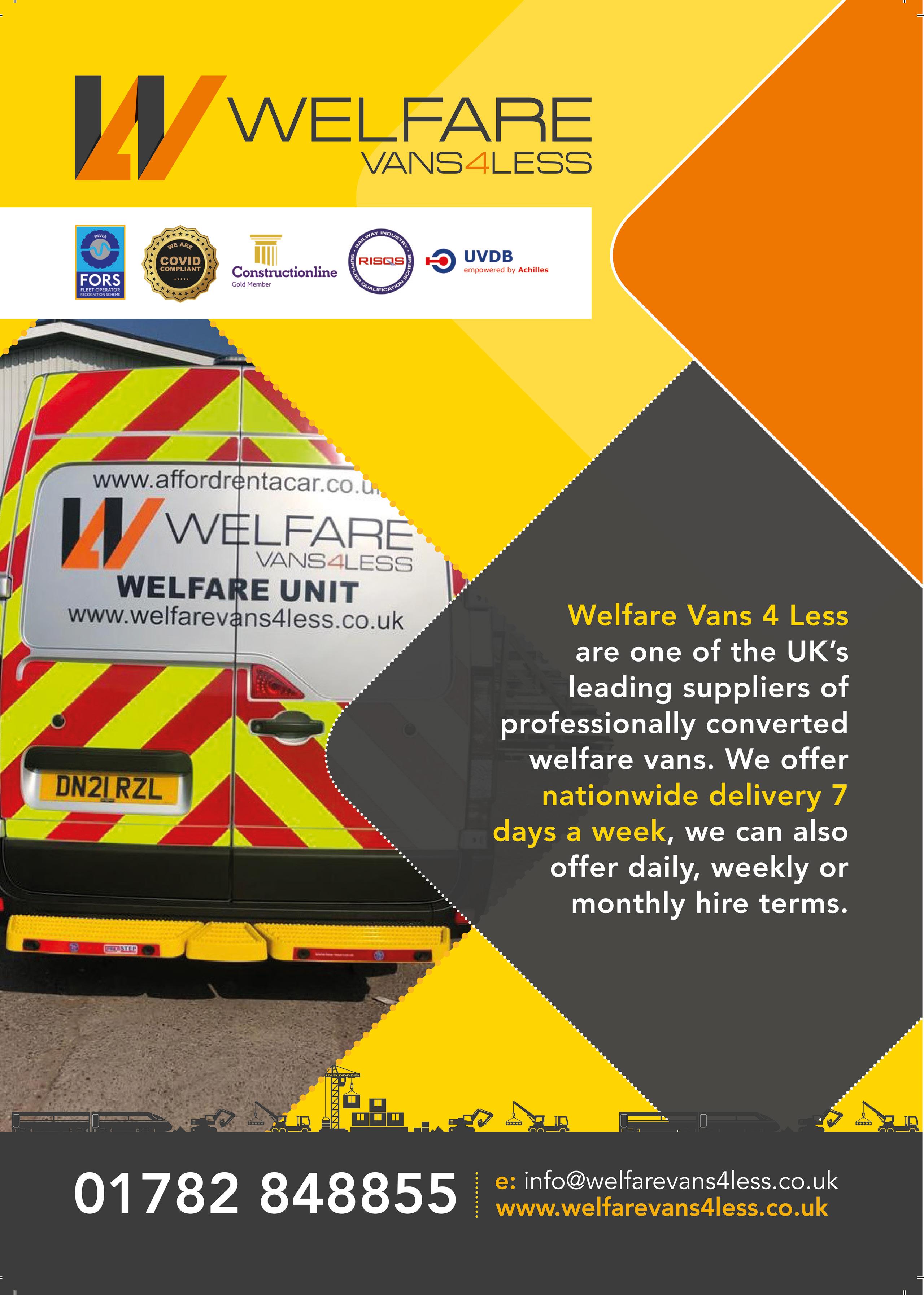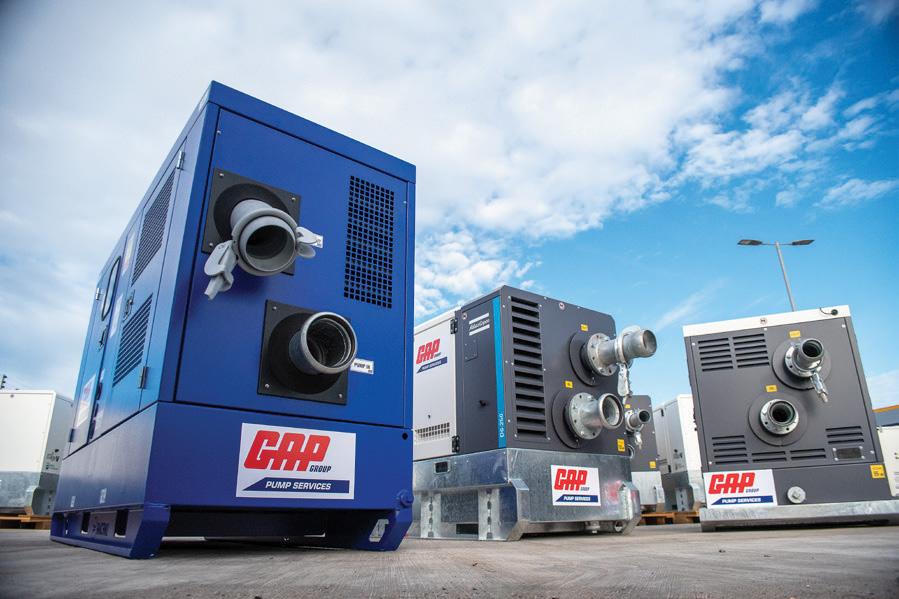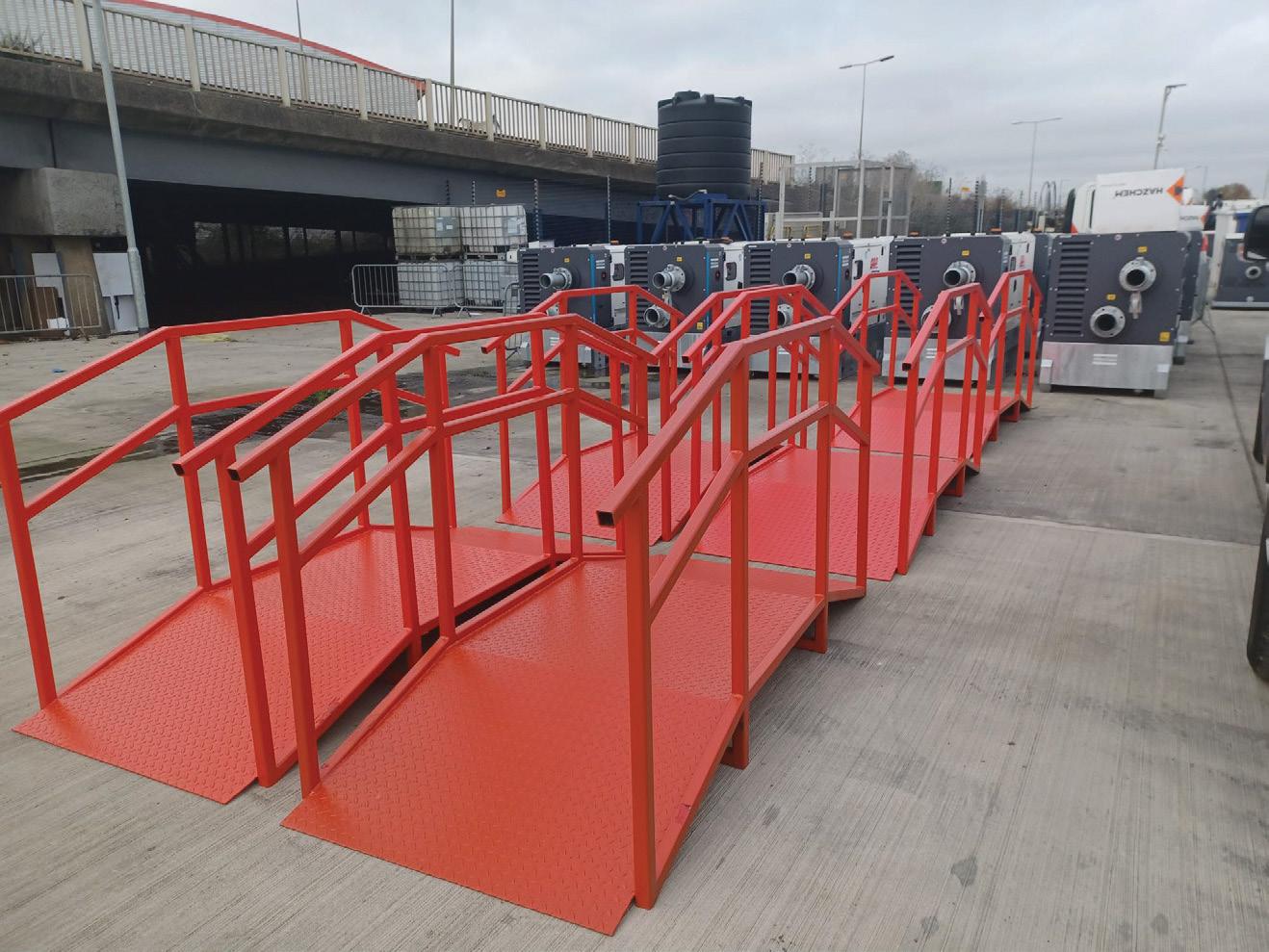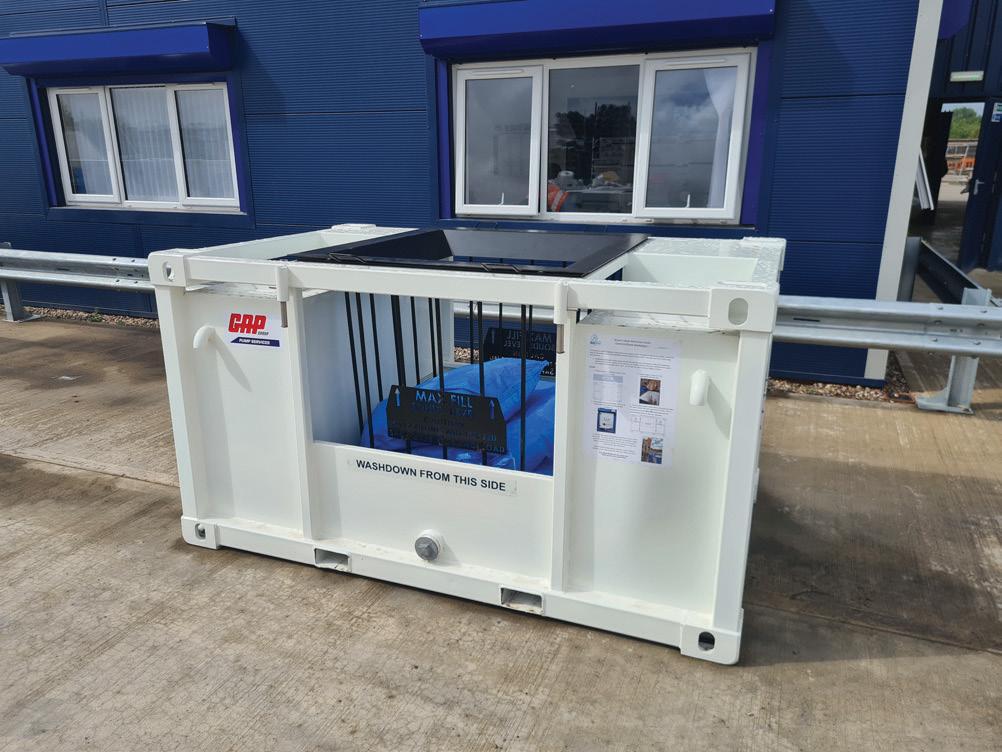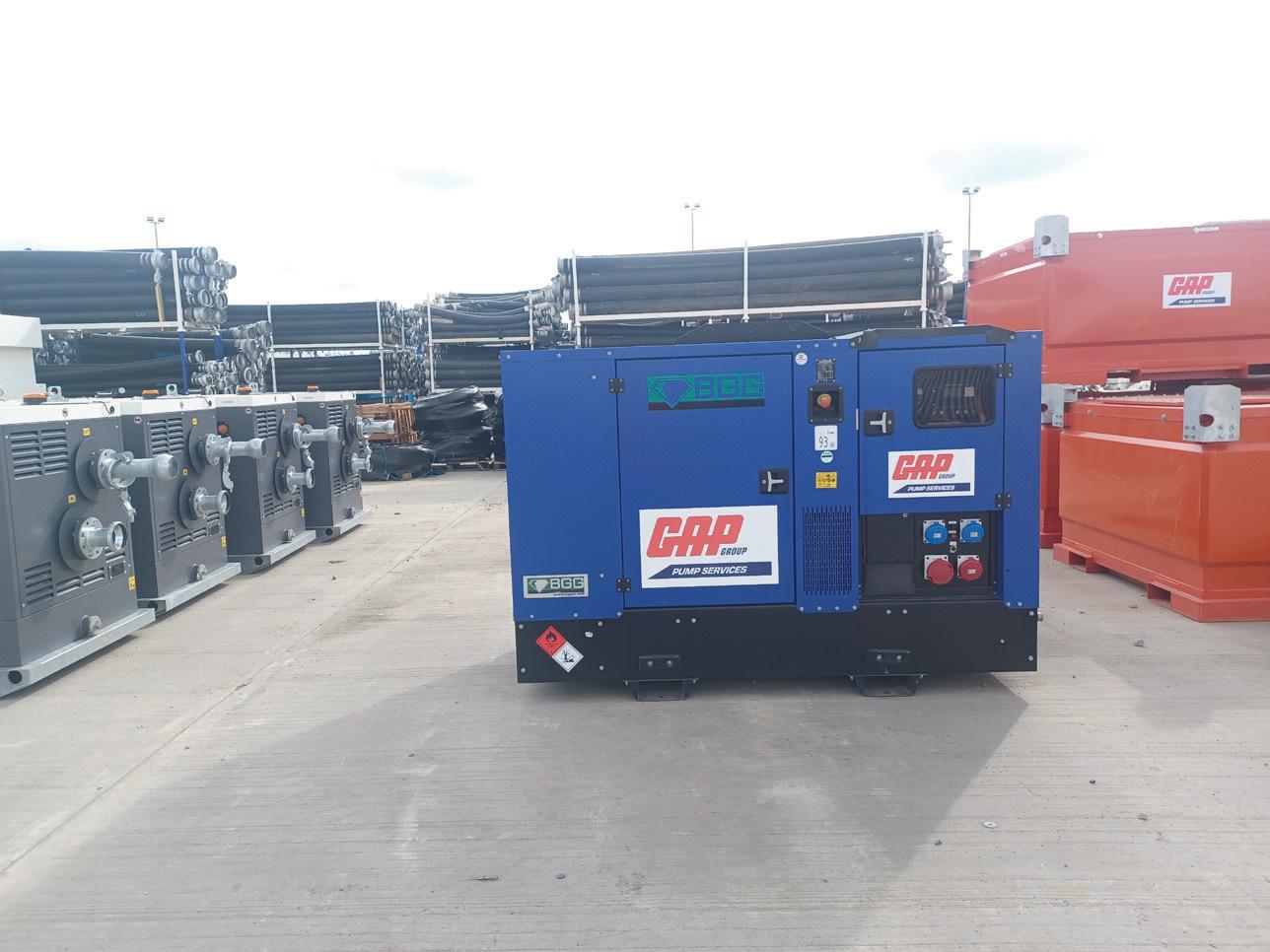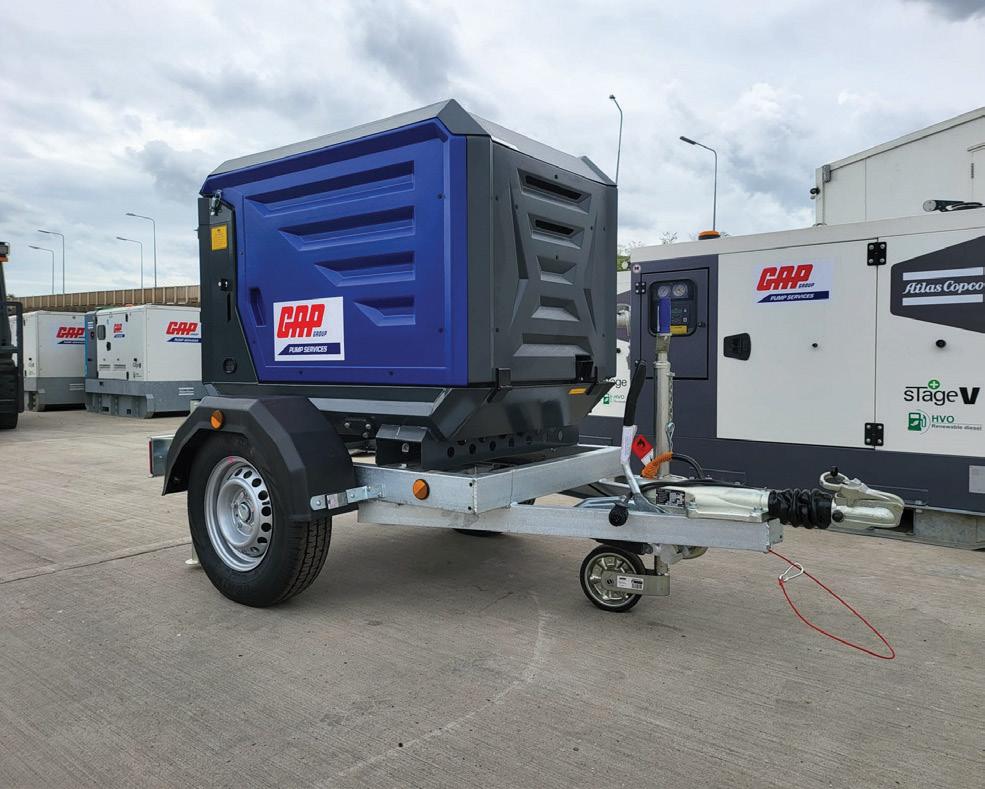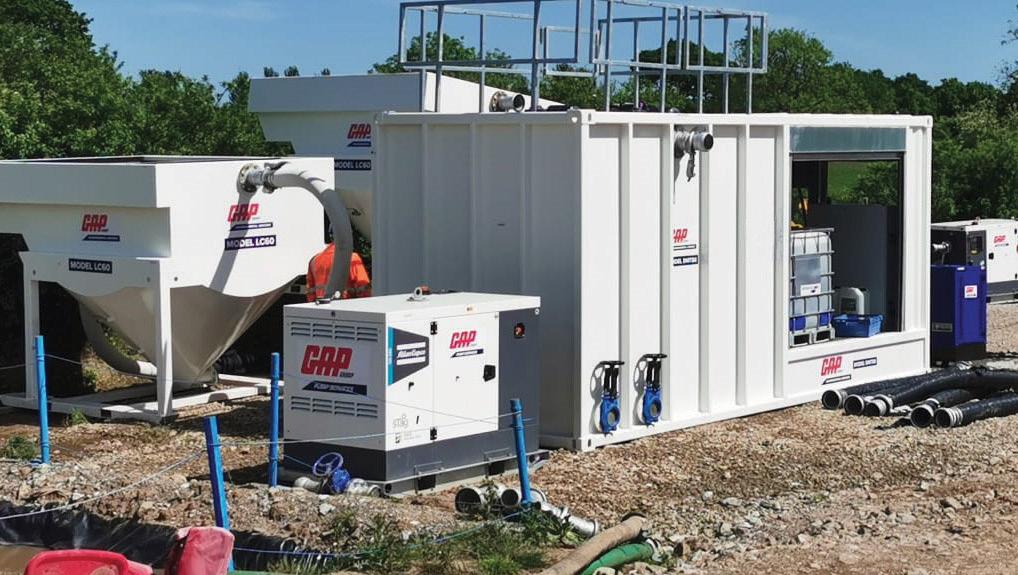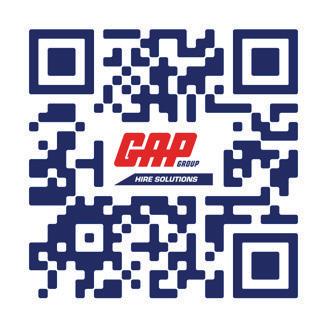General Election

Noel Travers

“The work of change begins today”



Be part of the voice
Rob Mullen
Going the extra mile for communities
Pete Sollitt
“Think to the finish”




EXCLUSIVELY FOR RAIL INDUSTRY LEADERS







July 2024





General Election

Noel Travers

“The work of change begins today”



Be part of the voice
Rob Mullen
Going the extra mile for communities
Pete Sollitt
“Think to the finish”











July 2024







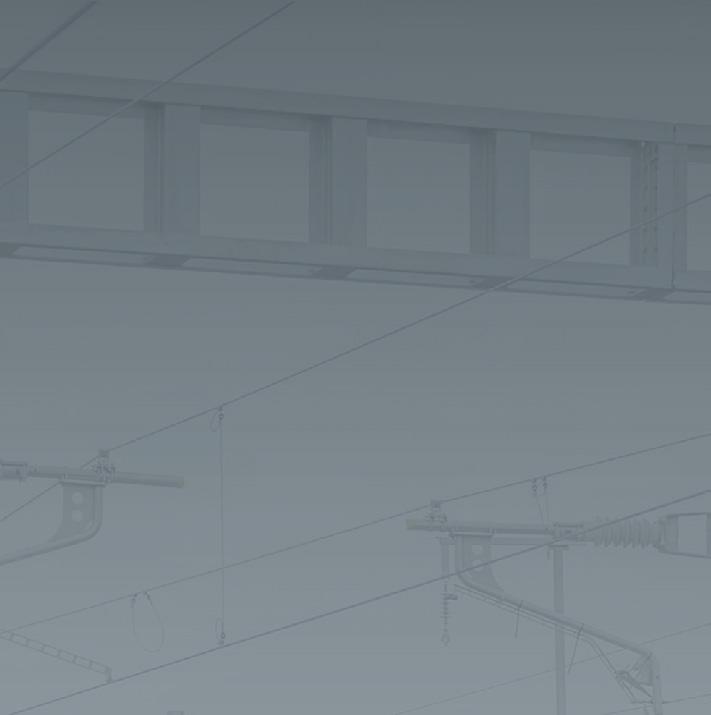


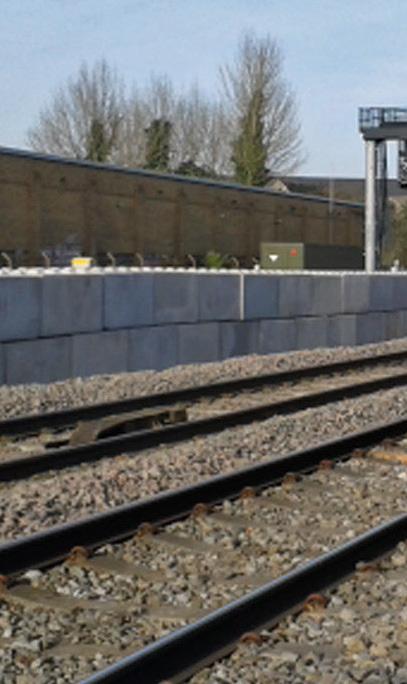
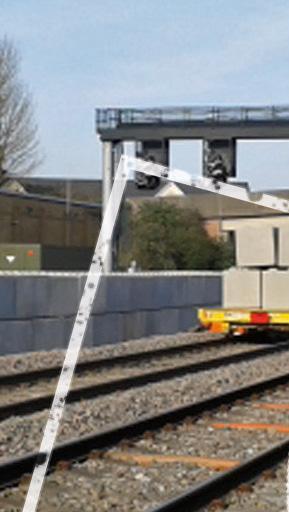

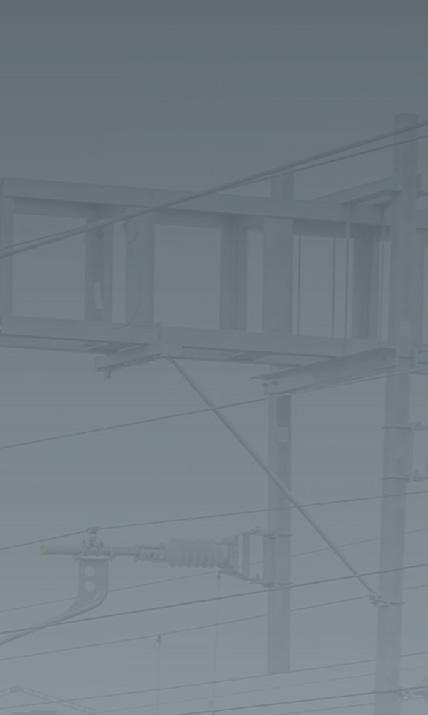









Workforce protection barriers avoiding all line closures with adjacent line open
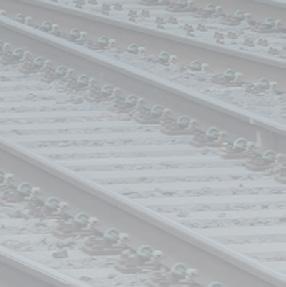




Rockfall prevention with our multi-purpose Jersey barriers

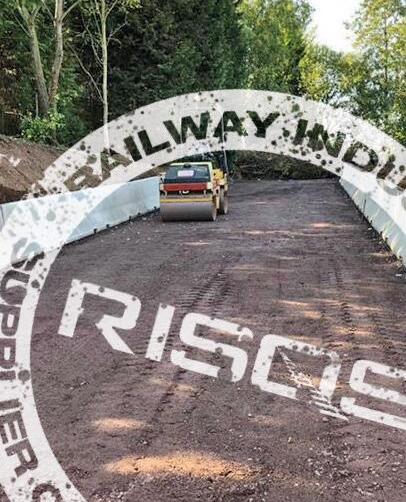

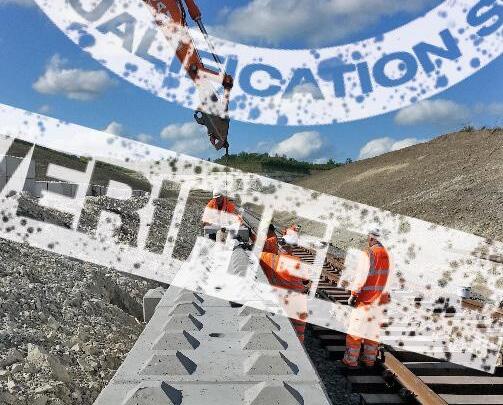


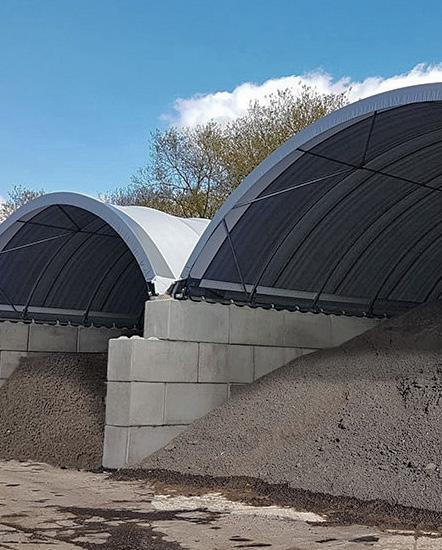


Large ballast bays with walls constructed from our Legato interlocking blocks


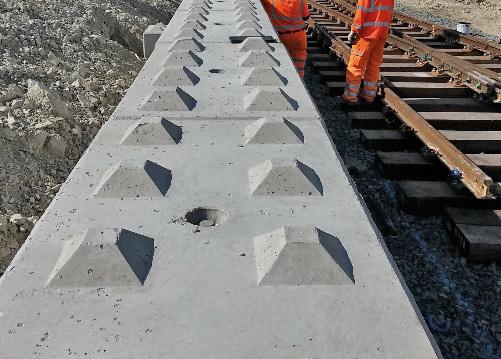



Large scale embankment retention using the versatile Legato blocks




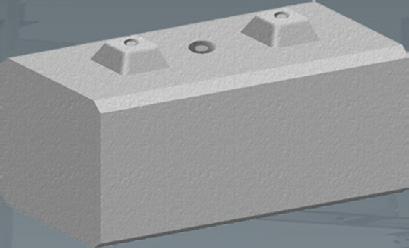


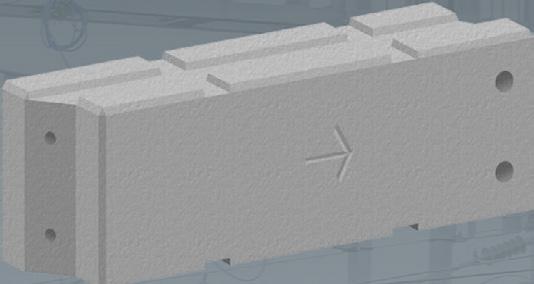

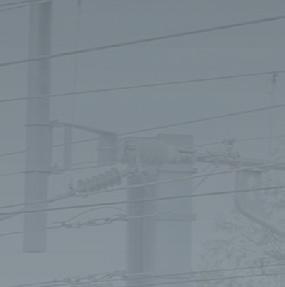

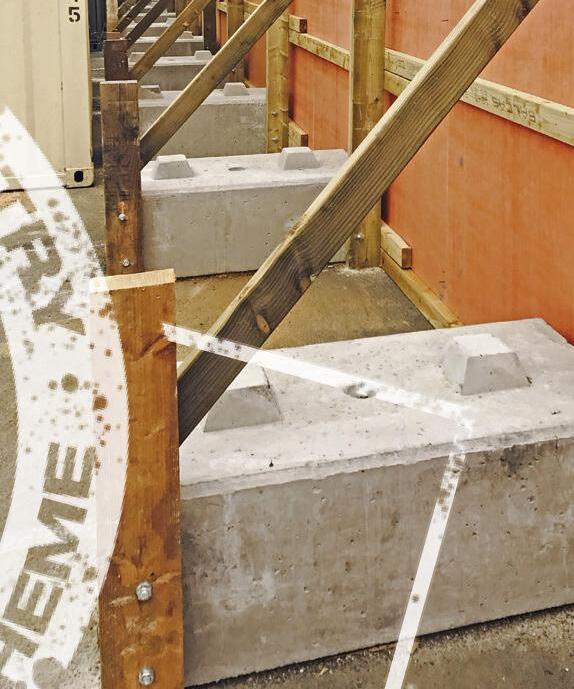


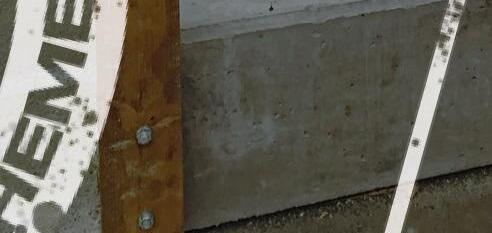
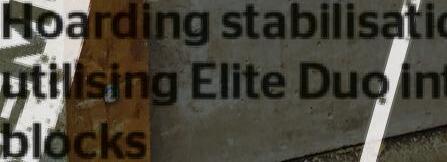

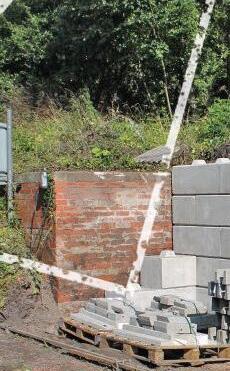

Hoarding stabilisation utilising Elite Duo interlocking blocks



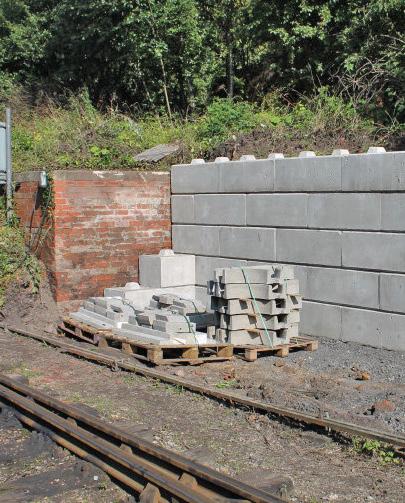


Workforce safety refuges built from Elite Duo blocks




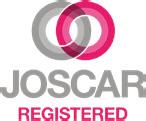
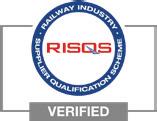
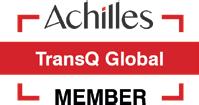
For more information phone 01952 588 885 or browse www.eliteprecast.co.uk or email sales@eliteprecast.co.uk
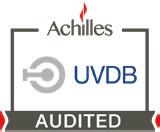

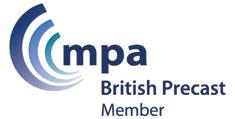
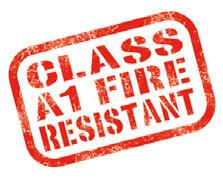
elcome to the latest edition of Rail Director. “Move fast and fix things” is the message from the new Transport Secretary Louise Haigh following Labour’s victory in the General Election, with a promise to deliver the biggest overhaul to transport in a generation.
Among five strategic promises are pledges to improve performance on the railways and to drive forward rail reform, transform infrastructure to work for the whole country, and deliver greener transport and better integrated transport networks. It feels like we are entering a new chapter and hopefully one that will involve the experts in the industry leading on the direction we travel.
This month the magazine is themed around rolling stock. Feast and famine, boom and bust are phrases associated with the historic arc of UK rolling stock procurement over recent decades, including the present time, with concerns among manufacturers over a lack of immediate orders, despite the longer term looking much more promising. This country has a fantastic history of building trains, and it continues to do so, with a skilled and talented workforce that is recognised as amongst the best in the world.
Certainly on the list of talented people is this month’s cover feature Paul Patrick, Managing Director at Stadler Rail Service UK, who will soon be celebrating 30 years of working in the railways, starting as an apprentice fitter for Nexus in 1995. Full of optimism, you can read about his vision for the future as well as his call for the new Government to ensure it listens to the industry, on page 6.
Paul’s call is very much in keeping with the message from the Railway Industry Association’s Senior Technical Advisor David Clarke, who has written an article for this month’s magazine highlighting its ‘A lower cost, higher performing net zero railway by 2050’ strategy, which sets out an approach to minimising the current threat to UK rolling stock manufacturing capability in the short-term and could eliminate boom and bust in the longterm. You can read more on page 10.

We have also spoken with Rob Mullen, Managing Director of c2c, who reflects on his first two years in charge of the train operator, including an update on the Class 357s and 720s, on page 22.
This month we have also spoken with Pete Sollitt, who was recently appointed Transpennine Route Upgrade West Alliance Managing Director, who discusses using his military background to ensure the best platform for the project’s success. “Think to the finish” is a saying that has stuck with him since his army days and something he believes is particularly relevant in his current role. Read the full feature on page 34.
This is just a taster of what is in store in July’s Rail Director. As always, a big thank you to everyone who has played a part in this edition, from those who have taken the time to speak, to those who have used it as a platform to promote their products and services. Work is well underway on the August edition, which has a focus on railway systems, with some high-profile interviews already lined up. If you’d like to feature, please contact the sales team.
All the best,






Danny Longhorn Editor
This country has a fantastic history in building trains and something that continues to this day, with the talent among the best in the world
Rail Director magazine and Railbusinessdaily.com are assets owned by the Railway Industry Association. Railbusinessdaily.com delivers more than 70 stories a week to +73,000 rail industry professionals in our daily 7am newsletter. If you have not already subscribed, it’s free and it’s easy to do so at www.railbusinessdaily.com, please also encourage your colleagues to do the same. This is the very best way to keep abreast of what is happening on the UK’s railways. There is a digital copy of Rail Director on our website.
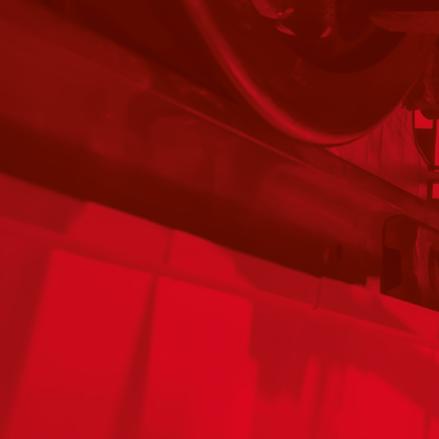


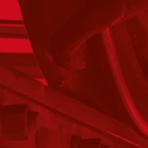



Lifting and inspection equipment you can rely on for all maintenance of rail vehicles. With over 40 years’ experience of high quality, heavy duty vehicle lifting, Totalkare combines world class products with industry leading support to facilitate effective maintenance and repair. LIFTING JACKS & BOGIE LIFTS








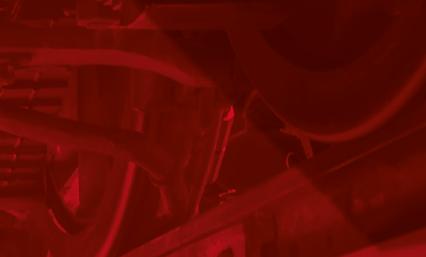







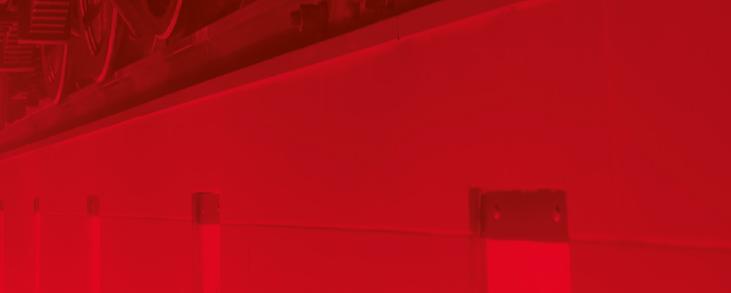








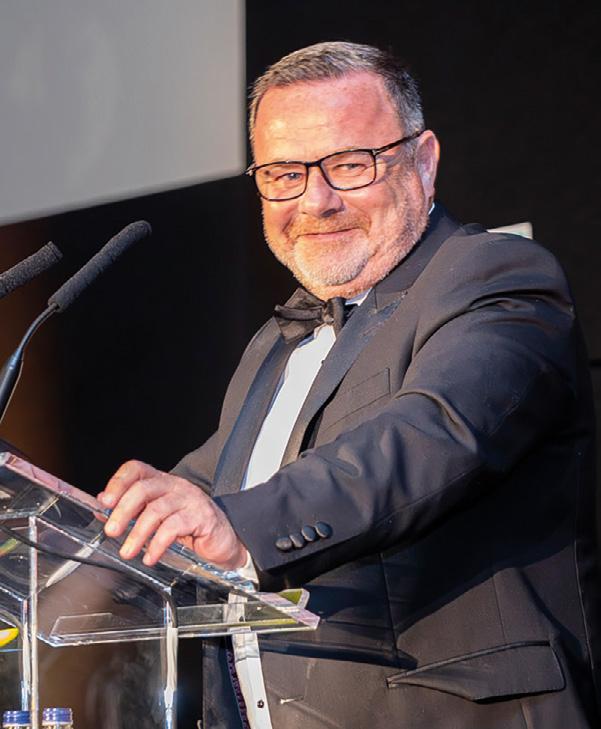

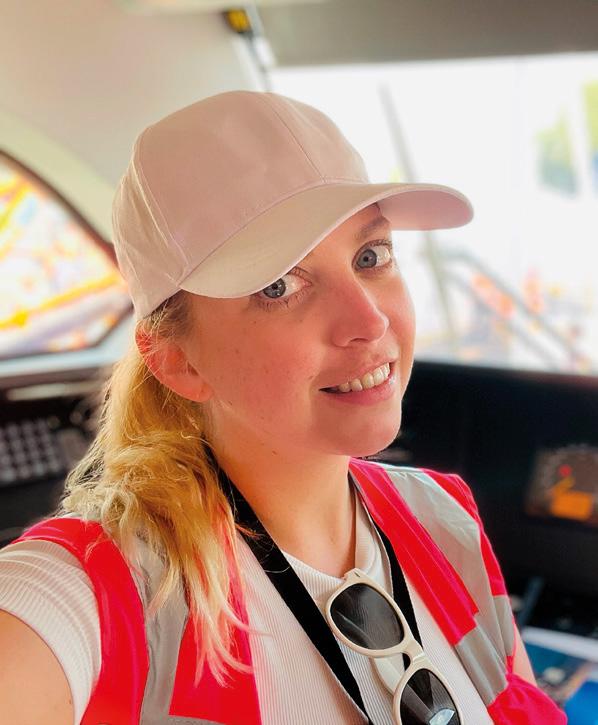
Paul Patrick, Managing Director at Stadler Rail Service UK, will soon be celebrating 30 years in the rail industry. He reflects on his career and reasons to be optimistic when it comes to rolling stock
David Clarke, Senior Technical Advisor at the Railway Industry Association (RIA), explains more about its strategy which set out an approach to minimising the current threat to UK rolling stock manufacturing capability in the short-term and could eliminate boom and bust in the long-term
Labour has won the General Election. Sir Keir Starmer has said “Our work is urgent and we begin it today” in his first address as Prime Minister
Rob Mullen, Managing Director of c2c, discusses the operator’s class 720s and 357s, the important role it has to play in the community, and why he is optimistic for the future
Over 150 exhibitors showed off their latest technology at the 2024 Rolling Stock Networking event which, combined with a conference organised by Rail Partners, attracted more than 2,000 delegates
34 “Think to the
Pete Sollitt was recently appointed Transpennine Route Upgrade West Alliance Managing Director. He discusses using his military background to ensure the best platform for the project’s success
Noel Travers is the new Chair of RIA. He shares his aims and aspirations for the organisation and how it is important for the sector to come together as one
The operator’s final Pendolino has been refurbished, marking the completion of the UK’s biggest fleet upgrade
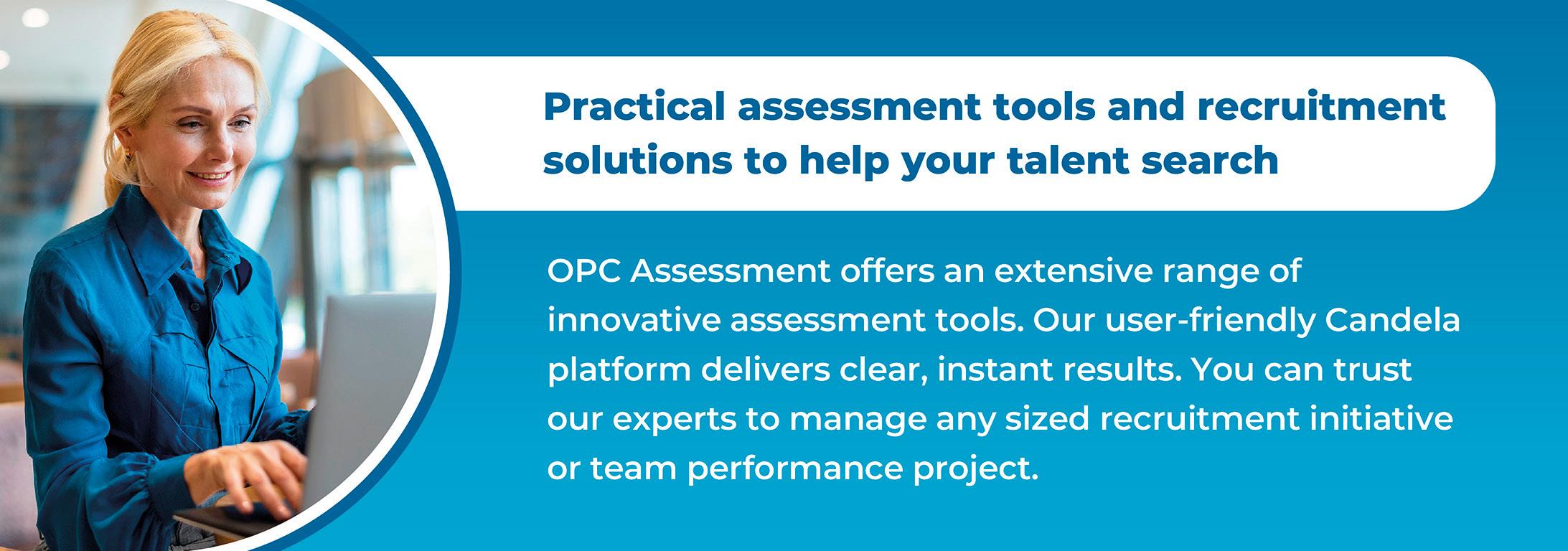
50 UK rail news
Including the news Alstom has signed a £370 million contract for 10 Aventra trains
New faces replaced old at RIA Annual Dinner as 12 companies and individuals were recognised for the quality of their work in the industry
58 Starting the conversation
Ian Watson, from TransPennine Express, has won the Adeline Ginn Unsung Hero of the Year category at the annual Women in Rail Awards for his work advocating for men’s mental health. He shares his story and the importance of talking
In her latest quarterly column Daisy Chapman-Chamberlain, alongside her colleague Matt Mullen, looks at the priorities in enhancing the customer experience
72 International news
Including the news that Siemens Mobility and Tyczka Hydrogen are cooperating in the hydrogen railway sector
74 Embracing diversity and ensuring decisions represent everyone
RIA has hosted its Trailblazers Networking Reception. The keynote speaker was Dr Mark McBride-Wright, Founder and CEO of EqualEngineers
86 Movers and Shakers
Featuring a question and answer with Simon Atterwell, who is the new Chief Operating Officer at Purple Transform
90 Better for people, better for business, better for rail
Dozens of teams and hundreds of people have taken part in the annual Big Rail Diversity Challenge. Rail Director was there taking part in the activities
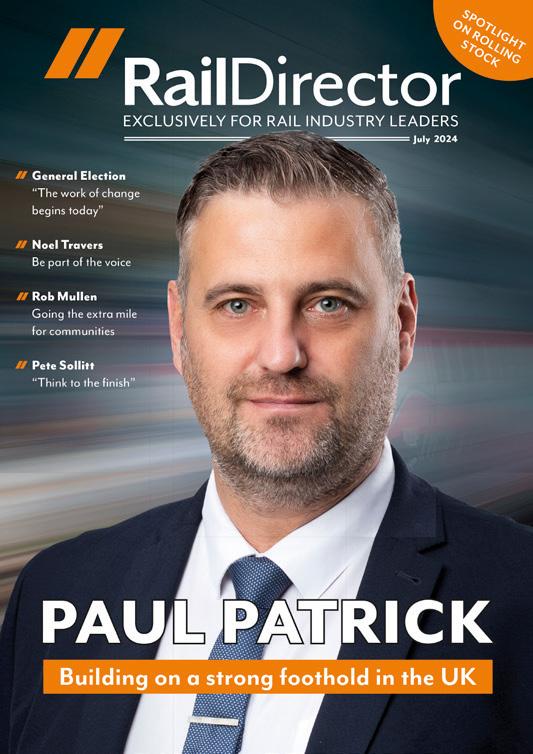
Tel: 01132 082620
Sales: 020 7062 6599
Editor
Danny Longhorn danny@railbusinessdaily.com
Designer and Production Manager
Debbie Nolan
Writers
Rosie Crampton
Fiona Broomfield
Nigel Wordsworth
Advertising Team
Christian Wiles
chrisw@railbusinessdaily.com
Amy Hudson amy@railbusinessdaily.com
Published by RBDMedia (an asset of the Railway Industry Association) trading address 15 Mariner Court, Calder Park, Wakefield WF4 3FL
Printed by The Manson Group
2024
rights reserved.

Paul Patrick, Managing Director (MD) at Stadler Rail Service UK (SRS UK), will soon be celebrating 30 years in the rail industry. He reflects on his career and reasons to be optimistic when it comes to rolling stock
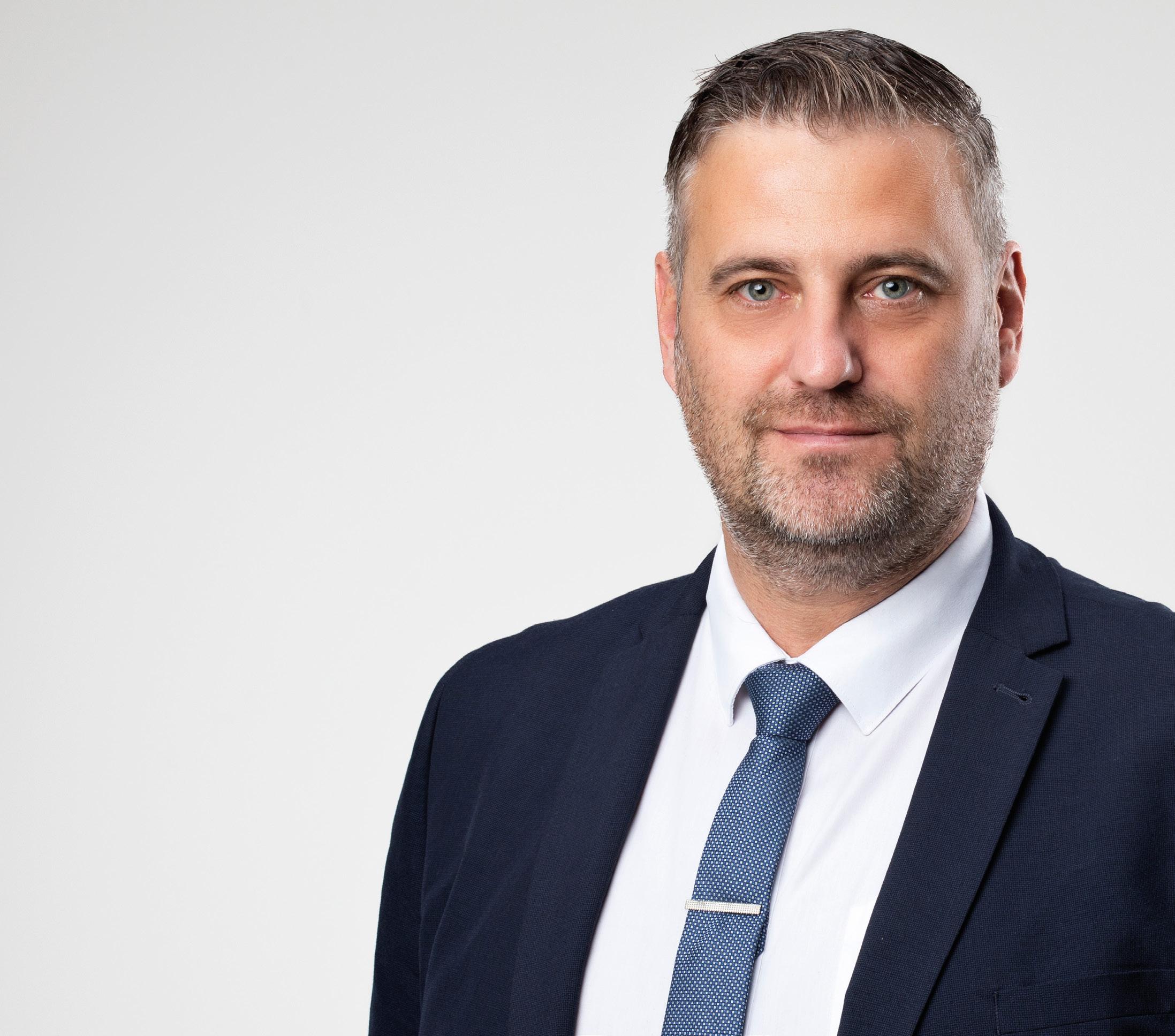
veryone knows Stadler is a Swiss company with a long-term orientation and entrepreneurial spirit, and as our footprint in the UK continues to grow, we’re on a journey to hopefully become one of the leading train producers and maintainers in the UK.”
Paul Patrick, Managing Director at SRS UK’s comment is backed by its phenomenal growth which has seen five fleet mobilisations in the UK in the last 18 months by its 400 plus staff, with the number of employees set to continue to increase in the next 12 months.
“Our priority is putting the customer first,” he added. “It starts from what the person on the platform is thinking when the train pulls up which is what sets off the start of our reputation being built. If they see a Stadler train coming in clean, it is reliable, and it gets
them to their destination without any hassle, then it’s a good start.”
SRS UK is a subsidiary of Stadler Rail AG Switzerland which since 2016 has won six contracts in the UK, several with integrated service solutions. Stadler manufactured and delivered 58 FLIRT for Abellio East Anglia from 2019, which are now serviced and maintained at Crown Point depot in Norwich.
It is also building and providing 53 Metro trains for the Liverpool City Region, 17 Subway trains for Glasgow, 71 regional and tram trains for Transport for Wales, and 46 Metro trains for the Tyne and Wear Metro. It also recently signed a framework agreement with Rail Operations Group to supply up to 30 Class 93 tri-mode locomotives, and together with Beacon Rail and GB Railfreight (GBRf) signed
an agreement to supply up to 30 Class 99 bi-mode Co’Co’ locomotives.
“Stadler is on the rise in the UK, and I think we’ve got a great foothold for the next 35 years with the contracts we already have,” he said. “In addition to that, Merseytravel and Nexus also have aspirations for network extensions so hopefully there will be options for orders on the back of that with servicing included.
“We are in a great position, and I also think Stadler has the best product at the minute for locomotives for the replacement of the Class 66s with our Class 99s or 93s which are battery, small diesel, and electrification for the boost. There are 10 of those already coming to the UK with frameworks for additional orders.
“I’m also looking forward to seeing the Class 99s for GBRf of which we’ve also got the service contract
for the next 15 years. Once the 99s and 93s prove their reliability and worth, it will be open season and the industry will recognise that we can get rid of the Class 66s and the old dirty diesels off this network.”
for a thriving business
The growth hasn’t come without internal changes. Since taking over as MD more than two years ago Paul has driven a restructure which has included appointing a People and Culture Director, Chief Operating Officer, and a Safety, Assurance and Sustainability Director.
“Bringing in governance, control, structure and investment in the asset and the people has been something that we’ve strengthened in recent years,” he said. “I always maintain the company’s greatest asset is our people, so we need to look after them and that isn’t just about rewarding them, but making sure we are bringing in the right kind of people and new talent and creating an environment for them to thrive.
“We’ve got a great apprenticeship scheme, with 16 employed today and more coming on-board next year, so we are generating those skills that are needed moving forward and working with local communities on the social value element. There is a huge skill gap in rolling stock technicians, so we’ve engaged with local colleges to develop a rolling stock technician qualification, bringing in the next generation. We also sponsor Primary Engineer in schools to play our part in making engineering more attractive, highlighting the benefits of the profession.
“An important factor in our success is building great relationships with the supply chain. Fundamentally Stadler trains will all be built in Switzerland, however a lot of the components are sourced within the UK. With some of the full service contracts lasting for up to 35 years, it is vital we have excellent relationships with the supply chain and invest in that to ensure we can all thrive in the industry. We recently introduced a revised tender process, and regularly support and attend networking events to speak directly with suppliers to discuss what they can do for us, and us for them.”
Despite the success, generally speaking, it is a tough time for the rolling stock side of the sector. Feast and famine, peaks and troughs, or boom and bust are regular phrases associated with the historic arc of UK rolling stock procurement over recent decades. In the late 1990s and noughties, there were more than a thousand days without an order for new regional trains, a length of time which was trumped this year, coming to an end with the announcement last month that Transport for London would procure 10 new Elizabeth line trains from Alstom.
“There is no visual pipeline from the Government, but I do believe there is a bow wave coming and recently we’ve seen Southeastern and TransPennine Express tenders published at the same time, so it is going to be a busy period for us all,” he said. “I would like to see a long-term pipeline of upcoming planned procurements published to enable factories to understand what is coming and try and flatten the order line because my concern would be if big orders come in and the factories can’t accommodate them because the order books are already full.
“Personally, I am all for decarbonisation for all
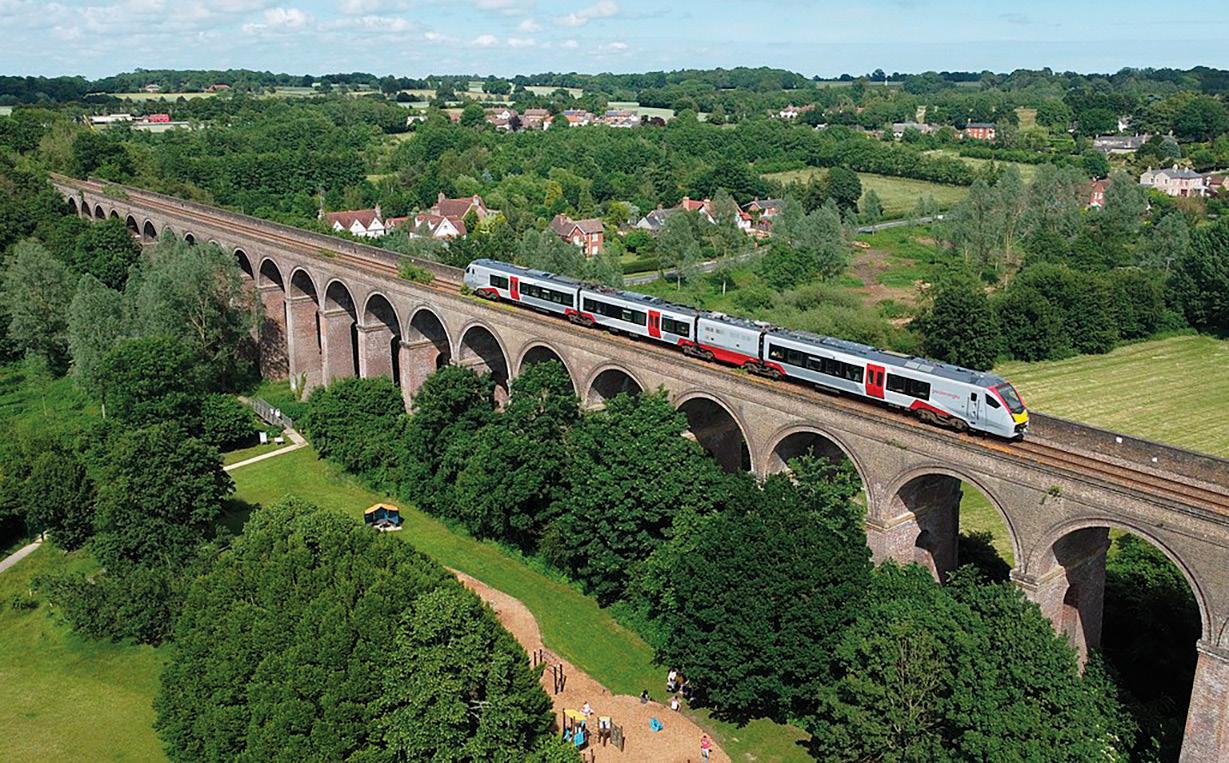
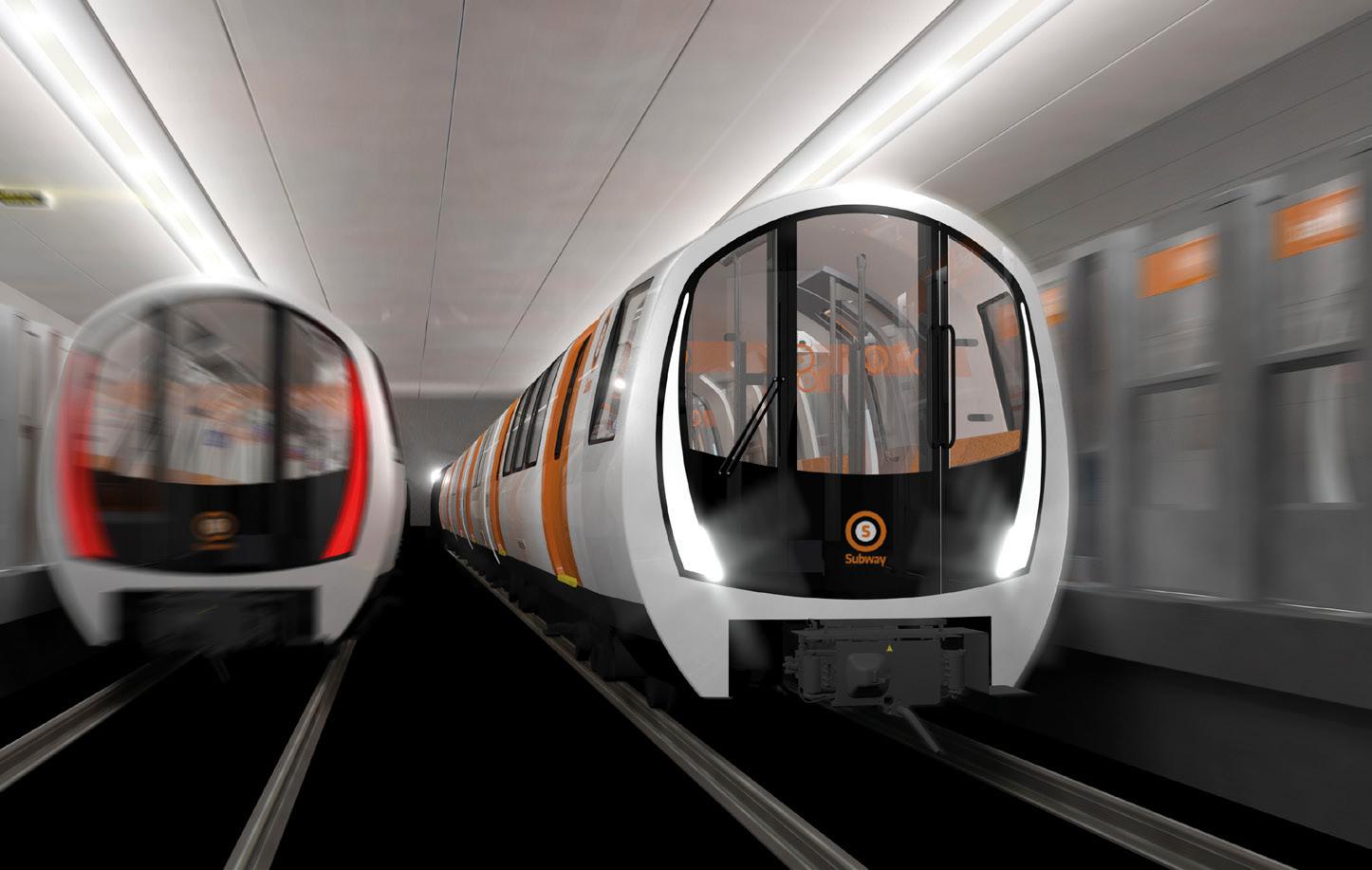
rolling stock. Diesel locomotives running under electric wires in this day and age shouldn’t be allowed. The dates given by the Government for decarbonisation have prolonged the inevitable instead of just saying ‘You need to act now for a viable business case to electrify units’; people would have acted. We need to act quickly and not let the supply chain be stifled because it is cheaper to run the diesel trains.
“My message to the new Government is to listen to the industry and listen to the forum. That is where the experience is as we all live and breathe it. Who knows better than the people who work in it? It is currently driven by the financials, but until that changes and it becomes mandatory nothing is going to change in the short term. We all have the aspiration by 2040 to be net zero, but why wait until then when the capability is there now?”
Career
Career-wise, things could have been a lot different for Paul, who later on this year will be marking 30 years in the rail industry. As a teenager he planned to be a policeman, following in his father’s footsteps,
It starts from what the person on the platform is thinking when the train pulls up which is what sets off the start of our reputation being built
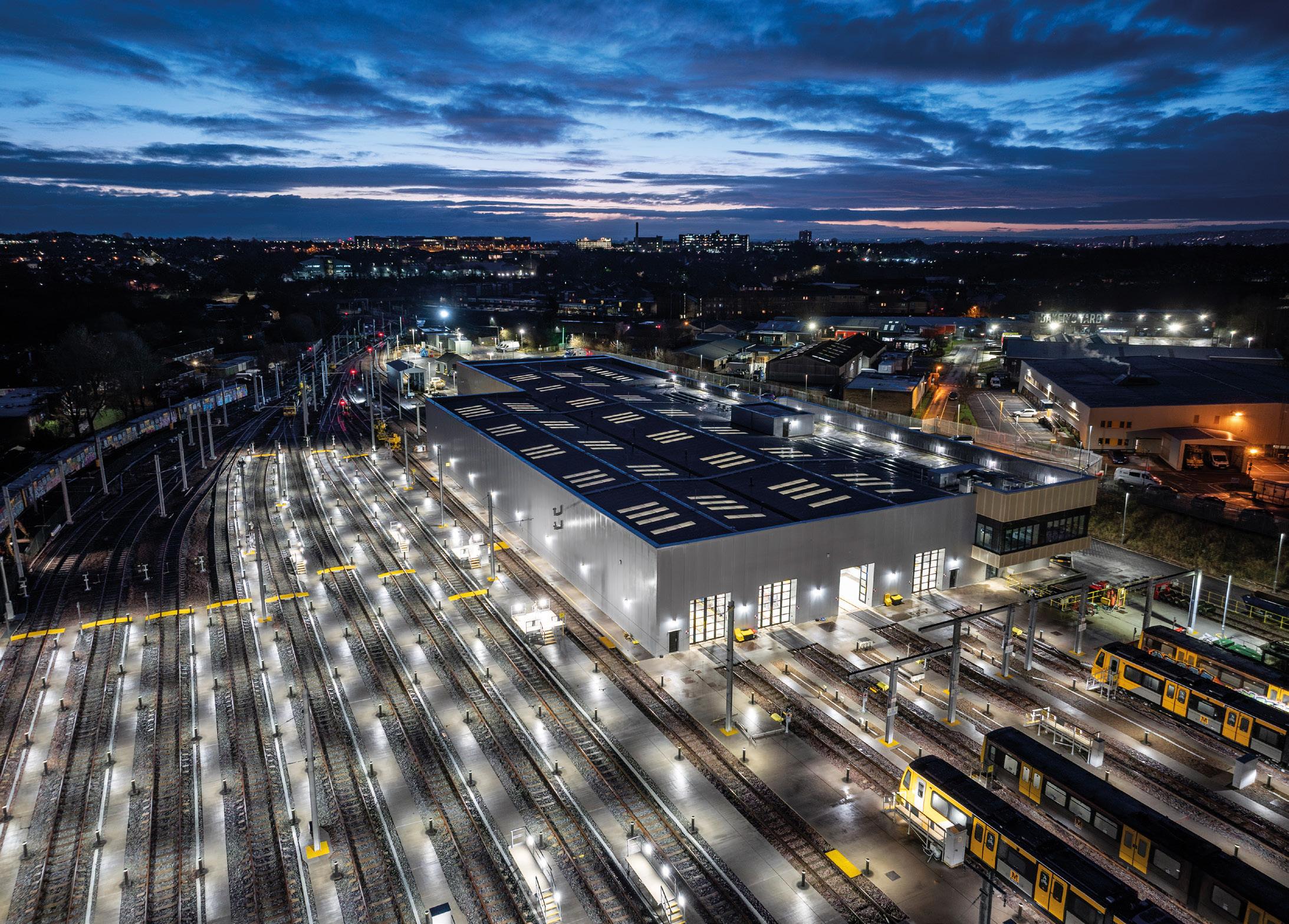
I always maintain the company’s greatest asset is our people, so we need to look after them and that isn’t just about rewarding them, but making sure we are bringing in the right kind of people and new talent and creating an environment for them to thrive
but he was unable to join until he was 21.
“My dad said I should either go to college or get an apprenticeship in the meantime so by chance I got a job at Metro as a fitter in 1995 when I was 16,” he said. “I also had an offer of a draftsman in the shipyards in Newcastle, but I chose the Metro one thinking I’d do the apprenticeship, get some experience under my belt, and then I’d join the police.
“But after the apprenticeship, I was offered a job straight away working shifts on the Sunderland extension and then promotions came, and the career has continued to roll on. I have no regrets.”
Paul spent 25 years at Nexus progressing through the organisation to being appointed Head of Fleet Engineering in 2017. Four years ago, he moved to Stadler as its UK Engineering Director and little over two years ago was promoted to his current position of MD.
“Reflecting, it is a bit of a reality check,” he said. “I have four kids, and of my eldest two, my daughter is now 24 and a trainee solicitor, and my son is 21 and works for Nexus. I wonder where the time went as it has flown by in the railways.
“I don’t think I’d be in the position I am today having not had the support of some wonderful teams whether that be in engineering, operations or customer service.
“Overall, I have had a very fruitful career and many opportunities which leaves me feeling very humbled and passionate to ensure we deliver a first-class service and platform for the next generation. The
railway is a golden era of employment and long may it continue. I do believe it is the lifeblood and backbone of industry.”
As for the future of SRS UK, Paul expects there to be no slowdown, especially with just over 200 units in the country which will all be due for an overhaul at a similar time, and with further potential opportunities down the line.
“This time next year I want to see our fleet in East Anglia continue to perform highly, the new Nexus fleet in passenger service, the fleets in Liverpool and Glasgow fully integrated, and Taff’s Well depot open with Citylinks operating around Cardiff,” he said.
“We are also looking currently at wheelset overhauls with suppliers, and ideally, I would like to have my own overhaul facility for all components, not just wheelsets and bogies. COVID and Brexit are issues we’ve all had to deal with in the recent past, so when we have to ship wheelsets and bogies away, we can’t afford any delay in the turnaround time. We’ve had things stuck in customs for weeks previously because of issues with paperwork, so ideally, we need to be more resilient to external factors.
“My vision for further down the line is that in every city you visit, you will see a Stadler train with our own overhaul facilities, getting back to the core engineering that we need. Overall though we are here for the long-term and accelerating on our journey to be one of the biggest producers and maintainers in the UK.”
David Clarke, Senior Technical Advisor at the Railway Industry Association (RIA), explains more about its strategy which set out an approach to minimising the current threat to UK rolling stock manufacturing capability in the short-term and could eliminate boom and bust in the long-term


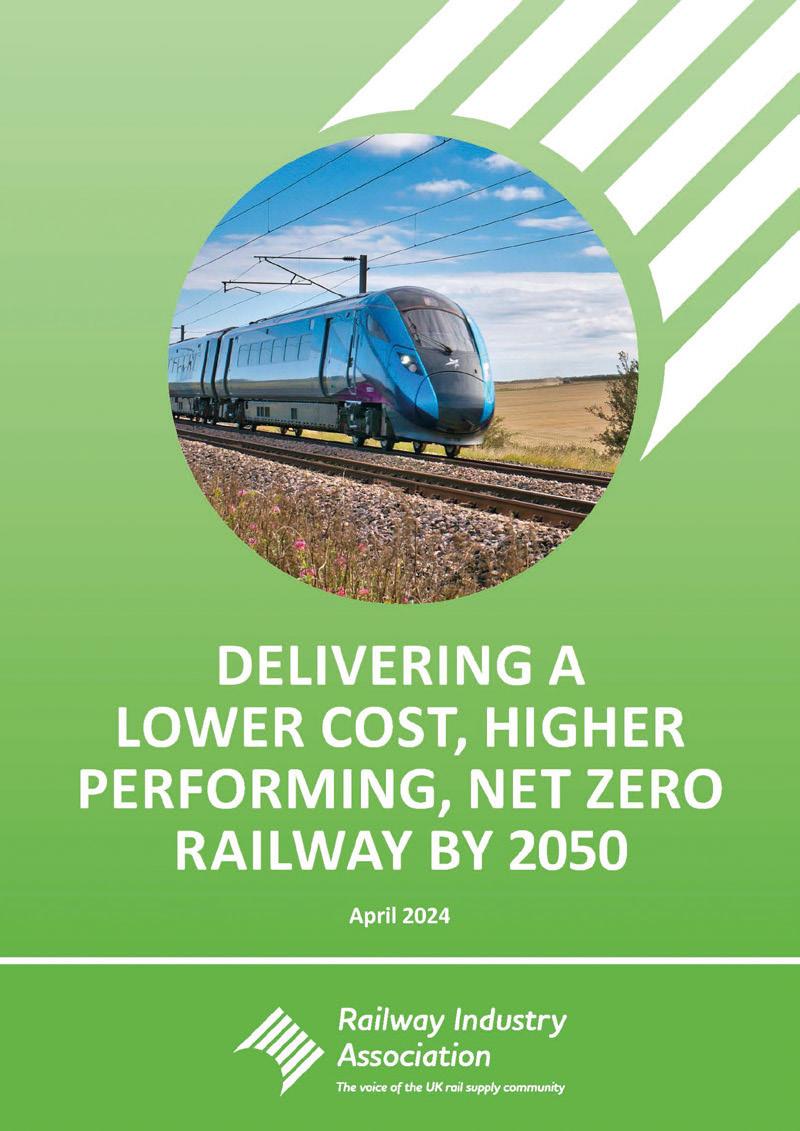




Peaks and troughs have peppered the historic arc of UK rolling stock procurement from the steam era to the digital age. In the late 1990s and early noughties, for example, more than a thousand days elapsed without an order being placed for new trains.
The railway recently exceeded this period of hiatus since the last substantial main line fleet procurement of 23 new trains for Avanti, confirmed in December 2019, and discounting the HS2 rolling stock order announced in December 2021 which remains uncertain. It was more than 1,600 days until the Department for Transport agreed funding for Transport for London to procure 10 new Elizabeth Line trains in June 2024.
This latest inertia on decision making is particularly regrettable given the near quintupling of UK manufacturing and assembly capacity in the UK over the last decade or so. The owners of these facilities and the major upgrade/refurbishment sites are global businesses that will make strategic commercial decisions based on their confidence in the political and industrial outlook. At present there is no tangible or visible pipeline of work, and it is not difficult to conclude that the only rational decision must be to reduce costs and review the facilities.
The new Government really should be concerned at the risk this situation poses to the thousands of good jobs which
are sustained by rolling stock manufacturing. This is an industry which employs over 30,000 people and contributes nearly £1.8 billion GVA to the economy annually.
During the election campaign several of the political party manifestos committed to rail investment with many focusing on infrastructure enhancements like Northern Powerhouse Rail. Labour was alone in calling for a “long-term industrial strategy for rolling stock” in its rail policy document which also pledged to “end the current boom and bust cycle, ensure a strong pipeline of work and consider the best financing structures for future orders in partnership with private capital.”
These words are easy to say but harder to do. Nonetheless, the party is to be commended for making this commitment.
Following the General Election victory, Labour might want to consider RIA’s April 2024 strategy ‘A lower cost, higher performing, net zero railway by 2050’, which set out an approach to minimising the current threat to UK rolling stock manufacturing capability in the short-term and could eliminate boom and bust in the long-term. The whole system blueprint maximises existing infrastructure plans and sets out how a coordinated ‘track and train’ approach could deliver improved outcomes for passenger and freight users, taxpayers, and the supply chain.
RIA’s approach fast tracks benefits by focusing on opportunities for carbon reduction and air quality improvements in the short term. It will also enhance performance by introducing newer or comprehensively upgraded and more reliable trains while achieving lower costs and greater economic benefits by reducing ‘boom and bust’ for the rail supply sector.
Current plans will increase the proportion of the UK rail network which is electrified from 38 per cent to 51 per cent, and RIA’s strategy identifies a further 15 per cent of routes which if electrified would mean 100 per cent of passenger services and 95 per cent of freight services being decarbonised incrementally in the decades to 2050.
We concluded that around a third of the network does not need to be electrified and can be decarbonised now with battery trains. An order for a fleet of battery-electric trains should be accelerated as a matter of priority by the new Government to bring forward benefits at no additional cost to the public purse.
Ongoing and persistent uncertainty around future UK rail manufacturing capacity yet again highlights the need for a more consistent pipeline of work for infrastructure and rolling stock suppliers to support investment in skills and improve productivity.
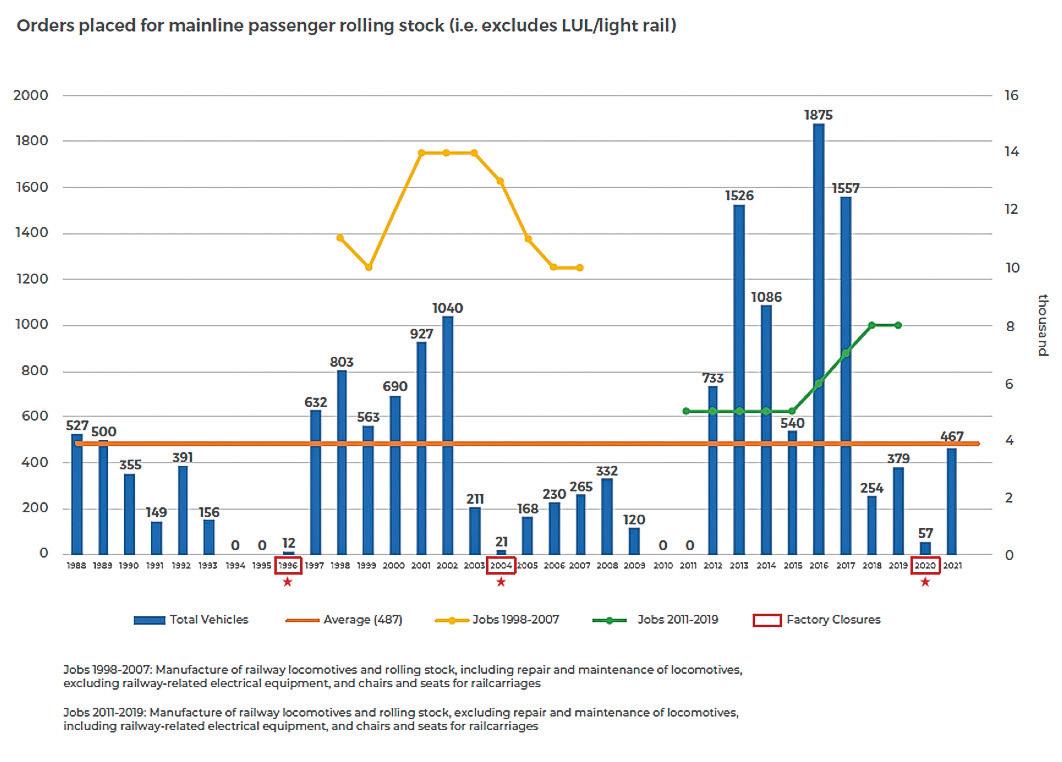
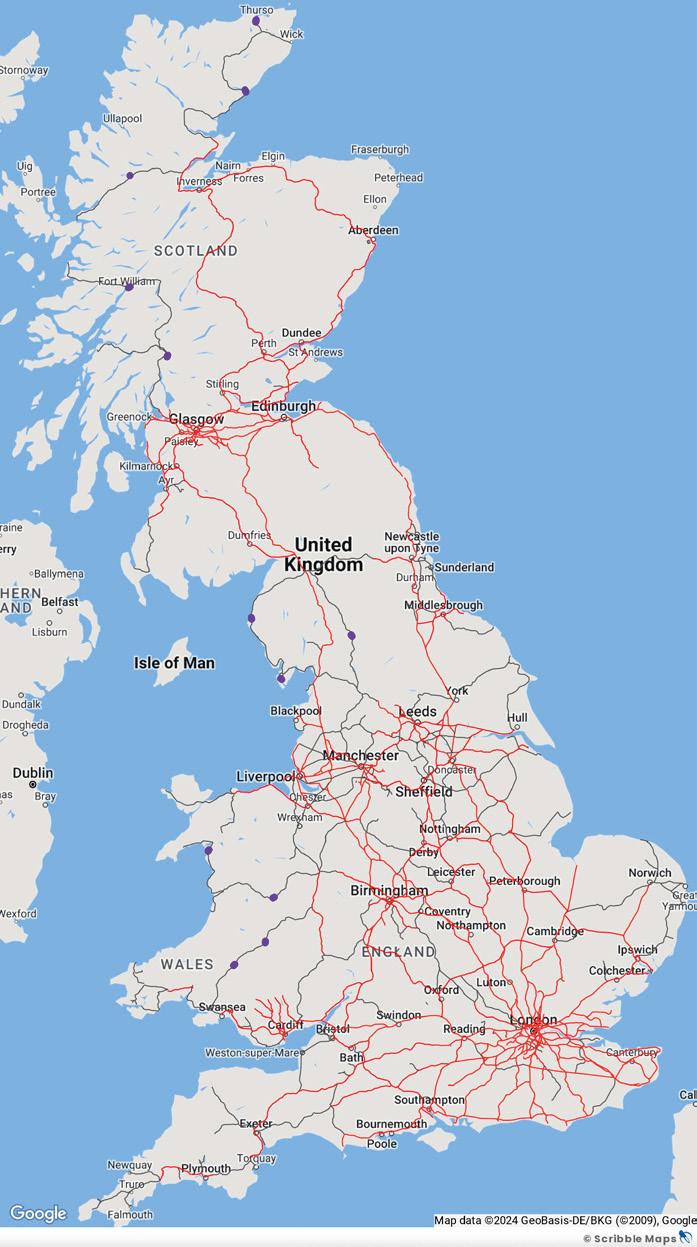
Unelectrified route
Electrified by 2050
Proposed in-service charging station
An order for a fleet of battery-electric trains should be accelerated as a matter of priority by the new Government to bring forward benefits at no additional cost to the public purse
RIA has been engaged in extensive discussions with senior stakeholders from across the industry to develop and test the strategy. I am optimistic that consensus can be built, and that agreement can be reached on the minimum additional electrification needed to deliver net zero for passengers and freight by 2050. Agreeing on this minimum electrification requirement will give clarity to railway planners and thus unlock investment in electric and battery trains. It will also allow the rail industry to be clear about its needs with the electricity industry. https://www.riagb.org.uk/RIA/Newsroom/
Earlier this year RIA-commissioned research by Steer found that passenger numbers will grow between 37 per cent and 97 per cent by 2050, the range depending on future rail policy. So, it is vital that the new Government now makes some decisions on infrastructure and rolling stock which will allow investors, rail planners and the rail supply chain to deliver a better and greener railway for passengers and taxpayers in the decades ahead.

Labour has won the General Election. Sir Keir Starmer has said “Our work is urgent and we begin it today” in his fi rst address as Prime Minister



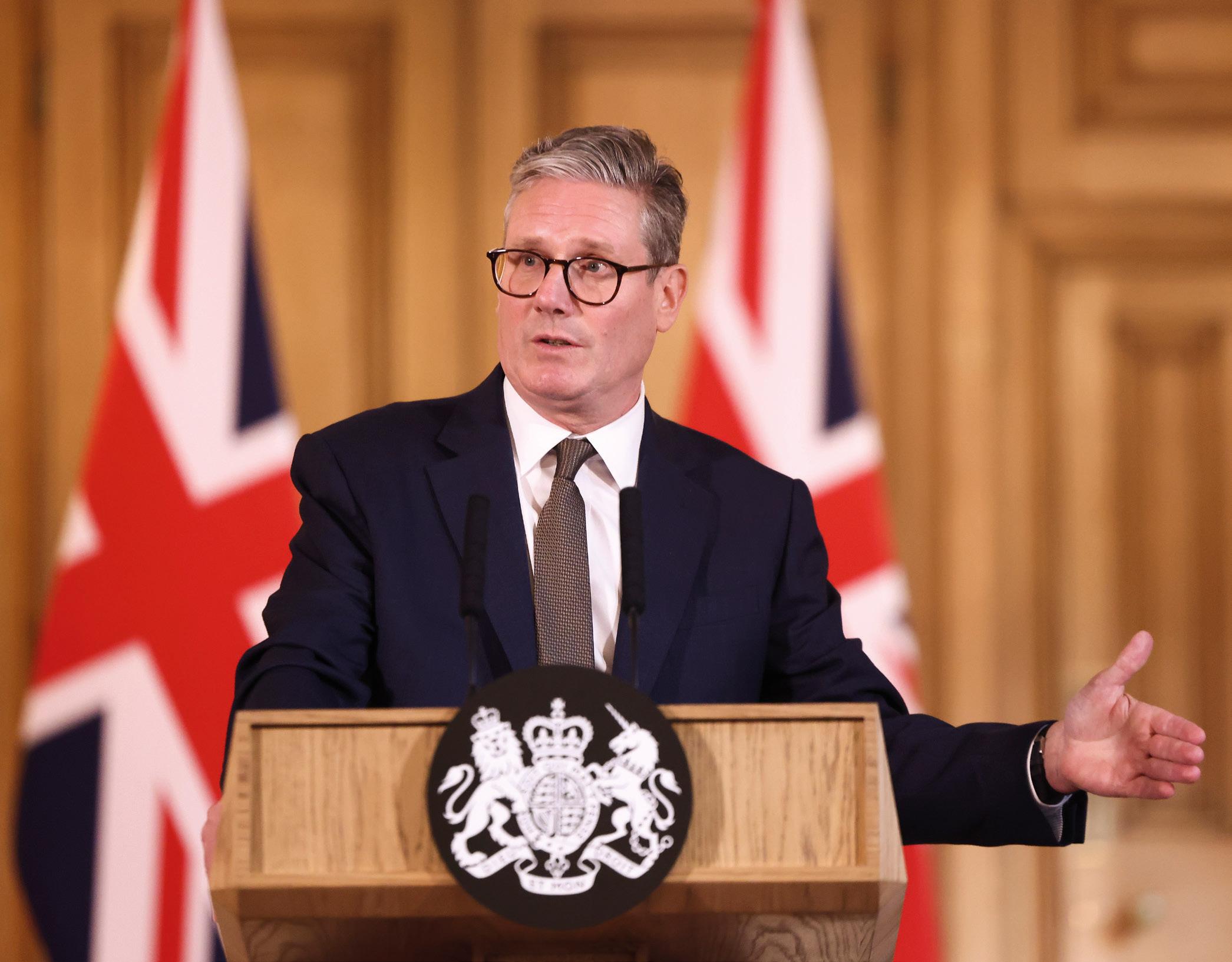
Sir Keir Starmer has become the UK’s first Labour Prime Minister since 2010 after his party’s landslide election win.
Speaking in his opening address, following the victory, outside 10 Downing Street, he said: “Our country has voted, decisively, for change, for national renewal, and a return of politics to public.
“When the gap between the sacrifices made by people and the service they receive from politicians grows this big it leads to weariness in the heart of a nation. A draining away of the hope, the spirit, the belief in a better future that we need to move forward together.
“Now, this wound, this lack of trust, can only be healed by actions, not words. We can make a start today with the simple acknowledgement that public service is a privilege and that your Government should treat every single person in this country with respect.
“Politics can be a force for good. We will show that and that is how we will govern, country first, party second.”
Following the defeat, which saw Labour gain more than 200 seats and the Tories lose 250 seats, former Prime Minister Rishi Sunak, announced he was stepping down as leader of the Conservatives.
He said: “To the country, I would like to say, first and foremost, I am sorry, I have given this job my all, but you have sent a clear signal that the Government of the United Kingdom must change and yours is the only judgement that matters. I have heard your anger,

your disappointment, and I take responsibility for this loss.”
He added: “I believe this country is safer, stronger, and more secure than it was 20 months ago. It is more prosperous, fairer, and resilient than it was in 2010. Whilst he has been my political opponent, Sir Keir Starmer will shortly become our Prime Minister. In this job, his successes will all be our successes, and I wish him and his family well. Whatever our disagreements in this campaign, he is a decent, public-spirited man, who I respect.”
Louise Haigh has been appointed Transport Secretary and Lord Hendy, Chair of Network Rail, appointed as Transport Minister in the new Government.
In her first address to the Department for Transport, Louise set out her five strategic priorities, putting transport at the heart of mission-driven Government.
Improving performance on the railways and driving forward rail reform.
Improving bus services and growing usage across the country.
Transforming infrastructure to work for the whole country, promoting social mobility and tackling regional inequality.
Delivering greener transport.
Better integrating transport networks.

It will take all our effort but the new motto of our department –our purpose – is simple:
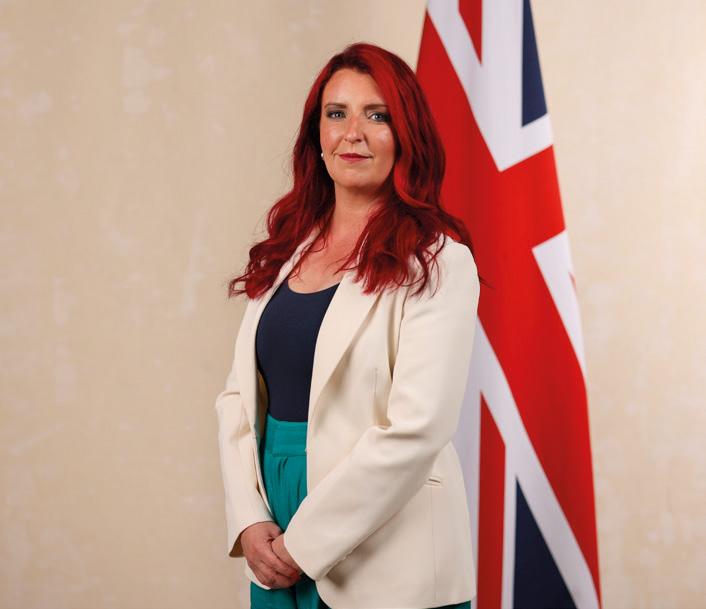

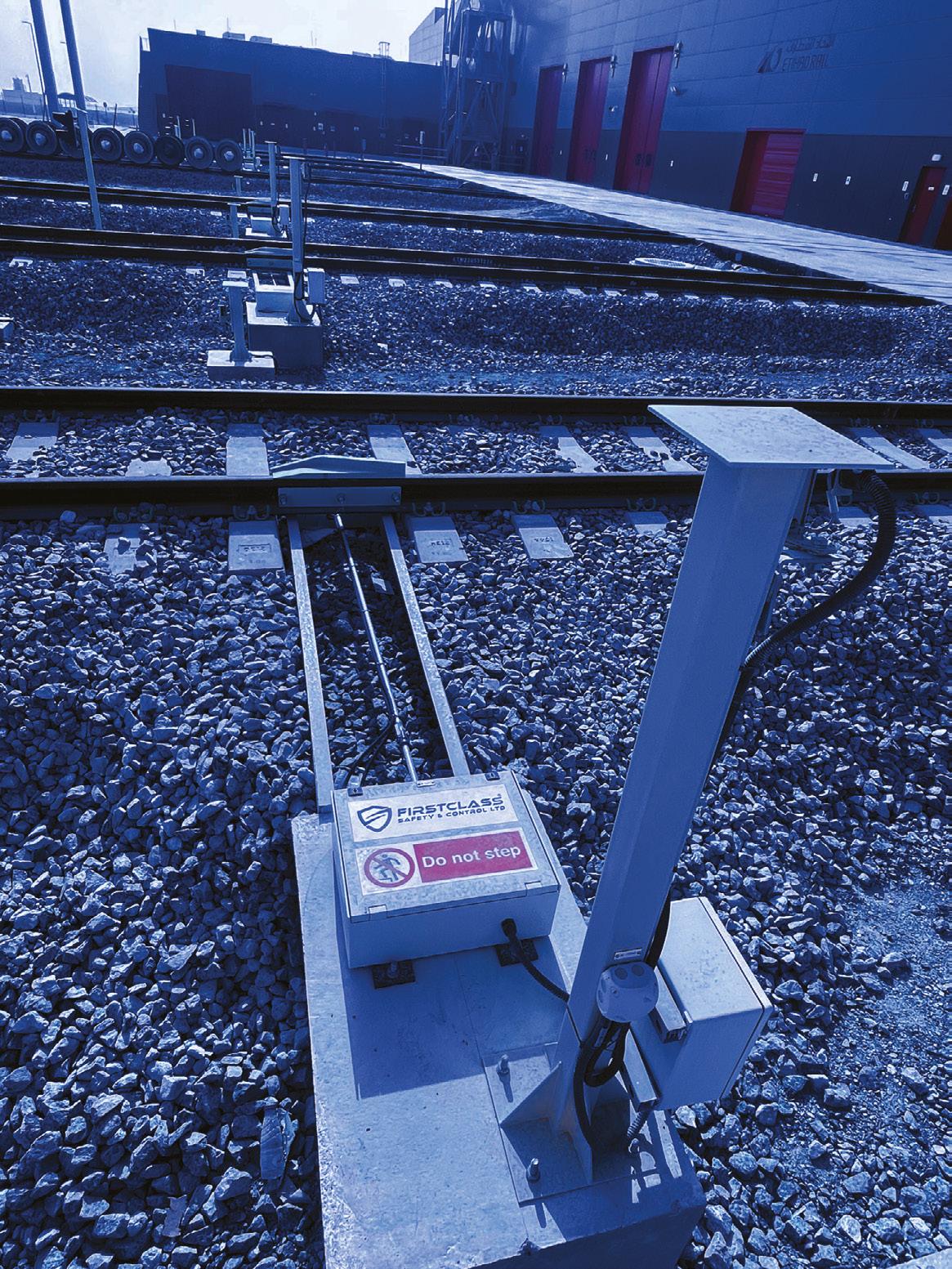

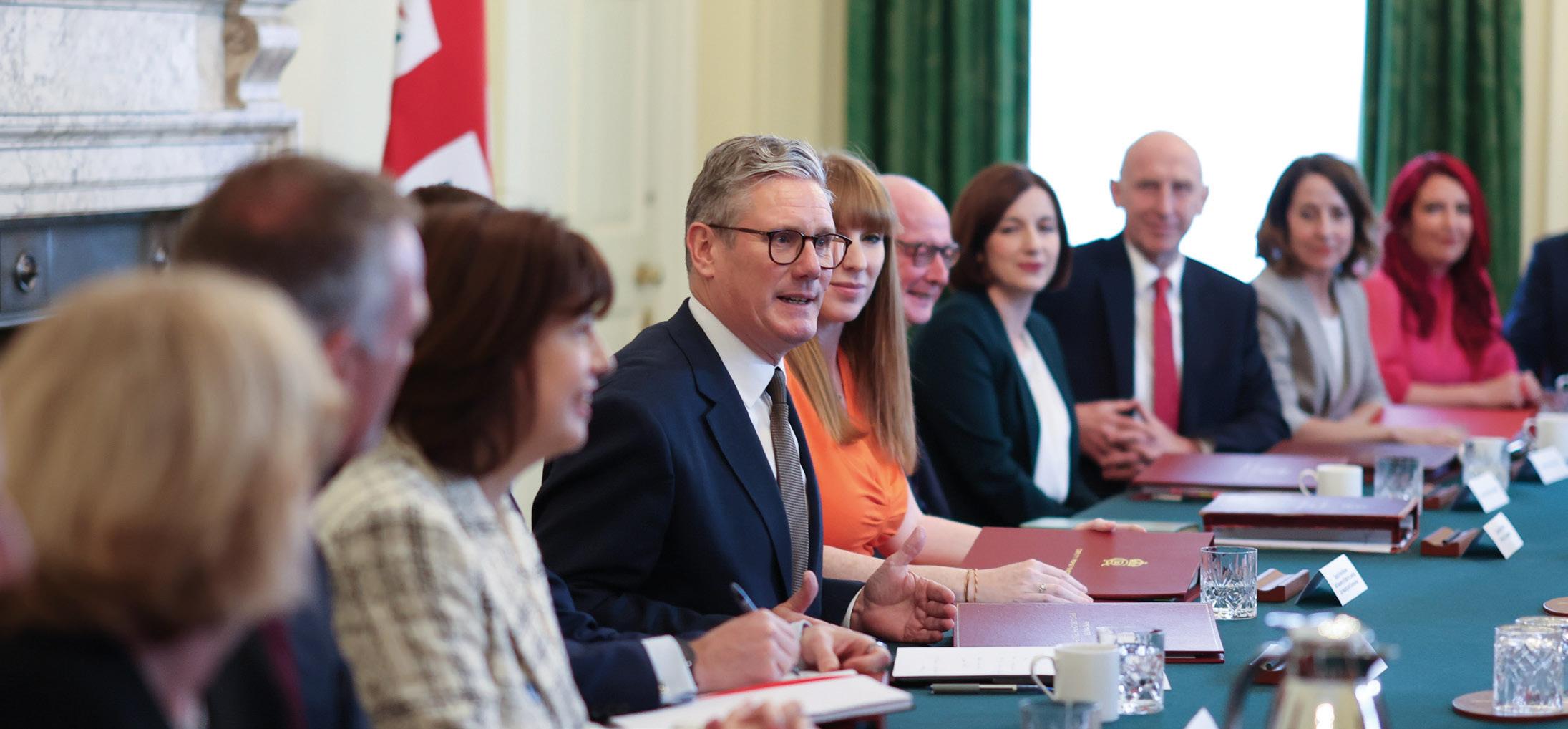





She said: “It will take all our effort but the new motto of our department – our purpose – is simple: move fast and fix things.
“Our department is so clearly central to achieving the missions for Government that the Prime Minister




“Growth, net zero, opportunity, women and girls’ safety, health – none of these can be realised without transport as a key enabler.”
Responding to the news, Andrew Haines, Managing Director of Network Rail, posted on LinkedIn: “I have been hugely encouraged by the discussions I have had with Louise as Shadow Transport Secretary over the past year. She is passionately committed to public transport and to putting passengers and freight customers first. And she shares our understanding not only of what is wrong with today’s railway, but also what can be made right – not least by bringing track and train back together under a new Great British Railways (GBR).



“And of course, I am chuffed to bits that the Prime Minister has appointed our Chair, Peter, Lord Hendy of Richmond Hill, as Minister of State for Railways
in the Department for Transport. In my opinion, Peter is the outstanding transport professional of his generation and I have been hugely privileged to work alongside him during my time at Network Rail. Our loss is very much the country’s gain and I know he will be a relentless champion for passengers and freight users, for the railway, and for rail’s contribution to economic growth, jobs and homes.

The journey ahead and the industry’s response
“Seize the opportunity to refresh rail for the future.”
That was the message to Labour from Darren Caplan, Chief Executive of RIA, the voice of the UK rail supply community, following news the party had won the General Election.

“So I am optimistic that the coming weeks and months hold enormous opportunity for us and for the railway. Equally, I am conscious that to fully seize that opportunity we must hold the public’s trust – and we are only ever as good as our customers’ last journey. Too often that hasn’t been good enough so it’s essential we maintain a relentless focus on improving train service performance, safely.”



In her first speech as Chancellor, Rachel Reeves promised to take immediate action to fix the foundations of the economy, rebuild Britain and make every part of the country better off. She also pledged to leaders of some of the UK’s pioneering industries to build growth on strong and secure foundations built on stability, investment and reform, and to forge a new partnership with the private sector.






I am optimistic that the coming weeks and months hold enormous opportunity for us and for the railway


“On behalf of RIA I would like to congratulate new Prime Minister Keir Starmer and the Labour Party on the General Election result,” added Darren.

“Labour’s Plan for Rail, published earlier in the year, is clear that the railways are crucial for delivering UK economic growth. Labour has pledged to bring forward a strong pipeline of work for the rail supply sector and to develop a long-term industrial strategy for rolling stock.”

The Chancellor has also said the Government will make changes the country needs to forge ahead with new roads, railways, reservoirs, and other nationally significant infrastructure, saying the current planning regime acts as a major brake on economic growth.






The Chancellor has asked the Secretaries of State for Transport and Energy Security and Net Zero to prioritise taking decisions on critical infrastructure projects which are with them now.

To go further, to help speed up delivery on infrastructure such as transport and energy, the Government will review how it can unlock critical infrastructure, without weakening environmental protections.






In its plan in a paper titled ‘Getting Britain Moving: Labour’s Plan to Fix Britain’s Railways’ revealed in April, the party confirmed it would bring the railways into public ownership. When Shadow Transport Secretary, Louise Haigh also stated that during its first term in Government, it would:
Deliver a new Railways Act in the first King’s Speech to create a unified, publicly owned, accountable GBR, which will put the passenger first and be led by rail experts.




She said: “I am taking immediate action to fix Britain’s economic foundations.
“By growing our economy, we can rebuild Britain and make every part of the country better off.”







Complete the transition to public ownership, by folding existing private passenger rail contracts into the new body as they expire, without the taxpayer paying a penny in compensation costs.




Support successful open access and freight operators to continue to deliver, and set clear objectives and targets for passenger services and freight growth.



Establish a powerful new passenger watchdog, the Passenger Standards Authority, to hold GBR to account on behalf of passengers.



































































































RIA and our members now look forward to
achieve its goals
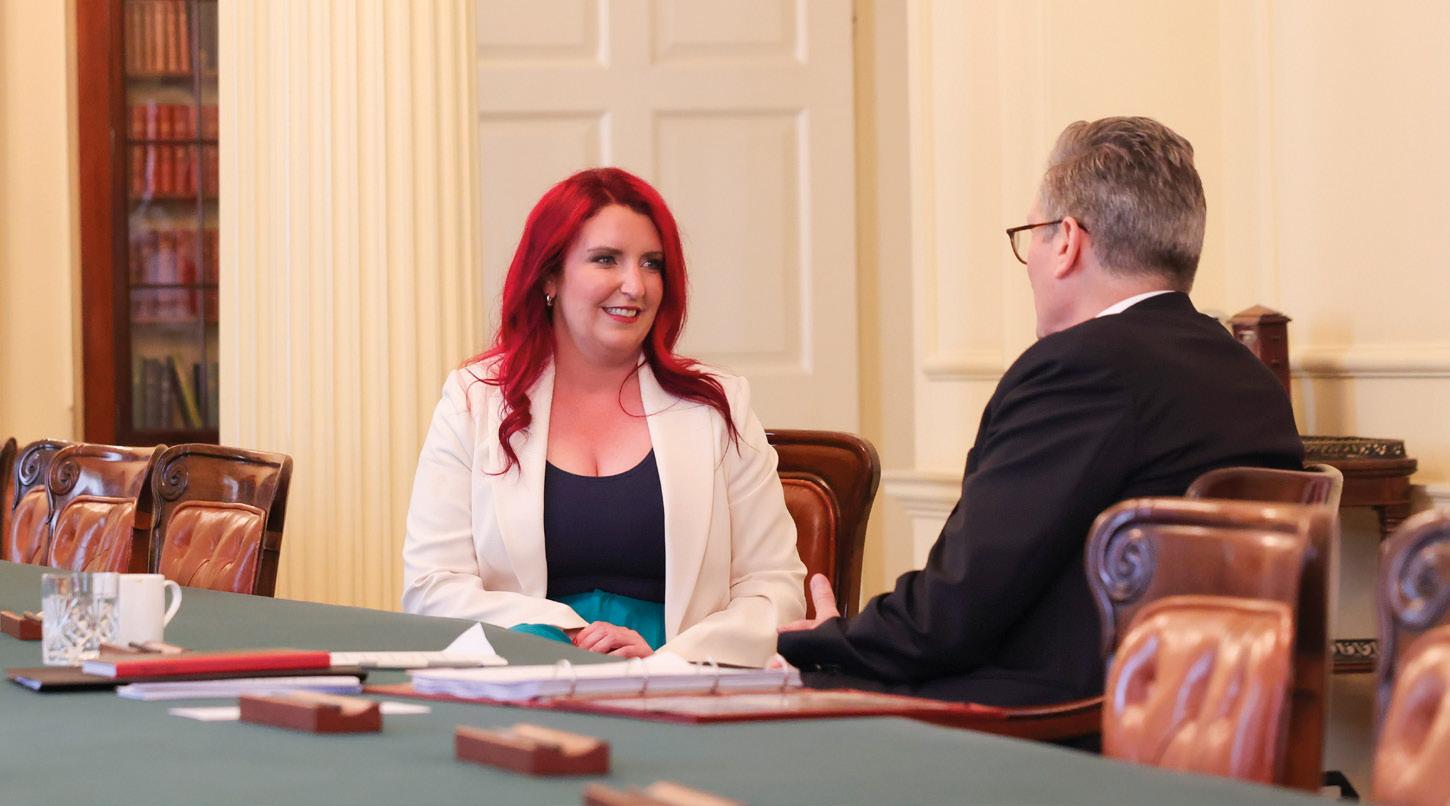
Deliver a best-price ticket guarantee for passengers, as integrated, digital ticketing is rolled out across the rail network.
Deliver significant savings to the taxpayer by eliminating fragmentation, waste, and unnecessary bureaucracy.
Give devolved leaders a statutory role in the rail network, allowing decisions about the railways to be taken closer to the communities they serve.
Darren said: “UK rail connects communities to jobs, training, services, and leisure. It remains a vital catalyst which drives economic growth and productivity, contributing £43 billion to the economy and supporting some 710,000 jobs.
“Labour needs to grasp the opportunity to refresh rail for the future, to boost capacity, meet future demand, and to take a long-term and strategic approach which harnesses the best of both the private and public sectors.
“As ever, the first 100 days of a new Government will set the overall direction of travel. We need Labour to ensure it accelerates rail reform as a matter of urgency – to give structure and certainty to the railway industry – and to bring forward orders of low-carbon trains. The next Government should also focus on top-line growth, not just bottom-line cost efficiency, if it wants to build sustainability and investment.”
Responding to news that Louise Haigh is the new Transport Secretary, Rail Partners’ Chief Executive, Andy Bagnall, said: “Congratulations to Louise Haigh on her appointment as Transport Secretary.
“The railway is facing severe challenges and train companies agree that urgent rail reform is needed. Getting this reform right is critical for the UK’s economic growth, sustainability and the public purse.
“Rail Partners and its members hope to work with the new Transport Secretary and her wider ministerial team to ensure the railway is delivering for passengers and freight customers.”
Paul Tuohy, Chief Executive of transport charity Campaign for Better Transport, added: “We welcome the appointment of Louise Haigh as Transport Secretary and we look forward to working with her,
and her new team of junior ministers, to help improve transport for communities up and down the country.”
Labour has a strong platform to build on. Passenger growth will soon reach 100 per cent of pre-pandemic levels and, according to the recent RIAcommissioned Steer report, passenger numbers could double by 2050 – so a bright future for railway growth is achievable with the right political ambition and commitment. Railway professionals are determined to provide the best possible service to customers, both passenger and freight, and are dedicated to ensuring the industry works better than ever before.
Population growth of 10 per cent by 2035 and passenger growth projected to increase between 37 per cent and 97 per cent in the next 25 years are a reminder that existing rail capacity will not meet future demand. In fact, Treasury advisory body the National Infrastructure Commission recently suggested that this is a significant risk to future national growth, with the problem particularly acute in major English cities outside London, such as Birmingham, Manchester, Leeds and Bristol.
Growing rail use is one of the quickest ways to reduce carbon emissions and improve air quality. Although transport generates more carbon than other sectors, rail is responsible for less than two per cent of these emissions. So increasing rail patronage and freight volumes can also reduce road congestion.
Darren said: “RIA and our members now look forward to working with the new Government to achieve its goals for rail. And with passenger growth returning strongly, and as we seek a fresh start for the UK railway industry, we urge the new Government to deliver on our and our members’ five main RIA Manifesto asks: to publish a long-term rail strategy; bring about railway industry reform; accelerate new train orders and low carbon network upgrades; support a sustainable supply chain; and leverage private investment.
“We wish the new Government well on its ambitious transport agenda, and specifically its plans for rail, in the coming months and years.”
Darren’s optimism is shared by David Pitt, VP of UK Rail at SilverRail, a leading provider of rail technology, who said: “Given their commitment to public ownership through the introduction of
GBR Labour’s victory marks a significant turning point for the rail industry. However, under this fresh vision the new Government must continue to leverage the advanced technologies supplied by the private sector in helping to remove fragmentation and to make rail less complicated for passengers in this digital age.
“Not only that, but Labour must also foster a strategic retail mindset putting the passenger at the forefront of rail industry thinking. As we likely move towards a single GBR brand, removing barriers for customers in where and how they purchase GBR train tickets for all services should be a first objective. Importantly, GBR must also bring a coordinated retailing proposition to market via a GBR online website, GBR mobile app, GBR ticket stations, GBR smart kiosks, and enable high street retailers to sell GBR tickets.
“Motivating the public to use the railways again can only be achieved through a fully coordinated GBR retail proposition through the GBR brand. This must include a trusted place for the public to find and buy the cheapest fare for their chosen journey and without the need to pay booking fees. This strategic shift, coupled with meticulous planning and a focus on customer experience, will be fundamental in the new Government’s effort.
“It is Labour’s vision to bring together track and the train, but they also need to ensure that they unite the customer with GBR operations. Without supporting the customer in the same way that train operators have through direct digital means, it will be impossible for GBR to manage and respond to customer expectations.
“The industry has been in a state of flux for some time, but with the clarity that a new Government brings and an ambitious vision to match, I am optimistic that we will see the return of an efficient service that provides genuine value for passengers.”
Rail industry commentator and Rail Director writer Nigel Wordsworth said: “It will be a whole new chapter. Let’s hope Louise and her rail ministers are prepared to talk to people in the know and not just the Department for Transport, United Kingdomindustry, unions and even journalists (ahem) - before coming up with a plan.”
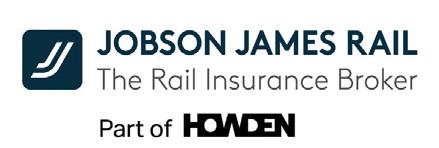
There are indications that around 80 per cent of commercial properties* are not adequately insured, with some only insured for half the amount they should be.
Following a major loss, a lack of adequate limits and cover in place can hinder a business’ recovery speed and possibly jeopardise its chance of survival. Having a comprehensive insurance programme in place will ensure you can get back to business as usual as quickly as possible. It is important that throughout your policy you are continually assessing your sums insured and ensuring accurate levels of cover are in place.
Underinsurance occurs when either the buildings, contents, stock or plant/ tools sums insured on a property or contract works policy do not represent the current value of the items at risk or where limits within a policy are

inadequate for the policyholder’s needs. It is important to remember that any sums insured should represent the full extent of the risk.
In the event of a claim, underinsurance can result in economic loss to the policyholder

as insurers will apply Average to any losses, meaning that the insurer will only pay a proportional share of a claim if the insured property is underinsured at the time of loss.
In extreme cases, the insurer may consider the underinsurance to be a misrepresentation of the risk which could enable them to impose additional terms or even void the policy.
So, how can you avoid being underinsured?
By reassessing your sums insured and policy limits, and considering storage of stock/materials increasing for new contracts. You can consult with a professional valuation service to receive guidance on the values that you have at risk.
Some will simply look at buildings, whilst others will also review assets. Some insurers will waive the average
condition where a professional valuation has been obtained within the last three years.
This means that, if the sums insured have been based on a professional valuation (and index linked), then any claim payment will not be reduced. Something that could mean the difference between a business surviving or going under.
At Jobson James Rail, we are able to provide you with details of recommended Professional Valuation companies, should you require their assistance.
If you would like to speak to someone further about the risks of underinsurance, contact us today on 07973 963350.
www.jjrail.co.uk
*BuildingCostInformationService SurveybyRoyalInstitutionof CharteredSurveyors


•
•
•





SEP Rail Group unveils a new warehouse and office facility in Sevenoaks, enhancing its operational efficiency and client support across the South of England

With five existing locations already cementing its presence in the North, the group has unveiled a new warehouse and office facility over 250 miles south of its most southern depot.
As its monitoring and surveying arm, SEP Rail Services, marked its sixth year of operation this June, Rikki Morrow, Managing Director, emphasised the timeliness and strategic importance of this expansion.
The SEP Rail Group has deep roots in the North of England, with many of its senior staff and team members hailing from the region.
The firm’s commitment to the local communities is evident through its support of grassroots sports teams and collaborative efforts with local students to foster interest in rail careers.
This connection to the North has been a fundamental part of its identity, driving its reputation for reliability and proactive support. The group’s consistent performance has made it the preferred partner for principal contractors and supply chain partners across the country.
However, as the demand for services grew, it became clear to Rikki Morrow that a more strategic approach was necessary to manage the workload and upcoming projects efficiently.
“We were known for our ability to react fast. Having to travel hundreds of miles to respond to an emergency was adding time that our clients couldn’t afford,” Rikki explained. “We chose Sevenoaks as it provided the ideal location to service clients across the South of England.”
The new facility in Sevenoaks, Kent, covered an expansive 6000 square feet, equipped to house the essential tools and equipment utilised by all six companies within the group.
This included advanced monitoring devices, surveying equipment, and various other resources vital to their operations.
The office space would accommodate a dedicated team of up to 20 staff members, ensuring that the group’s Southern operations were provided with the same level of support as its established Northern presence.
“Members of our core team were relocating to support this move,” Rikki explained. “To ensure that clients received the exact same level of service, we were establishing a permanent team to lead our Southern operations.”
With experienced team members on-site, the company could uphold its reputation for reliability and proactive support, providing clients in the South with the expertise and responsiveness they had come to expect.
To support this move, SEP Ecology, the group’s newest firm specialising in ecological support, is looking to hire ecologists across the South of England, with both entry and senior level positions. More information on open positions could be found at www.seprail.co.uk/recruitment.
As SEP Rail Group continues to grow, its focus remains on maintaining the quality and reliability that has been its hallmark.
The new Sevenoaks office is a crucial step in its journey, providing a footing for the next five years of development throughout CP7.
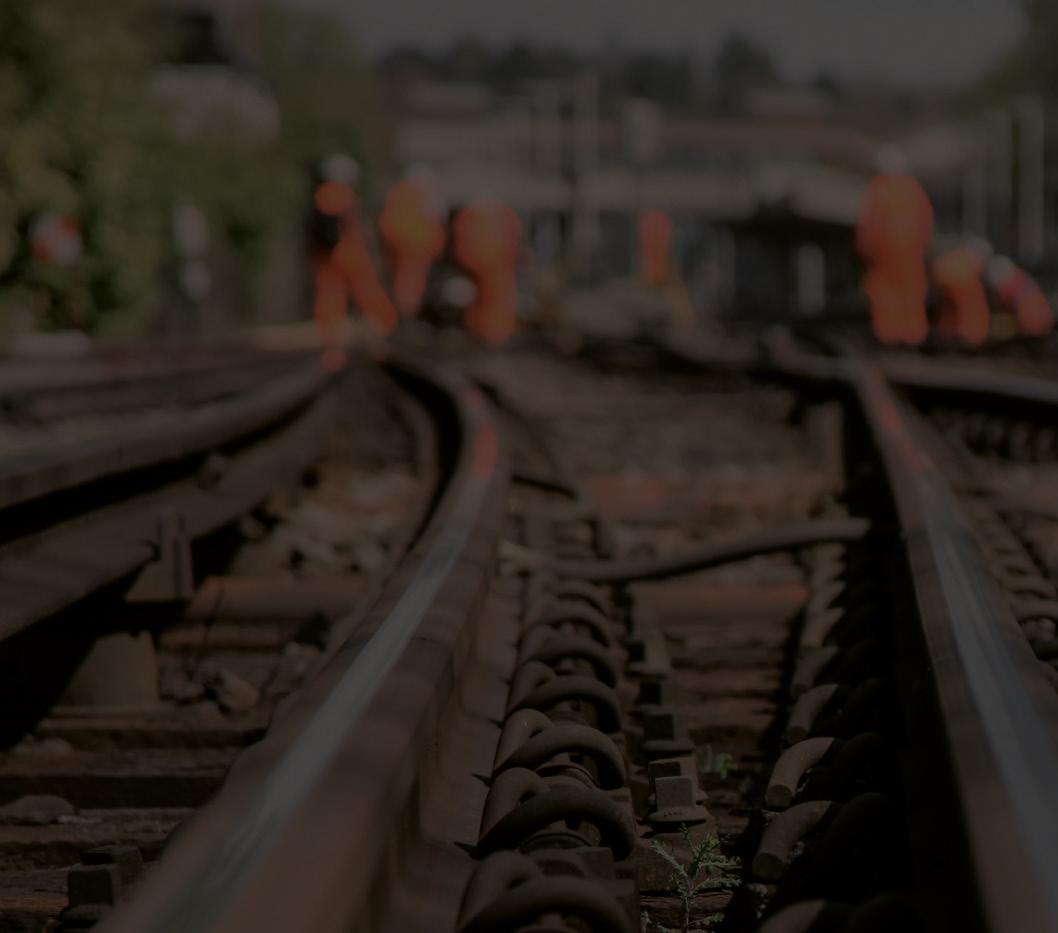



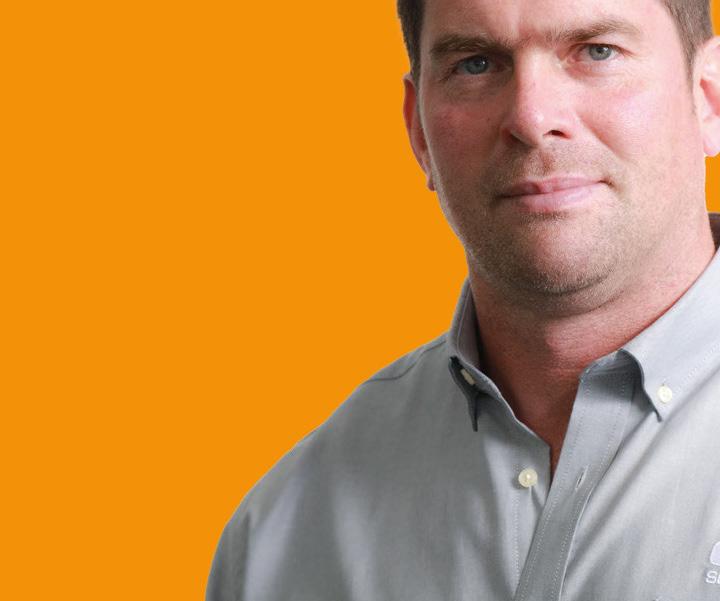


Major
Bristol
to support the
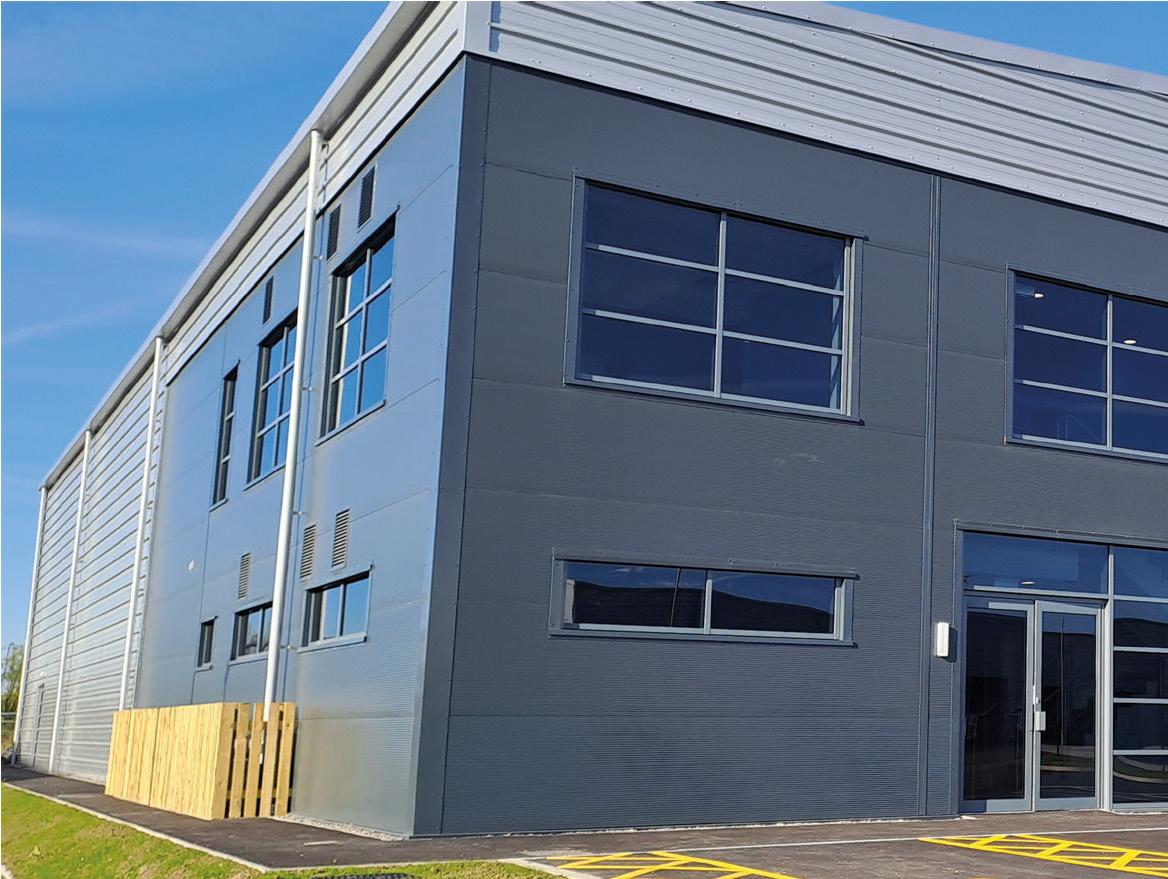
Kelling Group is thrilled to unveil its latest expansion plans: the establishment of a pioneering facility at Boscombe Business Park, in Avonmouth, Bristol, poised to serve as a central hub for Welfare Hire Nationwide, a flagship division of Kelling renowned for its innovative, eco-friendly towable mobile welfare units and WCs, lithium lights, and welfare vans.
With an unwavering commitment to excellence, Welfare Hire boasts the largest fleet of modern, innovative, and eco-friendly welfare units on the market. The ECO range represents the pinnacle of innovation, integrating smart and unique design features to optimise onsite welfare and lighting, setting new standards for efficiency and sustainability.
“As the market leader in the mobile eco welfare hire sector, our mission at Kelling is to redefine the standards of onsite welfare solutions,” remarked Stephen Moore, CEO of Kelling Group. “Our investment in the Bristol facility underscores our dedication to providing cutting-edge solutions that not only meet, but exceed the expectations of our clients.”
One of the hallmarks of Welfare Hire is its steadfast commitment to quality and service. Kelling continuously invests in maintaining the highest standards, ensuring that clients benefit from the latest advancements in welfare technology, including solar, lithium batteries, rainwater harvesting and telemetry.
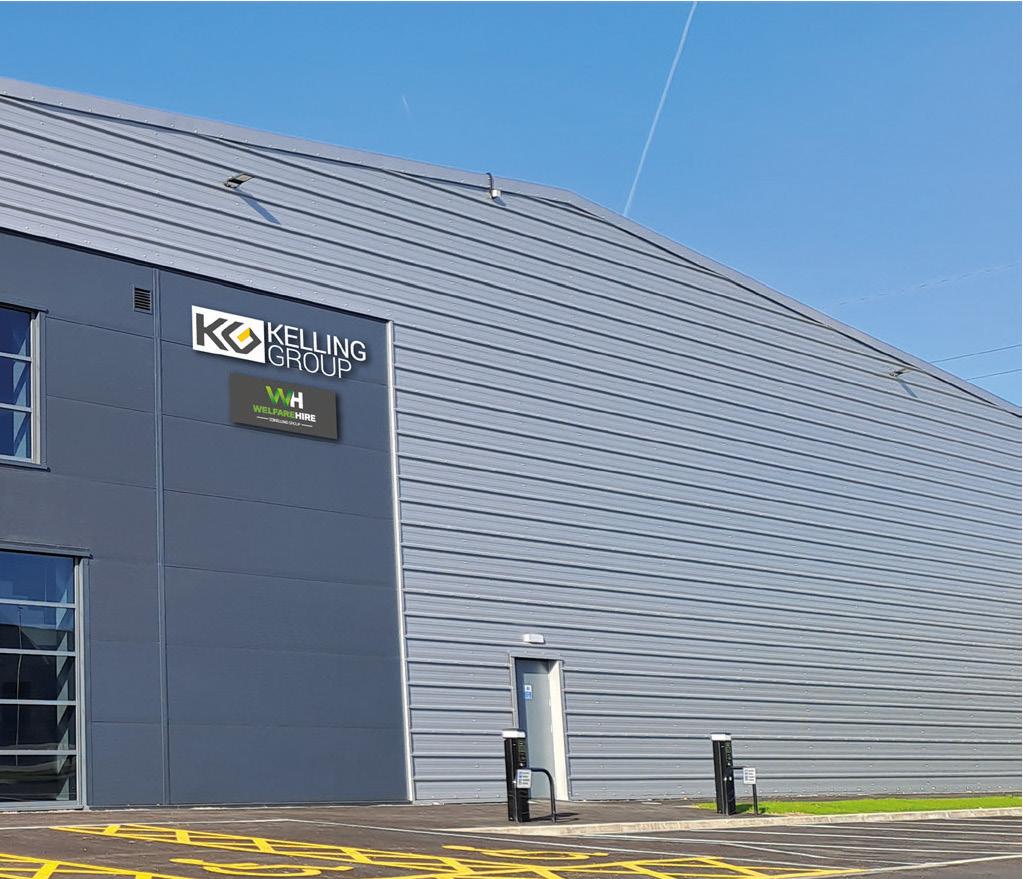
The Bristol facility, on a site stretching to over three acres, will serve as a testament to Kelling’s long-term investment in the sector and dedication to innovation and sustainability, providing a strategic base for the ongoing development and deployment of nextgeneration mobile eco welfare solutions.
Beyond Welfare Hire, the facility will also support Kelling’s broader operations, of its sister business Access Hire, the UK’s largest lease / hire provider of van mounted access platforms.
As Kelling prepares to have operations fully up and running throughout May/June, the company looks forward to ushering in a new era of innovation, service excellence, and sustainability in the welfare solutions landscape.
The Bristol facility will see Kelling create new jobs in the region for depot and field-based engineers, drivers and valeters.
Any potential applicants should send their CVs to hr@kellinggroup.com with the subject “Bristol Expansion”.
Kelling Group is a leading specialist provider of critical asset and service solutions to key infrastructure sectors, with a focus on innovation and sustainability.
With a rich legacy of excellence and a steadfast commitment to customer satisfaction, Kelling Group continues to redefine industry standards and shape the future of infrastructure development.
At Kelling Group, the mission is simple yet profound: to deliver pioneering solutions that not only meet but exceed the expectations of their clients while fostering a sustainable future for generations to come.
With a versatile portfolio spanning rail, civil engineering, utilities, environmental services, and beyond, it brings a wealth of expertise and experience to every project it undertakes.
Central to its success is its specialist flagship divisions. Firstly, Welfare Hire Nationwide, renowned for its cutting-edge mobile eco welfare solutions tailored to the evolving needs of its customers, and secondly Access Hire Nationwide the UK’s largest lease/hire van mounted platform provider.
By embracing sustainability as a guiding principle, the group pioneers innovative solutions that prioritise environmental responsibility without compromising on performance or efficiency.
From state-of-the-art mobile welfare units equipped with eco-friendly features to modern fuel efficient or electric access platforms, it sets the standard for sustainability in mobile welfare and access solutions. Driven by a passion for excellence and a relentless pursuit of innovation, Kelling Group remains at the forefront of the industry, continuously pushing boundaries and setting new benchmarks for success.
Contact: Marc Pearce, Group Marketing Manager, Kelling Group www.kellinggroup.com marc.pearce@kellinggroup.com 07977 456142
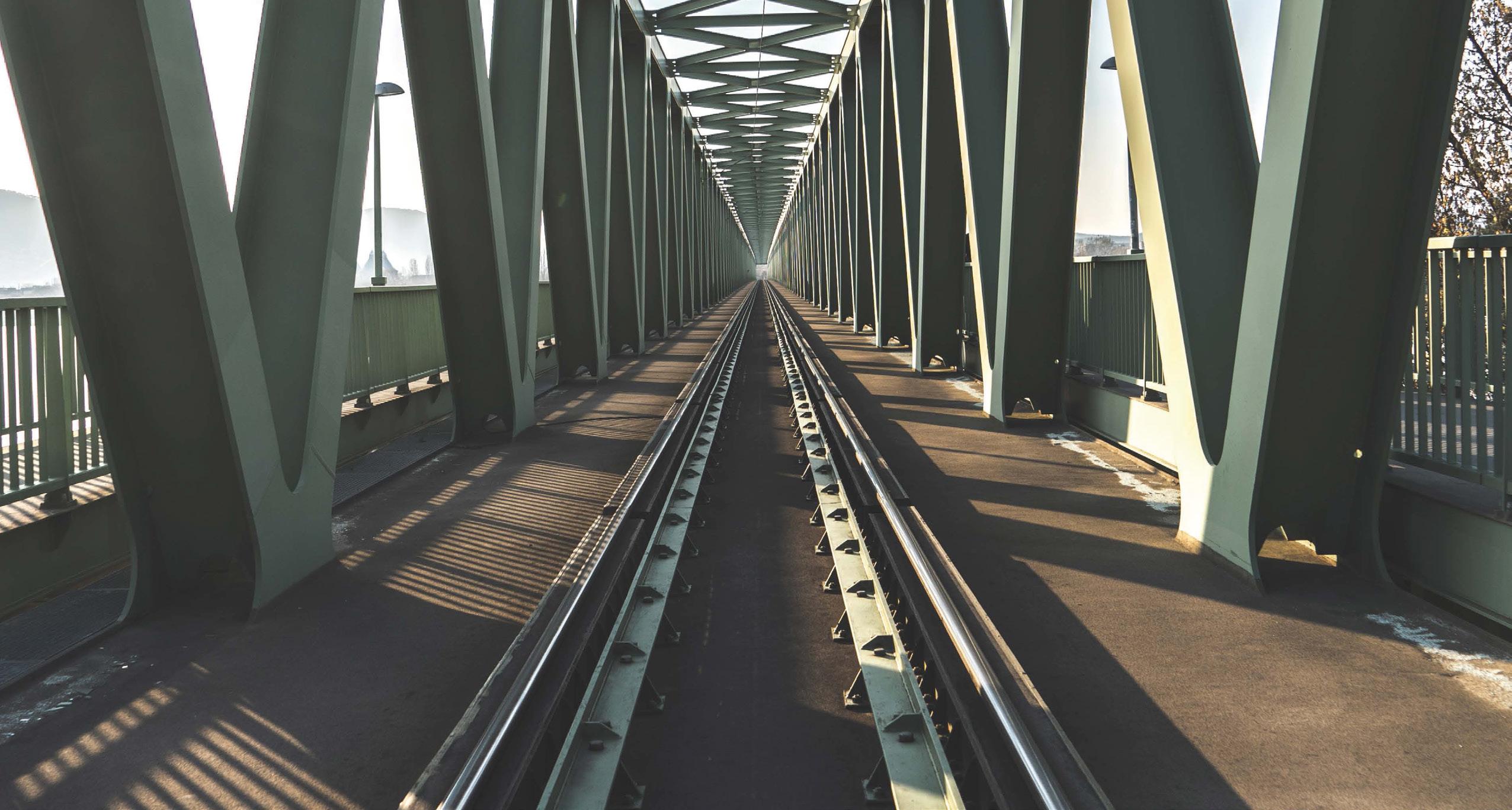







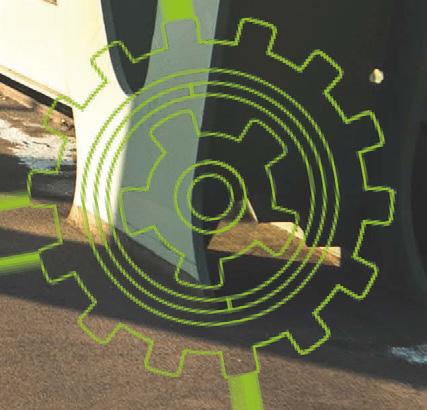
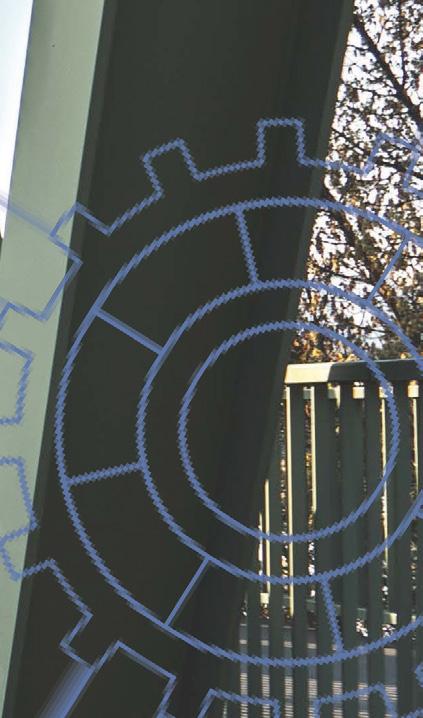


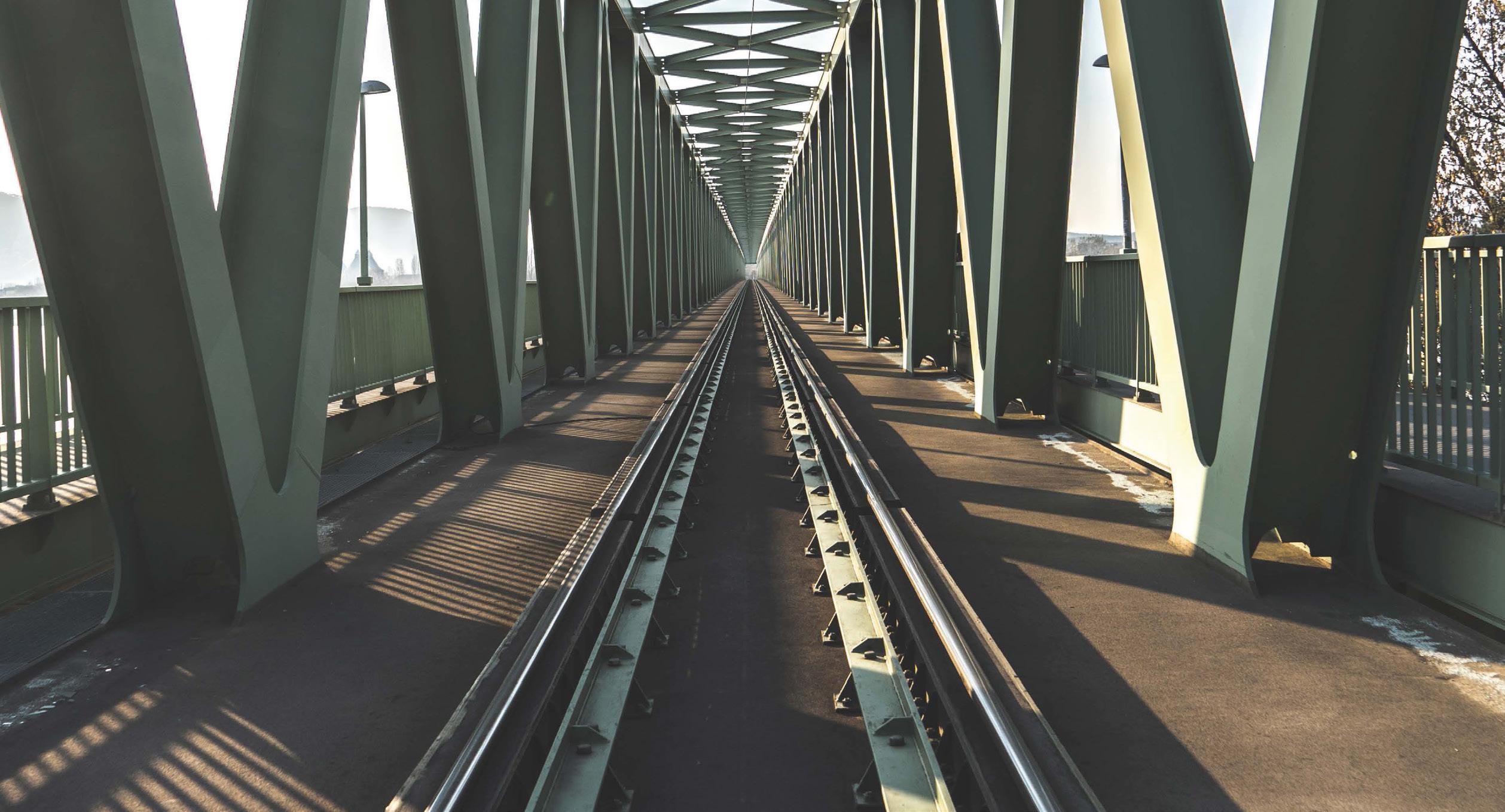
We provide a wide range of rail infrastructure design services across the UK to include the following...










Protection schemes 01270 255 731 enquiries@engauged.co.uk www.engauged.co.uk

Rob Mullen, Managing Director (MD) of c2c, discusses the operator’s Class 720s and 357s, the important role it has to play in the community, and why he is optimistic for the future
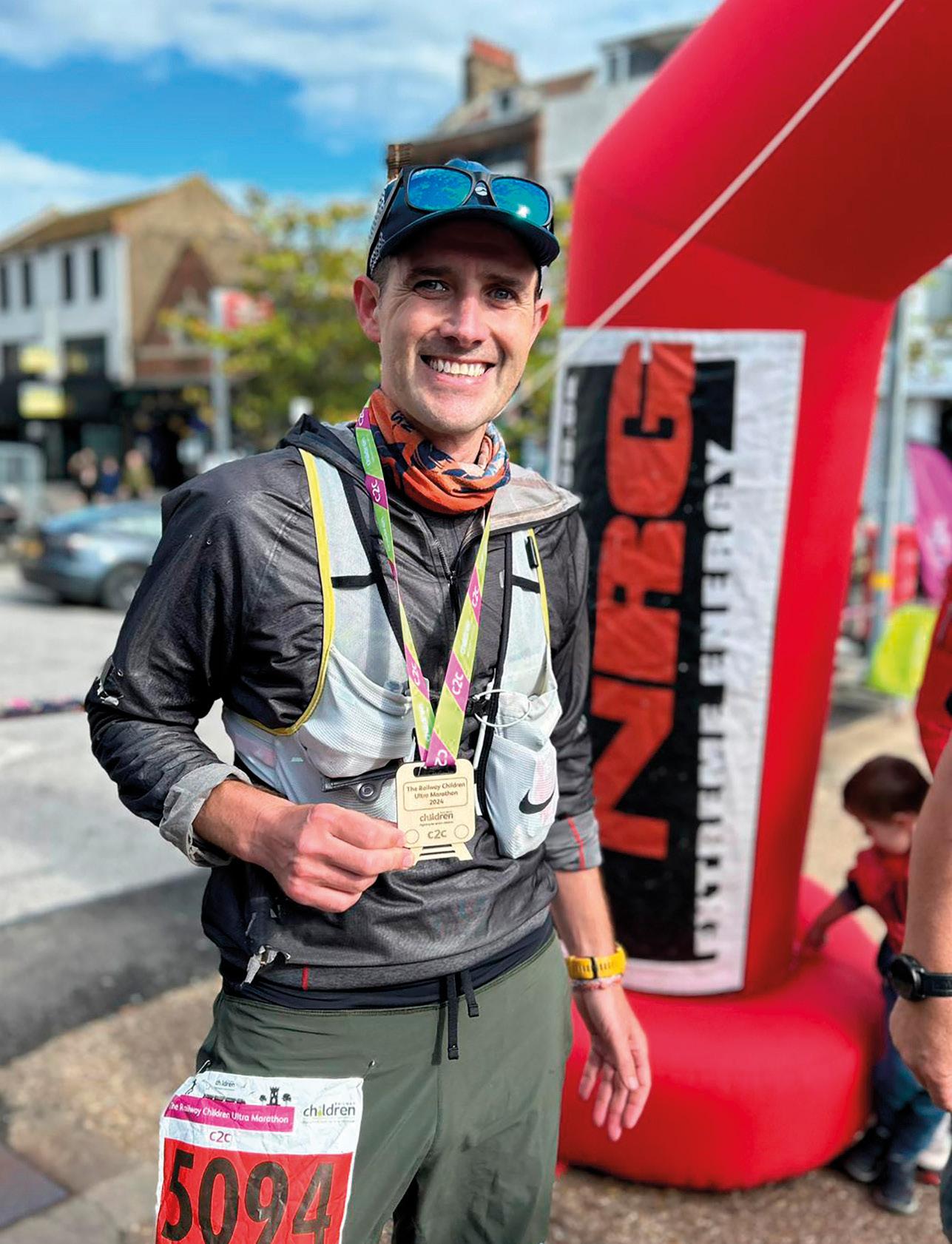
“P
roud” and “progress” are the two words Rob Mullen, Managing Director of c2c, has used to sum up his first two years in charge of the train operator.
“Proud because we have some really good people who are talented and passionate in ensuring the railway is safe and efficient, and progress around the work we have done around understanding our business and improving the way we operate and serve the community,” he explained.
It was a message Rob emphasised at the organisation’s recent quarterly leadership conference, while also pointing out there is still a lot of progress and opportunity ahead.
“We have to continue to make this railway a better place for our customers and for the wider environment,” he said. “We have an important role to play in making people wealthier and happier and in creating opportunities and options, but to fully succeed in doing so we need to be an integral part of the community.
“Because of our safe, sustainable performance, we probably don’t get the attention we deserve, so we need to create the pace ourselves and take that leadership position for our railway by bringing the ports and freight demand together, pushing for investment in our railway, the region and the community.”
We’ve got to get better at getting every pound of value out of every pound we’ve spent
The operator, which runs services between Fenchurch Street and Shoeburyness, is happy to go the extra mile for the community, quite literally, emphasised by its inaugural c2c The Railway Children Ultra last month, which saw more than 250 runners take on either a 30 or 50-mile run. More than £25,000 has been raised so far from the challenge to support vulnerable young people, but more than that Rob said it was an opportunity to promote the local area, which he describes as “the Essex Riviera”. Runners from all corners of the UK covered a wide and varied range of industrial landscapes, marshland, nature reserves, countryside trails, beaches and seaside towns as they ran east across the banks of the river Thames to the finish line in Southend.
As well as that, the organisation has supported several local initiatives, including the unveiling of the first free period care product dispensers at its stations, starting at Grays railway station, as part of its collaboration with Thurrock Council’s Youth Inspire Hub 2023 programme, Thurrock’s Next Top Boss. c2c set schools and colleges in the area a business challenge to create a project which would help the operator increase community support and engagement.
“We’ve got to get better at getting every pound of value out of every pound we’ve spent,” he said. “We’ve recently created a £10,000 social budget giving colleagues the opportunity to write in for funding to support local groups and issues, with grants of up to £370 available. Those sponsorships all add
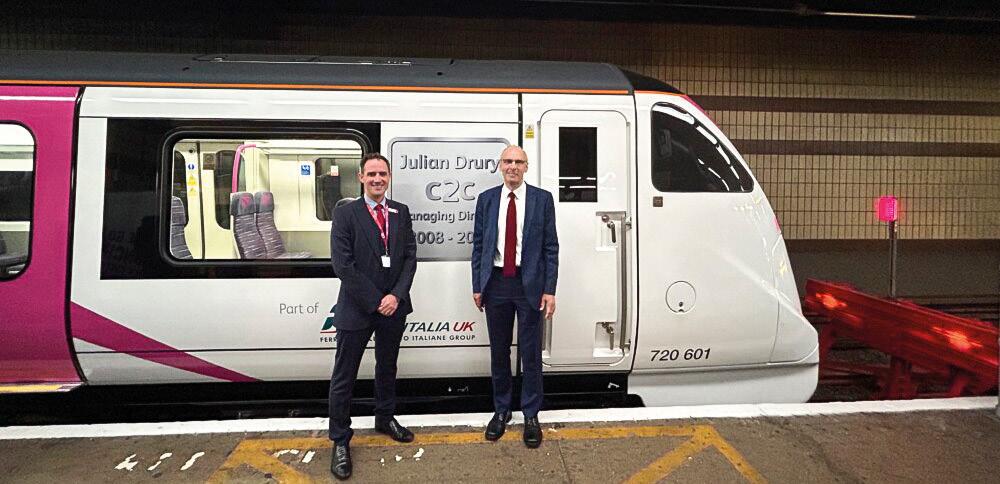
up to seeing c2c more involved in communities and being recognised as playing an important role in the community and its people.
“When I say we’re a community railway I genuinely mean it and that is something my colleagues go above and beyond to ensure. I feel a real duty around the socio-economic benefit and socio-economic wellbeing of Essex Thameside. We play such a crucial role in people’s livelihoods, commercial development, and opportunities.
“Our job is to get people from A to B safely, to try and give them value for money, and to ensure people see the value of c2c. I think we’re at the tip of the iceberg in terms of what we can do, we have so much more to offer. But we have to make sure that we





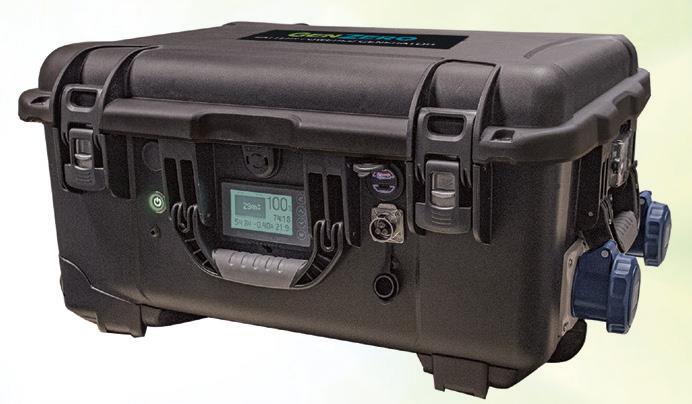





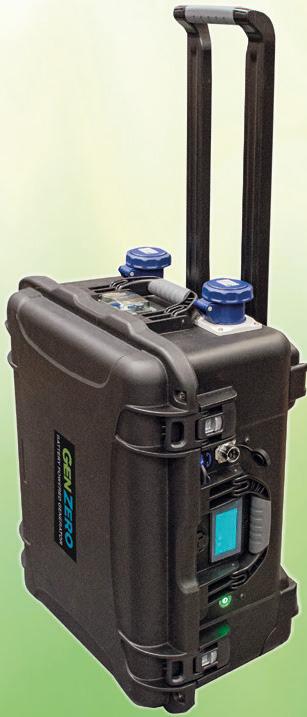






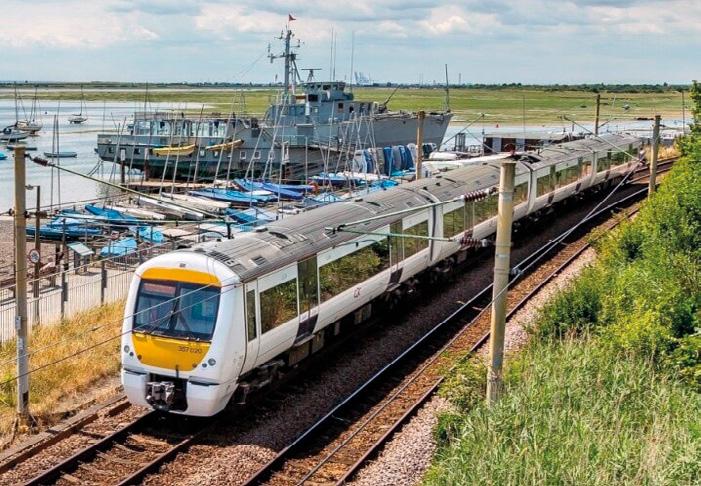

I’m really optimistic about the future of c2c but we need this optimism to be bred through the organisation
are using taxpayers’ money effectively, so we’ve got to get the best value out of that. Our job is to move trains punctually, safely, and efficiently in a caring capacity that puts our communities at the centre of it, and that is what we are focusing on.”
Rob recently passed his second anniversary at the East London and South Essex rail firm, having joined from Thameslink and Great Northern, part of Govia Thameslink Railway, where he was Train Services Director.
It’s already been some journey, and something that continues to gather pace, both on and off the track. The award-winning train operator which serves 26 stations, has recently launched its new timetable, which includes an additional 190 services each week, providing many customers with a regular four train per hour, 15-minute service.
He spoke to Rail Director shortly after celebrating a major operational milestone, as its fleet of 357 Electrostar trains clocked up 150 million service miles – an average of two million miles per unit and roughly equating to a trip from Earth to Mars.
“They are an absolute workhorse and they still perform really well for a train that is more than 20 years old,” he said.
The Class 357s were introduced to the c2c line in the early 2000s, replacing the slam-door trains which had served the route with British Rail for many years beforehand. It’s recently been announced that the fleet will be renewed, a near £9 million project which will see Alstom carry out work to refresh the 74 units, and will help to create an additional 25 jobs locally in the process.
“They are going to look so smart on the outside, but then there is going to be the challenge of making sure they look fantastic on the inside as well, so we are looking at LED light replacement and a good polish, so we will keep pushing for the investment,” he said. “The Class 357 lease comes up in 2029 so we’ve got
to start planning; we’ve seen the positive impact that our brand-new Class 720s have had and we’d like to replicate that impact.”
The 720s that Rob refers to are the new trains on the track for c2c, which started entering passenger service last September.
The new five-carriage units can be used as five carriage trains or coupled together to form 10-carriage trains, and are longer with more seats, the addition of power and USB sockets at every seat, improved wi-fi, and air conditioning.
The new fleet also benefits from open gangways, which are designed to make it easier for customers to walk between carriages and have improved accessibility features as well as toilets on every train and dedicated cycle spaces.
“I used to drive the 357s so I love them, but these 720s are such a different experience, you can see all the way through them, big windows, well lit, and we are hearing some great feedback. This huge investment is having an important impact,” he said.
“The 720s are a real weapon in our arsenal and they are an important part of the work we are doing to improve people’s journeys.”
Looking to the future and Rob is confident that there is a lot to be excited about as the train operator, currently owned by Italian-based Trenitalia, hopes to win the contract to run train services in Essex for up to eight more years.
“I’m really optimistic about the future of c2c but we need this optimism to be bred through the organisation,” said Rob. “We collectively have to be confident about the role of c2c, the role the railway plays in Essex Thameside in the success of the area and the region.
“We have to step into that leadership role to deliver those benefits to give people better working lives and social lives and to meet that environmental challenge as well. We can make real steps to make people choose the train, but I think we collectively have to believe that; be vocal and take the lead. The railway is kind of taken for granted and we’re in an environment where it’s going to be even harder competing for every pound of investment.”
Its current contract was due to end last year, but was extended until July next year. The Department for Transport recently published a prior information notice, which said a new contract lasting for between three and eight years will be awarded when the current one ends.
“I think we’ve got a really good story to tell and a really good horizon that we can sell, but we’ve got to step into that leadership place,” explained Rob. “This is our problem to solve; nobody is going to come and save us. We have great people, c2c breeds really good talented, roll-your-sleeves-up, get involved-type people. We’re a small tightknit team that gets stuff done.
“We have to demonstrate why we are here and why we are in this space and our communities will support us in that because we are open and honest in our approach; fundamentally we are passionate to serve our communities and I’m proud to see that shine through the organisation.”

Railway Competence Group (RCG) are a premier provider of comprehensive train driver assessment and training services. Our suite of offerings, including Train Driver End Point Assessment, Psychometric Testing, and Train Driver Incident Prevention Courses, are designed to elevate the standards of railway operations and safety.
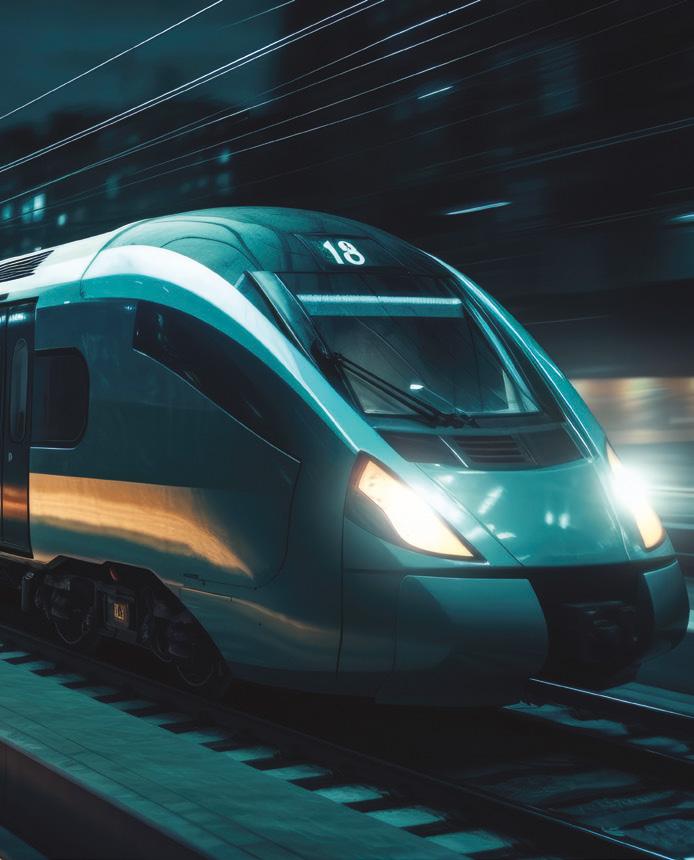
Over 150 exhibitors showed off their latest technology at the 2024 Rolling Stock Networking (RSN) event which, combined with a conference organised by Rail Partners, attracted more than 2,000 delegates to the Derby Arena. Nigel Wordsworth reports from the event
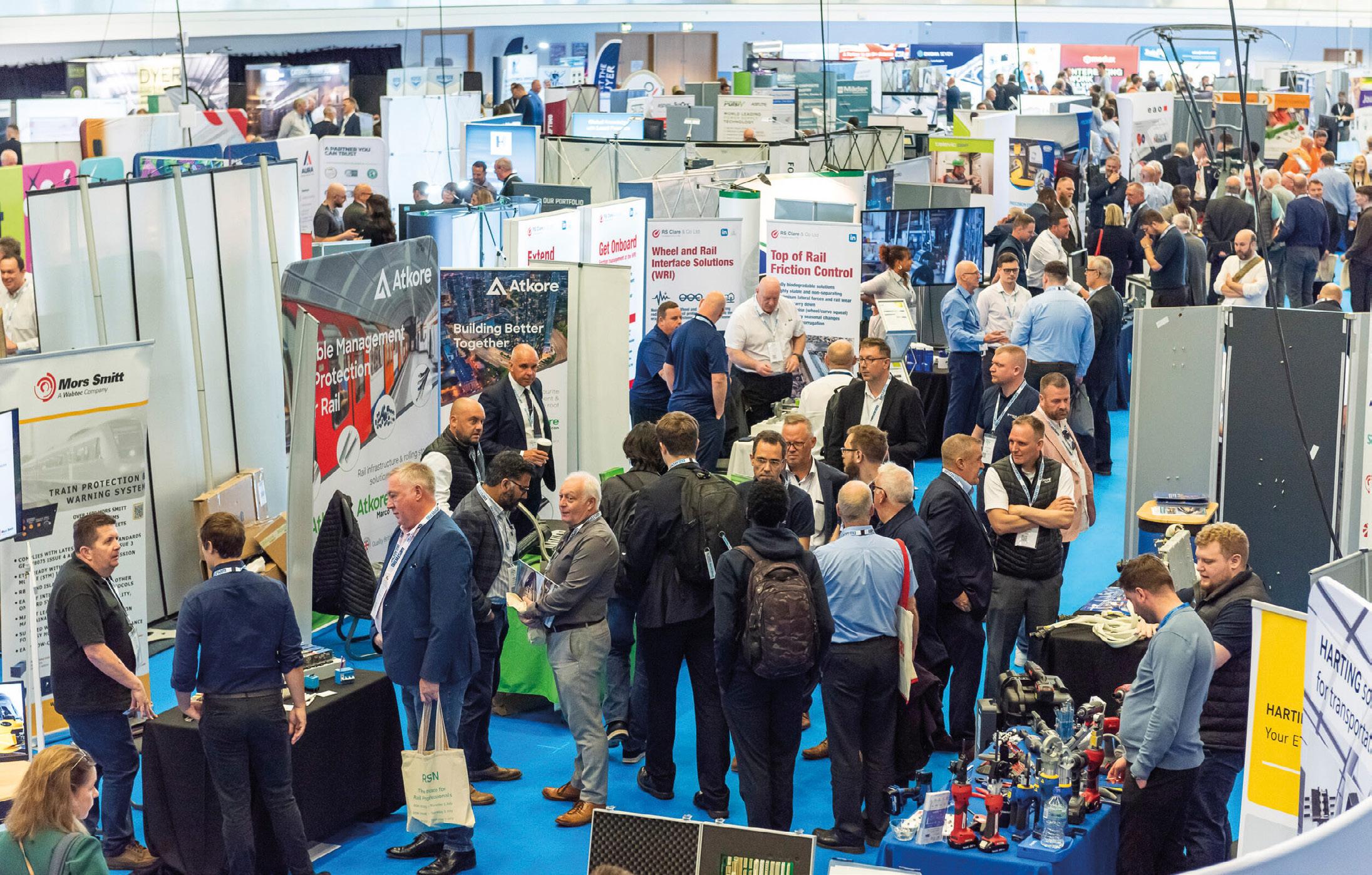
Britain’s rolling-stock supply industry is in a good place at present, if the recent RSN event is anything to go by. Held annually at Derby Arena, RSN 2024 attracted over 150 exhibitors, all keen to show off their latest products, services, and technology. They, in turn, drew more than 2,000 people to the popular East Midlands venue.
The range of products on display was impressive. On the exhibition floor, one could find everything from some specialised nuts and bolts to a full-sized pantograph, along with a mind-boggling array of digital offerings. There was seemingly a programme to analyse anything one might want, and then display the results on a screen or headset.
Just a flight of steps above the exhibition floor, Rail Partners, the trade association for train and freight operators, presented a conference in two parts – a
morning session on Enabling Innovation in Rolling Stock and an afternoon look at Transforming Depots.
The show being held coincidentally on General Election day – 4 July – there was plenty of discussion over coffee, both on stands and in the café, but most of it seemed to be about railways and not politics.
The show was opened by Olivier Quindos, Europe Services Procurement Director at Alstom, who spoke about the strength of the UK supply chain and wished exhibitors a successful day. The doors then opened, allowing the early arrivals to enter the hall and start to make their way around the various exhibits.
Westermo was the exhibition’s main sponsor, and its stand certainly attracted attention. A range of products were on show, all designed and manufactured for the rail industry. These included
industrial Ethernet switches, wireless (Wi-Fi) devices, routers and modems, all providing robust, reliable, and secure data communication solutions for mission-critical applications.
It is difficult to choose which stands to mention, they were all so well presented. However, space is limited so perhaps a few varied descriptions will give readers a flavour of what was on show.
The sales team from Harting was there in force, presenting its market-leading range of products as well as some of its new developments - including highcurrent interfaces for the exterior of rail vehicles.
Flotec, a leading supplier of reliable hose and engineering solutions to rail, is based in Loughborough, less than 20 miles away. Barry Aldridge, Head of Marketing, was pleased with the interest shown in his products. “Rolling Stock Networking has gone from strength-to-strength
strong foundations
With a keen eye on the future, Kieran recognised there was a gap in SEP Geotech’s offering:
with piling. The purpose of our investigation forms the basis of the pile design, and our sister company, SEP Rail Design, designs the piles; now we will install them.”
installation of foundations driven or bored into the ground to transfer loads to deeper, more stable soil. These structural elements are essential when the natural bearing capacity of the soil is insufficient for supporting heavy construction loads.
While the demand is always there for new staff, Kieran knows the value of hiring the right people:
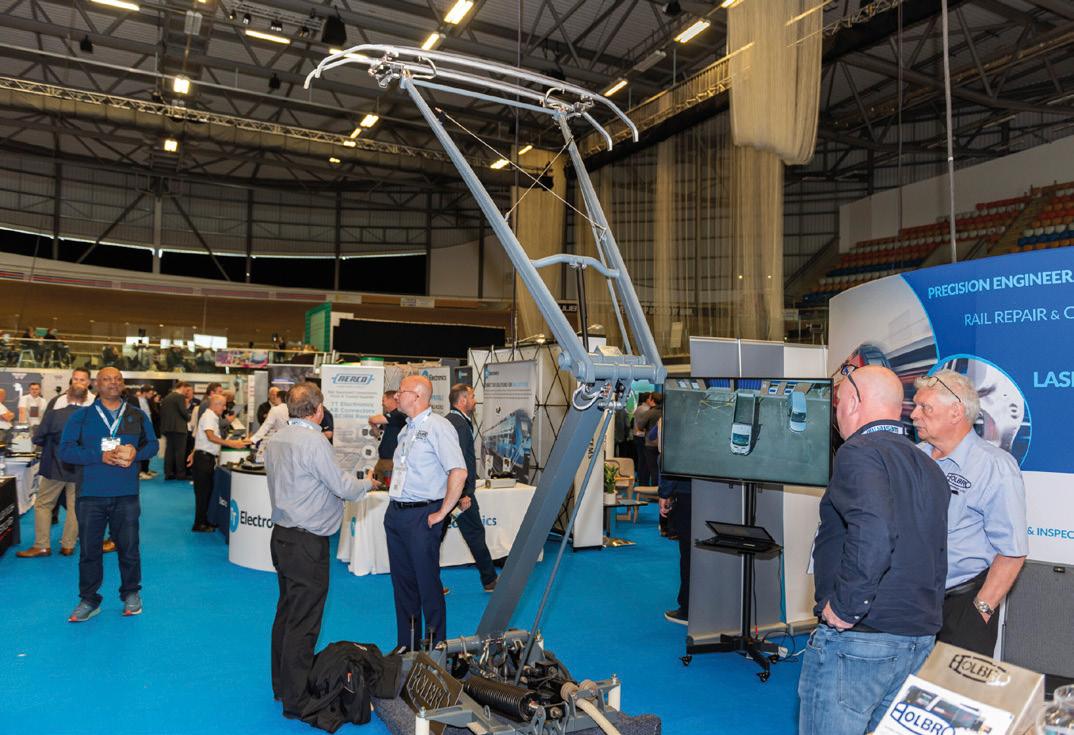
“This industry isn’t for the faint-hearted. Late nights, early mornings. Long periods of time away from your family. My office is my mobile phone and my van; we’re always on the road, on-site, and getting
“Our team shares a deep commitment to the enduring success of our business and is constantly seeking ways to enhance their skills and improve our
“We take pride in being one of the few geotechnical companies that offer specialised drilling NVQs to our team, ensuring that our workforce remains at the forefront of industry
developed since his teenage years, has been centred around piling. He explained:
“This is a critical moment for the piling and foundations industry. Exciting innovations within pile design and installations are allowing for improved project turnaround times and more technically demanding programmes.
since its inception and is a well-attended exhibition from many cross sections of the rail industry,” he said. “It makes perfect sense for Flotec to have a presence, showcasing an exciting and varied portfolio of products, all designed to improve train fleet performance and reliability.”
“By leveraging our team’s experience, alongside utilising the wider SEP Rail Group’s capabilities, SEP Geotech is in a perfect position to deliver projects from feasibility to design through to completion.”
Prioritising growth and expertise
DB ESG had even less distance to travel, being a Derby company. A new stand design, in eye-catching orange and white, attracted the eye and visitors, keeping the staff busy talking about possible rolling stock engineering solutions.
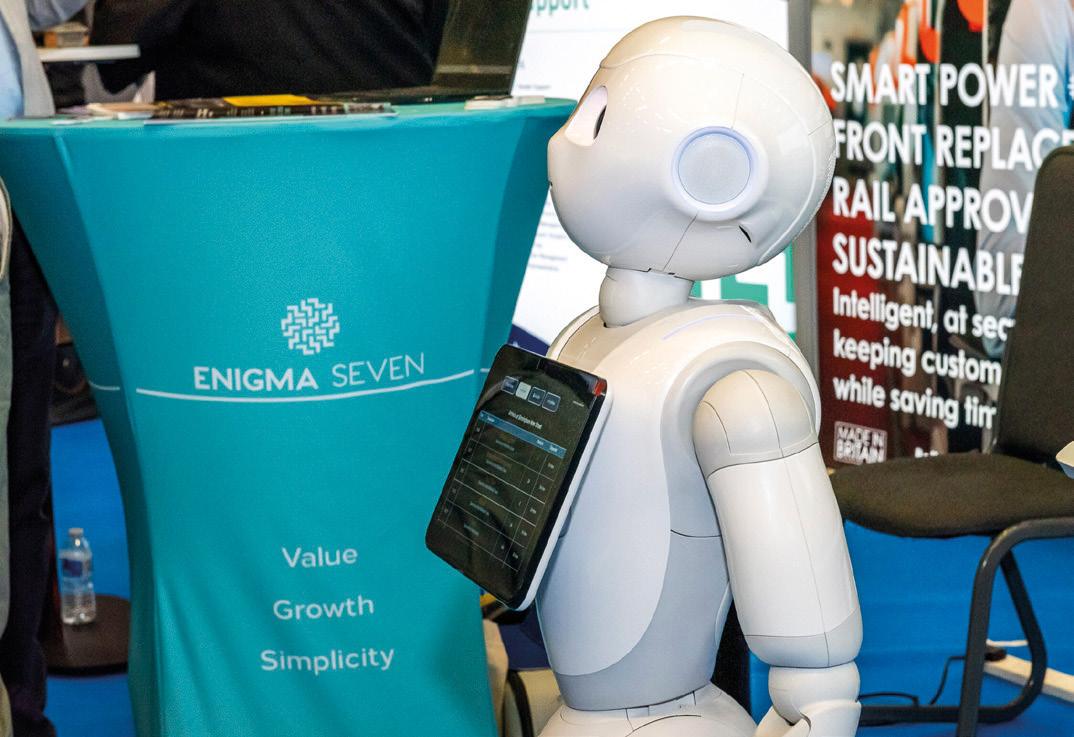
Investment in staff is one thing. But the evolving rail industry landscape also demands industryleading equipment. To address this, Kieran provides a candid glimpse into a forthcoming investment at SEP Geotech:
“We’re investing in a new, state-of-the-art solution designed for safe work on embankments, slopes, and even over water. This innovation eliminates the need for traditional rope access, streamlining our processes even further.”
exhibitor can overpower others by building a huge and expensive exhibit. All stands are more or less the same size, so the impressive display that TVS had used at the recent Rail Live event was left at home and Steve Welch and Jason Hart talked with current and potential customers about delivering their material and supply chain needs from a stand that was much more portable and well-suited to a one-day show.
Alfatronix promoted its range of rail-approved onboard power products while account managers from Rayfast, part of the Interconnect Solutions Group, discussed the company’s range of rail system products, including wire and cable, control systems and cable management, with a number of visitors.
TVS Rail Spares had a modest stand – as did all exhibitors, one of the beauties of RSN, where no one
Investing in the professional development of the current team is also not just a priority; it’s a key part of SEP Geotech’s vision for the future.
The team from Sella Controls informed visitors about digitalisation and its current open-safety platform. Petards Rail Solutions caught up with existing rail industry connections, made new contacts, and showcased its intelligent train technology.
As SEP Geotech continues to evolve and expand its offerings, one thing is clear: Kieran Moran’s experience, dedication, and vision will remain at the forefront, driving the company to even greater heights in the geotechnical engineering industry.
Totalkare was one of several exhibitors promoting depot equipment rather than on-train installations. Its mobile lifting jacks can be synchronised to lift an entire train in one move, keeping everything perfectly balanced throughout the process.
One special area of the exhibition floor was taken over by Enigma Seven, a supply chain consultancy
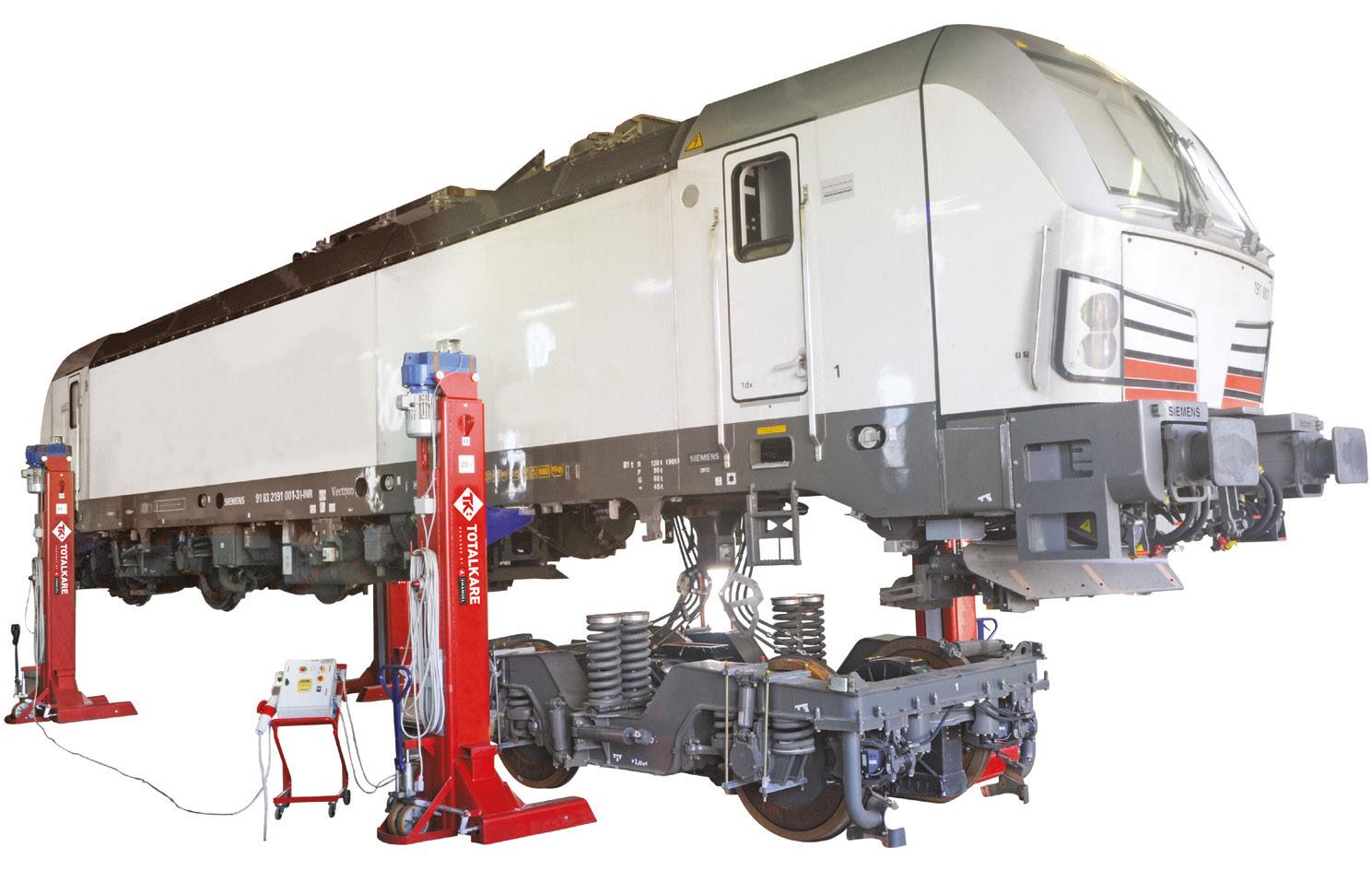




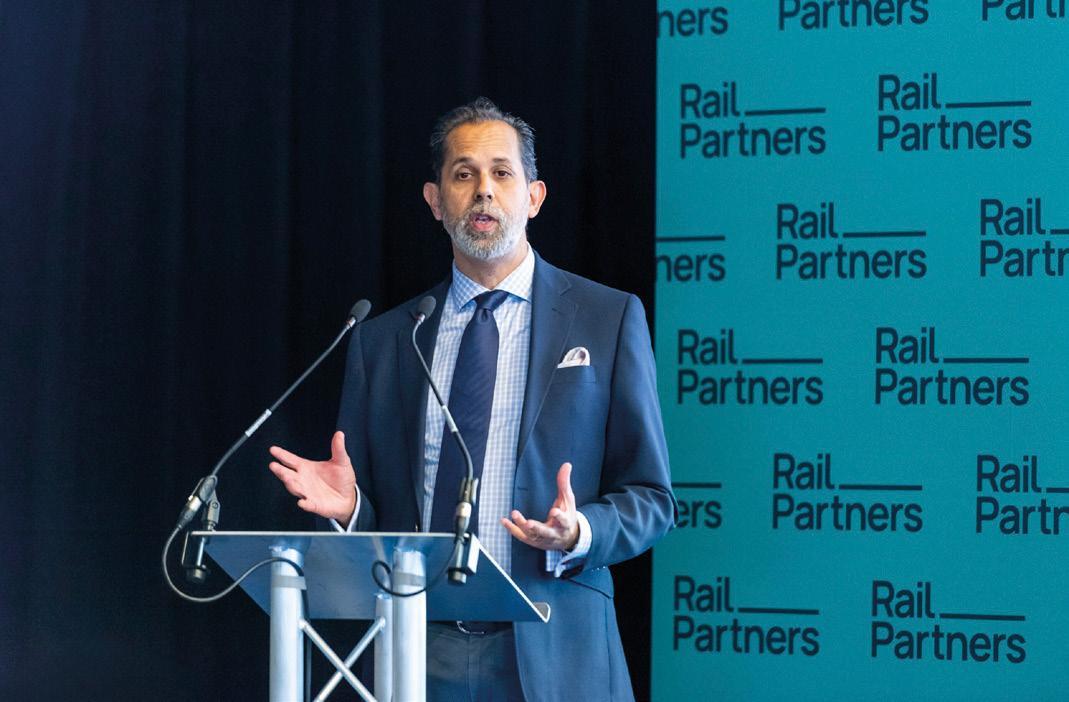
that, for the last two years, has been developing a community within its clients to share knowledge, best-practice and contacts and to help each other grow. One benefit from this is the sharing of event and exhibition costs, where there are common customers but no competition between individual service offerings.
At RSN 2024, the Enigma Seven section showed off the talents and products of five of its clients (OE Electronics, Train FX, Polarteknik TDS, Modux and FISA) and the team was also busy answering questions from exhibitors and visitors keen to know more.
We had a really engaged audience and it was excellent to hear from insightful speakers from across the railway
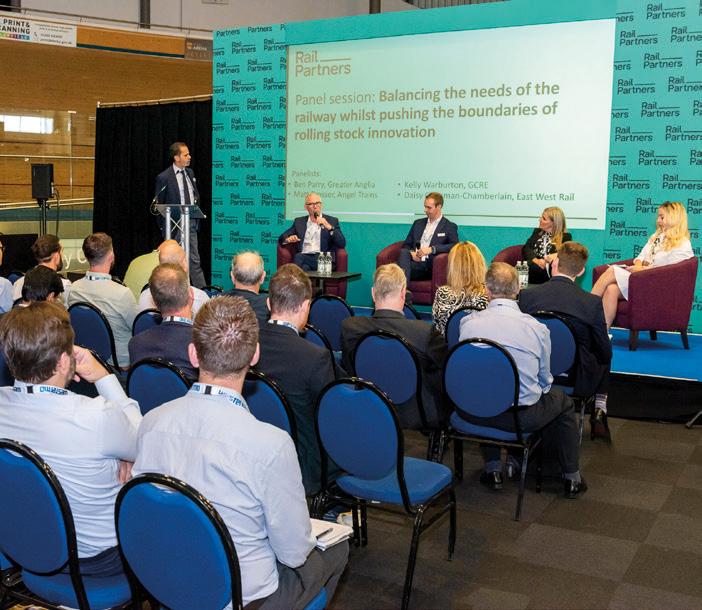
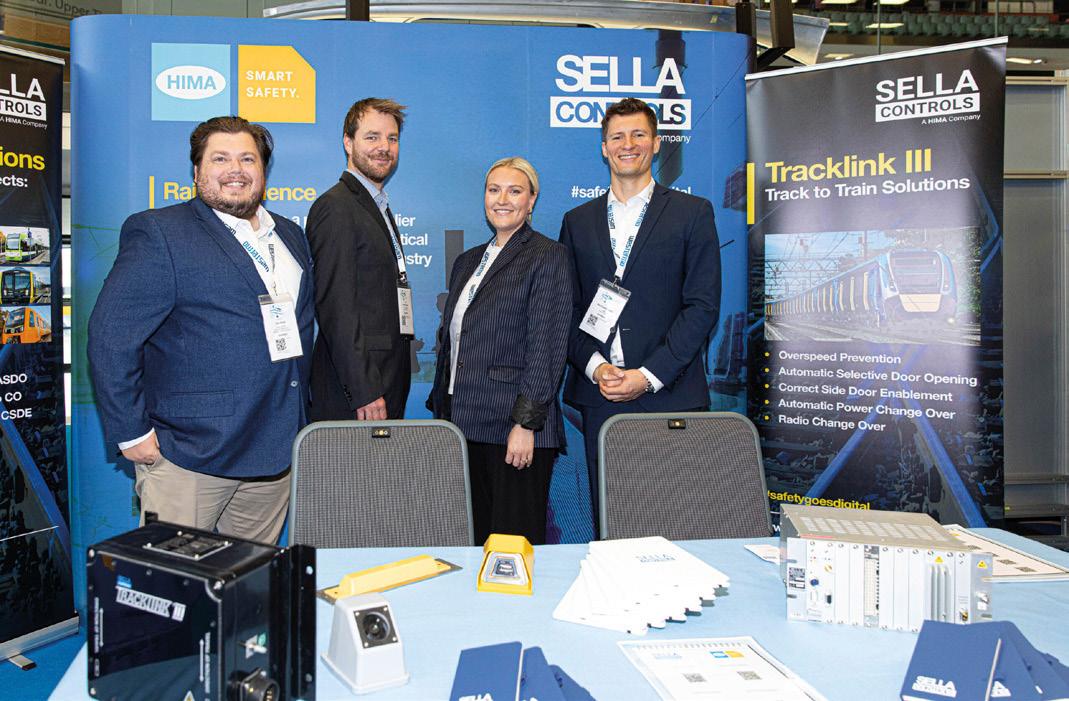
Jobson James Rail, another sponsor of RSN 2024, once again organised its popular ‘Meet the Buyer’ sessions. Purchasing and procurement executives from Alstom, Hitachi Rail, Keolis Amey, Clayton, WH Davis and Porterbrook were available to meet with delegates in pre-booked appointments.
The buyers were kept busy all day as exhibitors took advantage of their presence, some making appointments to see several on the same day. The chance to make contact with procurement executives who are sometimes hard to pin down was irresistible and, while everyone was understandably tight-lipped about the outcomes of their commercially sensitive discussions, there were plenty of satisfied faces afterwards.
Mark Gaynor, Director of Operator Services at Rail Partners, hosted the conference that took place at RSN2024. Building on the success of the previous year’s event, the conference addressed two important themes: how innovation can deliver higher performing and more cost-effective rolling stock and how depots can support a high performing railway and create great places to work.
Attendees heard from leading companies including Greater Anglia, Angel Trains, the Global Centre of Rail Excellence (GCRE) and Stadler.
“This year, our conference explored the importance of innovation in making trains more reliable, more affordable and more attractive to our passengers,” Mark Gaynor said afterwards. “It was also great to shine a light on the critical role that depots play in ensuring our trains run on time. We had a really engaged audience and it was excellent to hear from insightful speakers from across the railway.”
Ben Parry, Engineering Director at Greater Anglia, was one of the speakers. He commented: “Procuring and introducing new train fleets is far from easy. It is fair to say that, as an industry, we have yet to develop the recipe for repeatable success. Challenges are magnified when undergoing a total fleet replacement, especially if the incoming stock is novel or features ‘first of a kind’ innovations.
“Greater Anglia has just completed the largest total-fleet-replacement project in recent times, procuring bespoke products from two different manufacturers - one of whom had never sold into
the UK market before.
“It was a pleasure to have an opportunity to address RSN and talk through some of our successes and failures, with a particular focus on lessons learned – which I hope was of interest to anybody involved in future or ongoing fleet procurement activities.”
Another speaker, Kelly Warburton, Chief Commercial Officer at GCRE, the new test facility being built in South Wales, said: “This year’s conference was especially important because of its timing. Following the General Election, we will see critical decisions taken about rail’s future that will have important impacts for the industry, for our economy and for our collective path to net zero.
“I believe there are significant opportunities ahead for rail in the next few years, including establishing the UK as an international leader in rail innovation and harnessing the high-quality infrastructure that the Global Centre of Rail Excellence will provide to the industry. It was great to set out that exciting vision at the conference.”
Before the exhibition had even opened, the Railway Industry Association (RIA) organised a Trailblazers breakfast, bringing together young and experienced professionals from across the industry, to enable them to learn from each other and make new connections.
Attendees were encouraged to bring a senior colleague as a ‘plus one’, to further stimulate the conversation. David Basset of Network Rail, who is a Graduate and Apprentice Manager for the Transpennine Route Upgrade, hosted an early careers workshop – an energetic session on the topic of mastering the three Cs of career growth: credibility, confidence and connection. Olabode Ariyo, a Lead Network Comms Architect at Siemens Mobility and West Midlands Regional Chair of the Young Rail Professionals, also gave a charismatic presentation.
Jo Hall, Managing Director of Select Talent and a member of both Women in Rail and the RIA Equality, Diversity and Inclusion Working Group, commented: “I met some brilliant individuals new to the industry, one of who was so new it was only his second day into his internship.”
With so many things to see and people to meet, RSN 2024 stayed busy until it closed. If you missed it, make a note in your diary now that RSN 2025 will take place on 3 July 2025 – see you there.
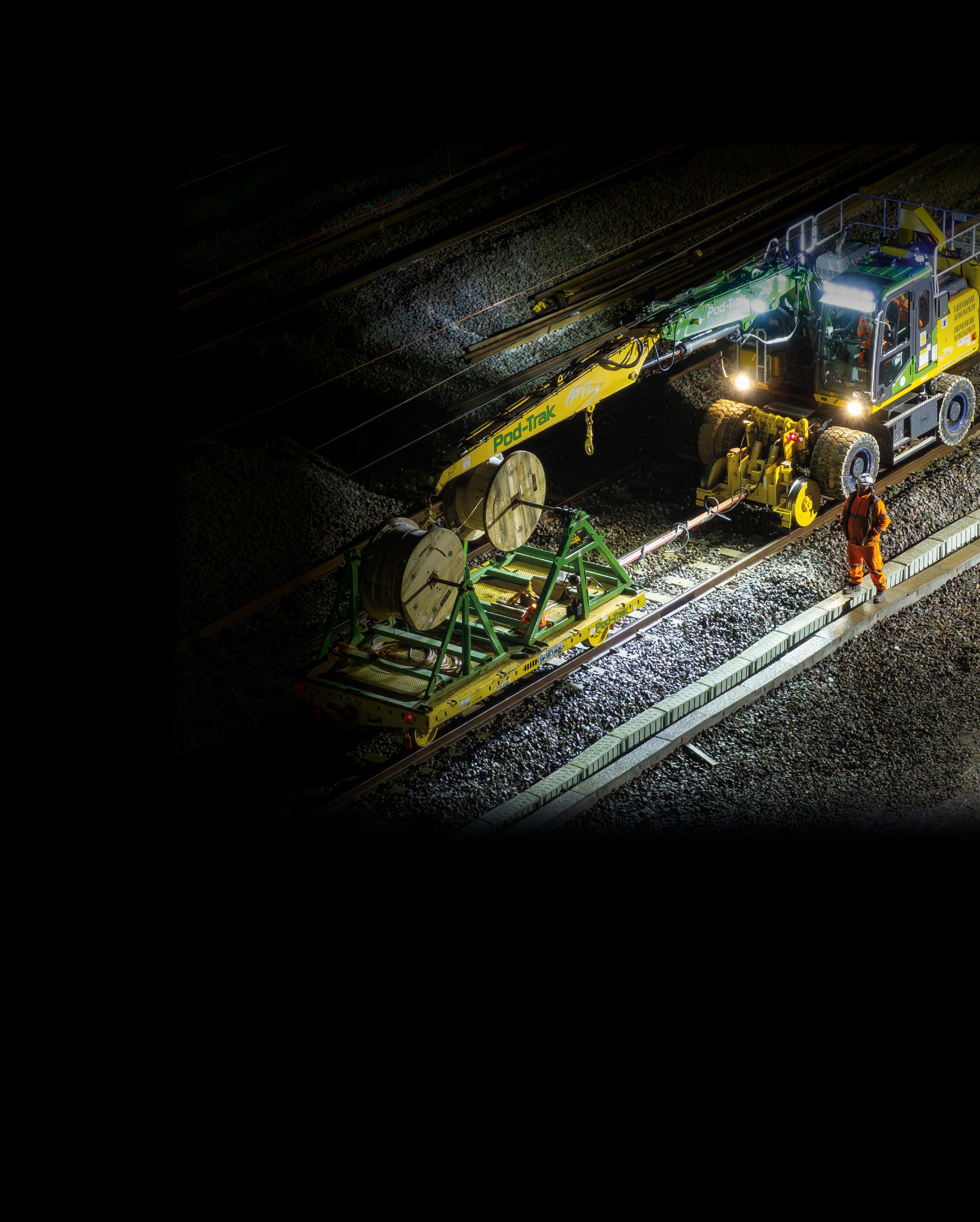
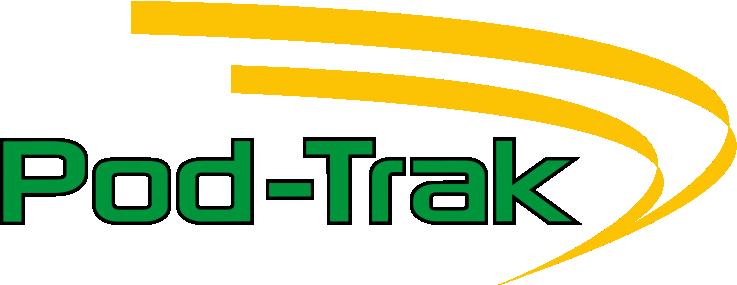
Steve Braund, Marketing Manager at Totalkare, lifts the lid on the company’s lifting jacks and rail inspection pits
For years, the automotive industry has been successfully employing automatic lifting systems. In the last few years, the rail industry has been catching up, with Totalkare providing the right technology to help rail depots optimise their maintenance schedules, and improve efficiency, productivity and vehicle availability.
The UK’s leading provider of heavy-duty vehicle lifting solutions announced five years ago that it was going to take its expertise into the rail sector, signing an exciting deal with Emanuel to tap into the Italianbased manufacturer’s expertise and introduce rail lifting jacks to train operators.
“We were already supplying Emanuel’s heavy-duty four post lifts into the bus and coach and commercial vehicle sectors when we recognised the opportunity to take its rail expertise into the UK rail sector, where there is a similar requirement to provide a safe and fast means of keeping the rolling stock operational,” explained Steve Braund, Marketing Manager at Totalkare.
“We also have 35 engineers across the UK who are vastly experienced in how to service such lifting equipment. The really good reputation we’ve got for our customer service coupled with the size and scale of our service back-up division gives people buy-in confidence and peace of mind that the support will be available.”
Today, organisations big and small are benefiting from state-of-the-art lifting equipment; Totalkare has installed multiple sets of lifting jacks in Hitachi

Rail’s Northeastern manufacturing facility - and more recently, in the Snowdon Mountain Railway’s workshop.
Its equipment makes it possible to lift either a single carriage or multiple train cars simultaneously, streamlining maintenance. Totalkare’s railway lifting jacks are capable of lifting between 5,500kg50,000kg, while heights can be adjusted to suit the engineer, enabling them to work comfortably and safely beneath a train. Available in configurations of between four and 128 columns, the jacks can also be designed to a depot’s unique specifications.
Other equipment helps to streamline specific maintenance tasks, making them quicker, safer and
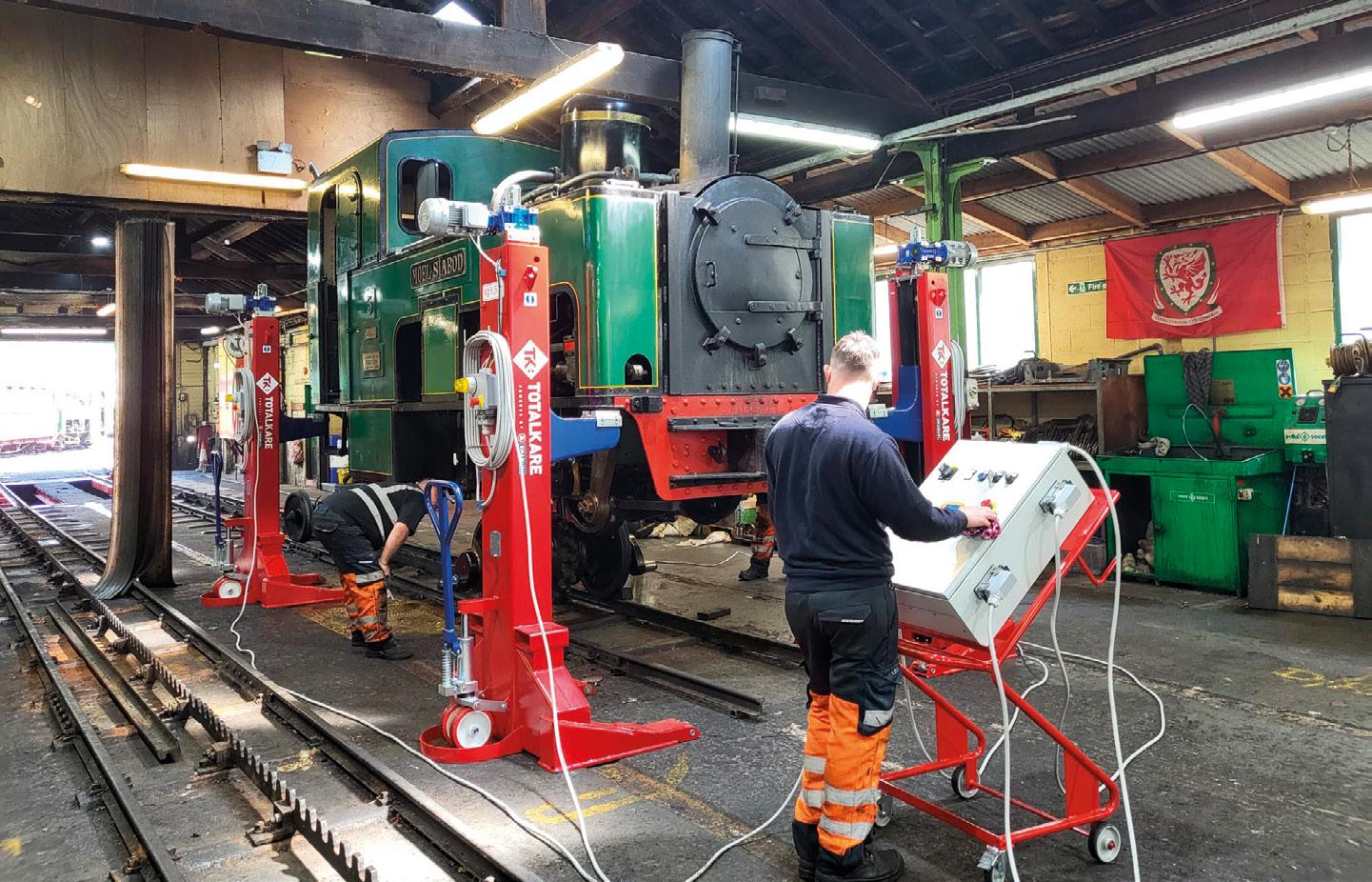
more cost-efficient. With a lifting capacity of between 6,000kg – 14,000kg, Totalkare’s bogie lifting platform runs on rails, allowing for the handling, removal, and assembly of bogies during train maintenance.
Even railway inspection pits – a more traditional means of accessing vehicles – can be optimised. Fully lit for safety and comfort and welded to prevent water ingress, Totalkare’s bespoke rail pits are a reliable long-term solution.
“A year ago, we acquired Tecnik Engineering, a vehicle pit manufacturer, and through that we can manufacture vehicle inspection pits for commercial vehicle workshops but also for rail depots,” said Steve. “They are manufactured in the Midlands from high-quality pre-fabricated steel, and are made bespoke to order to any length or depth, and are also customisable. This year we anticipate manufacturing something approaching 50 pits and are well on the way to meeting that target.”
The journey ahead
Steve will soon be approaching seven years at the company, in a job he describes as the best he’s ever had, working with a great team in a fantastic environment. “The growth is coming from product diversification and maintaining the quality and culture that we’ve got in the business,” he said. “Everybody works hard and looks out for each other and it’s a company I love working for. A happy workforce is a productive workforce and that ultimately translates into more enquiries, better customer service, and returning customers.
“Every year it feels like we’re about to start an exciting new chapter because the company has grown and developed so much, the product portfolio has diversified and there have been new things to push alongside the existing portfolio. The last six months things have accelerated further, and it feels like we’re now embarking on the second book in the series, such is the growth.”
Explaining this, Steve outlines how there are plans to start exporting the road business, as well as driving forward its offering for the UK rail industry.
“I’m very excited about the future in the railways,” he said. “There is so much more we can do in the sector, especially now we can manufacture pits, that alongside the lifting jacks and bogie lifts it means we’ve got a more varied offering which should be of great interest to people either replacing equipment in their depots, or fitting out new facilities.”
www.totalkare.co.uk/

The government wants to increase rail freight by 75% by 2050. This will intensify a number of challenges for rail, like managing driver fatigue, or maximising capacity to increase the amount of freight the network can cope with.
As the industry evolves, it’s important that freight grows safely. Making greater use of digital technology and innovation is vital. Data-led processes are needed to provide a network that supports increased capacity for freight traffic.
That is why RSSB is supporting collaboration across the freight sector. This will give the industry the information it needs for efficient, effective decision making in the future.
Discover how we’re using data to transform rail freight: www.rssb.co.uk/freightgrowth

Important issues have the potential to affect rolling stock. Some show how rolling stock is impacted by issues elsewhere on the rail network. Others show how rolling stock improvements will benefit other parts of the network. All of them show how the rolling stock sector is trying to increase efficiencies and get greater value from existing or new assets

The way rolling stock is maintained has changed over the last 10 years.
Traditionally maintenance was carried out by the train operator and the rolling stock owning company (ROSCO). This had a variety of options, and usually the train operating company (TOC) did the running maintenance. In more recent rolling stock procurements, the maintenance function is included in the rolling stock supply contract. This means that maintenance is now provided by the rolling stock manufacturer. To be successful, this needs a good contractual structure and a collaborative approach. One concern with the
new arrangements is visibility of the fleet whole life costs and the ability to realise cost savings. Another is the introduction of innovative technologies through the life of the asset. The Rail Safety and Standards Board (RSSB) has been working with the Great British Railways Transition Team (GBRTT) and industry to better understand this area.
Another area where rolling stock improvements would help realise cost efficiencies, this time on staff training, is addressing the multitude of driving cab designs and in particular cab screen layout. RSSB has recently produced a standard covering this subject, but more work is required with the operator interface
To be successful, this needs a good contractual structure and a collaborative approach
and information contained on the train control screens to improve the standardisation of displayed information. This has the potential to reduce training requirements across different fleet types, particularly where an operator has a varied fleet portfolio. Resolving this issue sounds straightforward but it partly reflects the issues when procuring` new rolling stock. This is another important issue, and RSSB has recently published a standard covering this area.
Reducing the risk of fire is always important for any safety-critical industry like rail, and emerging concerns and emerging technologies are adding new issues to the mix. These were discussed at our annual Fire Forum in May 2024. One concern is about Per- and Poly-Fluoroalkyl Substances (PFAS), known as ‘forever chemicals’ because they don’t biodegrade but accumulate in animals, humans, and the environment. This group includes PTFE (commonly known as Teflon®), which is used in rolling stock designs. The sorts of places where PTFE is used include sealing arrangements in critical areas, oil seals in gearboxes, or seals in bearings. PFAS are also used as fire retardants, and specifically in Aqueous Film-Forming Foam extinguishers (AFFF) which are widely used on rolling stock. There are increasing concerns about the harm these chemicals can cause in the environment. This means that their use is being considered, but in some cases, there isn’t an alternative at present. We understand that the Department for Business and Trade and DEFRA are starting to look into this issue. RSSB has its eye on this developing issue too and is part of the conversation with Government agencies.
Our experts are also aware of potential fire hazards introduced with new forms of traction. For instance, developing traction technologies such as batteries or hydrogen introduce new safety risks for rolling stock. We’ve already produced a technical note, TN2311 Fire related properties of batteries, to supplement many of the relevant standards. We’ve also developed a specific standard about large energy battery systems. An update to a report on the deployment of hydrogen in rolling stock is in progress. Other research we have done shows how to optimise the use of battery traction in rolling stock. But we know fire risks need to be kept under review as new technologies are deployed on rolling stock, or new environmental concerns become apparent. These issues relate to the physical environment, but data issues are also extremely important for the rolling stock sector. The potential benefits, and potential risks, are only going to increase as all stakeholders come to see the value of data.
Fortunately, there are some areas where the rolling stock sector already knows what to do and is waiting for action by key stakeholders. Data for the European Train Control System (ETCS) is a good example of this. Although ETCS can be understood as being about signalling, this isn’t the only subsystem affected. ETCS involves the whole railway system. Its implications for rolling stock are significant. ETCS needs braking data to operate. The braking data for passenger trains is constant and can be known in advance. For instance, the number of carriages and their weight can be safely assumed. Freight vehicles are different. Braking data for freight is
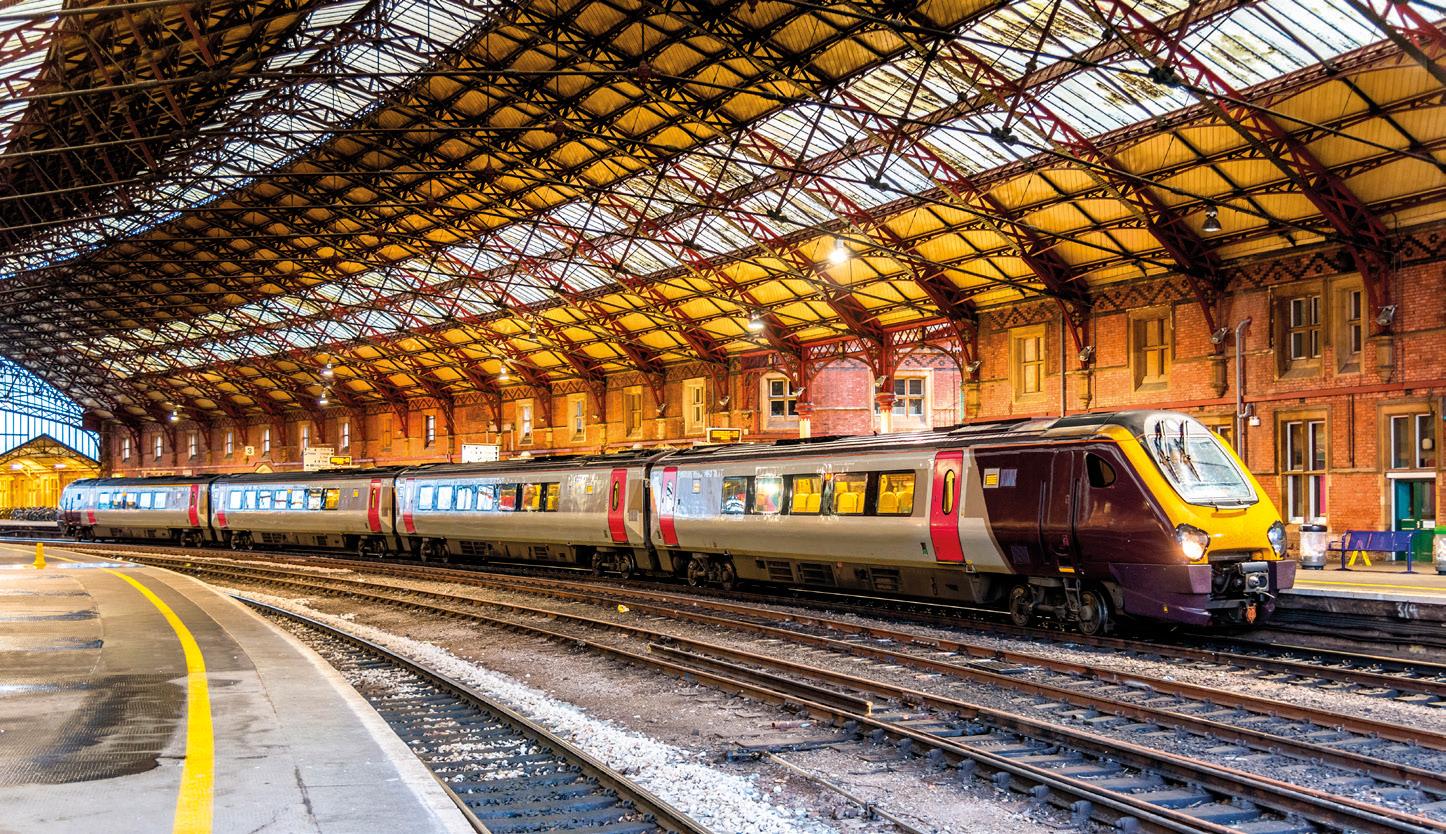
more variable and depends on the characteristics of each freight train, such as the number of wagons and the weight of their contents. These result in different braking parameters. The GB rail network uses the UK-specific vehicle database R2 as the source of its braking data. However, ETCS isn’t currently set up to use the braking parameters in R2. We need to change the way that braking parameters are formulated for freight wagons and locos, update R2 with that information, and configure interaction with ETCS. The rolling stock community understands what is required, but a strategy is needed to realise this.
As digital technologies become more pervasive, the risk of cyber-attacks grows. Interfaces between subsystems, such as between rolling stock and other parts of the network, are very vulnerable to being compromised. So the National Cyber Security Centre (NCSC) and a group of rail professionals will be working with the rolling stock community to identify those data interfaces. They’ll also explore how best to manage them. It’s important that this work involves both leading cyber security specialists from NCSC and rail professionals including the rolling stock community. This will ensure that operational insights inform this work. It will build on work already done. The Rail Cyber Security Committee produced a strategy for the rail industry in 2017. This is due for reissue in 2024. RSSB’s Technical Note TN2312 about this subject was published in 2023.
The use of data to help railway performance is understood by industry. The National CCS DRACAS (Defect Recording, Analysis, and Corrective Action System) could help industry save £231 million over 10 years. This is because it can find the underlying cause of incidents far earlier. Railway undertakings, ROSCOs, and maintenance providers already use local DRACAS systems. However, to get the full value from the National CCS DRACAS, data must be shared throughout all parts of the network. Some of the barriers to sharing this data lie within contractual arrangements and intellectual property rights. Commercial risk can also be a factor.
RSSB is working with industry partners to understand and resolve these issues so that the sharing of data and realising of cost efficiencies improves for the whole industry.
RSSB is working with industry partners to understand and resolve these issues so that the sharing of data and realising of cost efficiencies improves for the whole industry
Pete Sollitt was recently appointed Transpennine Route Upgrade (TRU) West Alliance Managing Director. He discusses using his military background to ensure the best platform for the project’s success

There is a really nice saying that a senior officer in the army used that has stuck with Pete Sollitt and something he feels is particularly relevant in his current role as Transpennine Route Upgrade (TRU) West Alliance Managing Director.
“Think to the finish,” he said. “So understand what the outcome is that you are trying to achieve and work back from that. If everybody understands that, then that becomes really empowering and liberating and it unlocks the potential within the team to actually deliver it.”
Pete spent over two decades in senior leadership positions within the British Army, with multiple deployments in the Middle East, Balkans and West Africa.
“Alongside focusing on the outcome, there are two other things I learnt from my time in the military that I bring to the railways and how I think about things,” he explained.
“The first is the importance of the team in the military environment focusing on how teams come together, how they are led, how people cooperate
and work together and what the mission and purpose is. One of the things I did within the first few weeks of joining TRU West Alliance was to get under the skin of why we are here and what we are here for.
Understanding that enables clarity for the team and allows people to work more effectively together.
“The final point is being comfortable with complexity. TRU is complex which means things can be unpredictable, priorities will change and if we can get people comfortable with being agile, knowing how to respond to situations and understanding what the priority is at the time then we will deliver the programme in the right way.”
TRU is a multi-billion-pound programme that will improve connectivity in the North, supporting economic growth and delivering benefits for passengers and communities along the route. Stretching across the North of England between York and Manchester via Leeds and Huddersfield, the 70-mile Transpennine route serves 23 stations, crosses over or under 285 bridges and viaducts, passes through six miles of tunnels, and passes over 29 level crossings.
“I really enjoy being part of a really good team and that is what we have got, the best people to deliver this job so that we achieve the outcome that we are all aiming for,” he said. “I enjoy the thrill of being involved in major projects like this, knowing that I will have played a small part in the legacy of making a difference to people.
“It is about the passengers on the train, but it is more than that. It is about the businesses that benefit from the greater capacity and more reliable services, it is the people who join our industry who learn and develop and forge careers from it, it is people who go on to do bigger and better things in the future as a result of it.
“TRU is transformational for the rail passengers in the North, but its influence extends far beyond that. This will leave a great legacy for people in the North and beyond. But before we get to that stage, we need to ensure the continued support of the local communities, which is why we are doing the best we can to minimise the disruption to them.”
Pete joined the TRU West Alliance earlier this year with a wealth of major infrastructure projects
expertise after over 10 years of leading roles, most recently with the HS2 programme, where he was Phase 2A Delivery Director, the latter a section of the project which was axed last year by the Conservatives.
His appointment has come at a crucial time for the TRU project, following the Department for Transport’s announcement of a £3.9 billion funding boost for the programme, and with significant progress being made on a range of projects between Manchester, Leeds and beyond.
“I really do believe in what we are trying to achieve here, which is ultimately about improving the passenger experience for people in the North,” he said. “This is something that we all need to get behind. For me personally, I was a Director on HS2 Phase 2a and we know what happened with that, and then this role came along, and I thought that endeavour hasn’t changed and if we’re signing up for a big investment for the west to east route along the Transpennine route then I want to be part of it.
“When I arrived, I collectively with my team, had a good look at what really mattered to us which was to deliver this programme with excellence. Excellence in delivery which means making sure that our people are safe and well, that they are better people for the experience of being part of the programme, and that the people impacted by the work we do are cared for in the right way.
“People make projects and I want the people involved in this project to be developed, to be invested as a result and to pull people through into the industry because the construction industry, the rail industry needs good people for the future, and this is a great opportunity for us to do that.
“There is also the passengers – which is why we are doing it. If you look at Huddersfield station at the moment, there is clear evidence of the work we are embarking on, but we have to recognise why we are doing it and make sure we are understanding the disruption we cause and making sure we focus on their needs throughout the time we are here.”
The Transpennine Route Upgrade follows an enterprise business model – led by TRU Managing Director Neil Holm – in a structure that consists of individual projects that are delivered via alliances both east and west of Leeds. Pete oversees the operations in the West.
“The enterprise approach is a real benefit for this project,” he said. “The value the enterprise brings is that the people who can really make a difference and help and influence us delivering it are part of the conversation.
“The enterprise teams include colleagues from Network Rail, the Department for Transport, from TransPennine Express, Northern trains and all the delivery agents that are going to make this happen. So the conversation is based on a common understanding of the situation and we have close links to the people who can help with that. That is a real strength in the programme.”
Another difference Pete describes compared to other projects he has worked on is the opportunity of releasing the benefits early, unlocking the route as the project goes forward. An example was the recent successful test run of an electric train between Manchester Victoria and Stalybridge. This will be the first section of line to be electrified as part of the TRU, with the remainder of the route between Manchester and York set to be electrified in the future.
“The testing is going well and we’re really close, currently working closely with the Office of Rail and Road to make sure we get the right authorisation,” he explained. “Then we will be in a position to work closely with our train operating company colleagues to allow them to start passenger services.
“A key milestone for me will be the visible indicator of progress for my part of the route around Huddersfield station. People will see now that a lot of enabling works have gone on around the station, a lot of scaffolding on the station itself. That will allow us to make the upgrade to the infrastructure around the station.
“We are also renewing an awful lot of track through the Huddersfield area and viaducts through to the east and that will continue at pace throughout the year and then we are working towards a significant blockade in September next year – 30 days in and around Huddersfield which will be a key milestone for us.”
Once the core benefits of the full programme have been achieved, the 70 miles of railway between Manchester and York will be electrified, a new full digital signalling system will be in place and key areas of the line will be double tracked, enabling more

I enjoy the thrill of being involved in major projects like this, knowing that I will have played a small part in the legacy of making a difference to people
frequent faster and greener trains to stop at improved, accessible stations along the route.
Pete said: “We are always looking to do things better, but equally we see the real benefit from learning off other projects as well. We are active in the space of previous major project learning legacies, and we want to carry the baton and take it forward and do more. We encourage that innovation.
“TRU has all the tools necessary to do the job well and at the West Alliance, my role is to get everybody to think, decide and act as an alliance and by doing that we will be really powerful. Where we want to get to is to see ourselves as an alliance as a strong part of TRU and if the West is strong then TRU is strong.
“On top of that I speak to my counterparts in the East, the central area and across the enterprise regularly and we recognise that we are not independent pockets along the route, we are absolutely dependent on each other. We collaborate and learn from each other and do everything we can to support each other to make sure the overall programme is a success.”
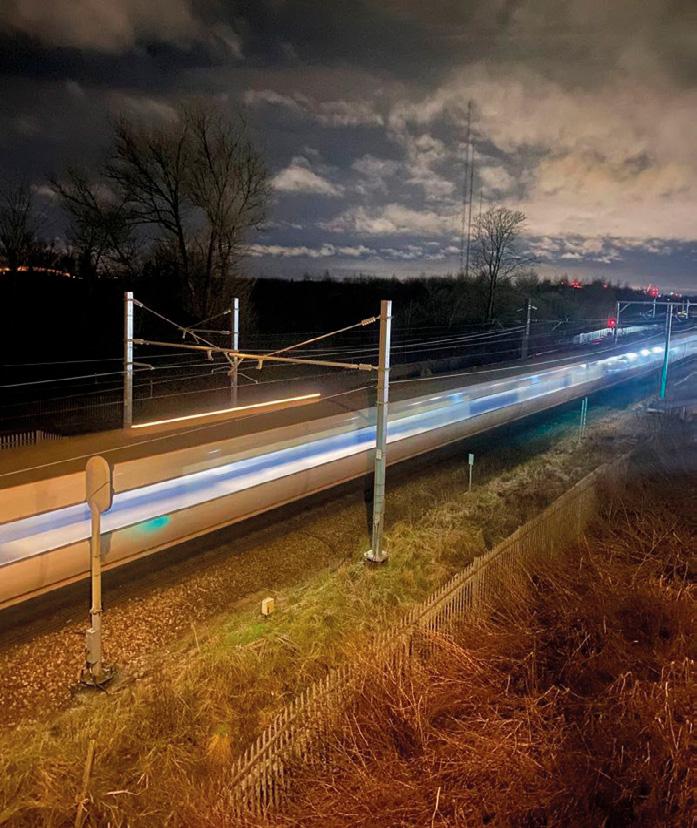
Siderise is keen to be the partner of choice for UK train manufacturers. Speaking to Rail Director, OEM Sales Director, David Boon explains that excellent service and the right accreditations are key

Siderise is no stranger to the rail industry; its noise control treatments, HVAC solutions, and thermal insulation products have been keeping passengers safe and comfortable for over 25 years. Today, it’s working to cement its reputation as the partner of choice for rail manufacturers across Europe – and keener than ever to support train building in the UK.
David explained that this reputation is founded on excellent customer service.
“We try to take our customers’ supply challenges away, handling everything ourselves to ensure a smoother and more reassuring experience,” explained David, who joined Siderise 32 years ago. “Now, we want to be the number one supplier of rolling stock insulation materials, with an exceptional service to boot.”
High-performing products, rigorously tested
Siderise’s team design and produce these highperforming materials to industry standards, supplying some of the sector’s leading carriage manufacturers. Its growing portfolio of products includes HVAC ducting systems, rolling stock noise control solutions, and lightweight thermal insulation for carriage ceilings, floors, and walls.
Siderise’s technical capabilities mean that it can test these products rigorously – something that has always set it apart from the competition. The group currently operates two manufacturing facilities – one in Hadleigh, South Suffolk, and another in the Welsh town of Maesteg — with offices located around the world in locations such as Switzerland, Dubai, India and North America.
In 2023, the company opened the doors to its own Innovation Centre at Maesteg. Featuring a specialist fire test furnace, this facility allows it to conduct its own fire resistance testing, aiding its research, development and quality control of its passive fire protection offering.
It also has the ability to undertake small-scale acoustic testing and thermal testing in-house, and it has built strong relationships with external test houses which can carry out larger-scale thermal testing, acoustic testing, and reaction to fire performance testing on materials.
The result? Safe, compliant products, and peace of mind for Siderise’s clients.
Assured quality
In addition to working to extend its in-house testing
capabilities, David explained that Siderise is always actively seeking to invest in the accreditations its rail clients require.
“One client referenced the IRIS (International Railway Industry Standard) certification in their supplier onboarding process,” he said. “So, we decided to proactively go ahead and get that accreditation. We’re now partway through the process and hope to have it in place soon in readiness for that particular client when its production line comes on stream in the UK.”
Based on aerospace and automotive quality standards, IRIS certification is a means of evaluating suppliers to the rail industry. To achieve it, organisations must demonstrate that they comply with ISO/TS 22163:2017 – and a range of other rules and procedures. It’s an intensive process. But, as David explained, the certification won’t just give clients confidence in Siderise’s materials and quality management systems. It will also enable the group to improve its overall offering.
“As part of the homologation/onboarding process we need to show how we purchase, manufacture, and test products,” David explained. “We must also demonstrate that our products have up to date test reports in accordance with BS EN 45545-2 (Railway applications. Fire protection on railway vehiclesRequirements for fire behaviour of materials and components). The customer is typically sent copies of the reports so they can see the details of how well the product performed in the tests.
“Having that information from test houses is also useful for Siderise, because it enables us to engage with the client about product performance, establishing what they want to achieve. That interaction and feedback means we can improve our products, tailoring them to clients’ needs both now and in the future.”
And, as the rail industry turns its attention to ESG (environmental, social, and governance), a growing number of suppliers are following suit. Siderise is no exception, having recently gained a silver EcoVadis rating.
“We actually scored in the top nine per cent globally, and we have aspirations of achieving a gold rating,” David commented. “Manufacturers are increasingly looking to suppliers to provide this assurance that they are operating as sustainably as possible. We don’t shy away from being transparent here, and we are working as a group to find ways to improve our practices and communicate these to our customers and other stakeholders. Our inaugural sustainability report will outline our benchmarks and the strides we have taken to integrate sustainable practices across our operations.”
Working in partnership with train manufacturers David hopes that this proactive approach will help Siderise to become the ‘supplier of choice’ for rail manufacturers – particularly, when new manufacturers enter the UK market, creating new opportunities for the UK supply chain.
“We obviously want to be part of that growth, and that means having the right accreditations, having everything fully tested, and adding to our
portfolio of products,” he explained. “Not every train manufacturer has the resource to change from what they’re currently using to products we offer. It’s about demonstrating to the manufacturer the benefits of sourcing more locally, which will assist them in reducing their carbon footprint, shipping costs and lead times.
“It’s also about working in partnership with customers - because it’s a commodity that’s needed to ensure that passengers enjoy a pleasant and comfortable journey. We adopt a philosophy of ‘working with you, for you’ and this includes being agile and responsive in meeting a client’s exacting specification criteria.”
David added: “We’ve taken specifications that come from the other side of the world, analysed them in detail, and established that – while the material specification is safe to use – it has not been tested to European accreditation standards.
“So, we’ve then worked to understand the material and developed it into a local source product, before testing it to standards that are European-compliant. This helps everybody, and it’s also great from an availability point of view – because, when things go wrong, you almost need next-day delivery. And it’s expensive to fly something around the world.”
And, thanks to this proactive, collaborative approach, Siderise is now a trusted partner to many major manufacturers.
David reflected: “We’ve had particularly good feedback from two customers. One named us their Supplier of the Year, and another is committed to retaining our services, even in quieter periods. We’ve been able to turn stock around for them in as little as 48 hours, getting production up and running again.”
With a clear, continuous investment in ensuring its products, processes and people go beyond the basic requirements, Siderise is well positioned to not only exceed its customers’ expectations now, but to help drive the future development of the UK rail industry, setting everyone up for success.
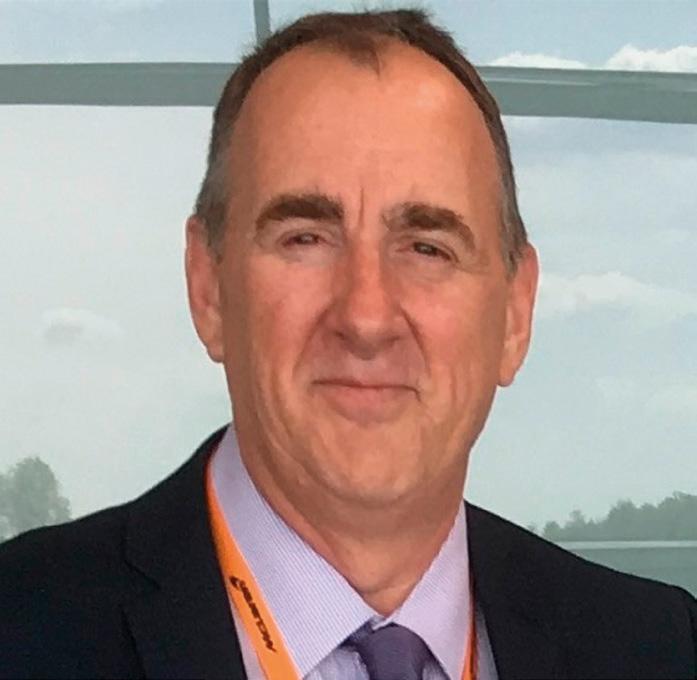
We try to take our customers’ supply challenges away, handling everything ourselves to ensure a smoother and more reassuring experience
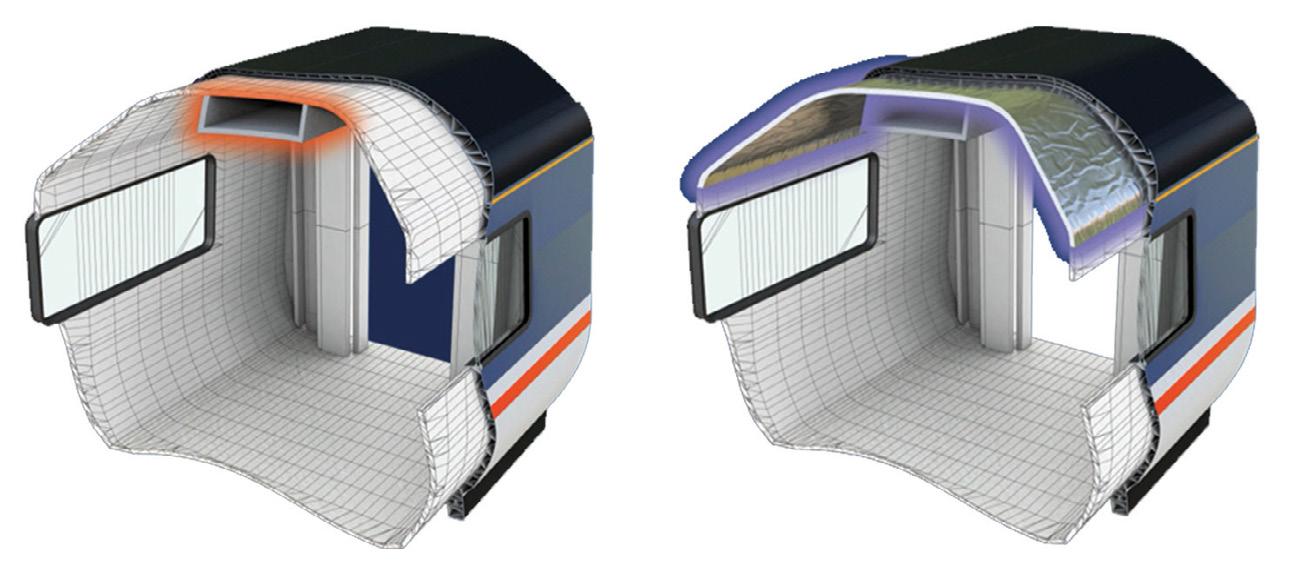
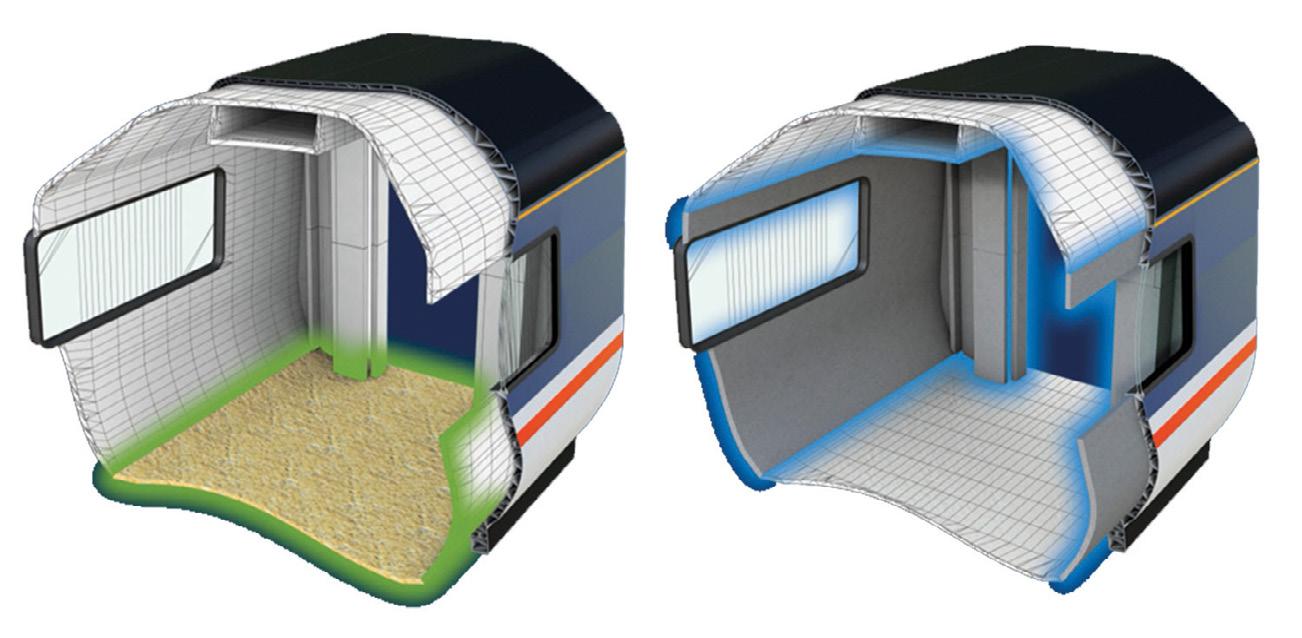
Jon Hall, Managing Director (MD) of Roch Lighting Solutions, explains more about the lighting it provides the rail industry

For a company which shines a light on railway infrastructure throughout the UK, Roch Lighting Solutions has very much gone about its work under the radar.
It provides high-quality, cost-effective, innovative, and bespoke LED design solutions for a wide range of applications and locations, interior and exterior, with an impressive CV which includes work at the likes of King’s Cross and Paddington stations.
“Our role is simple really, to make improvements and solve the problems,” explained Jon Hall, Managing Director of Roch Lighting Solutions. “We work quietly under the radar, although we’ve completed many lighting installations across the rail sector from under canopy lighting for stations to re-lighting station concourse areas and level crossings. The products we use are quality units made in the UK or Europe that last for many, many years.”
Roch Lighting’s ability to provide simple solutions marries seamlessly with the Roch Lighting/ Veko partnership and its other industry partners, reinforcing the belief and ambition to keep providing the most cost-efficient, high-quality LED products available today.
“What we offer is a bespoke service, where we will take the time to listen to our client’s needs and look at something in its singularity to come up with the right solution,” said Jon. “We want to deliver on our solutions and build long-term relationships
with ongoing support.
“Having the expertise and passion in what we do and how we work with clients has led to a lot of repeat business and also being recommended to other organisations based on our reputation as a reliable partner has certainly paid off and we’re grateful to our clients for their ongoing support.”
Roch Lighting Solutions is the UK partner for Veko Lighting Systems, a world-renowned original equipment manufacturer where innovation and sustainability provide years of carefree lighting installations for customers. Veko’s quality systems offer quick installation times, virtually no waste, and 100 per cent recyclable profiles – making for some of the most environmentally friendly lighting in the world.
“Trust and reliability are two key aspects to how we operate and if we promise to do something we deliver on it,” added Jon. “I like working under the radar getting projects completed. I’m not the kind of person who shouts from the rooftops and the fact we get recommendations proves we’re on the right track. It is important to keep the consistency going and providing a first-class service.
“We’re working on some exciting projects and with our great team I am optimistic for the future, but humble enough to be grateful for the support and respect of our customers across the rail sector.”
www.rochtest.com/roch-lighting/
We work quietly under the radar, although we’ve completed many lighting installations across the rail sector from under canopy lighting for stations to re-lighting station concourse areas and level crossings


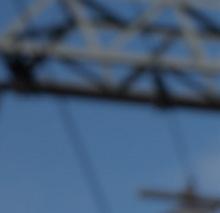
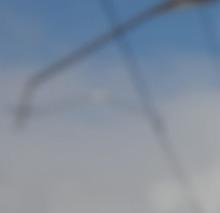



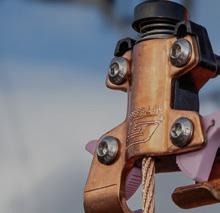

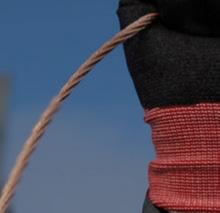

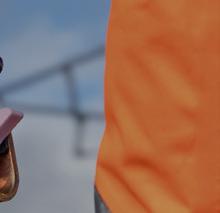

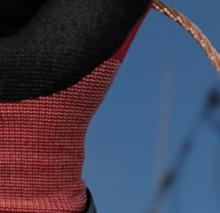
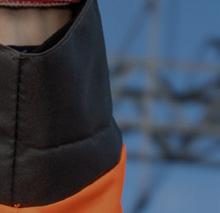
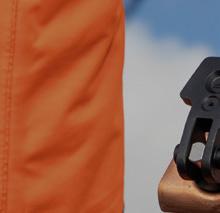





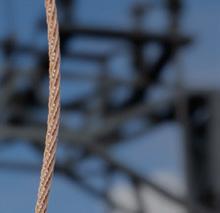







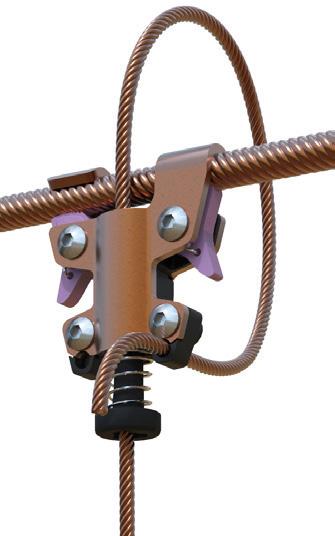
Climate change is the biggest challenge facing the railway, with extreme weather in the past year alone seeing more than a dozen named storms each taking its toll on the network.
Despite an acceptance that we can never completely weatherproof the railway, Network Rail has vowed during Control Period 7 (CP7) to ensure we are better prepared to mitigate the worst that Mother Nature throws at us.
One potential solution when it comes to heavy rain is Lineworx Limited’s perforated drainage channels, which are available from Scott Parnell Ltd.
“People are ready for a change when it comes to drainage,” said Sharon Meek, Scott Parnell’s Head of Rail. “It has been highlighted in recent storm events that what has been done for the past few decades just can’t keep up. Furthermore, the recently published Earthworks Management Review refers to the use of concrete channels, acknowledging they have high hydraulic capacity and are much easier to inspect and maintain over traditional solutions.”
Lineworx perforated drainage channels were originally developed for London Underground in 2013, for the efficient removal of surface and subsurface water from a specific area, achieved through the channel collecting water along its entire length and depth through perforations and slots built within the design.
Now, the company is getting more and more enquiries for the main rail networks, for its innovative and versatile drainage system, manufactured by Ibstock, which is proving not only efficient but also a sustainable concrete product made in the UK.
Scott Chamberlain, Director at Lineworx, said: “There are two key reasons why our drainage really works well over the traditional systems; one is when there is limited space but a high-volume solution is required, you can stay narrow and go
When there is limited space but a high-volume solution is required, you can stay narrow and go deep with the flexibility of the system
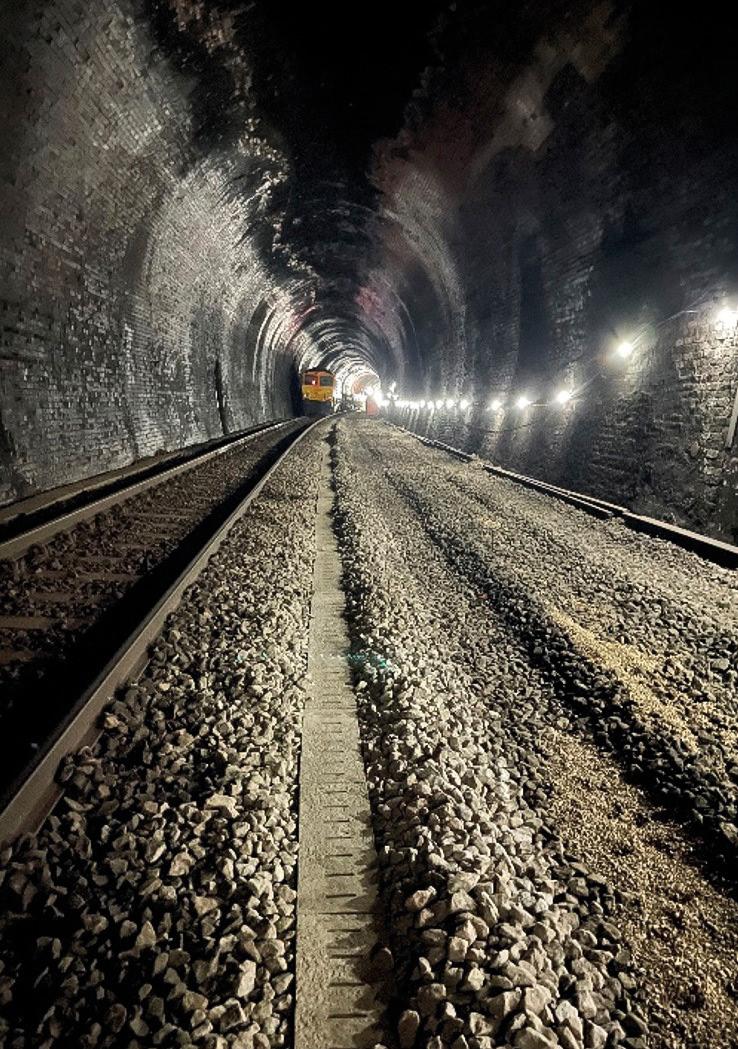
deep with the flexibility of the system.
“The second is around maintenance. Lineworx allows inspection at any point along the entire length of the run visually by simply looking down through a lid. Potential hazards can be identified and corrected quickly and easily, without the need for specialist equipment.”
The drainage channels are installed in 750mm sections which allows for reduction or omittance of plant equipment. Among its benefits are the size and weight of each unit and its versatility to go to different depths and take in undulations of the ground where the bigger systems can’t.
“The benefits over pipe are the ability to stay narrow but go deep, and also its visibility for maintenance,” added Scott, who confirmed that the product is due to get its Environmental Product Declaration certification imminently.
Sharon said: “The reason why it is so popular on the Underground network is because it is predominantly installed into tunnels where space is restricted. To be able to bury pipe to depth is not possible a lot of the time, plus ballast removal and excavation in a tunnel has high cost implications, so being able to reduce these tasks keeps project costs manageable.
“On the open networks, infrastructure is becoming more and more congested so being able to excavate
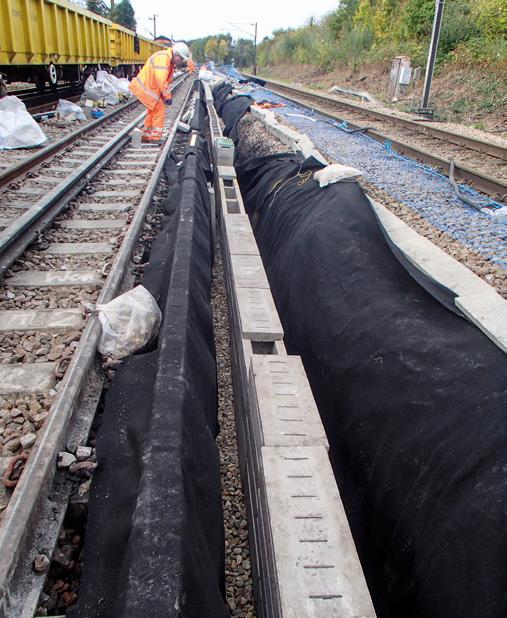
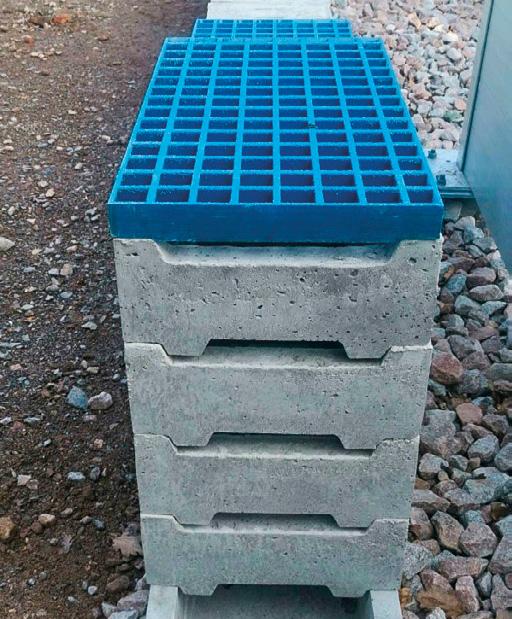
and not disrupt existing services or cabling is becoming harder. Lineworx can be installed in the cess, 10 foot and six foot, so if you’ve got a multi-track area it works well as you can collect and remove water from both sides of the track with the minimum amount of space. There is also a massive amount of carbon generated when we disrupt ballast and remove spoil material, and using this alternative reduces both excavation and spoil removal.”
Scott Parnell is the exclusive stockist of this product, a partnership launched two years ago and one that is already proving a huge success, including at last month’s Rail Live event, where the demonstration proved a big hit with visitors to the stand.
“It’s been going really well,” said Scott, who has known Sharon since she worked for Anderton Concrete more than a decade ago. “Working with Scott Parnell, you know you are in a safe pair of hands, and we have been working well together to promote the product and understand the market and where the opportunities are.”
Sharon added: “With the many advantages of the product and the focus on climate resilience during CP7 I am really excited about the future for Lineworx and I think we are just on the cusp of something really quite significant with the product.”
www.scottparnell.com
Altin Staka fulfi lled a lifelong ambition to set up his own business two years ago. He explains how Track Civil Engineering Solutions Ltd is already exceeding expectations

Altin Staka wears his Track Civil Engineering Solutions Ltd shirt with an enormous sense of pride. For several decades it was his aspiration to set up his own business, and two years after taking the plunge, he, and the rail industry, is reaping the benefits.
“I’ve been in the rail industry for 22 years, starting as a general operative on site, site engineer and project manager, as well as having done two master’s degrees, one in business administration and another in construction law,” he said, explaining how it all set the foundations for starting his own business.
“Track Civil Engineering Solutions has certainly hit the ground running with the first year exceeding expectations by 35 per cent more turnover than expected, and the second year 50 per cent more. Even though I had a plan for sustainable growth, it has exceeded those.”
The reason for the success is the company’s ability to deliver excellence and innovation to clients, driven by the team’s passion and 50 years’ experience in the rail and civil and construction industries. Track Civil Engineering Solutions’ skilled team provide a first-class service working on everything from track drainage, masonry, equipment foundations, and all side civils auxiliary works to de-vegetation management.
“You’re only as good as the team you’ve got working for you,” he said. “The team we have here are fantastic, proactive and share the same mentality as

The plan is to keep building those relationships, doing the simple stuff right, and delivering what we say we’re going to deliver
me, which is in providing an exceptional service, doing what we can to not just meet the clients’ expectations, but to exceed them.”
Just a glance at the company’s LinkedIn profile highlights the remarkable journey in such a short space of time. Among recent achievements include Constructionline Gold Verification, emphasising its commitment to quality, compliance, and excellence in the industry, and detailed topographical surveys on the West Highland Line, London and West Coast Main Line.
“We are there to take the headache away from clients, and to solve problems,” he said. “The starting

point in setting up the company was to provide an engineering service within the rail environment, predominantly to the Tier 1 contractors, particularly specialising around the trackside, with everything from asset monitoring and track monitoring, to topographical surveys and laser scanning.
“A key to achieving that is by building strong, long-term relationships with clients. That is how we have started and have diversified from there into other areas and services, continuing with our ethos of providing exceptional service, in-house, reactive, and by accommodating the clients’ needs as required.”
Also important to Altin is ensuring colleagues have the opportunity to develop.
“I like to provide a platform in which colleagues feel they can come to me if they want to perform and manage to a higher level,” he said. “I’m happy to pay for training because it is important the team can have the opportunity to progress, which can only be a good thing for both the individual, the company, and the clients.”
Two years since setting up the business, is Altin pleased he took the plunge?
“Without a doubt, I wouldn’t have it any other way,” he said. “The plan is to keep building those relationships, doing the simple stuff right, and delivering what we say we’re going to deliver. We are going on a journey with clients, and not just there for a short stop.”
Noel Travers is the new Chair of the Railway Industry Association (RIA). He shares his aims and aspirations for the organisation and how it is important for the sector to come together as one
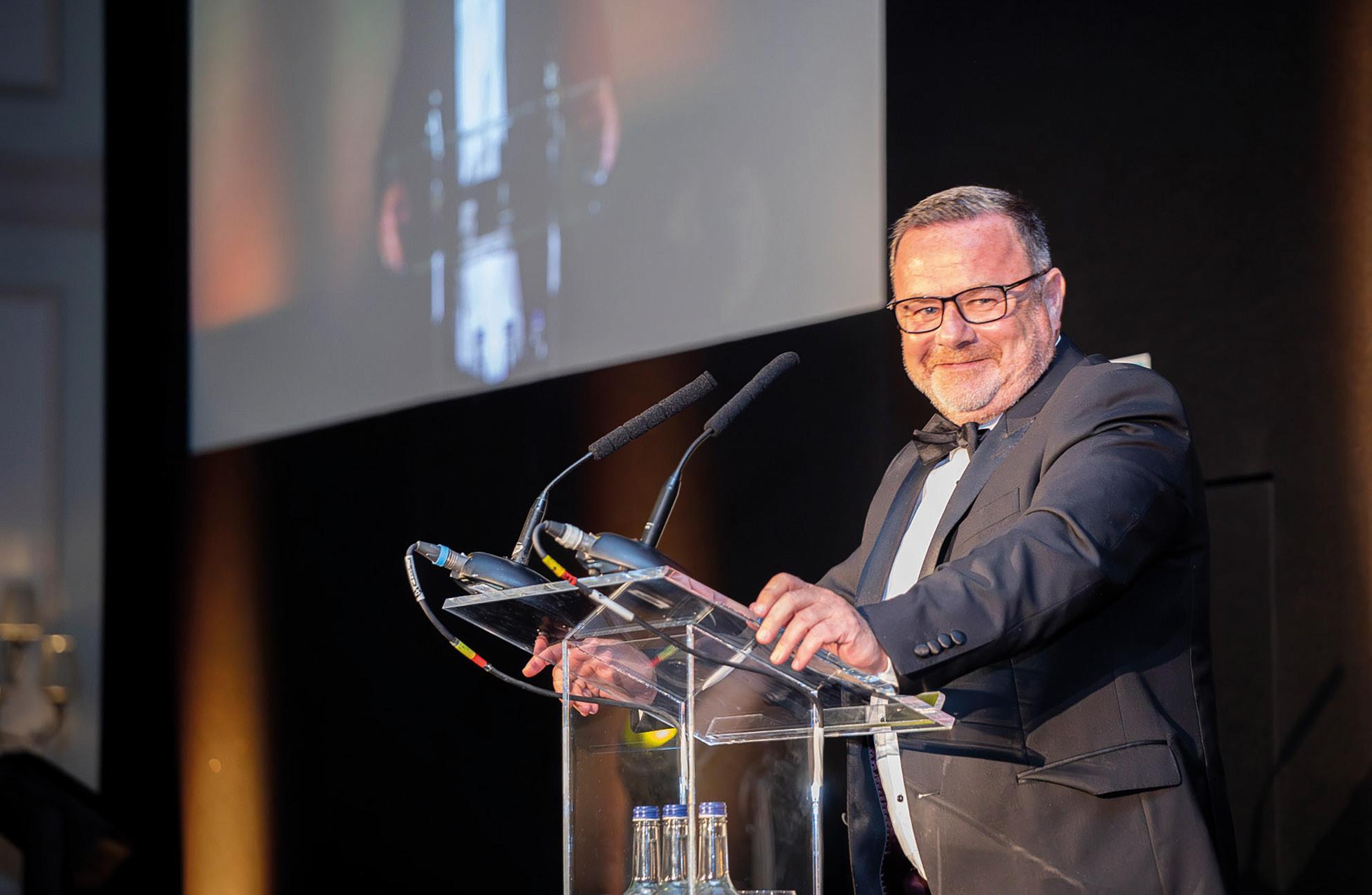
Noel Travers is relishing the opportunity as Chair of RIA, particularly in light of the recent start of Control Period 7, a new Government in charge and rail reform on the horizon.
“I see any changes as opportunities, but to really capitalise we need to be the cheerleaders for what the rail sector adds,” he said. “That’s not just the ability to move passengers and freight, it is about the revenue we generate, the GDP impact we have, and the more than 700,000 people that the industry employs.
“I have a huge amount of positivity about the journey ahead. There is an acceptance of the need for rail reform, so now we need the Government to get on with it to operate tracks and trains together and to make decisions on what is best for the industry as opposed to what is best for one party within the industry.”
Noel is no stranger to RIA, the voice of the UK rail supply community, having served on its board from 2018 to 2021, while he was Managing Director
(MD) at Unipart Rail. Now the MD of international railway engineering solutions and services firm Xrail, he is excited to be involved again, and is passionate about playing even more of a role in helping to grow a sustainable, high-performing railway supply industry, while helping to export UK rail expertise and products.
“I’ve always recognised the value of RIA and I’ve always relished the voice and the opportunity to be part of that voice and playing a role in changing, or at the very least certainly affecting, the policy of the rail sector going forward,” he said.
“To me, RIA is several things. It is a members’ organisation, so it is important to inform the membership about what is happening in the industry, and it is a technical organisation when you look at the different interest groups, whether it be rolling stock or signalling, so it is about keeping people updated about what is happening and giving people a voice in those forums.
“Also incredibly important is its role as a lobbying organisation, something that shouldn’t
be understated. To champion a dynamic rail supply sector, which is our objective, we have to be its voice. We need to ensure it is an industry that can achieve its goal of effectively moving freight and passengers around the country at the minimum cost to the revenue, helping our members to grow profitably.
To do this we need to make sure that our members are well informed, our politicians are well informed, and nobody makes a decision without realising the implications of those decisions.”
Noel joined the railway as a British Rail-sponsored Engineering Management Trainee in 1988 and trained for two years during his Mechanical Engineering degree at Loughborough University, later holding engineering and management posts in Chiltern Railways and Intercity West Coast.
Approached by Bombardier Transportation, he became Sales Director for UK, Ireland and South Africa in 2008 and held various Project Management roles, before spending 18 months as Interim Chairman and UK MD. He joined Unipart Rail as Deputy MD in 2016, becoming MD in 2017 and the following year
also became MD for Unipart Manufacturing Group with overall responsibility for the group’s automotive and aerospace manufacturing businesses, before joining Xrail in April 2021.
Splitting his time between Xrail and his role at RIA is something he is confident will not cause any issues, particularly as he has proven the ability to juggle several high-profile roles, having also been Chair of the Institution of Mechanical Engineers Railway Division between 2022 and 2023, a role which reflects his commitment to engineering excellence and professionalism.
“I am incredibly privileged to work for an organisation in Xrail Group which understands the importance of these activities and the really important work that RIA does,” he said. “If it means I have to do many more hours, then I am prepared to do that. I wouldn’t have taken the job on if I couldn’t give it everything.
“Splitting my time between both organisations, that variety really appeals to me, it appeals to my brain, it appeals to the way that I operate. The ability to constantly stretch yourself to think on different matters, that is what excites me most and that is when I am at my best, when I am operating in that kind of environment.”
As to the aims and aspirations for his time as Chair of RIA, he wants to play his part in helping to take RIA to the next level for its members and to grasp the opportunities to restate the hugely important role the UK rail supply sector plays in creating jobs and GVA across the national economy, as well as supporting innovation and skills in rail.
“Membership is an obvious area I’d like to see grow,” he explained. “360 members is great, but there is a supply base that probably goes into the tens of thousands of suppliers so there is plenty of potential to grow. The best way to achieve that is to get the message out there about being part of the voice, having your voice heard, and being informed and educated on what is current from a technology and policy perspective.

“It is a critical time to join RIA, particularly with the changes on the horizon. We will have an important role to play with the new Government, helping them to understand what is going to make the rail sector more efficient, more effective, and better at doing what its core business is, which is moving passengers and freight as cost effectively as possible.
“We have a fantastic platform and reputation, evidenced by the very high-quality speakers who come to our events because they want to talk to us and the industry. Just as important at our many events is the networking with fellow members. Nobody should ever feel that an hour invested in a RIA
If I can make half the contribution that David has over his many years then I’ll feel like I’ve done a really good job
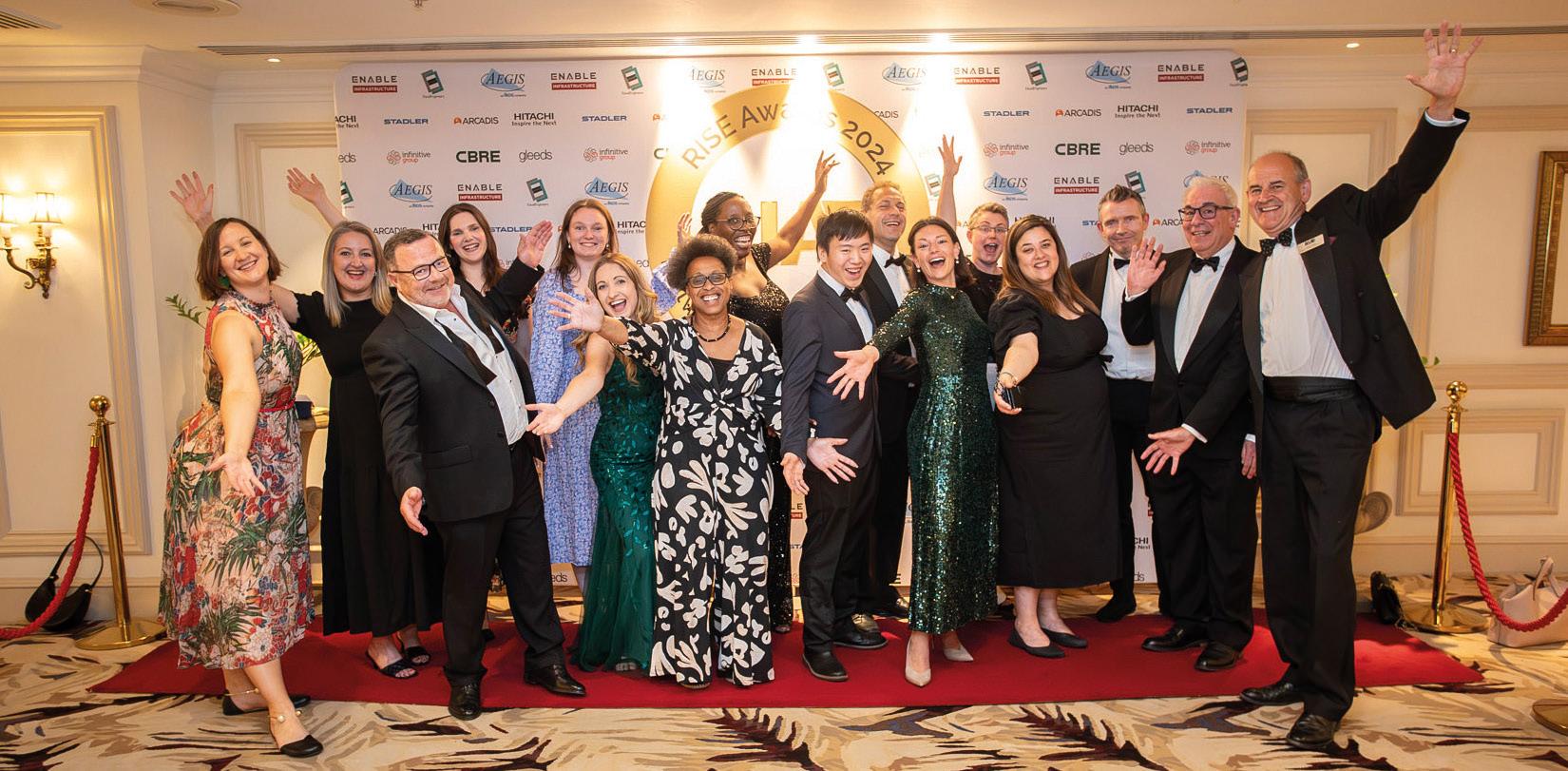

I’ve always recognised the value of RIA and I’ve always relished the voice and the opportunity to be part of that voice and playing a role in changing, or at the very least certainly affecting, the policy of the rail sector going forward
activity is an hour wasted. It should always be an hour that has added value to their core business, and I want to assure people that is the case.”
There is no denying that Noel has big boots to fill, taking on the role from David Tonkin, who was Chairman for seven years, and he is keen to recognise his efforts.
“The organisation is in the best of health and David – working with an excellent and motivated team around the country – has done a superb job of professionalising the governance around RIA, the way it operates, and has ensured it continues to be very, very effective at what it does,” he said. “David has been instrumental in creating the organisation that RIA has become and his professionalism and his approach to governance is second to none. I am delighted to be following David and if I can make half the contribution that David has over his many years then I’ll feel like I’ve done a really good job.”
The job for Noel will start in ensuring the Government takes notice of RIA’s five main election manifesto asks for the new Parliament, which is seeking a fresh start for UK rail, calling for rail capacity to be boosted to meet future demand, and to take a long-term and strategic approach to rail investment which leverages the best of both the private and public sectors.
In summary, the asks are: to publish a long-term rail strategy, deliver on railway industry reform, accelerate new train orders and low carbon network upgrades, support a sustainable supply chain, and leverage private investment.
“Anything that makes the industry more effective at delivering is good for everybody that is part of the industry,” he said. “The rolling stock supply chain
needs a long-term plan that is aligned, so we don’t end up in a situation where there is a barrage of new orders or refurbishment projects, but our capability has disappeared. It is important to have that longterm plan to ensure manufacturers and overhaulers/ upgraders have the ability to invest in their business.
“Looking at infrastructure, certainty from Network Rail is critical to us all in our ability to deliver what we want to deliver for the industry. There has been too much uncertainty for too long and that needs to end. Rail reform will do that, although I am loathe to pin all hopes on it solving all the ills that exist. It is a really important first step.
“I think Network Rail needs to be more efficient at buying and rely more on its supply base to be able to deliver some value. We need to get away from the mindset of man marking from a supplier and deliverer perspective, but I am seeing those moves already in Network Rail, so it is a case of accelerating those.”
Overall Noel is incredibly excited for the future of the rail industry generally, buoyed by a 75 per cent growth target in rail freight by 2050 and Steer research for RIA that has found passenger numbers could double by 2050. This only adds to a sector that contributes £43 billion in economic growth and £14 billion in tax revenue each year, as well as employing 710,000 people.
It is also a vital industry for the UK’s economic recovery, supporting green investment and jobs in towns and communities across the UK; for every £1 spent in rail, £2.50 is generated in the wider economy. RIA’s membership is active across the whole of railway supply, covering a diverse range of products and services and including both multi-national companies and SMEs (60 per cent by number).
Noel, who has been in the railways for 36 years, said: “When you join the rail industry it has this way of getting its hooks into you and once the hooks are in you can’t get rid of them. You learn to love the industry, you learn to love the idiosyncrasies of the industry, you learn to love the characters of the industry, and as frustrating as it all can be at times, it really does feel like you are doing a service.
“No matter who you are dealing with, who works in and around the rail sector, and no matter how opposing their commercial views might be to yours on a particular topic, I’ve never met anyone that doesn’t want the rail sector to succeed and be better. It is an incredible sector when it comes to that and in the amount of pride it generates in people to belong to it.
“I think RIA is an incredibly important cog in the rail industry succeeding so I am delighted to have been invited to the role of Chair and honoured to have been selected by the board, especially with the opportunities ahead and the upcoming 150th anniversary of the organisation.
“The rail sector has given me a really good career and I would love to help ensure the rail sector continues to give the generations following me and generations following them really excellent careers doing a good job for the UK public. To members, I would say you get more out of RIA the more you put in. As an association, the more voices we hear, the more perspectives we get, the more able we will be to help the industry achieve its goals.”





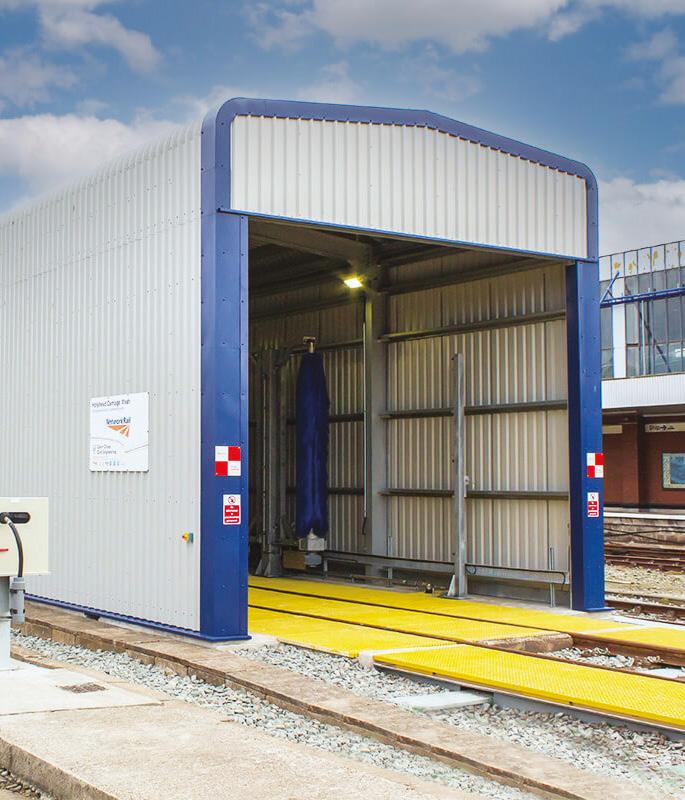






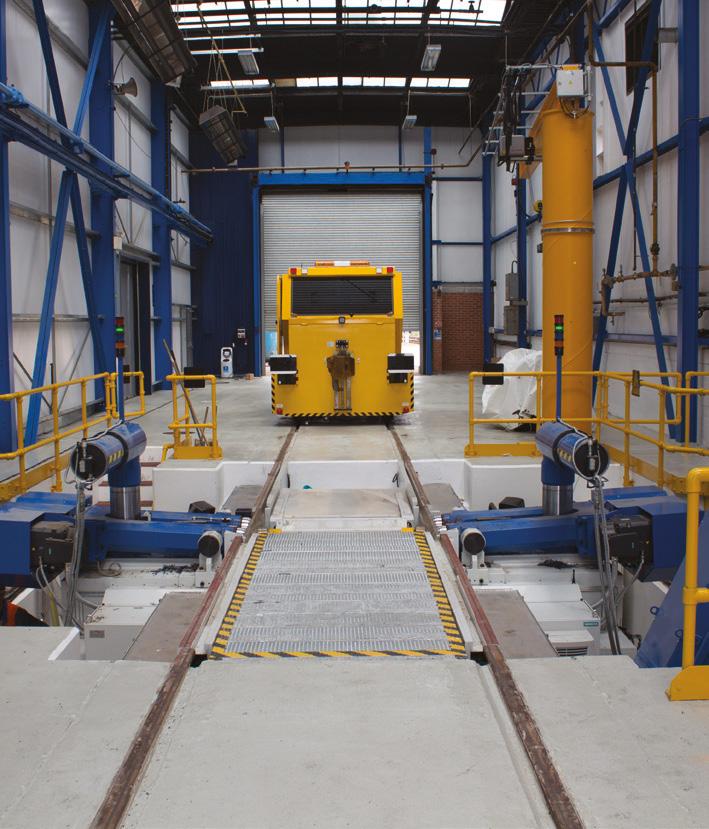





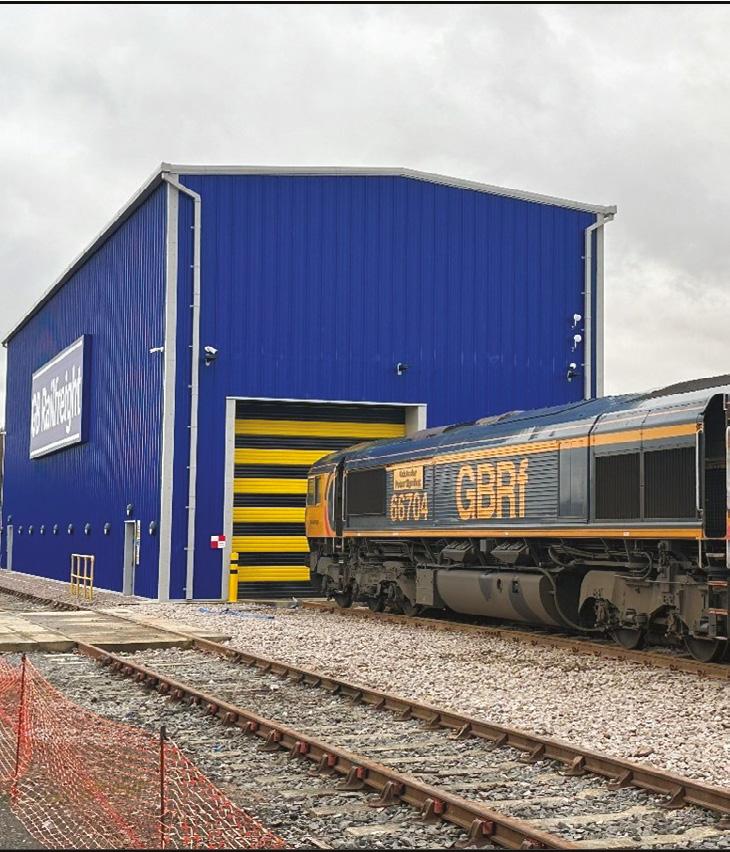




In the nearly 10 months since Innovate UK KTN announced the winners of the 2023 ‘First of a Kind’ (FOAK) competition for ‘Reliable and Maintainable Assets Rail Demonstrations,’ One Big Circle’s winning DepotMATE project has made significant strides
DepotMATE has evolved from a conceptual design to an actively trialled pre-production solution, with the goal of becoming a fully operational inspection system within the year. The system has undergone active trials in live depot environments, leading to informed and updated designs. It is currently in the manufacturing and pre-testing phase and will soon be installed and commissioned on-site, all supported by One Big Circle’s dedicated User Interface.
The DepotMATE (Multi-sensor Automated Train Examination) system is an innovative rolling stock monitoring solution created to meet key inspection challenges whilst enhancing safety for depotbased teams. The project is being led by the Bristol-
based tech SME One Big Circle, and delivered in collaboration with operators Colas Rail UK, East Midlands Railway, and Transport for London.
The system comprises a programme of sensors fitted to a lightweight configurable unit, designed for easy installation at sidings or adjacent to relevant depot roads. Triggered by vehicle motion, the system captures sensory data from passing vehicles and transmits this online for review. Delivering a combination of visible, thermal and acoustic data, the end-to-end system aids site teams in monitoring brake conditions, reviewing the temperature of bearings, and assessing vehicle fixtures. The system enables each digital inspection to be recorded and reviewed remotely and historically, delivering revolutionary methods of rolling stock monitoring.
Simon Ball, Director of Freight for Colas Rail UK, said: “The DepotMATE project will be invaluable in helping to monitor the condition of our freight trains.
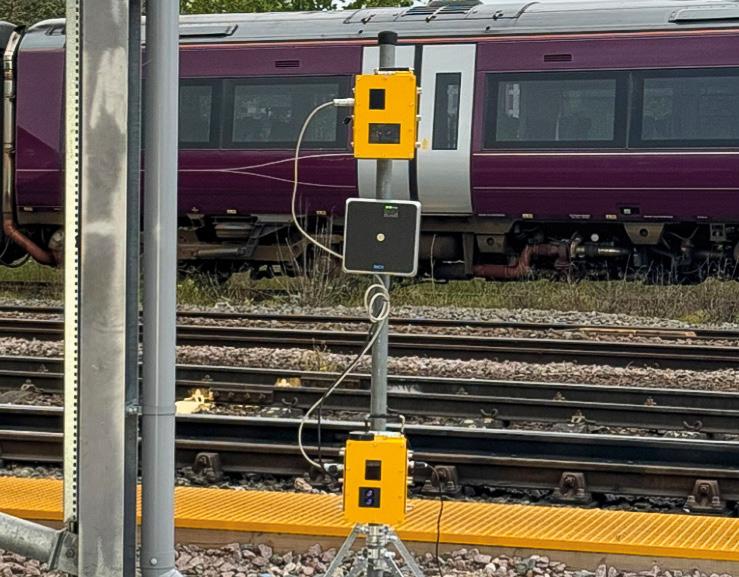
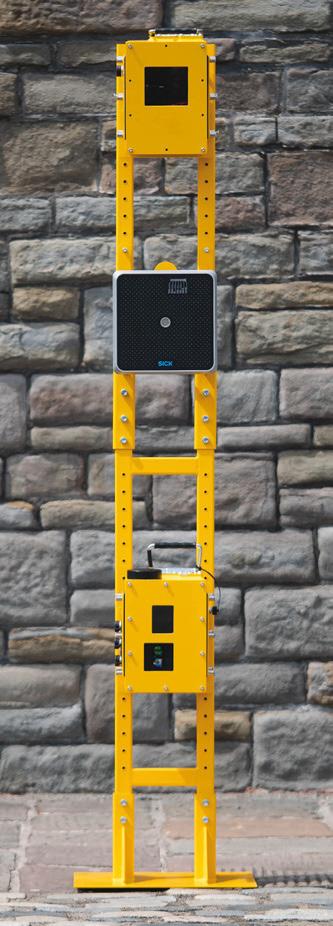
The One Big Circle team have been capturing data from our freight trains which will help to identify high risk issues such as wheel flats, brake defects and overheating axle bearings in a safer and more proactive way, adding extra detail to the necessary technical examination undertaken during arrival at terminals and departure inspections prior to trains operating onto the rail network. We look forward to continuing working with the team to deliver this technology which will help in dynamically maintaining and safe operation of Colas Rail freight trains”.
Strategically positioned, the system is designed to capture information pertaining to vehicle conditions which may be invisible to the human eye, i.e. overheating assets, to assist operational teams to harness further insight into rolling stock conditions. The project aims to support teams to quickly and reliably detect defects or potential issues which may otherwise go unnoticed, contributing to more proactive rolling stock maintenance regimes.
The new DepotMATE platform seamlessly interfaces with One Big Circle’s multi-award-winning AIVR (Automated Intelligent Video Review) cloud-based platform. This integration allows depot operatives, control units, fleet engineers and managers to quickly review extensive, up to date imagery and data. This access to detailed data allows for immediate analysis and decision-making, which is crucial for maintaining the smooth operation of rail services.
“The AIVR DepotMATE platform hosts data captured on-site and is made accessible to depot teams, remote end-users and fleet engineers. All presented imagery is complemented by a suite of digital tools in this interface, to assist users to deliver
detailed reporting, gain insight and export data to fit with end user workflows. The DepotMATE interface has been designed to assist engineers in making assessment of rolling stock conditions over time, with the objective to support teams to make proactive maintenance decisions that reduce rolling stock vehicle downtime and contribute to improved service reliability.
Leveraging machine learning and artificial intelligence
Machine Learning and artificial intelligence (AI) is being developed to enhance abilities for fleet teams to identify potential fault conditions. The system enables detection of ‘thermal hotspots’ points across vehicles to be dynamically alerted to end users, in addition to automatically detecting critical assets, and automated people blurring which upholds privacy standards.
Enhanced operational efficiency
DepotMATE will assist rolling stock operators to conduct vehicle inspections safely and provide key insight into rolling stock conditions over time. Improving means of data accessibility pertaining to rolling stock helps operators inform asset utilisation, prolonged vehicle life, and ultimately, reduce maintenance costs.
By harnessing the power of advanced sensor technology, cloud-based platforms, and AI-driven analysis and combining them in a lightweight and easily deployed system, technologies like DepotMATE are demonstrating the innovative solutions paving the way for data-driven decision making in the rail industry. This combination of cutting-edge technology and collaboration with key stakeholders in the rail industry is an exciting glimpse into how the sector seeks to deliver more reliable and maintainable assets.
Mark Coney, Head of Fleet Engineering for EMR, said “Here at EMR we’re keen to work proactively with innovators in the supply chain. The DepotMATE project has been an excellent opportunity to collaborate with One Big Circle and share industry expertise in order to drive safety and reliability improvements for our customers and staff.”
Emily Kent, Co-Founder at One Big Circle, said: “DepotMATE is a great example of combining expertise across organisations to create a solution that can overcome a pressing industry challenge in the depot and siding environment. The types of data captured have been tuned to meet those challenges from the partners involved, and the physical system designed to be as practical and scalable as possible to be able to meet multiple use cases in a range of locations. To that end, we’re really excited about the results it has achieved already and the potential of the DepotMATE system going forwards.”
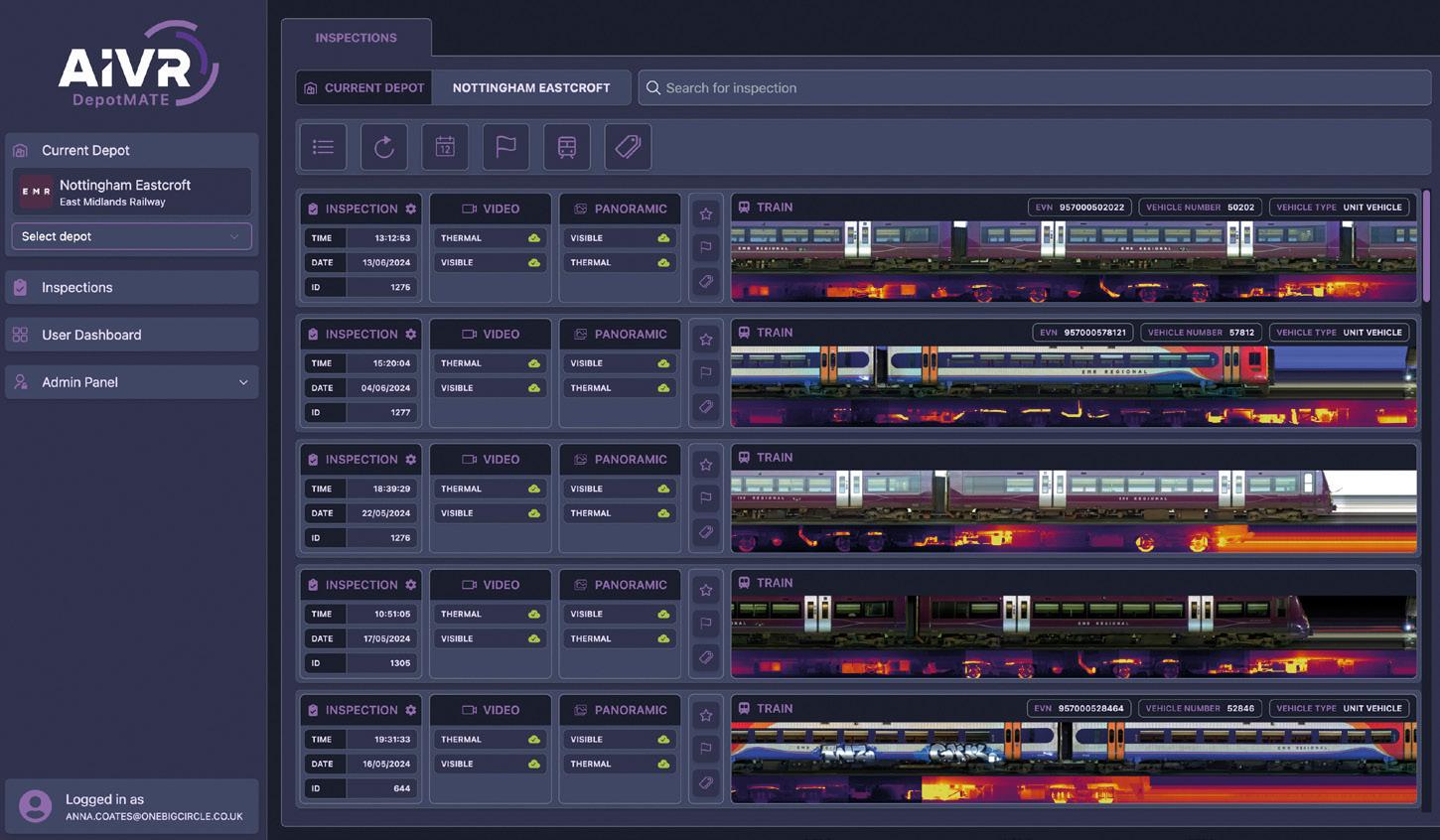

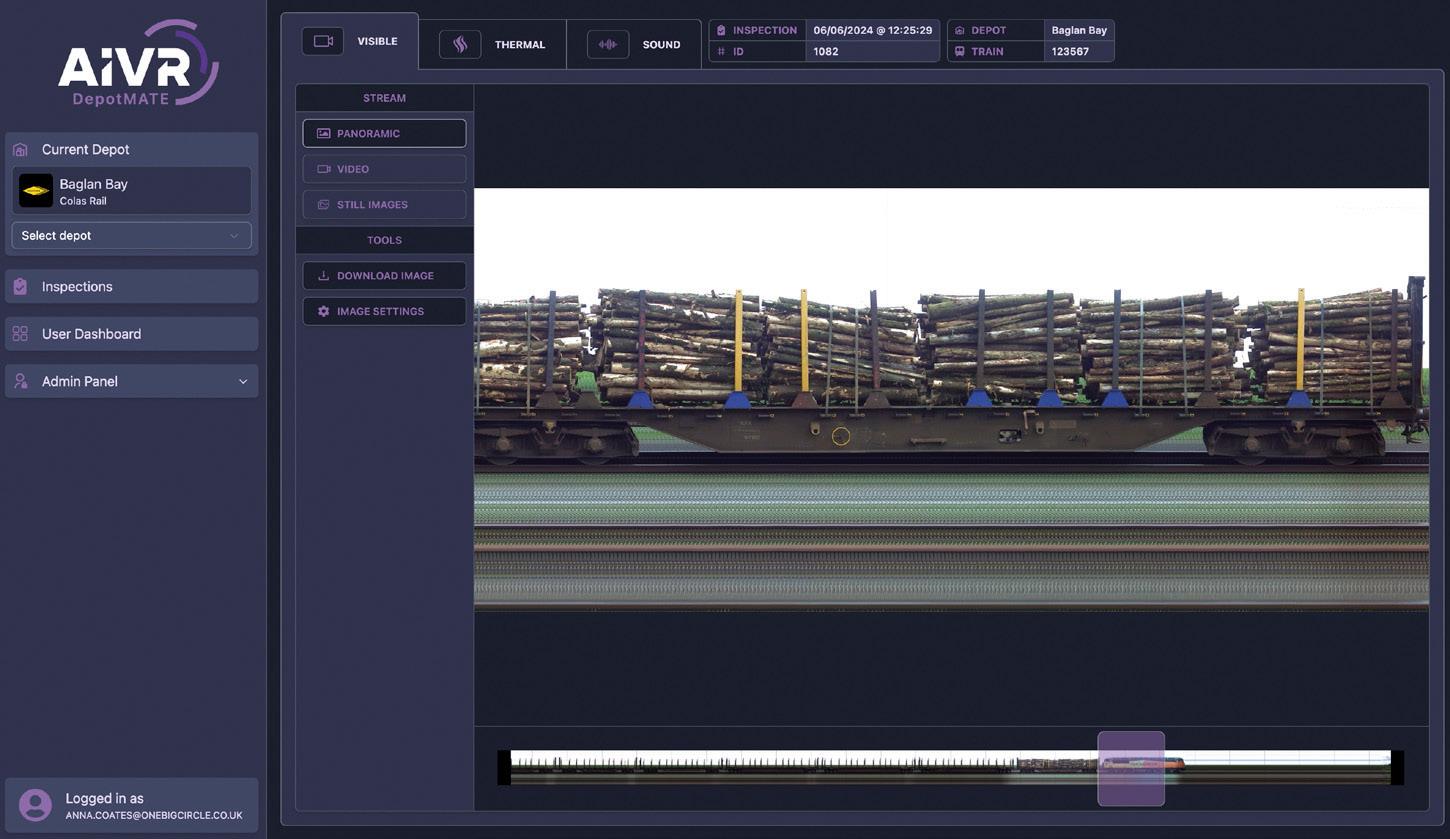
The operator’s fi nal Pendolino has been refurbished, marking the completion of the UK’s biggest fl eet upgrade















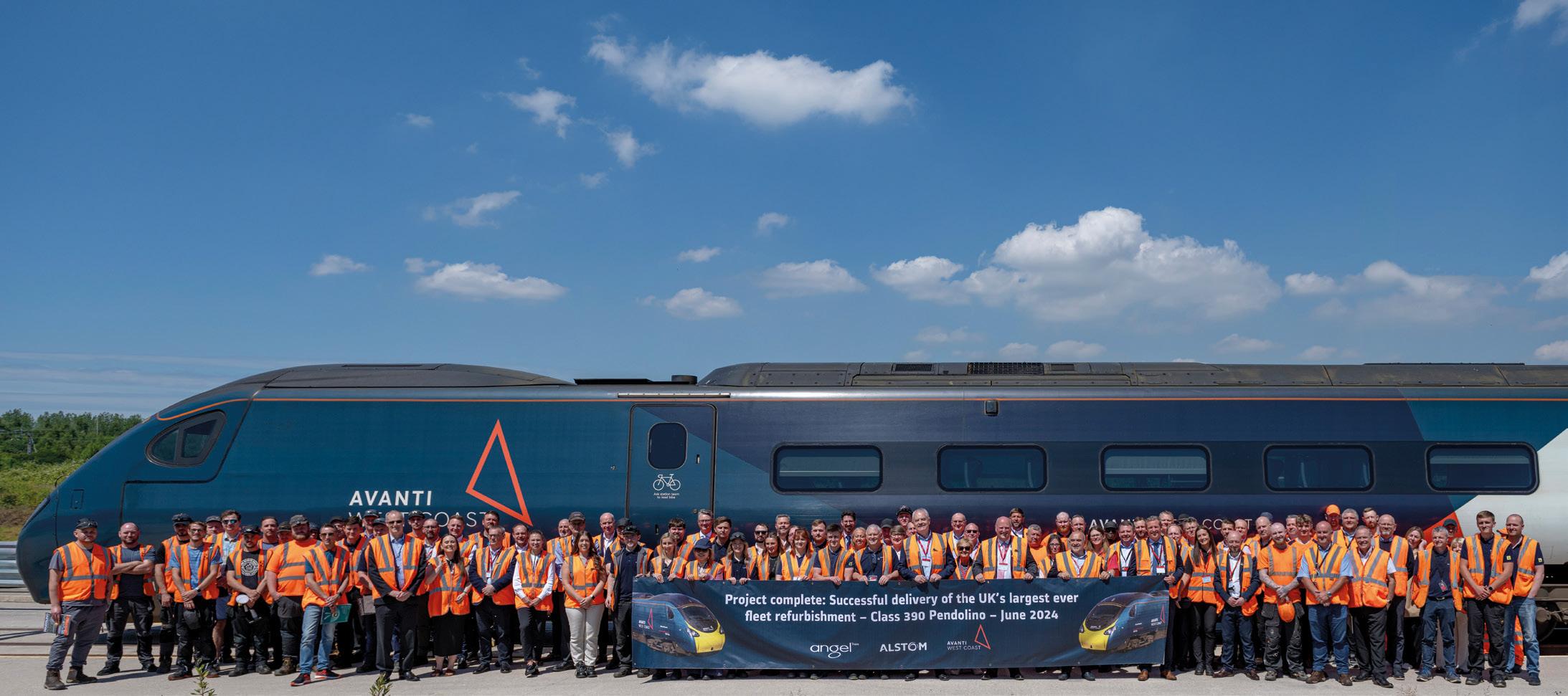
“The Pendolino is an iconic train, and now even better than before, offering customers a much-improved travel experience with innovation and sustainability at its heart.” That was the message from Andy Mellors, Managing Director at Avanti West Coast, following news that all 56 of the operator’s Pendolino trains had been fully refurbished.
The departure of the last train from rail manufacturer Alstom’s Widnes facility last month marked the end of the £117 million project, the UK’s biggest-ever fleet upgrade. It has seen 574 refurbished carriages delivered in just over two years, at a rate of one completed train every two weeks.
Andy added: “The refurbished Pendolinos, together with our new Evero fleet, are a key part of our mission to transform rail travel for our customers on the west coast route.”
The Pendolinos have served routes between London, Birmingham, Manchester, Liverpool, Glasgow and Edinburgh for close to 20 years and the upgrade has returned the whole fleet to an ‘as new’ condition, including 25,000 new, ergonomic Standard Class seats, improved lighting, and greater use of technology with customer-friendly passenger information screens.
Peter Broadley, Alstom’s Services Managing Director UK, said: “Alstom’s successful completion of the UK’s biggest-ever fleet upgrade demonstrates our commitment to enhancing the journey experience for fare-paying passengers while, at the same time, supporting the growth of sustainable rail travel in the UK.
“This milestone highlights the dedication and expertise of our team at Widnes. They have worked tirelessly in partnership with colleagues at Avanti West Coast, Angel Trains, and our wider UK supply chain to elevate the interior refurbishment of rolling stock to another level. We are immensely proud to see
the entire Alstom-built Pendolino fleet returning to service in peak condition.”
UK suppliers are also benefitting from 80 percent of the £117 million investment, which is financed by Angel Trains, one of the UK’s leading train asset management companies.
Malcolm Brown, Chief Executive Officer of Angel Trains, said: “A huge thank you to both Alstom and Avanti West Coast for making the UK’s biggest-ever fleet upgrade possible. It’s significantly transformed our iconic trains, and I’m positive that passengers will enjoy the comfort and connectivity when they travel on one of our refurbished Pendolinos.
“This is exactly what the partnership between our businesses set out to achieve together, and I’m certain that it will encourage people to make a positive decision to travel by train on the West Coast Main Line.
“To demonstrate our commitment to continue developing talent within our suppliers and industry, Angel Trains is excited to announce that we’re sponsoring two apprentices to join Alstom’s Widnes facility later this year. I wish them every success in what I hope will be a long railway career ahead.”
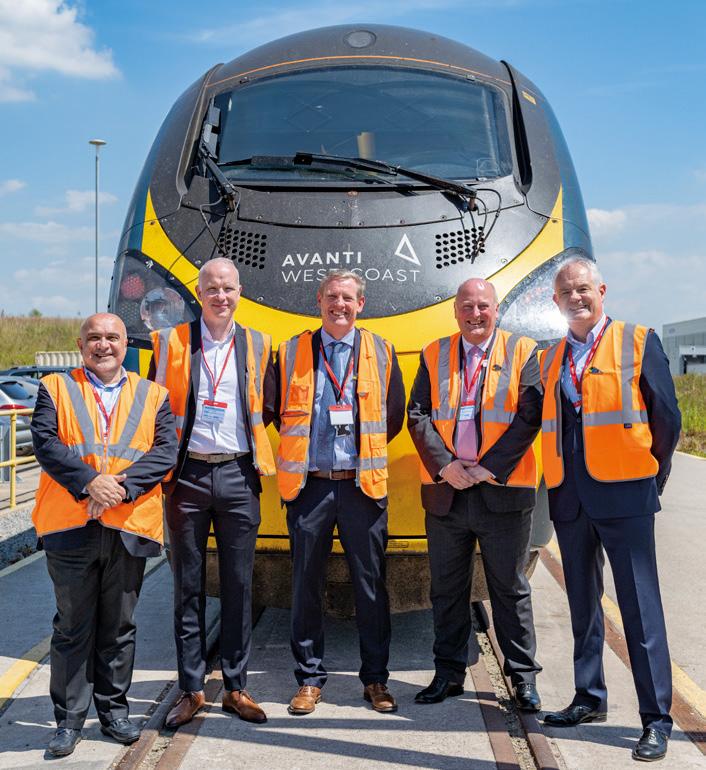
Customer benefits of the fleet overhaul include:
25,000 new, ergonomic Standard Class seats.
Conversion of one First Class carriage on each of the 35 11-carriage Pendolinos to provide more than 2,000 extra Standard Class seats.
The introduction of a new onboard shop.
Improved lighting.
Refurbished First Class and Standard Premium seats.
Greater use of technology with customerfriendly passenger information screens.
Additional luggage space in Standard Class.
Power points at every seat.
Refurbished toilets.
New carpets throughout using sustainable British wool.
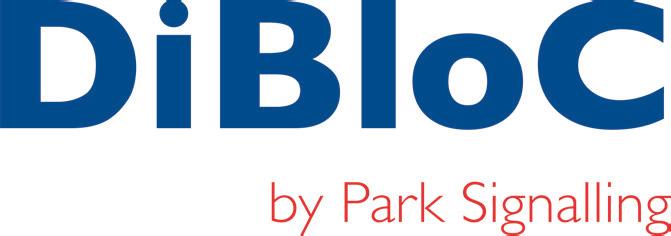
A replacement for the existing Block Controller for single line track.
Our fully digital version of key token equipment communicates digitally through IP based systems, including provision for TPWS and section signal release.
The DiBloC features:
• IP connectivity with two redundant connections
• Physical key compatibility with existing key token machine equipment such as ground frame locks
• Ability to work in sets of 2-6 units
• Ability to operate TPWS and/or single throw/starting signals
• No on-board equipment – compatibility with all rolling stock


Freightliner has agreed to a pioneering partnership with Siemens Mobility to fit its First-in-Class (FiC) locomotive 66591 in-house with European Train Control System (ETCS) equipment, allowing for the ‘next generation’ of digital signalling.
It said that the introduction of in-cab signalling would ultimately improve the network’s reliability as it supports the movement of freight onto rail – taking lorries off Britain’s roads and reducing carbon emissions.
As owner and operator of 66591, Freightliner is innovating by completing the fitment in-house as a first for the industry. It added that, due to the working knowledge held by the internal fitment team on the subtle differences between core and variant vehicles, it would bring the knowledge, skills and experience to make the fitment process streamlined.
This is one of the first of hundreds of freight locos that will be fitted with the technology, many of which will be required to deliver ‘no signals’ operations through the East Coast Digital Programme (ECDP) which forms the foundation for the progressive roll-out of digital signalling on the rail network.
This is the first time on the programme that the operator will independently install ETCS components on its own locomotive. The Class 66V locomotive 66591 will be fitted by Freightliner’s own personnel at the Leeds Midland Road Vehicle Maintenance Facility.
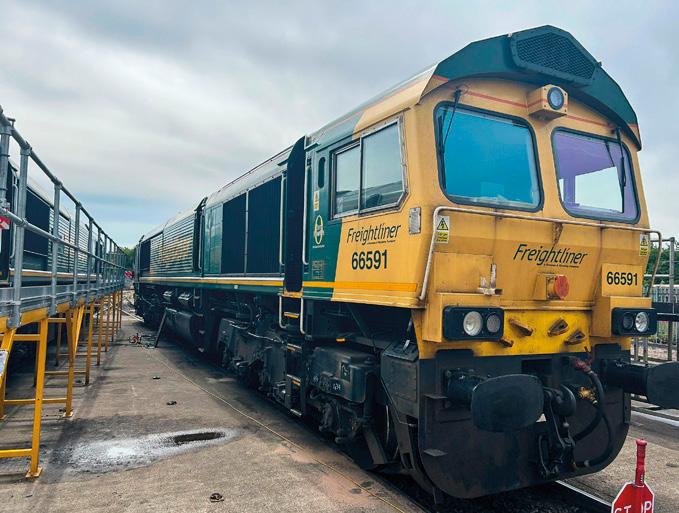
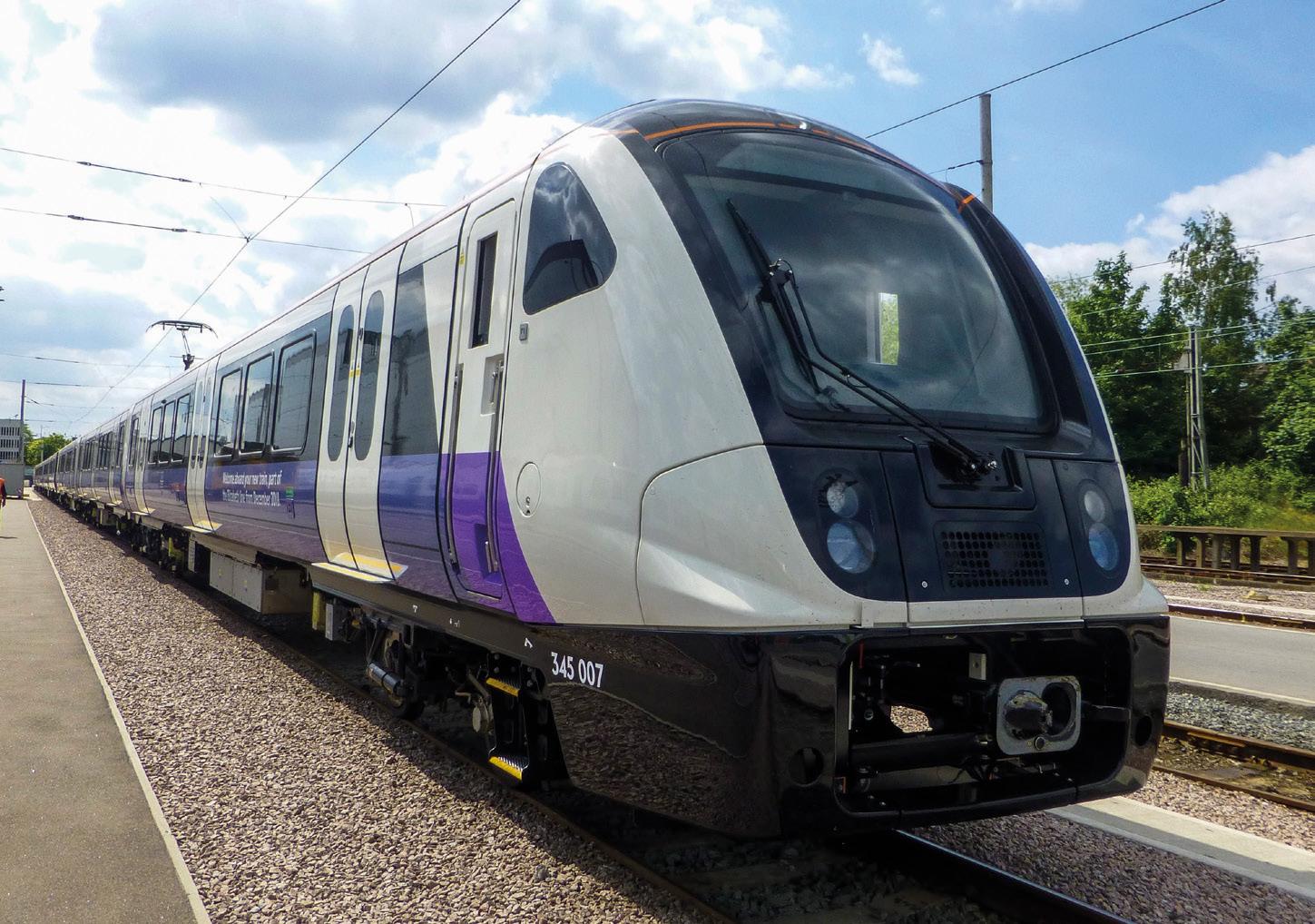
Alstom has signed a contract worth around £370 million for 10 new nine-car Aventra trains – and maintenance – for Transport for London’s (TfL) Elizabeth line.
Opened in 2022, the Elizabeth line continues to experience passenger demand ahead of predictions and its current 70-strong fleet of Alstom-built Aventra Class 345 trains would be insufficient to meet demand later this decade and through the 2030s. The additional Aventra electric multiple unit (EMU) passenger trains will be built at Alstom’s Derby facility.
“We are delighted to now have a confirmed workload for Derby Litchurch Lane and our supply chain across the UK,” said Nick Crossfield, Managing Director UK and Ireland at Alstom. “The UK remains one of Alstom’s most important global markets.”
The contract includes new trains which are funded by £220.5 million from the Department for Transport,
with TfL also contracting for the provision of train maintenance on the units until 2046.
The news has been welcomed by the Railway Industry Association (RIA), which has been campaigning for the Government to make decisions on orders for new and refurbished train fleets for several years.
The trade association has published several reports calling for a proactive approach to rolling stock procurement as a pillar of an industrial strategy for rail in addition to championing the issue with MPs.
Darren Caplan, Chief Executive at RIA, said: “It is positive that the UK Government has listened to calls by RIA and other stakeholders and confirmed funding for the procurement of new trains for Transport for London’s Elizabeth line which will be built at Derby.
The news will be welcomed by hundreds of rail businesses of all sizes, factories and jobs across the rail supply chain.”
Heathrow Express’s track access agreement will be secured until June 2028. The operator, which carries 16,000 customers per day, says this agreement demonstrates the value of targeted private investment in the railways and ensures continued delivery of a reliable and quality service for passengers’ first experience of the UK. It also maintains the distinctive terms that are central to the operational elements of the Heathrow
Express service. These include the consistent 15-minute journey intervals, operating every 15 minutes from Platforms 6 and 7 at Paddington Station.
Daniel Edwards, Business Lead & Director at Heathrow Express, said: “We are thrilled to have reached this landmark agreement. Our passengers, both loyal and new can rest assured that they will always receive the high-quality service they have
come to expect from Heathrow Express.
“By securing our track access agreement until June 2028 we continue to prove the benefit of open access rail operators in providing valuable competition which enhances the overall passenger experience. Heathrow Express remains dedicated to providing a premium service, with the airport passenger in mind, that prioritises efficiency, reliability, and great customer service.”
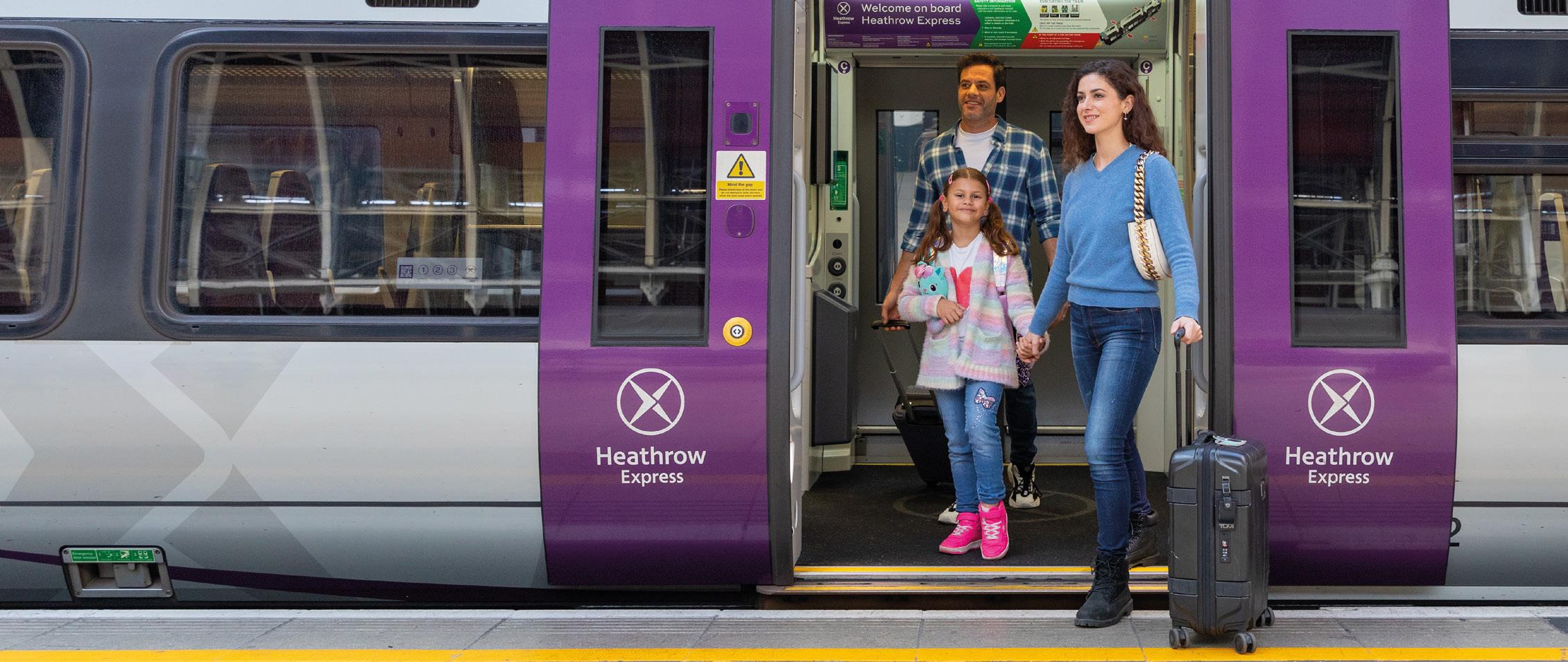
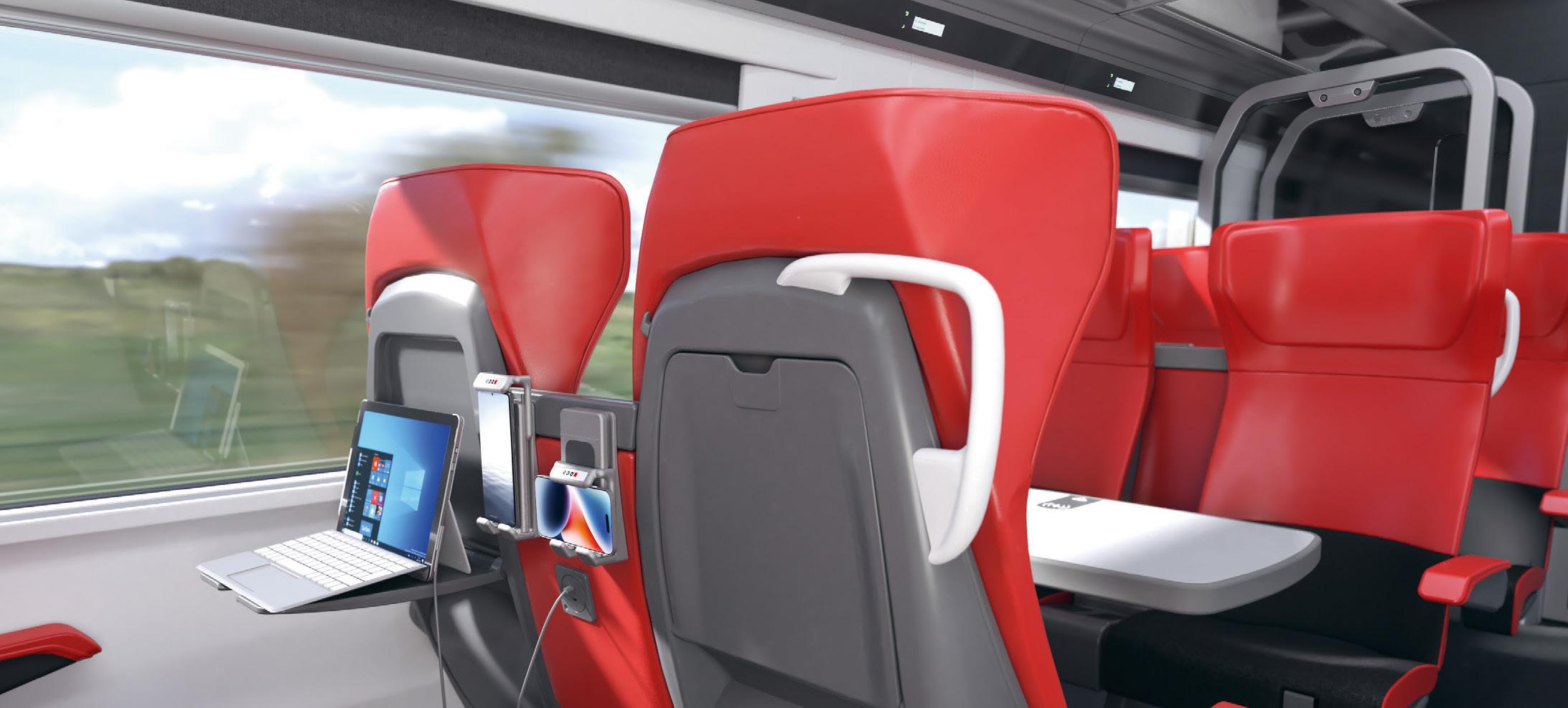

New faces replaced old at the Railway Industry Association (RIA) Annual Dinner as 12 companies and individuals were recognised for the quality of their work in the industry
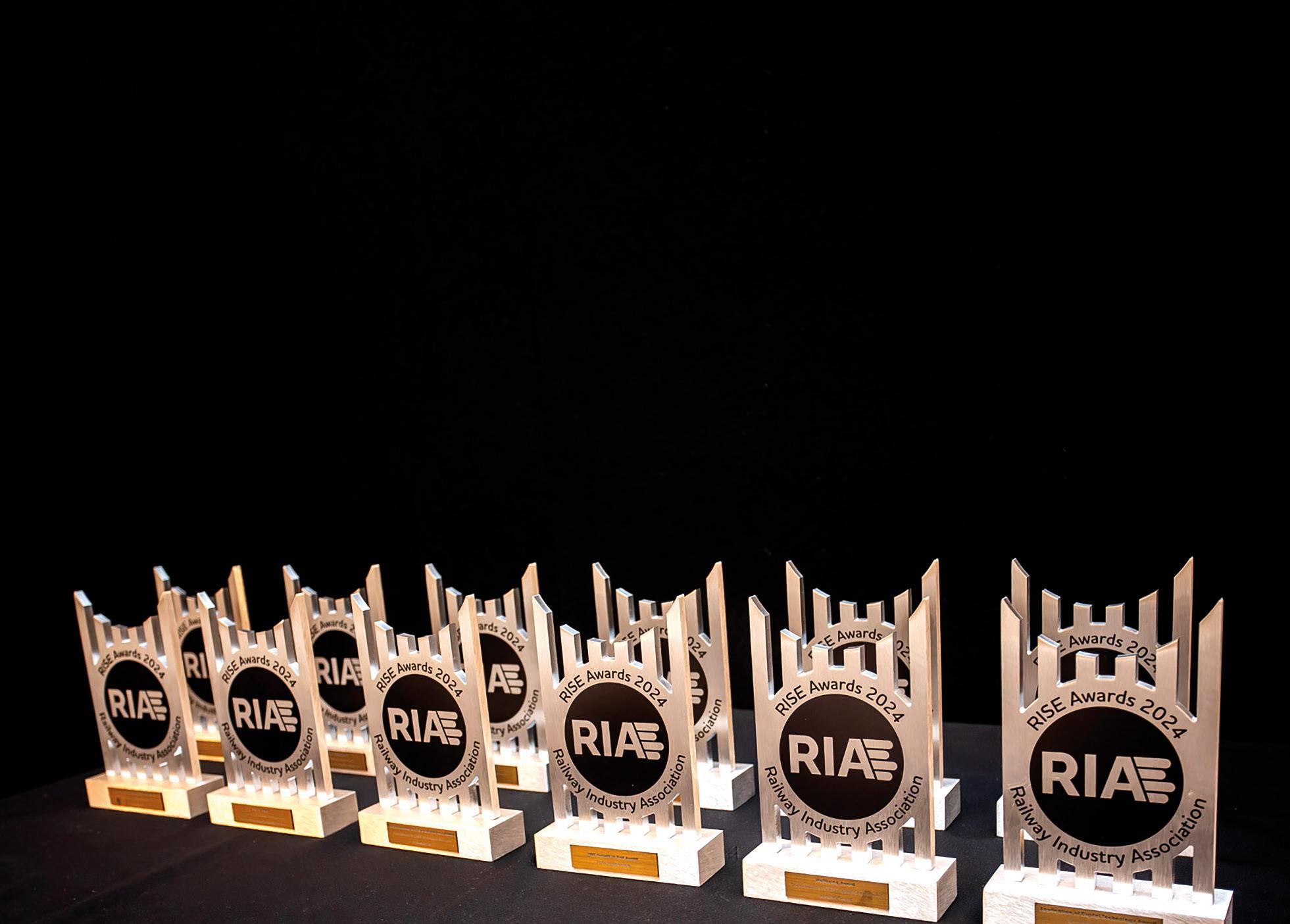


This year, the RIA Annual Dinner had twin themes. The Railway Industry Supplier Excellence (RISE) Awards would be presented after the dinner, but beforehand it was time to mark the changeover of Chairman from David Tonkin to Noel Travers.
Beforehand, and once everyone was seated following a busy networking reception, RIA Chief Executive Darren Caplan thanked everyone for coming. Introduced by the evening’s host Gloria De Piero, journalist and former Member of Parliament for Ashfield, he also thanked the evening’s sponsors and the RIA organising team.
Reflecting that the proximity of the General Election meant that there were no politicians at the event this year, he added: “We thought we would do things slightly differently, because this is obviously an important year for us, with a new Chairman coming in and a fantastic Chairman departing, so we thought we would make a feature of that before we get on to the awards ceremony.”
The old guard
David Tonkin was the departing Chairman. As CEO of Atkins UK, he first joined RIA as Chairman in October 2012, leaving in October 2014 to concentrate on his work at Atkins and as a Council Member of the Rail Supply Group. He rejoined RIA as Interim CEO in July 2016, becoming Non Executive Chairman in April 2017 once Darren had been recruited to replace him as CEO. Now, he is leaving his post to concentrate on family matters in his retirement.
Looking back over his time at RIA, David made reference to the looming election. “If I had a pound for every manifesto promise on the rail industry,” he said, “I would probably own a rail company by now.”
He also commented on the transient nature of politics. Over the last 20 years, there have been 17 Rail Ministers and 12 Secretaries of State for Transport –“That’s more than the number of stops on the London to Edinburgh line,” he quipped. “It’s almost as if we’re playing a game of political musical chairs. Just when one minister starts to understand the difference between a Class 43 HST and a Class 800 Azuma, or maybe even work out what ERTMS really is, then they’re off to another department, probably trying to figure out the intricacies of DEFRA.”
Asked afterwards how RIA had changed while he was Chairman, David replied: “Dramatically! Darren was very keen to modernise RIA, and he certainly has. It is a professional organisation, with a great membership – over 360 members of the last count. Obviously, we now have RBD as a separate business model, and the Nations and Regions, which has been a massive change in RIA and has been very, very positive.” Is there something that David regretted not having finished? “Yes, there’s one very strong thing. We have a Network Rail organisation that is funded by Government. That organisation spends 50 per cent of its money with the supply base. So, if I was setting up Network Rail now, I would have some suppliers on the board as part of my governance mechanism, to hold Network Rail accountable and to say: ‘Your success drives your suppliers’ success. If you’re not thinking about pipelines, and delays in work, then you’re not doing your job properly.’
“The board must have supplier representation, and I thoroughly don’t understand why that isn’t in place.”
New man on the block Noel Travers, RIA’s new Chairman, then came to the stage. “I’m really excited to take on the role of RIA Chairman,” he said. “I’ve been a huge supporter of RIA for many years, including sitting on the board for four years, and I know just how good a job the organisation does and the impact it has on behalf of our extraordinary industry. And, therefore, when the opportunity came to join, I quite frankly had to jump on it.”
“RIA is an incredibly important voice of the industry,” Noel commented afterwards. “Our politicians, and the people that set our industry strategy and objectives, are very good at engaging, but they also need to be held to account. And unless you publicly declare what your expectations are, then it’s very easy for them to not deliver, because people forget.
“So, the role of RIA, particularly when a new Government comes in, is incredibly important in making sure that what is good for the industry is understood by the politicians, and they’re held to deliver against it. Now, the two don’t always meet –political objectives and industry objectives – but we need to make sure that we have them aligned as much as possible, and help the Government to be a success.
“I couldn’t say that RIA would not have done what they need to do if I hadn’t been there, because David Tonkin has done an extremely good job, and has helped Darren to hold the politicians to account. But I think fresh eyes, and a fresh voice, always make a difference. I think it will help refresh the team. It’ll help energise the team. My approach is to be active and vociferous in whatever it is that I’m doing, and if that can help RIA be effective in getting the message across to the politicians, then that’s all well and good.”
The train operator’s view
Southeastern Railway Managing Director Steve White amused the audience by declaring that he had written a great speech for the evening. However, he first sent it to Darren Caplan and RIA for comment, and was asked to take out a few things. He then sent it to Southeastern’s lawyers, who redacted a bit more, and finally to his group’s lawyers, who removed still more. Still, he had something left to say.
“Happy Thursday!”
Having disposed of the redacted ‘speech’, Steve turned to the business of the evening.
“What we do in this industry really does matter. The National Infrastructure Commission recently said that rail is still so important for transferring large numbers of passengers and large amounts of freight between cities. So, our purpose is crystal clear. I think we’ve got to be honest, we’re in the fight of our lives. The delivery that we are giving to our customers, and our freight users is not of the standard that we aspire to.
“And we stand at a crossroads with a new Government. Will our industry be important to them? Will we be relevant? Will we be part of their solution?
“Poor performance undermines customer satisfaction, it undermines industry revenue, it takes away funds that we need for investment, and we
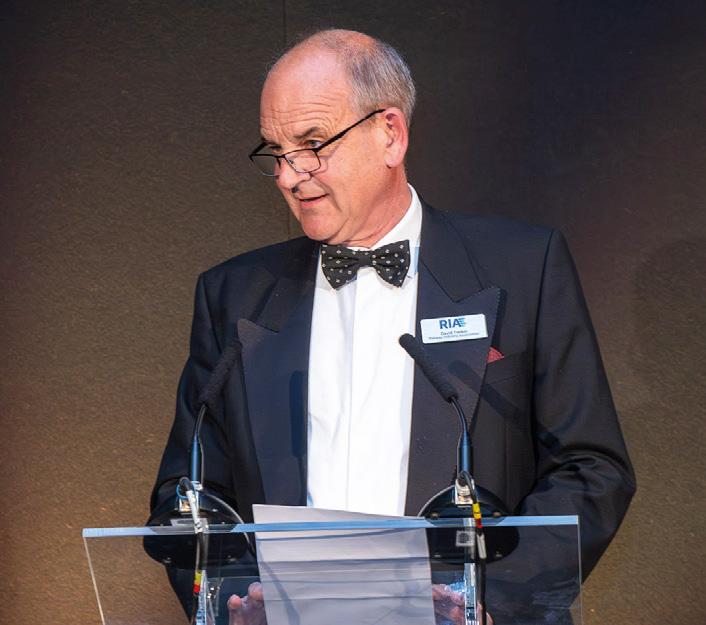

If I had a pound for every manifesto promise on the rail industry, I would probably own a rail company by now


could enter a vicious circle if we’re not careful. So, as our number one priority, this industry has to work together to fundamentally and irreversibly improve performance.
“The second thing we need to do is to change our narrative. If you judge railways on cost alone, we are an expensive cost to the Treasury. If you change that narrative, and you include subsidy, it gets a little bit better, but we are nowhere near the subsidy levels that we asked for pre-COVID. So, we’ve got to take the narrative beyond cost, beyond subsidy, and into economic growth. Can the railway be key to enabling UK productivity and economic growth? And, beyond that, can we support net zero? We are infinitely more green than fossil fuel cars and we are greener than electric vehicles.
“And finally, of course, our narrative is complete when we add in the contribution we can make to social inclusion, social value, and social mobility. So, railways are multi-solving, they are engines of economic growth, they are pathways to decarbonisation, they are pillars of social mobility. That is the story we need to tell. We really, really need to talk about what we are doing as an industry on a scale that we’ve never done before.”
Commenting afterwards on the role of RIA and the railway supply chain, Steve said: “If the industry is going to embrace a digital, high-tech future, then we’re going to need to go there with partners, and that’s where the supply chain really comes in. There are certain things that train operators are good at, and certain things that we really need help with.
“We work in an alliance with Network Rail. Likewise, there are certain core skills within Network Rail, but there are other things where we want to work with the supply chain. So, in reality, we need an ecosystem - bring in the best brains and the best organisations together to solve the railway’s problems. That includes small companies, large companies, public and private.
“On nights like tonight, it’s really, really good to see just the range of talent that’s out there in the supply chain.”
With the speeches over, as well as varied conversations over dinner, it was time for the RISE Awards. Host Gloria De Piero returned to the stage to announce the winners and ask the category sponsors to present their awards.
“All the entries were outstanding, and the judges
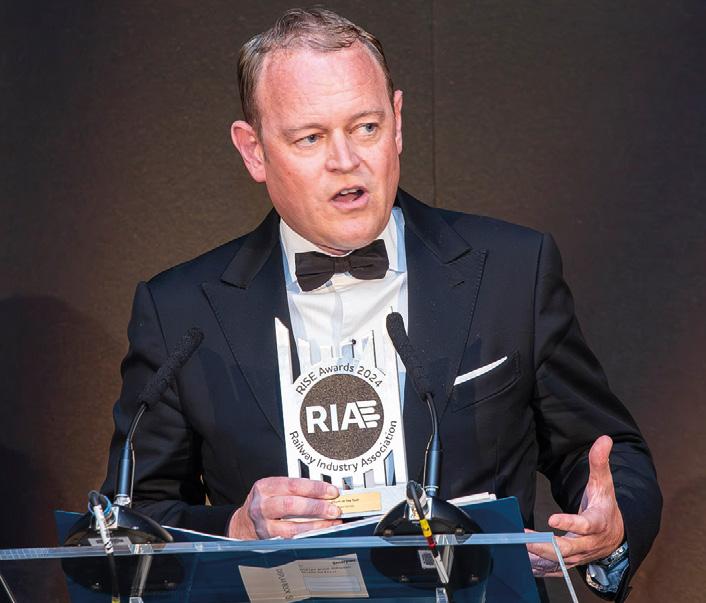
had a very difficult job of deciding the winners. We would like to thank our amazing judges for their time and dedication, reading through every single entry and considering their impact on the railway industry,” she said.
The first category of the evening was for Equality, Diversity & Inclusion. Damien Savage, Senior Director of UK Infrastructure at award sponsor Gleeds, was introduced and he announced that Transreport was the winner.
Transreport aims to make travel more inclusive for disabled and older people through innovative technology centred on accessibility and inclusion. Its flagship technology, the Passenger Assistance app and website, serves both passengers with access needs and train operating companies by providing a unified booking system, streamlining the assistance request process, and improving operational efficiency and communication for assistance across Great Britain.
In this category, the judges also highly commended Ampetronic for a strong entry focusing on creating more equal access for customers with hearing impairments.
The Safety Award followed. Stuart Jackson, Chief Operating Officer of category sponsor the Enable Group, opened his envelope to announce that Network Rail, partnered with Loccioni, had been picked by the judges for a strong entry with a good practical safety focus, which reduces disruptions for passengers.
The team is leading the implementation of an innovative Automated Measurement Trolley for the inspection of Switches and Crossings (S&C) based on ‘FELIX’, a non-contact and non-destructive technology using a combination of cameras and lasers. As the product-approved trolley moves, a new scan is taken every 2mm to check that the various track geometry and critical rail profile measurements are compliant with S&C inspection standards.
The Environmental, Social & Governance Award came next, and in this category, the judges felt that two contenders really stood out and deserved a place on the shortlist. Ben Flynn, Business Unit Director at award sponsor CBRE Managed Services, announced that Q Sustain had narrowly beaten Arcadis to the prize, as its entry showed an innovative approach to lowering carbon in lighting without needing the installation of an entirely new lighting system.
At Birmingham New Street station, Q Sustain
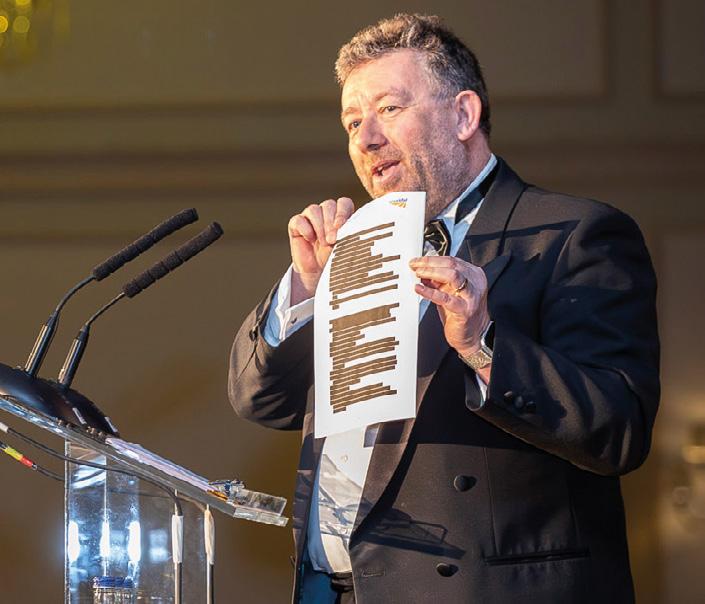
partnered with supplier, Designplan Lighting, to develop a retrofit option for end-of-life fluorescent platform lighting that replicated and improved the original lighting scheme without replacing the whole fitting.
Rail Director contributor Daisy ChapmanChamberlain was next up, to announce the winner of the SME Growth in Rail Award for companies with a turnover of under £50 million in rail. For an entry that showed strong commitment to social value and net zero, the judges awarded the trophy to Forte Engineering.
By constantly innovating and exploring opportunities to introduce new processes, new equipment and new ways to make delivery and processes more efficient, Forte Engineering has built and solidified its reputation as a specialist supplier of mechanical and electricals, telecommunications and civils services for the rail sector.
The Wellbeing Award was another closely fought category. Chris Hoare, Senior Director UK & Ireland from category sponsor AEGIS Engineering Systems, revealed that the winner was Infinitive Group, which had shown real commitment to transformation with an impressive focus on culture change.
The last few years have seen significant growth for the company, which views employee wellbeing as vital both to long-term success and its duty as a responsible employer. As part of its continuing journey, the company established a Safe Psychological Space that supports and promotes employee wellbeing.
Highly Commended was Hitachi Rail, with an entry that demonstrated how it listened to its employees’ requests and needs, taking all wellbeing factors into consideration, including financial stress.
The award for the Application of Digital Technology was announced by Chris Pike, Senior Director UK and Ireland at category sponsor Arcadis. A joint entry by the Rail Delivery Group and Network Rail took the prize for a particularly clever solution to providing better information for customers, which has resulted in a better customer experience.
While customers can buy a ticket online/via an app, they are not notified if their train time in the timetable has changed or been cancelled until they arrive at the station. Through cross-industry working, the SISJ programme (Smarter Information, Smarter Journeys), the industry’s customer information programme, created a technical solution that
automatically notifies the customer when there is a change to their scheduled train using ‘Personalised Journey Notifications’ (PJN).
Cognizant Worldwide, also partnered with Network Rail, was highly commended for modernising the Operational Properties asset management system using ‘Citadel’, an integrated cloud-based solution for asset management that weaves together several digital technologies to provide a holistic asset management platform for end users.
The Innovation Award produced the longest shortlist of the night with 10 companies up for consideration. Ben Craze, CEO and Co-Founder of award sponsor Infinitive Group, winner of the Wellbeing Award earlier in the evening, came to the stage to announce the judges’ choice.
Q Sustain, which had already won the Environmental, Social & Governance Award for its innovative replacement lighting solution, was declared the winner for its “smart innovative way of blending technology into a station environment”.
Rail Delivery Group was highly commended for an entry that showed significant benefits for users. Rail Data Marketplace simplifies access to both ‘open by default’ and chargeable data by allowing consumers access to over 100 rail-related data products with a single login.
The Partnership Award recognises successful partnerships between railway suppliers or rail suppliers and clients. Another strong category, the judges had eight partnerships to choose between. Nick Hughes, Senior Director of Sales UK & Ireland for award sponsor Hitachi Rail and a RIA Board Director, announced that the partnership between Scott Parnell and Anchor Systems had been selected as the winner for having strong problem definition with good statistics to back up the benefits.
Between them, Scott Parnell and Anchor Systems have developed Rapid Route, a ground-breaking troughing solution that mitigates on-track plant requirements, eliminates water usage, and minimises noise pollution. The partnership claims that use of the new system gives a 60 per cent time saving, 40 per cent cost saving, and a remarkable 73 per cent
reduction in embodied carbon.
Highly commended in this category was Transmission Dynamics, partnered with Network Rail, Angel Trains and West Midlands Trains, for the development of the PANDAS-V® pantograph and overhead line monitoring system.
The Rising Star Award recognises an emerging leader whose record reflects ongoing and exceptional growth in contribution and responsibility. Seven individuals had made the shortlist, and Luigi Bozzo, Programme & Events Associate from catgeory sponsor Equal Engineers, announced that the winner was Larisa Timofte of Enable.
Larisa is Enable’s Labour Manager. With seven years of experience when she joined Enable, she has since made significant contributions to the supply chain and daily operations, leaving a lasting, positive impact on both the company and the industry overall. Through innovative initiatives and exceptional performance, she has streamlined operations and improved efficiency.
Employee of the Year is awarded to an employee who goes above and beyond their role, to mark their exceptional work, contribution, behaviour, and success. Jo Lewington, Chief Environment and Sustainability Officer at Network Rail, said that the judges had selected a true leader and a shining example of what can be achieved through commitment and great leadership.
Mandana Kazem is a systems engineer and design expert at WSP, with a varied multi-industry career. In recognition of her expertise and knowledge, she was recently appointed to the Department for Transport’s (DfT) College of Experts; a list of pre-approved experts whom the DfT can call on to carry out ad hoc scientific and technical work on a contractual basis.
Partner to the previous award, Employer of the Year recognises an exemplary employer that has benefited staff and customers through its actions.
Paul Patrick, Managing Director of catgeory sponsor Stadler Rail, announced that, from the shortlisted candidates, the winner was AtkinsRéalis, a company that showed strong evidence in training and diversifying its workforce.
As our number one priority, this industry has to work together to fundamentally and irreversibly improve performance
Driving change through EDI, mental health and wellbeing, AtkinsRéalis is the first UK engineering company to achieve the Clear Assured Platinum Standard. It has developed an ambitious EDI strategy and whole-person, whole-organisation wellbeing strategy with nine staff-led EDI networks and an impactful EDI allyship programme.
For the final award of the evening, Client of the Year, Gloria De Piero invited Noel Travers, Chairman of RIA, to make the presentation to Alex Hynes, Director General, Rail Services, DfT, formerly Scotland’s Railway Managing Director.
This category was shortlisted and voted for by the RIA Board, and celebrates an individual in a client organisation who has gone above and beyond to develop good supplier relationships. Alex Hynes was chosen for the work he has done at Scotland’s Railway, working with Transport Scotland and bringing track and train closer together.
Alex’s predecessor at the DfT, Anit Chandarana, now Group Director, System Operator at Network Rail, was highly commended.
That award brought the formal proceedings of the evening to an end, leaving a little time to wind down, network with a few more colleagues, and reflect on a successful evening that had recognised and awarded some of the industry’s brightest stars.
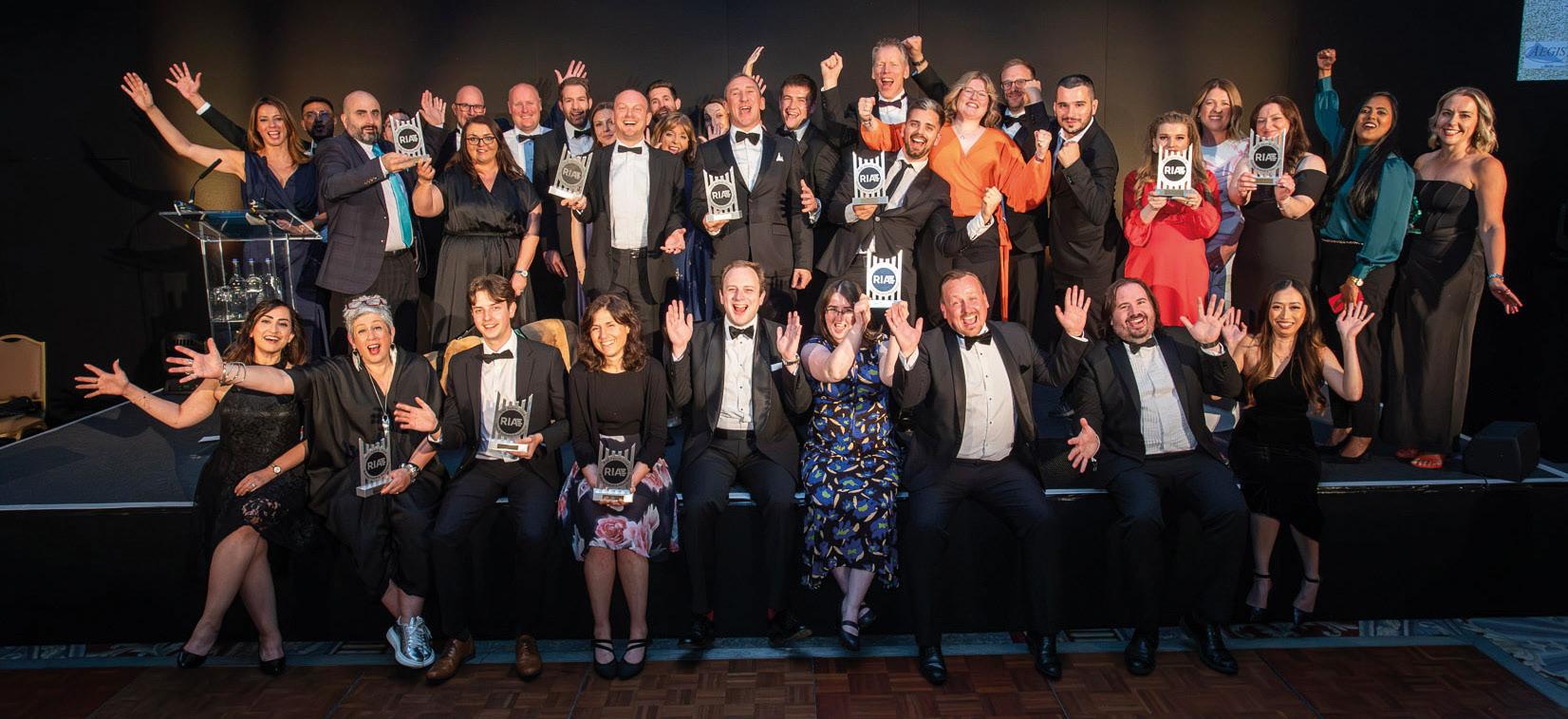
Ian Watson, from TransPennine Express, has won the Adeline Ginn Unsung Hero of the Year category at the annual Women in Rail Awards for his work advocating for men’s mental health. He shares his story and the importance of talking
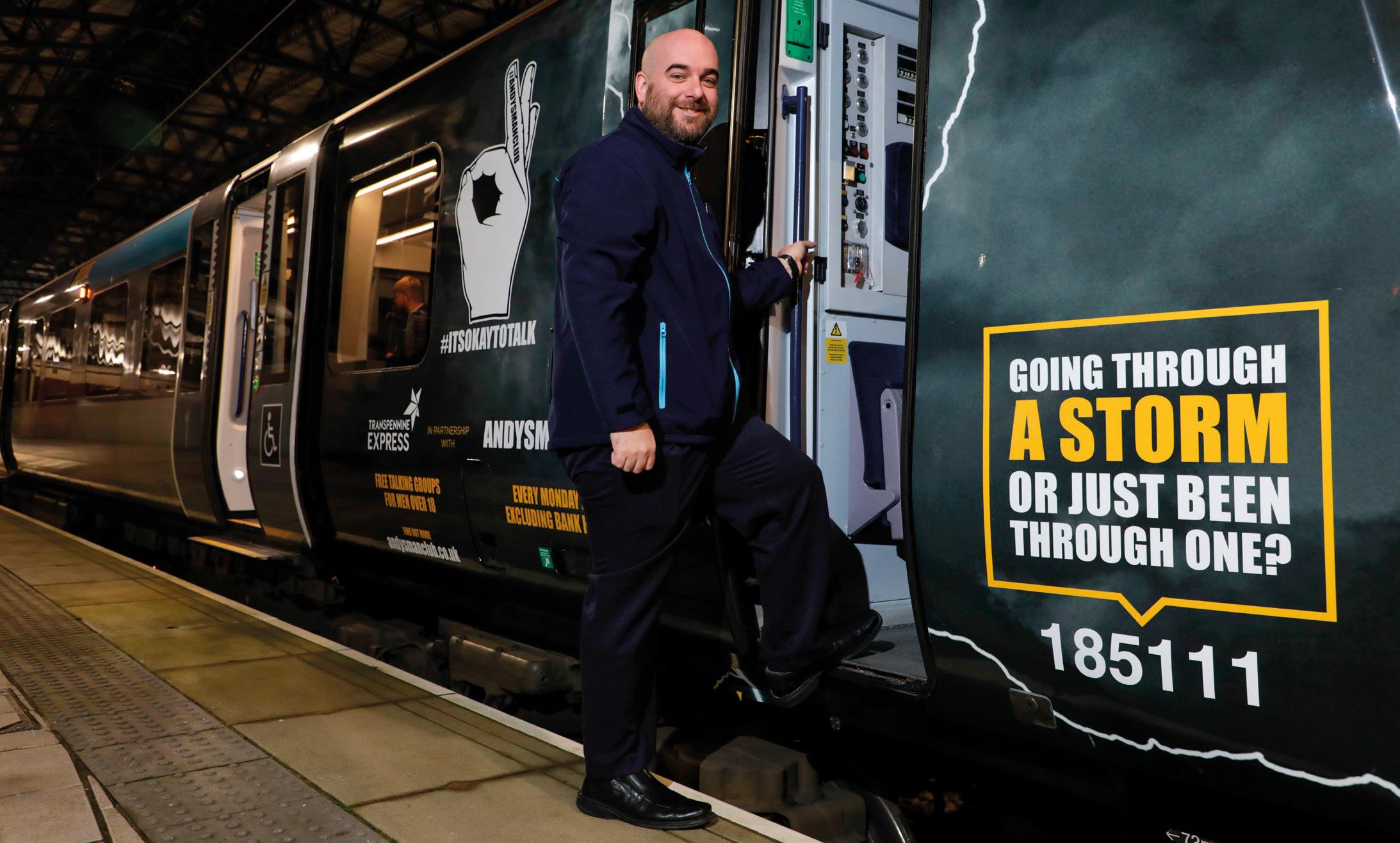
TransPennine Driver Manager Ian Watson can’t emphasise enough the importance and power of talking, and is trying to drive out the idea that men and women should never express or share emotions with others.
“That archaic way of thinking is one of the reasons why male suicide rates are high,” he said. “A problem shared is a problem halved, but we’re told as kids to grow up or man up, that doesn’t hurt. I always tell my son that there are things worth crying about, although your Xbox not working isn’t one of them. There will be situations when it is perfectly fine to get upset, but we need to talk about it and work out a way to move on.”
Ian’s passion comes after a tragic experience when he was driving a train out of Cleethorpes which was in collision with a man on the tracks. He didn’t really know how to deal with what had happened until
he discovered Andy’s Man Club, a men’s suicide prevention charity, offering free-to-attend peerto-peer support groups across the UK and online, spreading the message ‘it’s okay to talk’.
“I sounded the train horn repeatedly and pulled the emergency brake, but I had no chance of stopping in time,” he said. “Following the incident, I found myself scared of being alone, scared of the silence, and found myself with quite a short temper and being really grumpy.
“Something popped up on Facebook about Andy’s Man Club, so I thought I’d give it a go and the first time I walked through the doors it felt like someone had come behind me, put their arms above my shoulders and just lifted everything. Despite the fact I hadn’t said an awful lot, it just felt like they had lifted all the pressures off my shoulders and I could open up from there and speak.”
Andy’s Man Club takes its name from Andrew Roberts, a man who sadly took his own life aged 23 in early 2016. Andy was described as a lovely and doting father, son, brother, grandson, nephew, cousin and friend, and was just 23 years old when he was taken away by suicide, sadly and tragically without warning.
The organisation said that on average one man takes his life every two hours in the UK. It’s often said that a factor is that men don’t talk, which is the reason Andy’s Man Club was set up, established in 2016 by Luke Ambler, Andy’s brother-in-law, with the aim to break down these stigmas, support men struggling, and lend a hand to suicide prevention.
For Ian, attending the weekly meet up was not just an opportunity to share his own experience, but also to hear the stories of others, which has helped him to try to understand how people get into the situation of wanting to end their own life and led to him being

6-7 November Leonardo Royal Hotel London Tower Bridge
A fresh start for UK Rail?
2-day conference with inspiring keynotes including:
– Andrew Haines, Chief Executive, Network Rail
– Sir John Armitt CBE FREng FICE, Chair, National Infrastructure Commission
– Sir Jon Thompson, Executive Chair, HS2
– And many more…
Large interactive exhibition area with spotlight pitches presenting services, products and solutions
Evening programme including networking drinks, dinner and entertainment
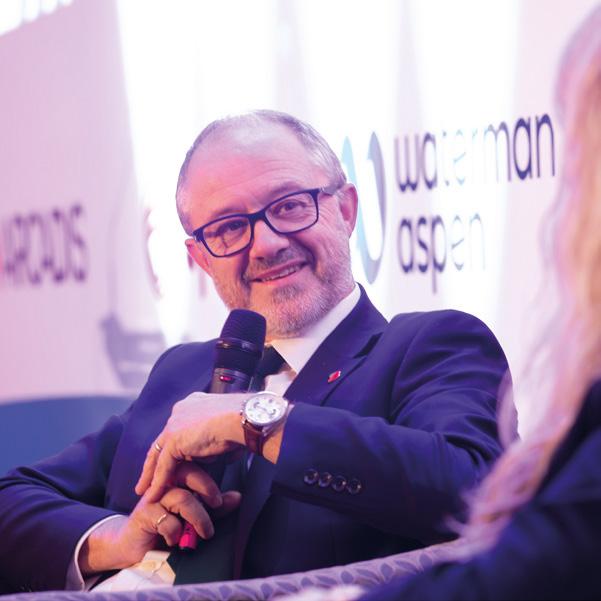
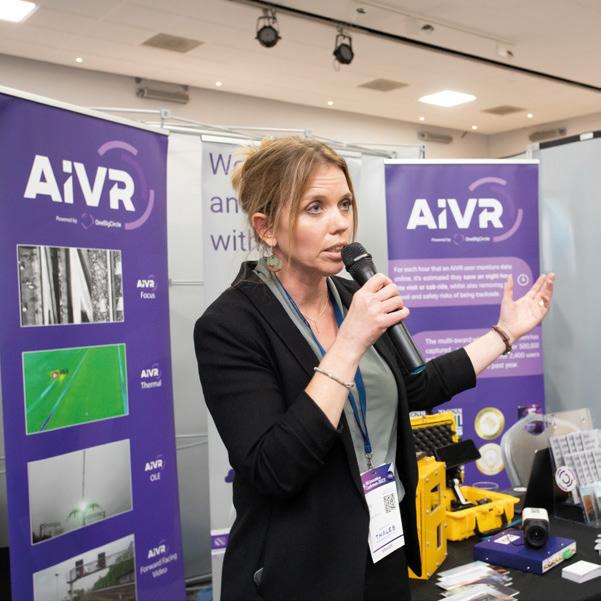

Scan the QR code to register today Or visit riagb.org.uk/AC24
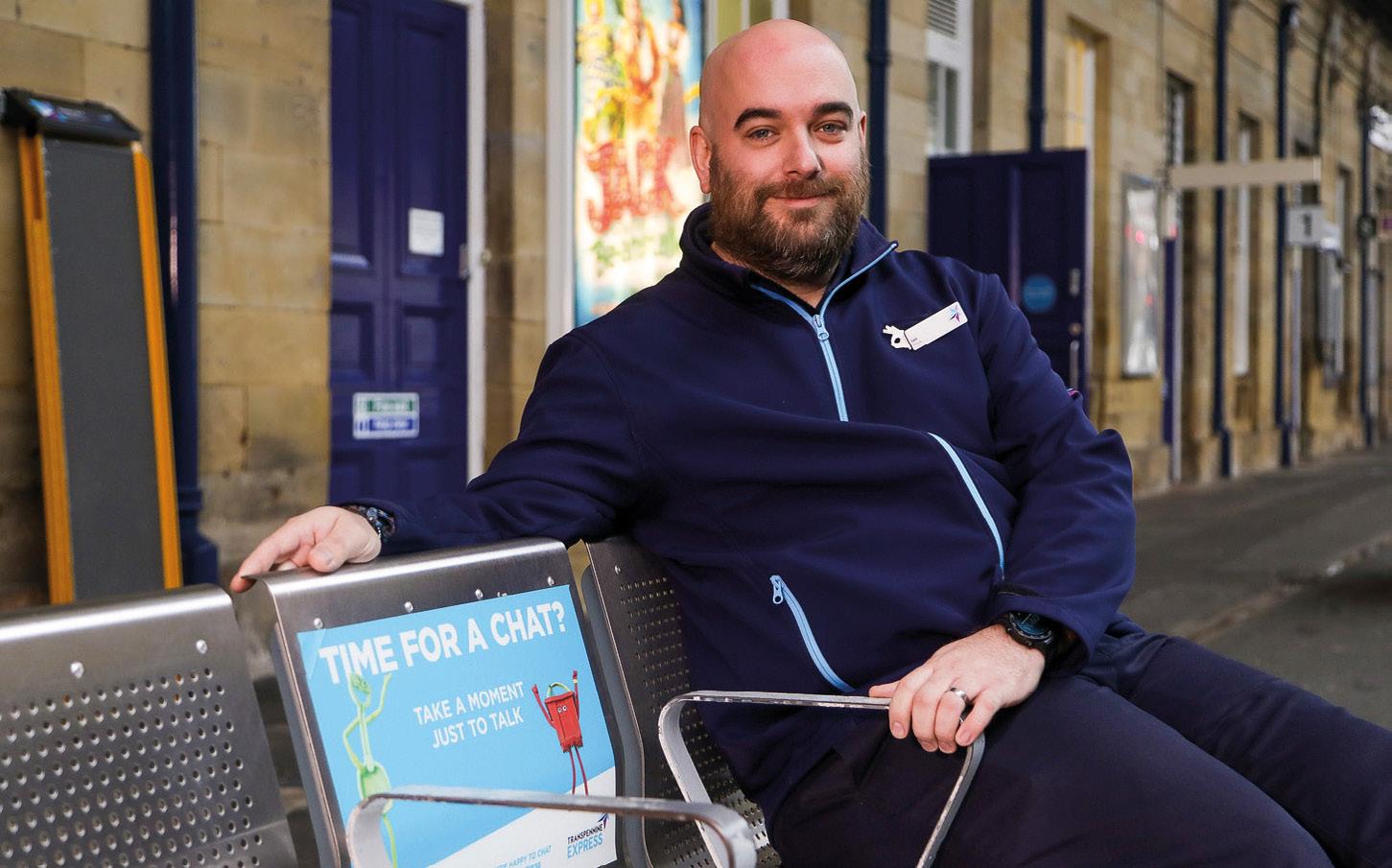

determined to try and prevent it happening to others in the future.
this is going to be big in raising awareness and getting people to talk and open up,” he said. “People are still taking photos and paying attention when they see the train and I’ve seen nothing but really positive comments which is a great thing.
“It is so heartwarming and absolutely fantastic, and I can’t thank everyone involved in it enough. It will be there for people to see for a long time and I’m sure it will have impacted a lot of people. For me the big thing would be if it stopped one person from ending his/her life and helped them to realise that there are options out there and people to talk to, then it has paid for itself ten times over.”
To complement the work of Andy’s Man Club, TransPennine Express has seen more than 750 members of staff complete Safeguarding on Transport training, introduced 500 body-worn cameras for front-line staff and promoted 34 Safeguarding Champions across the network who offer guidance to anyone who may need support and advice when dealing with a vulnerable person or a difficult situation.
Last year the operator was also awarded the Safeguarding on Rail Accreditation from British Transport Police and the Department for Transport. More than 300 interventions were made by staff last year, where colleagues recognised and supported vulnerable people.
“We’re all working collaboratively to reach the same goal and be more together and this can be achieved from little things like handing out cards, to awareness days, working together to support each other,” he said. “It’s important that we check on our mates and colleagues, check on them twice, and make sure they know they can come and talk.
We shouldn’t be in a situation where people feel like they have no other way out than suicide, and we all can play an important role in getting people talking about it
“I met a lad who joined the group in November 2021 who’d got a lot of problems which got worse and sadly he ended his life in February the following year,” said Ian. “That was the catalyst for me to do more to promote Andy’s Man Club and also the importance of talking, through the platform I had working in the railways. It shouldn’t be like this with people taking their life because they see no other way out of their problems. Suicide is the biggest killer of men under 50 so we need to get rid of the bravado that men feel they need to put on all the time. We need to get rid of the stigma as well that people should man up and get on with it.”
And Ian is doing just that, by being a key advocate for mental health at both TransPennine Express and in local communities. He helped to launch Chatty Benches, a partnership with the Campaign to End Loneliness which is available at stations for those looking to sit and have a conversation or say hello to a fellow customer, alongside his work with Andy’s Man Club which includes a monthly radio show in Rotherham.
A particularly proud moment has been a wrapped train promoting the organisation and reminding customers that it’s okay to talk, which was unveiled ahead of International Men’s Day last year.
“I got quite upset when I first saw it, thinking wow
“We all try and wear a face, especially with friends and family, we don’t want to let them down. Talk to friends and family and there are support groups out there. At the end of the day, it is okay to talk. People might not be able to solve all the problems, it is simply a case of sitting down and listening to people.”
Ian’s personal efforts haven’t gone unnoticed. In the last year, he has been shortlisted for three industry awards which included winning The Adeline Ginn Unsung Hero Award at this year’s Women in Rail Awards.
He said: “I’m extremely humbled to have been nominated for this award through Women in Rail, but what has been most pleasing has been the opportunity to use this opportunity to raise more awareness about Andy’s Man Club and the importance of talking.
“We are still facing the problem that men still believe it’s weak to seek help, or they’re embarrassed to do so. Support from our female colleagues, relatives and friends is essential to encourage men to be open about how they feel and realise that suicide is not the solution to whatever problem they may face, and I hope more rail organisations will help spread the message, which can be done by a simple conversation, putting up posters or handing out cards.
“We shouldn’t be in a situation where people feel like they have no other way out than suicide, and we all can play an important role in getting people talking about it.”

UK custom-designed and built, end-to-end solutions, suitable for rapid, efficient deployment, enabling harmonisation of wider critical infrastructure, significantly reducing time, cost, and carbon impact.
Leading-edge clean tech is making significant energy efficiency improvements, delivering a more sustainable use of resources and contributing to the circular economy approach of continued production in an environmentally friendly way
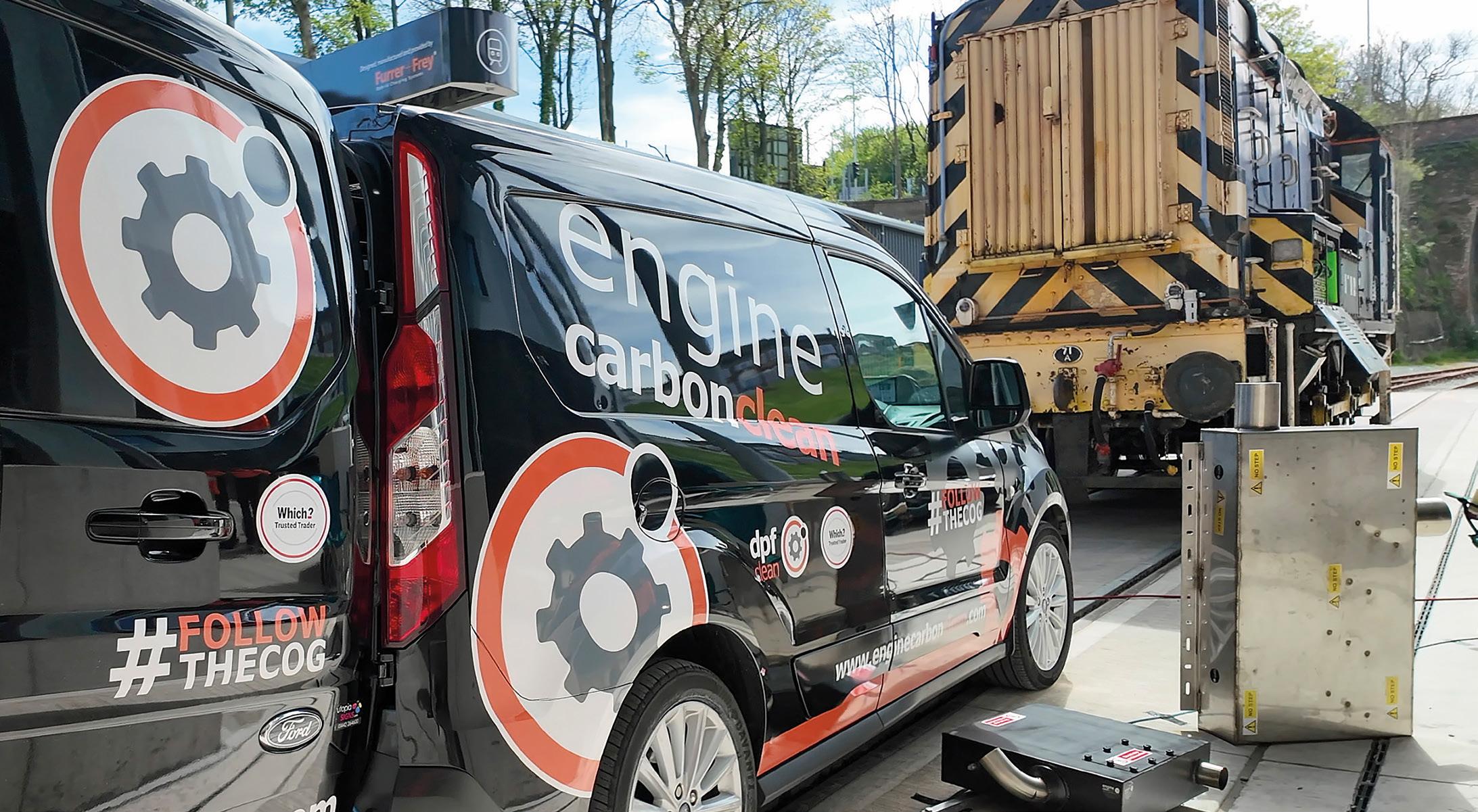
At Advanced Hydrogen Technologies (AHT) Group we’re proud to stand at the forefront of such technological innovation – via our proprietary Athena software that seamlessly consolidates multiple systems into one centralised framework.
This harnesses the power of artificial intelligence and leverages hydrogen as a source of clean power, through baseline hardware, that enables us all to become much less reliant on fossil fuels.
In response to the Paris Agreement’s global commitment to combat climate change, AHT has engineered three transformative technologies that directly tackle carbon footprints and mitigate greenhouse gas emissions.
Our award-winning Chimera system can deliver green hydrogen on-demand to power a domestic gas boiler, while Thea is AHT’s venture into sustainable electricity generation, utilising hydrogen to propel a gas turbine.
Chimera provides a versatile solution, allowing both new and existing boilers to operate on a green hydrogen or blended mix, offering a localised approach to the problem.
Thea meanwhile can generate clean electricity without emitting carbon dioxide or other pollutants, thereby addressing the toxic impacts of natural gas combustion.
Last, but not least – and certainly when it comes to the rail industry – Engine Carbon Clean & Capture harnesses hydrogen to cleanse internal combustion
engines and capture harmful gas emissionsproviding an immediate environmental benefit and extending the longevity of locomotives and associated vehicles.
The engine carbon clean process works in conjunction with the exhaust system and involves inserting controlled amounts of hydrogen and oxygen into a locomotive/vehicle’s air intake system for 45-60 minutes. This burns off deposits and removes residual carbon build up that restricts the airways, allowing the engine to run more efficiently to reduce greenhouse gas emissions.
Meanwhile, the exhaust gases pass through the capture component and all the heavy particulates of carbon are seamlessly extracted, collected and stored – to complete the engine cleaning process.
This restores the engine back to optimum operating efficiency, simultaneously cutting toxic emissions, while it also works within small, enclosed spaces or where there is limited ventilation.
Seeing is believing though and a recent independent trial has reported significantly lower emissions and increased fuel efficiency from a Class 08 locomotive.
During the breakthrough two-week testing on a 1960s diesel shunter – carried out at BCIMO’s world-class Very Light Rail National Innovation Centre in the West Midlands – overall exhaust gas emissions were reduced by 22 per cent and heavy particulates by 20 per cent, while diesel efficiency savings of eight per cent were achieved too.
This was a joint venture partnership with Harry Needle Railroad Company (HNRC), which is a leader in the storage and maintenance of rail vehicles, whereby AHT’s revolutionary four cell system hydrogen generator was permanently fitted to its Class 08 locomotive.
It produces enough hydrogen to consistently clean the locomotive, while the bespoke carbon catcher unit further reduced toxic particulates.
To determine these figures, independent testing specialist Atmo analysed more than 17,000 air pollutant and exhaust gas emission readings, with air quality sensors recalibrated each day to ensure that track and tunnel location, sensor placement, locomotive speed and electric current (amps) were consistent for every test.
HNRC’s Marcus Mayers told us this was the ideal opportunity to solve the pressing issue of how to measure and quantify the benefits of hydrogen – and access to both AHT’s specialist technology and BCIMO’s outstanding testing facilities has now given them the data they need for a proven business investment case to upgrade their locomotives.
Rail is one of the sectors most under scrutiny, but Engine Carbon Clean and Capture offers an immediate solution – also restoring engine efficiency and power, lowering maintenance costs, extending the lifespan of assets and aligning with the new ESG requirements of the International Financial Reporting Standards mandate.
During testing, a baseline reading was compared with those generated post clean after the R4 hydrogen generator was fitted, which determined the average eight per cent fuel saving.
Likewise, individual emissions reductions of 27 per cent Carbon Monoxide, eight per cent Carbon Dioxide, 22 per cent Nitric Oxide, 12 per cent Nitrogen Dioxide and 39 per cent Formaldehyde were achieved.
The capture device further reduced particulate matter by a fifth (20 per cent) and specifically those less than 2.5 micron in diameter, which are strongly associated with detrimental health effects.
Particulate Matter (PM) 2.5 remain airborne for long periods and can be drawn deeper into the lungs and bloodstream.
The way the hydrogen is delivered means it is not
detrimental to any component within the engine – it only targets carbon build-up – so streamlining heavy duty commercial vehicles in this way can benefit a business from both a cost-cutting and environmental perspective and without removing any parts or using any harsh chemicals.
What’s more, AHT’s Engine Carbon Clean & Capture system is completely modular and can be fitted to any sized or type of locomotive and will soon be mainline certified to give tangible results that contribute to the bottom line – see table below on typical locomotive savings per annum.
This simple yet effective process electrolyses ordinary tap water and turns it into pure medicalgrade hydrogen and oxygen on demand, which can be used in multiple disciplines and industries.
The water to be processed does not require cleaning as the AHT R4 Generator has a unique military-grade filter which prepares even unclean water for use. When burned, the sole by-product is harmless water.
The system is available now and ready to be commercialised and AHT is in discussions with HNRC and a few other locomotive operators around installation that will upgrade and improve their ageing rail stock.
We also know the results get even better over time, because a recent 18-month study on HGVs reduced the worst emissions by over 91 per cent and more than 10 times less.
When this process is applied once, the benefits are immediately obvious, but they can be transformative when done consistently as part of regular maintenance schedules.
Hydrogen is so far under-utilised (one per cent of total energy to date) but it is a limitless source of energy and heat going forward and microgeneration of green hydrogen is set to provide clean and cost-effective energy across rail, road and a multitude of other industries, as well as for domestic households.
Indeed, over the next 20 years, global demand is expected to increase exponentially, with over $300 billion of investment earmarked for projects to develop green hydrogen.
So, this clean tech breakthrough has never been more timely, but prevention really is better than cure and businesses that can change their mindset now will be the ones to save valuable time, money, resource – and help the planet!
info@ahtgroup.co.uk
Rail is one of the sectors most under scrutiny, but Engine Carbon Clean and Capture offers an immediate solution
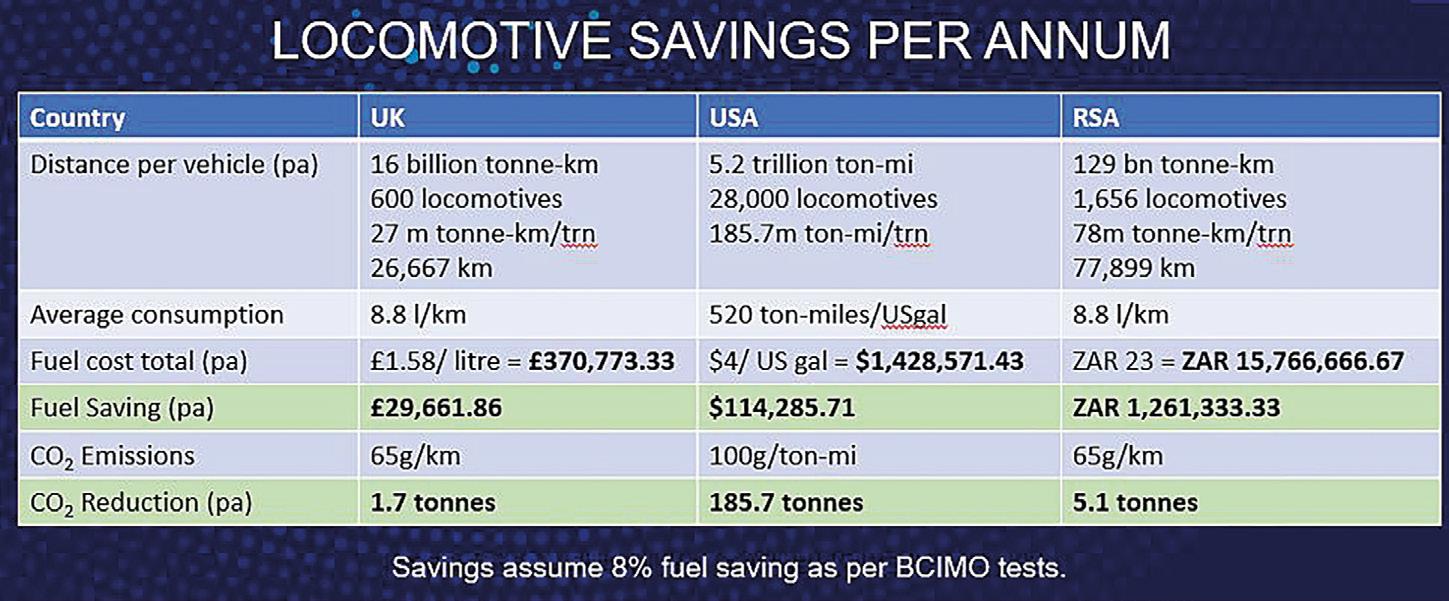
A new start-up is set to shake up the construction industry with its transformational approach to onsite energy storage and management
PowerUp, one of the first cohort of SMEs to complete the Clean Futures Accelerator Programe, is a forwardthinking energy solutions provider, specialising in innovative technologies that usher in a new era of sustainability. It aims to revolutionise traditional energy systems across diverse industries by moving to a proactive, prediction-based approach instead of the traditional reactive or scheduled model.
PowerUp’s strategy involves the replacement of fossil fuel generators with innovative battery PowerStations to power equipment on construction sites. The firm’s PowerStation, which is comparable in size and weight to a fossil fuel equivalent, doesn’t require training or behavioural changes to adopt onsite and offers zero carbon emissions and noise pollution.
David Collinson is the Technical Director and Co-founder of PowerUp Offgrid services, an experienced project manager with more than 20 years in the Gas and Utilities industries. The PowerUp founders recognised the challenges site teams faced when powering and refuelling equipment and saw an opportunity to create a solution that could transform on-site power and make a huge impact on global emissions.
Designed in-house, PowerUp’s battery PowerStation offers a green energy alternative to outdated fossil-fuelled generators. Equipped with specialist AI technology for remote monitoring and able to predict when users will run out of power, PowerUp’s scheduling software enables it to swap out its PowerStations with a renewable energycharged replacement on a “just in time” basis with no disruption to daily operations, guaranteeing continuous power at point of use.
The firm has adopted a sophisticated system that learns and adapts to the unique behaviours of operators. Through AI-powered predictive analytics and continuous machine learning, the technology can dynamically adjust based on real-time data. This not only ensures the efficient use of energy but also accurately predicts future energy needs by continuously refining its understanding of operator behaviours. This personalised approach optimises energy consumption in a highly tailored manner, contributing to the overall efficiency and sustainability of PowerUp’s solutions.
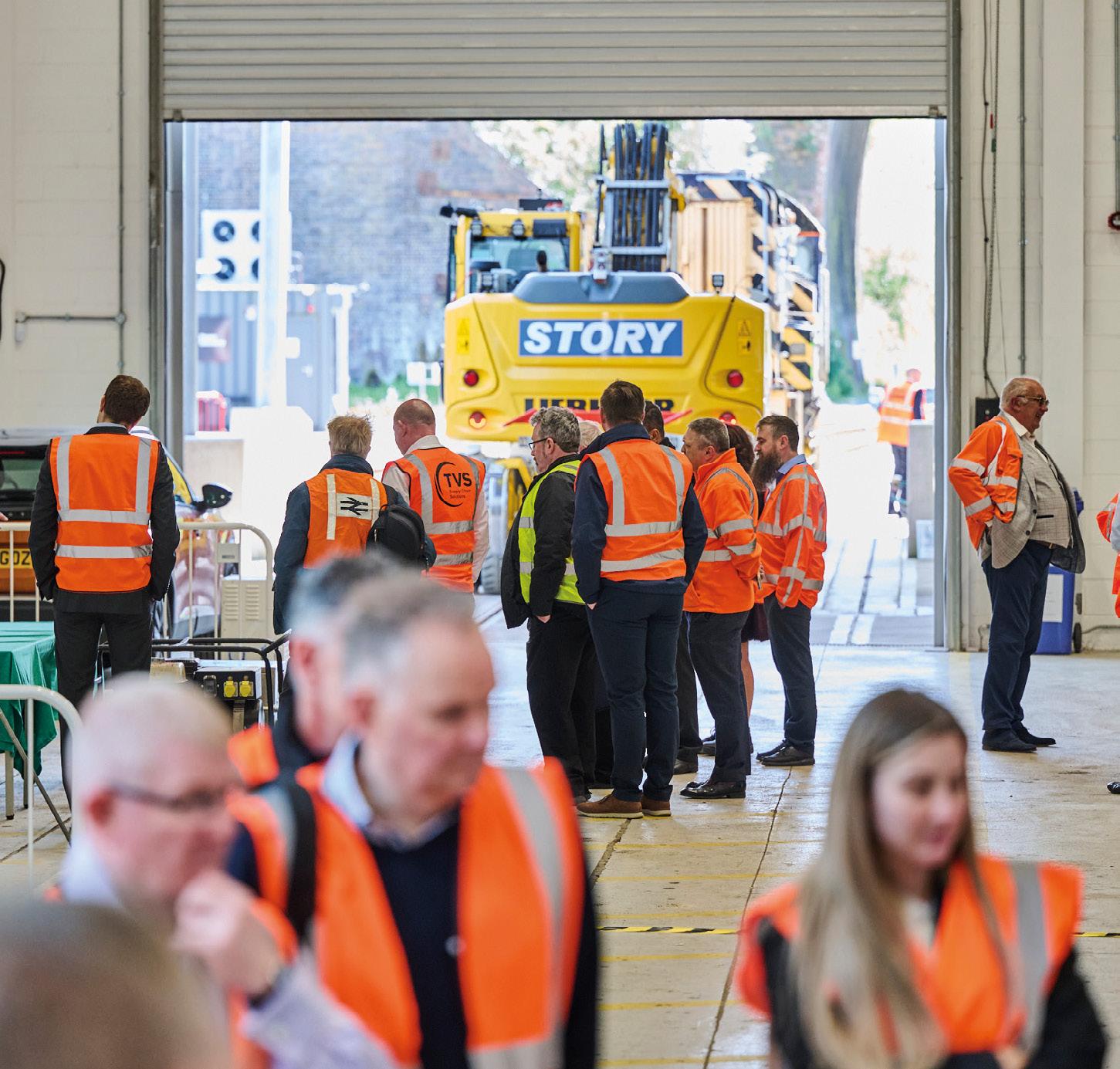
Using AI to learn behaviour of the operator, PowerUp’s system uses harmonics to recognise the tools that are connected, learning the sequence of tasks that make up different jobs, so it can accurately predict when a battery will run out of charge and schedule the swap out with a charged replacement – known as ‘Energy-as-a-Service’.
PowerUp’s expertise extends beyond traditional energy storage to the development and integration of IoT-enabled swappable batteries and flexible battery energy storage.
A distinctive aspect of the firm’s operations is a “just-in-time” battery replacement strategy, guaranteeing a continuous and reliable green energy supply at the point of use. PowerUp has developed its own tailor-made Energy-as-a-Service (EaaS) models, leveraging in-house hardware and software capabilities.
We anticipate a landscape where kilowatt-hours and energy efficiency are as crucial as costs in winning bids

As David explained: “We realised that there were other manufacturers of battery-based replacements for generators but that they weren’t being adopted by the construction industry. All of the refuelling was customer-facing, so if a site team needed to refuel they had to pack up tools and leave site. We ensure continuous power at point of use.”
PowerUp’s proactive approach to energy delivery achieves more with less, by strategically deploying swappable batteries to move power precisely to and from the point of use through the existing transport networks. This reduces waste and environmental impact compared to conventional battery technologies that often rely on oversized batteries to mitigate “range anxiety.”
“Our EaaS swappable batteries not only replace fossil fuel generators but also effectively extend the grid, offering flexibility in drawing and delivering power. Each battery serves as both a packet of data as well as packet of energy, ensuring precise energy management and reporting. In envisioning the future, we anticipate a landscape where kilowatt-hours (kWh) and energy efficiency are as crucial as costs in winning bids.” David explained.
A truly net-zero service
PowerUp’s EaaS solution can contribute to local economies by creating long-term, semi-skilled jobs for technicians responsible for the efficient transport of power. The firm’s commitment to sustainability places the rail industry as an integral part of the local energy eco-system, demonstrating a comprehensive approach across various industries, David said: “As we advance our network and partnerships, including collaborations, we aim to accelerate progress towards achieving net zero targets across industries such as construction, utilities, mobility, agriculture and rail, demonstrating a commitment to advancing sustainable practices and technology.”
“We want to educate people and get them onboard with the concept of a swappable battery that ties everything together from grid battery storage to off road machinery and mobility. We see the swappable battery as being an extension of the grid, a packet of data as well as a packet of energy.”
Through the Clean Futures Accelerator Programme, led by Connected Places Catapult, PowerUp is working at BCIMO to create a baseline for a more accurate understanding of actual emissions. As David explained: “The construction sector faces a challenge with off-road machinery, due to the lack of comprehensive policy, strategy, and regulation, making it unfeasible for operational companies to accurately report on actual emissions and energy efficiency. This absence of a standardised framework and general lack of awareness, creates a hurdle in establishing a precise baseline to showcase the substantial improvements our solutions can offer.”
PowerUp’s participation in the Clean Futures Accelerator and its work with BCIMO has been invaluable for the company’s development, David explained: “The funding from the Accelerator programme has helped us develop our V2 model, which we will be demonstrating on an operational site. The programme has helped us adapt our offering and to understand the challenges associated with providing the Energy as a Service solution to rail infrastructure projects. We already had a tried and tested approach for construction and utilities sites- with the support of BCIMO and the Clean Futures Accelerator, we’ve been able to translate this to the rail industry as well.”
During March and April, PowerUp worked at BCIMO’s Very Light Rail National Innovation Centre, utilising its Engineering Laboratories and Rail Development and Test Site to develop its solutions further before demonstrating its batterypowered generators on an operational site during the Clean Futures Accelerator Demo Day, which took place on 30th April.
powerup-services.co.uk
Each battery serves as both a packet of data as well as packet of energy, ensuring precise energy management and reporting
In her latest quarterly column Daisy Chapman-Chamberlain, alongside her colleague Matt Mullen, looks at the priorities in enhancing the customer experience

What do railway customers want? This question crops up in almost every meeting, is a topic at every conference, and is a common focus for questionnaires, community engagement, and beyond.
According to Transport Focus (2022), the top issues that matter the most to rail passengers across Great Britain range from tickets offering good value for money, to the reliability and regularity of services, to real-time information, security and seating, and cleanliness. As we can see, in many ways, the expectations of rail travellers have not changed since the very first passenger services nearly 200 years ago. But what has changed are the ways in which we can enhance the experiences customers have onboard rail services, enabling smarter, connected, and truly inclusive journeys.
With this in mind, how do we provide the best possible customer experience looking to the future of rail? The scale of the challenge ahead is significant; 2024 research by consultancy Steer for the Railway Industry Association has found that rail passenger numbers could double by 2050, and leisure travel is now the largest market share of rail journeys according to the Great British Railways Transition Team. The growing number of passengers we can expect in the future necessitates intelligent, personalised solutions to long-standing challenges, such as wayfinding and information provision.
Creating a seamless customer experience is therefore crucial in this rapidly evolving and growing market. Using the principles of EPIC (Easy, Personalised, Intuitive, and Contextual Experiences) we can craft customer journeys that are seamless
and engaging. The rail industry, particularly EWR, faces a unique opportunity to amalgamate isolated innovations into a unified and connected customer proposition. By applying systems thinking and focusing on both the macro and micro elements, we can develop a rail system that is reliable, consistent, and user-friendly, ultimately building trust and loyalty among customers. EPIC is the cornerstone of a truly inclusive customer experience, with principles that could transform the rail industry:
Easy: Simplifying the user experience at every touchpoint, from booking tickets to navigating the station, builds a strong accessibility foundation for all customers. Streamlining these processes reduces friction, minimises delays, and enhances satisfaction.
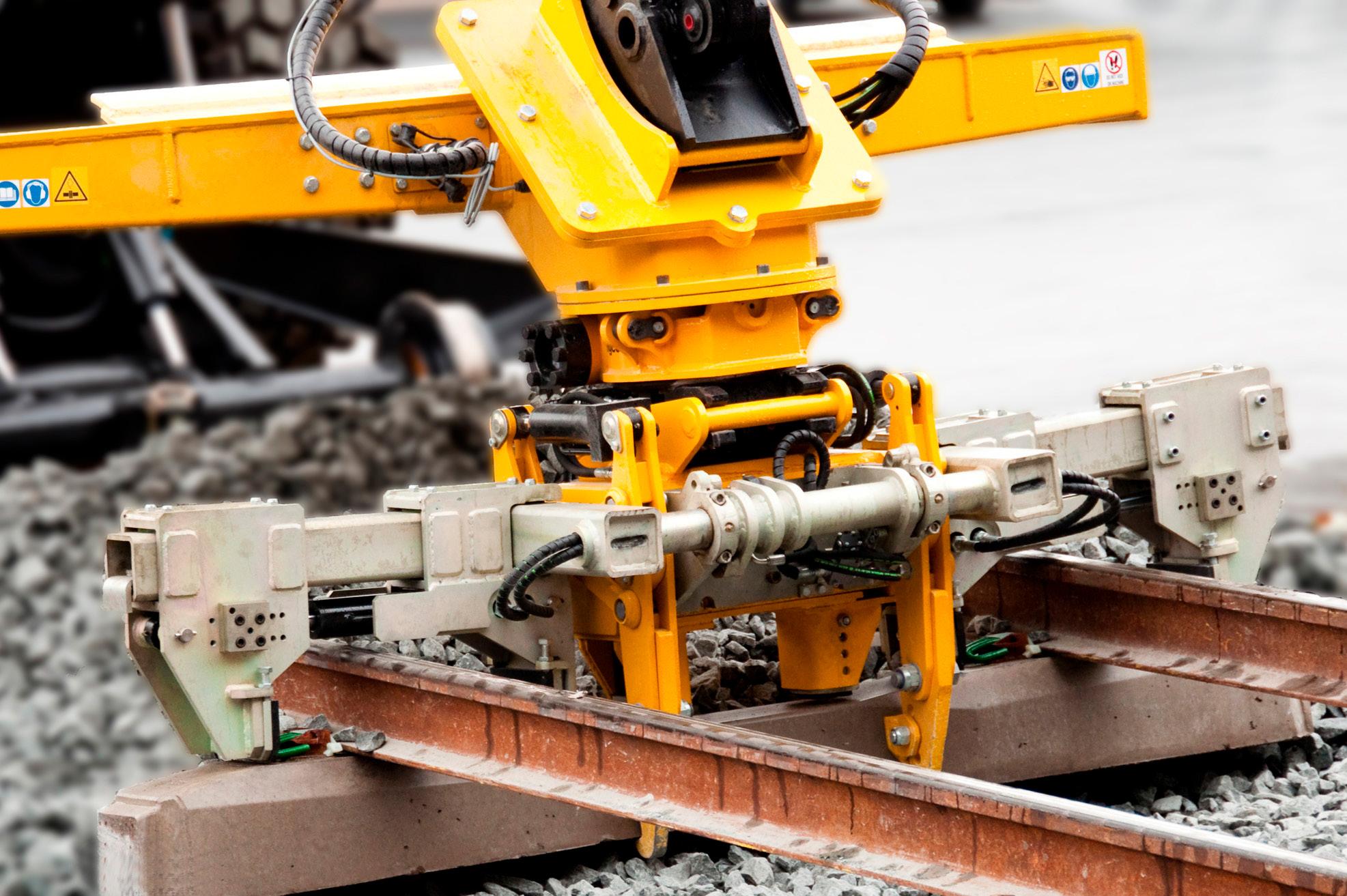

Personalised: Leveraging and merging data and technology that exists in isolation to tailor experiences to each individual customer creates a sense of value and importance. Personalised communications, offers, and services can significantly boost engagement and loyalty, as well as addressing the passenger requirement for timely information.
Intuitive: Designing services that are straightforward and user-friendly, minimising the learning curve for customers. This includes intuitive interfaces for ticketing systems, clear signage, and easy-to-understand travel information. Unifying the audio, visual and social worlds is important for consistency and accessibility across all passenger services.
Contextual: Providing relevant information and services based on the customer, such as location-based services, real-time updates, and personalised alerts.
Of course, EPIC solutions are focused on inclusion for all passengers; two-thirds of disabled passengers reported experiencing at least one problem during their rail journey (House of Commons Library), and of all public transport modes, train passengers experience the highest proportion of challenges, with 23 per cent of disabled passengers reporting bad experiences on trains. Over half of disabled rail passengers who reported a problem at the journey planning stage specifically reported a lack of confidence and not being able to find enough information. Passengers with disabilities are often required to use multiple different systems to book assistance, wayfind, and plan journeys, complicating the journey planning process significantly. Utilising EPIC principles, we can ensure intelligent solutions can be accessed by all passengers across a range of personalised formats, providing clear and consistent information. This includes clear audio announcements, visual displays, and easily understandable symbols and language. Consistency is also key to preventing confusion; ensuring that all sources of information (digital screens, wayfinding signs, emergency signage, posters, and advertisements) are harmonised with consistent information to provide a coherent message. Accurate, timely, and frequent information builds trust, especially during disruption, enabling customers to rely on the provided details for their journeys.
We must ensure that digital solutions are integrated inclusively into existing ‘traditional’ methods of support; in 2018 there were 5.3 million adults in the UK (10 per cent of the adult UK population) who had either never used the internet or had not used it in the last three months (ONS). The number of people in the UK lacking basic digital skills is declining, but in 2018, eight per cent of people in the UK were estimated to have no basic digital skills and a further 12 per cent had only limited abilities online. This includes exclusion due to inaccessibility related to disability, age-related exclusion, a lack of confidence, financial/economic exclusion, social exclusion, and beyond. Enhancing the customer experience must include traditional, staff-based
support, as well as digital enhancements, and options ranging from smart digital/personalised ticketing to standard paper tickets will help to ensure access for all. There is also vast potential to empower staff; automation, streamlining, and provision of accurate information can enable staff to operate more efficiently, effectively, and safely.
Another challenge to incorporating innovative customer experience practices comes from within the rail industry itself; the sector has made significant strides in enhancing customer experiences, but often these advancements are isolated. EWR aims to consolidate these innovations into a singular, cohesive proposition. Whilst EWR Co won’t be the train operator for the route, our work designing and delivering the railway builds towards a fully inclusive route, and our ongoing community and engagement work (such as the invaluable support of our Accessibility Advisory Panel) ensures we incorporate the views of those with lived experience across a range of access requirements and community needs. Innovations including digital ticketing, real-time travel updates, and enhanced station facilities all exist in UK rail, but are not uniformly implemented; by studying successful implementations within the rail industry and beyond, EWR can benchmark best practices and integrate them into a holistic approach. This includes learning from other industries known for exceptional customer service, such as hospitality and retail. By the time the route of East West Rail between Oxford and Cambridge is completed, today’s best practices will have evolved into industry standards. It is therefore essential to work with partners and industry experts to stay ahead of the curve and continuously innovate; this includes engaging with stakeholders, technology partners, SMEs, academia, and local communities, fostering a culture of continuous improvement.
Successfully adopting this approach requires systems thinking: understanding the interconnections within a system and addressing them holistically, rather than individually. Viewing the rail system (and indeed the wider transport network and the public realm) as a whole, rather than a collection of parts, helps to identify and address systemic issues. This helps to ensure that every component of the rail service works harmoniously, including as a reliable partner in multimodal journeys, resulting in a reliable and consistent customer experience. This, along with the simplification of customer journeys (such as simple multimodal ticketing, real-time information, and digital wayfinding), builds trust as customers can rely on the system to meet their needs without fail.
Creating an inclusive customer experience in the rail industry is a challenge, but it is one the industry can and must meet, by taking a holistic and integrated approach, as well as ensuring those with a wide range of lived experiences are consulted, included, and listened to. By adhering to the EPIC principles, learning from isolated innovations, applying systems thinking, bridging the gap between current standards and future best practices, and ensuring clear and accessible customer information, EWR Co aims to set a new benchmark for customer experience in the rail industry.
Daisy can be contacted at daisy.chapmanchamberlain@transportforthenorth.com

Creating an inclusive customer experience in the rail industry is a challenge, but it is one the industry can and must meet
About the authors:
Daisy Chapman-Chamberlain was the Innovation Manager at East West Railway Company, but has recently moved to Specification Manager at Transport for the North, with a passion for transport transformation, accessibility, sustainability, and inclusion. She works to make the future of rail better for all customers; safer, accessible and enjoyable.
Matt Mullen is Head of Customer Information at East West Railway Company, with a passion for inclusive experiences across industries. He works to make the future of rail experiences easy, personalised, intuitive and contextual, with a specialist focus on merging the built environment with the digital and social worlds of customers. Matt can be contacted at matt.mullen@eastwestrail.co.uk
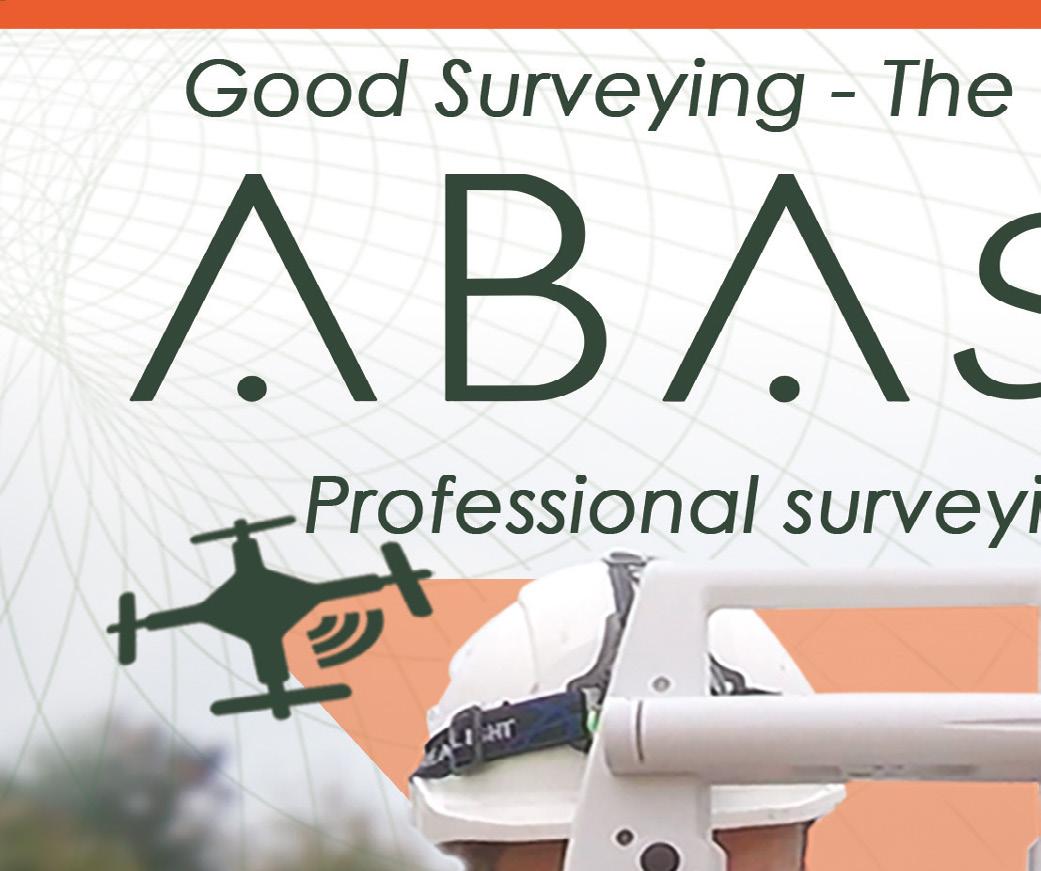
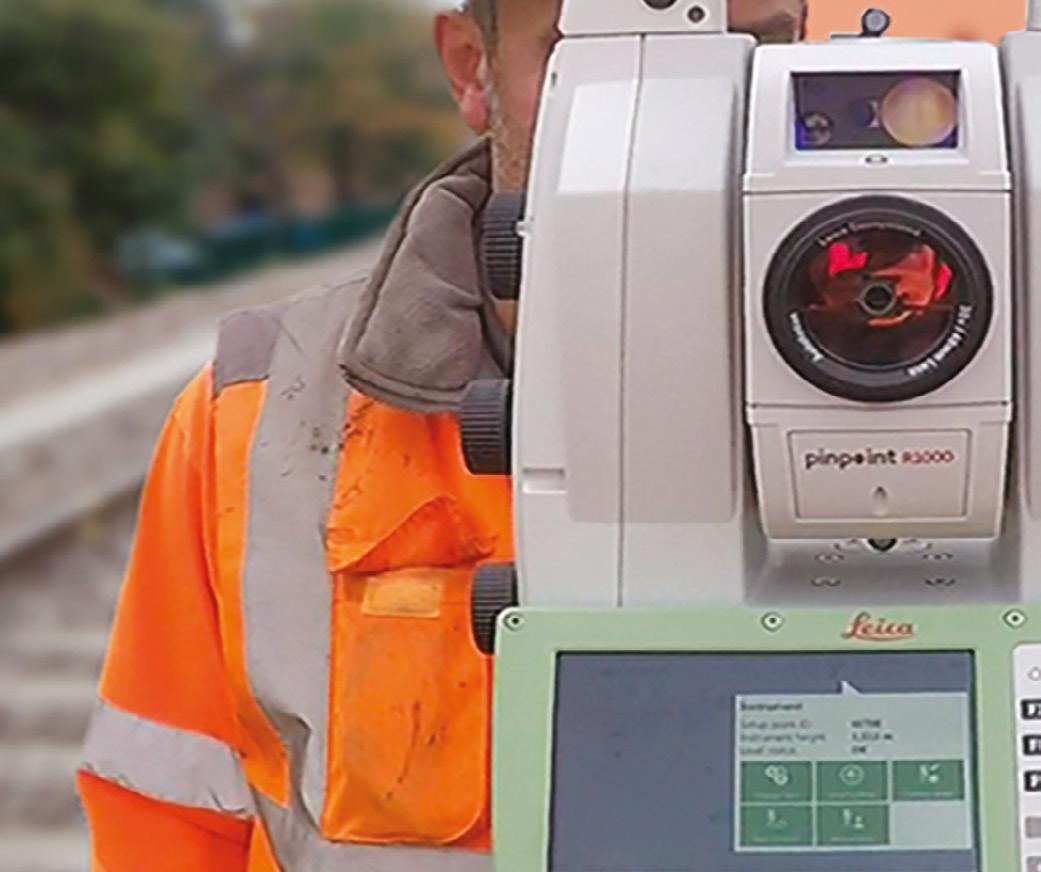
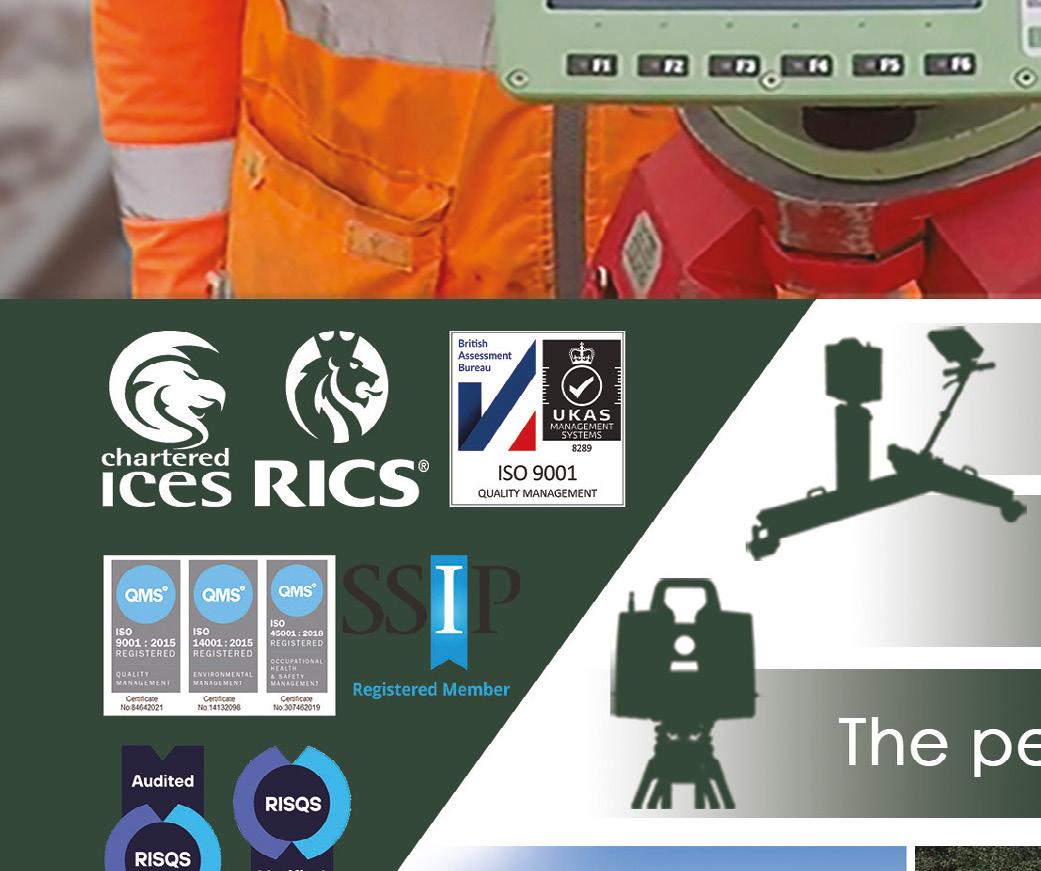
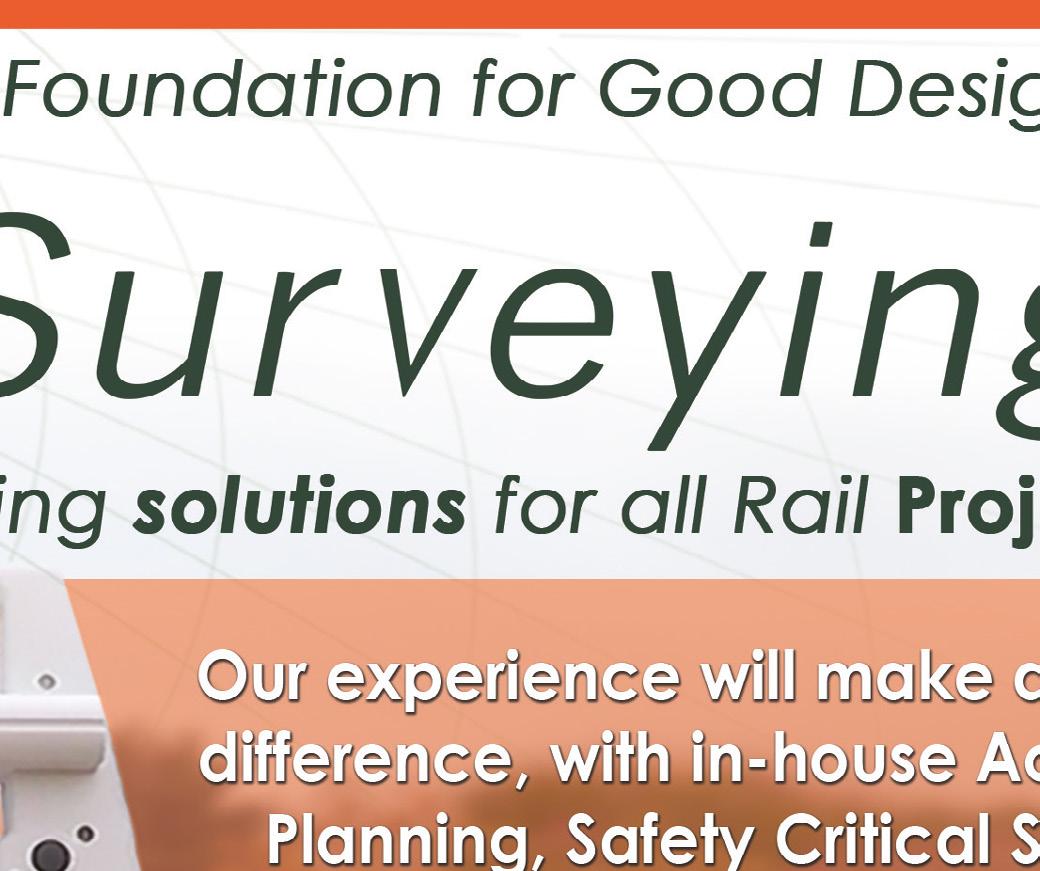


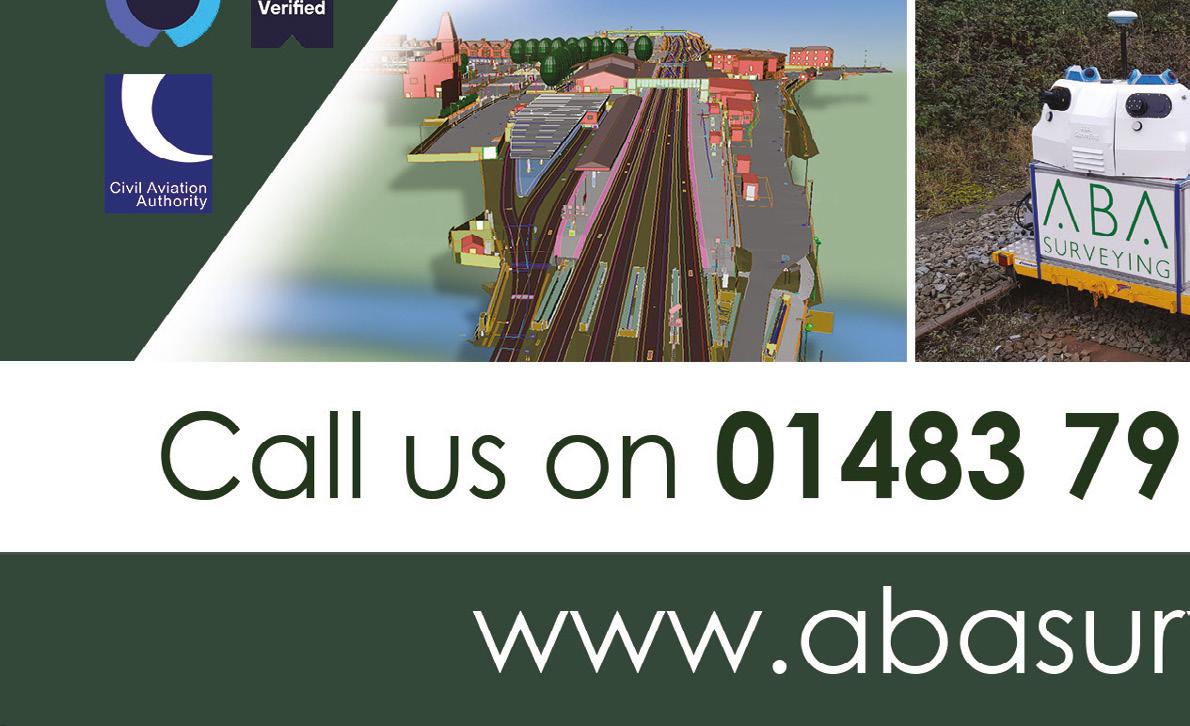


Klüber Lubrication offers an extensive range of specialty lubricants for the railway industry, developed with an eye to high reliability and long component lifetime. Business Development Manager Steve Worth explains more
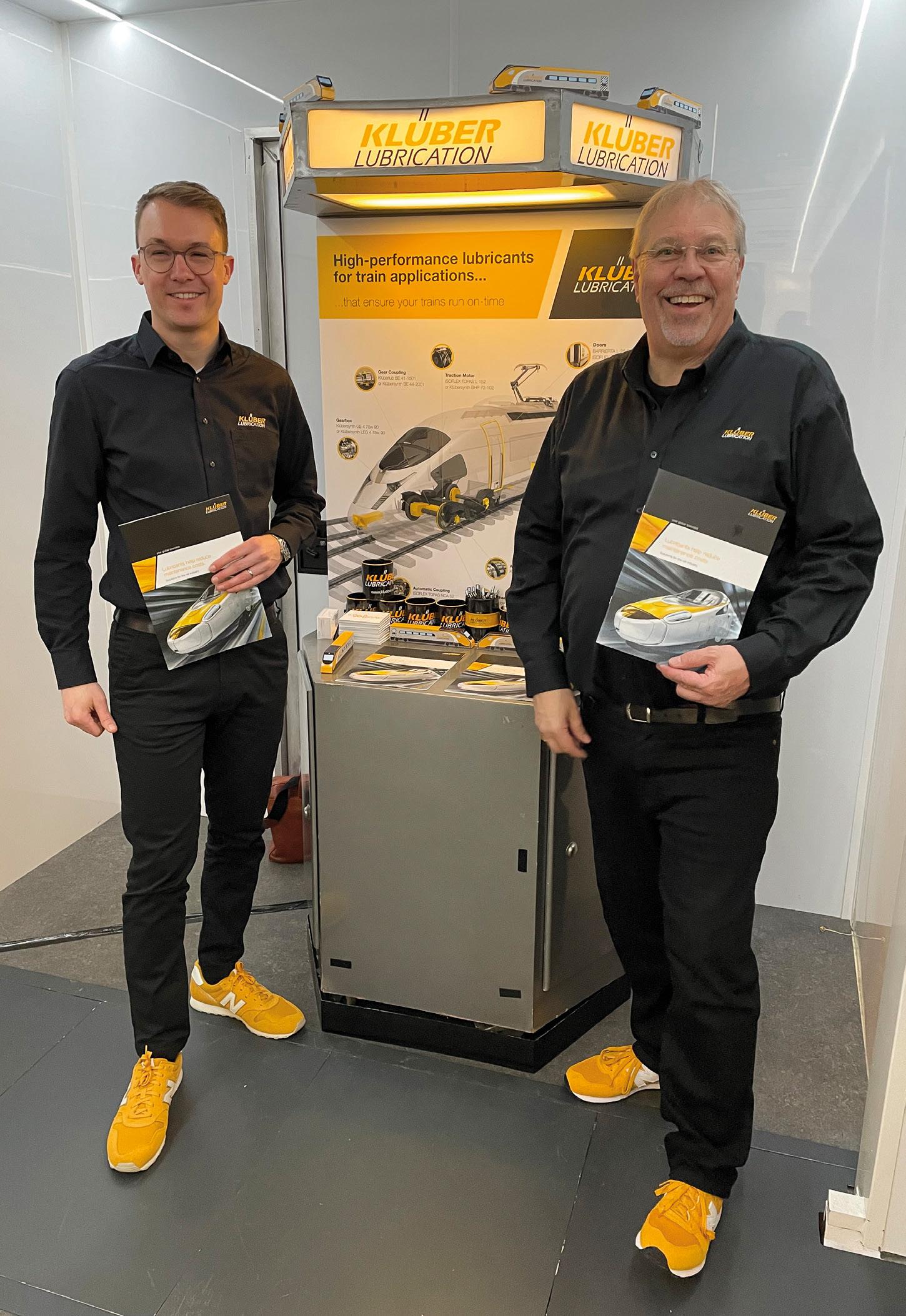
n the rail industry, lubricants play a major role in ensuring reliable operation of vehicles and infrastructure. Ensuring there are high-performing products with reliability and sustainability at their heart available for the industry is Klüber Lubrication.
“The rail industry has been a great success story for the organisation and one that continues to be a year-on-year growth market,” explained Steve Worth, Business Development Manager. “The reason for our success is ensuring we have got the best products for the market, today, and for the future.
“It also comes down to the initial platform we set, creating a target team more than 20 years ago working with the rail industry to examine what they needed, what they were doing, and using our expertise as a specialist lubricant company to enter the market with something that would improve what was currently on offer.”
There are two things that run through Steve’s career: one is the railway (following in his father and grandfather’s footsteps, who both worked in the Doncaster wagon shop), and the other is oil and grease. He is a chemist by profession, starting his career in 1979 as a junior chemist working in oils for the steel and mining industry, before joining the British Rail Board as part of its scientific services in Doncaster analysing oils and greases, and then moving to Derby Railway Technical Centre and British Rail Engineering Limited.
For the last 34 years, Steve has been involved in sales, with 24 of those with Klüber. He was an original member of the Global Rail Team, set up in 2007 to support the growing demands of the global rail business within the organisation. He describes the key to the company’s success being working with the original equipment manufacturers (OEMs) to find out what they were trying to achieve and what was needed from a lubrication point of view.
“It all comes down to reliability, availability, maintainability and safety (RAMS),” he said. “As an industry, we don’t want trains to fail, we want them to be available when the operator needs to run the timetable, they need to be easy to maintain, safety is a number one priority, and the ‘S’ in RAMS could also
stand for sustainability because now there is a greater importance to being environmentally aware.
“What we’ve done and continue to do is to work with Tier 1 suppliers, suppliers of brake units, door units, rail couplers, traction motors, and compressors, and with the original equipment manufacturers, the people who are assembling the trains. Something that comes all the way through with us is that if it is safety critical, the chances are we are doing it for major rail organisations.”
With the requirement for zero-downtime operation under extremely severe environmental conditions, the railway industry places stringent demands on rail vehicles and infrastructure. This is with good reason because unscheduled maintenance and damage could incur high costs and lead to a long-term impact on punctuality.
Lubricants from Klüber are developed specifically to meet these high demands and are already relied upon for railway applications and have a proven track record under harsh conditions, are economical in use, and are easy to procure thanks to worldwide availability.
“Viewed over the total life cycle of a train, maintenance costs can be higher than acquisition costs, so reducing maintenance costs also reduces the total cost of ownership,” said Steve. “Lubricants are therefore much more than just an operating resource – they are an important design component.”
The organisation’s lubricants are proving their worth worldwide every day. From the lubrication of points on railway infrastructure, to the lubrication of traction motor bearings, doors, axle bearings, gears, wheel flanges, bogies, brakes, and many other components.
Among its solutions have included developing gear oils tailored to the industry, and approved by worldwide leading gear unit manufacturers, that enable significantly longer oil change intervals – in some cases having the potential to more than double oil change intervals, which in turn significantly reduces maintenance effort and operating costs.
Another example is its portfolio of lubricants specifically for doors, which ensure both long relubrication intervals and high reserve capacity, while providing a high degree of protection against wear, and enabling easy and reliable opening and closing, even with varying temperatures.
“There are a lot of other applications we have solutions for that will ensure the components last a lot longer and are less subject to wear and fatigue, alongside the benefits of extending the lubrication intervals,” said Steve.
“Although we offer a lot of different products, one thing we always make sure when developing something new is that it is going to bring value and advantages to the people who are using it, looking at safety, reliability and from a sustainability point of view. We also develop our products to exceed the requirements of what is needed and that is what we call the safety margin.”
A more sustainable future
Sustainability and environmental protection are close
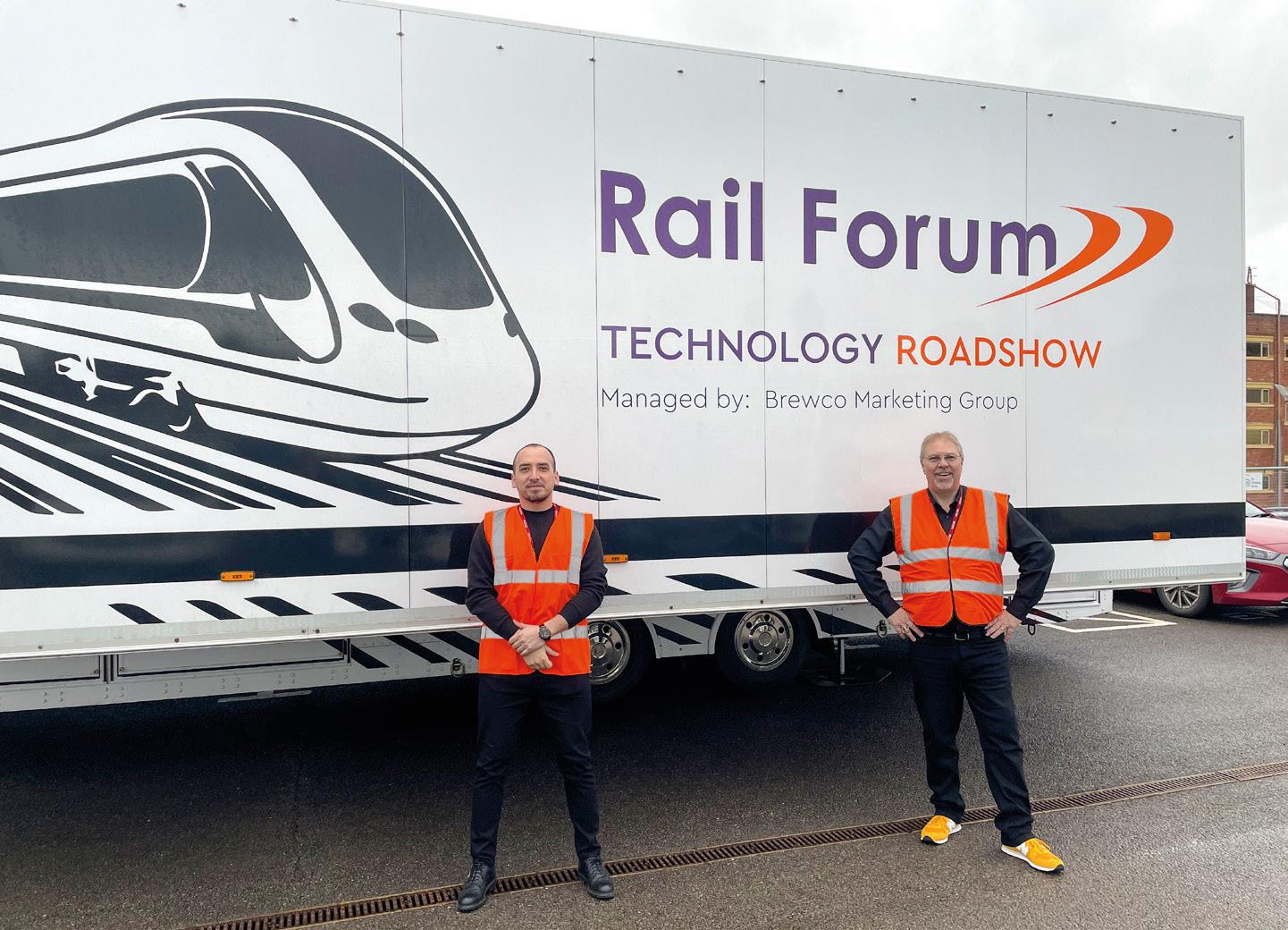
to the heart for Klüber, with the company on a journey to become largely CO2-neutral by 2045. Since 2019, it has achieved a reduction of over 78 per cent in Scope 1 and 2 CO2 emissions. In regard to Scope 3, the emissions have reduced per tonne of product by over 10 per cent.
Success in Klüber’s journey is also success for the industry overall. Long relubrication intervals lead to reduced lubrication amounts and less used lubricants to be disposed of. In one example Steve explains how one client has seen its use of oil drums to lubricate switch plates reduce from 94 drums to just four, with workers now adding the oil every two weeks, not every 48-hours as they did before.
“This product is also biodegradable, so the company is over the moon with it,” added Steve. “It is just one of many examples of us thinking outside the box in ticking the boxes of reliability, maintainability, sustainability, and environmental.
“Our trackside lubricants are 100 per cent biodegradable. Of our on-train lubricants around 95 per cent are non-biodegradable, but with those, we have been working hard to improve the products to increase the lubrication intervals which reduces the consumption of oil or greases, which means you are utilising less raw materials.
The reason for our success is ensuring we have got the best products for the market, today, and for the future
Sowing the seeds
“Yes”, is the one-word answer Steve gives as to whether he is optimistic for the future for Klüber. “We have global teams which is vital in delivering what we do for the industry,” he elaborated. “More products are being sourced from Eastern Europe and even more products being sourced from China, and having the combination of local and global rail teams we can keep ourselves informed of everything that is happening.”
Steve is also keen to emphasise the importance of being a partner to the industry, working in close cooperation with manufacturers, maintenance specialists and operators to keep developing new, optimised lubricants for the rail sector that meet special requirements and are better than what is currently on offer.
“We have new products being developed as we speak, including axle bearing grease, projects ongoing to do with door seals, and work on the next generation of traction motor grease,” he explained. “We are sowing the seeds now for something that is going to happen several years down the line. That is how we have got to be; ahead of the market, ensuring we have the offering that will fit the industry’s requirements in the future.”
One area of excitement for Steve is around axle bearing grease, with what the company is developing being described as unique in the market in respect to the chemistry it is made of, and how long it will last in a bearing. He has said there is a lot of interest, with more details expected in the coming years.
“Top-notch performance can only be attained by pulling together and the best results are going to be achieved by us being involved at the very beginning and designing reliability, maintainability, and safety in at the beginning,” he added. “It is all to do with relationships and trust, something we have built up with major train manufacturers and OEMs such as Stadler, CAF, Siemens, Alstom, and Hitachi. Because of this, we are moving ahead together.”
www.klueber.com/uk/en/

Dr Stephen Fletcher, Director at the Occupational Psychology Centre (OPC), shares how Psychological Assessments can empower employees’ wellbeing and strengthen safety performance
As human beings, we aren’t robots, and personal and work-life challenges can affect wellbeing and impact safety performance. Specialising in the recruitment and development of safety-critical roles, the OPC’s psychologists have a special interest in why some employees make errors that can lead to safety incidents. When there’s an incident, OPC Psychologists work alongside rail companies to support employees facing difficulties that are impacting their safety performance by offering a range of psychological assessments.
Dr Fletcher said: “A safety incident can often leave employees with feelings of guilt, anxiety or confusion – a heavy burden, as well as a safety risk. Through our range of psychological assessments, we unpick the details of an incident, allowing individuals to understand the real and most likely root cause(s). We also provide frameworks for changing behaviours, work patterns, and daily Non-Technical Skills (NTS) to help alleviate the mental distress caused by the incident, and support a safer return to work.”
OPC psychologists conduct various psychological assessments to support employee wellbeing to assist safe, effective performance.
Severe safety incidents can profoundly affect an employee’s emotional wellbeing, leading to a lack of confidence, anxiety, insomnia, or a fear of repeat incidents. This can dramatically impair their work performance or render them unable to work. Dr Fletcher said, “While we’re not specialists in counselling or clinical psychology, we’re able to provide some relevant support alongside the Occupational Health Service (OHS) to assist in an employee’s phased return to work.”
In some cases, the OPC will refer individuals to other clinical professionals. Successful assessments can really boost employees’ confidence by offering reassurance and clarity during very turbulent times, and providing them with self-assurance about their fitness for work.
“We’ve often been surprised and encouraged by the progress employees have made to build their emotional resilience and return to their jobs successfully. However, our role in that ‘contract’ is

only to facilitate; the hardest work is undertaken by the employee themselves with help from colleagues, managers and the OHS”, said Dr Fletcher.
OPC psychologists also provide assessments for employees returning to work after a significant or long-term illness. They’ll evaluate key safetycritical elements of the role, then using psychometric tools determine if they are fit to safely perform their job again. This assessment can also support individuals with neurodiverse characteristics that may be affecting their performance. Psychologists will work with employees and managers to provide coping strategies or recommend accommodations, supporting them to do their jobs safely.
Dr Fletcher added: “On other occasions, managers have approached us with concerns about mature employees nearing retirement. They may have noticed atypical behaviours, unusual errors, or a series of incidents unexplained by typical human factors. Sometimes the employee may have memory issues, raising concerns of potential early dementia or Alzheimer’s. A psychological assessment can help identify underlying concerns affecting their safety performance.”
These help employees involved in a safety incident, whether they were wholly or partially responsible for it. “We’ll complete an in-depth review of the incident,
identifying key NTS shortfalls such as remaining calm under pressure or a lack of emotional resilience. These shortfalls may have created or significantly contributed to the incident.
“We’ll then collaborate with employees and managers to offer bespoke and specific NTS development plans, addressing gaps and building strategies to help prevent future safety incidents. In some cases, our recommendations may include simulations to improve emotional resilience, positive thinking behaviours, and emotional management techniques like mindfulness.
“Interestingly, those who are most distressed by their errors are often the easiest to help because they’ve already taken ownership of their actions. In contrast, employees who refuse to accept responsibility for mistakes, blaming others or external factors, can be much more challenging to help,” Dr Fletcher noted.
He summed up: “This work is very personal and impactful. Each intervention is unique. It’s focused on an individual’s wellbeing, making it deeply rewarding for OPC psychologists. The shared learnings help to improve future support for other employees too. We strive to provide evidence, assessment tool evaluation, and expertise from research and psychological models, to inform the decision-making process. Thereby, supporting both an individual’s wellbeing and organisational safety performance.”
www.theopc.co.uk/contact/
HOPPECKE is an
in customised rail battery systems. Our energy storage solutions are used globally for railway applications.
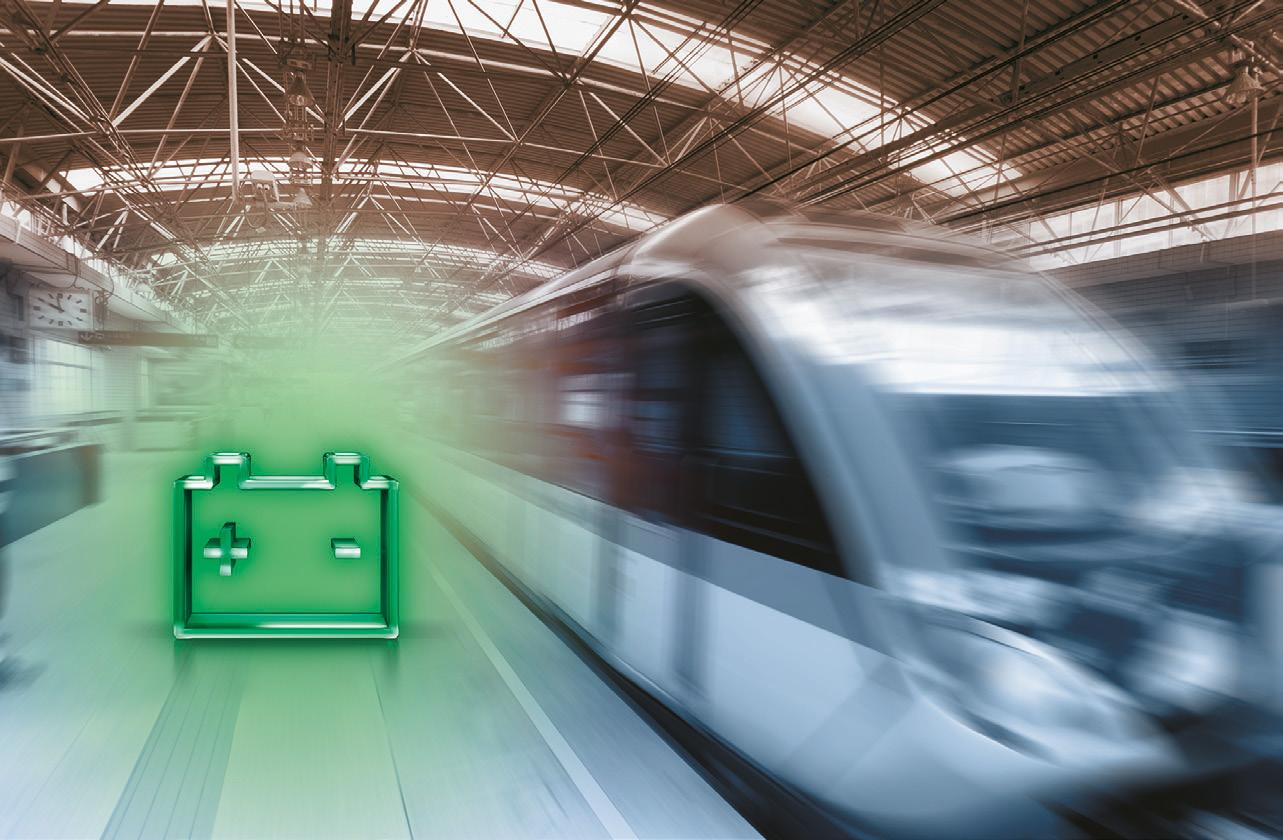
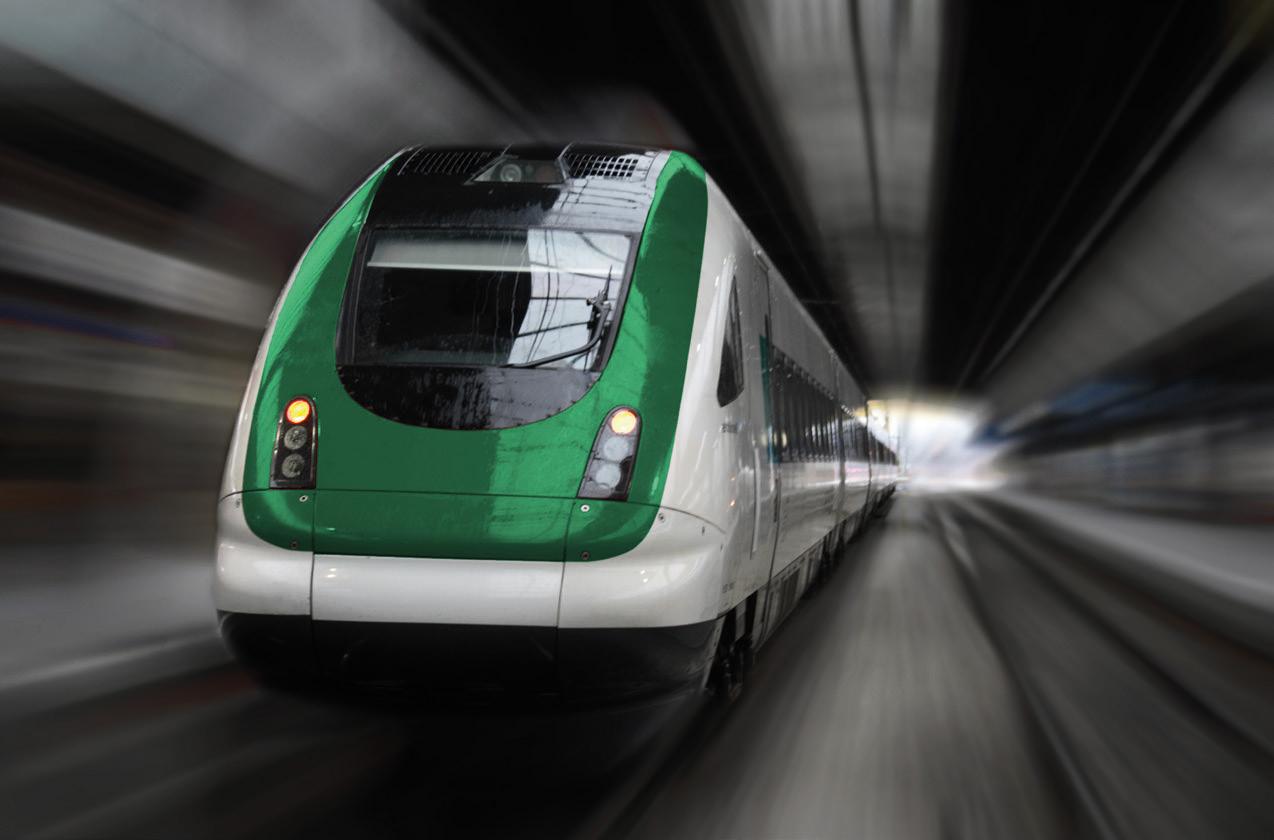
Transport operators Transdev and John Holland have formed a consortium to run Melbourne’s world-famous tram network for the next nine years.
Minister for Public and Active Transport Gabrielle Williams has announced the Yarra Journey Makers consortia signed a $6.8 billion contract to operate the world’s largest tram network, which manages 500 trams, 1,600 tram stops, 24 routes and more than 250 kilometres of double track.
Commencing on 1 December 2024, Transdev and John Holland will operate under the Yarra Trams brand and progressively deliver improvements to services and customer experience.
Transdev brings a wealth of experience, operating large-scale networks across 19 locations around the world, including France and Spain, while John Holland operates light rail across Australia and is part of the consortium that runs its metropolitan train network – Transdev John Holland also operate Region 9 buses in Sydney.
Alstom, in collaboration with Danish railway operator DSB, has received the Red Dot Award 2024 for the IC5 Coradia Stream, which was recognised for ‘design excellence’.
One of the world’s largest design competitions, the Red Dot Design Award celebrates excellence in international design, product design, communication design, and a variety of design concepts.
In April 2021, Alstom and DSB signed a historic landmark framework agreement worth €2.6 billion for the supply of 100 Coradia Stream trains, as well as 15 years of full-service maintenance.
The IC5 train is the result of a close partnership between Alstom and DSB. The collaboration aimed to create a train that reflects the values and meets the needs of the Danish people, embodying both integrity and authenticity.
Jörg Nikutta, Managing Director of Alstom Denmark, said: “We are very proud that the IC5 trains have received the Red Dot Award 2024 for ‘product design’. Our goal was to design the train of the future, expressing both integrity and authenticity.
“This award is the result of our collaboration with DSB, where we have managed to create a timeless design that is inviting for passengers, and it is gratifying to be confirmed that we have succeeded in doing just that.”




Siemens Mobility and Tyczka Hydrogen have announced they are cooperating in the hydrogen railway sector to provide end-to-end solutions for fuel cell trains.
Hydrogen is one of the main technologies to decarbonise the railway sector by switching from fossil diesel to renewable fuels particularly on routes which are hard to electrify.
From the train operator perspective, an integrated approach towards fossil-free mobility does not only require hydrogen-powered trains and corresponding maintenance services but also needs to cover the entire supply chain for green hydrogen fuel.
In April 2024 Siemens Mobility and Tyczka Hydrogen signed a Letter of Intent (LoI) establishing a cooperation in order to accelerate the transformation towards hydrogen-powered railway mobility.
Both companies have agreed to work together towards solutions across the full supply chain including hydrogen production, storage, distribution and refuelling as well as delivery and maintenance of fuel cell trains. Additionally, Smart Train Lease, a subsidiary of Siemens Mobility, offers hydrogen trains for rent.
Albrecht Neumann, CEO Rolling Stock at Siemens Mobility, said: “Delivering carbon neutral mobility has never been easier. With Siemens Mobility, Smart Train Lease and Tyczka, three strong partners are now working hand in hand for the first time to serve the hydrogen rail market with new and alternative concepts along the value chain, such as offers for leasing trains as well as the corresponding hydrogen infrastructure and supply.”
Thomas Zorn, Managing Director, Tyczka
a great
Hydrogen, said: “Green hydrogen fuel is a great solution to decarbonise heavy-duty transport operations. Based on fast refuelling times and long driving ranges, multiple-unit trains can run (in an) environmentally friendly (way) without excessive electrification investments and equal route flexibility as with diesel. Through close collaboration and a holistic approach by Tyczka Hydrogen, Simens Mobility and Smart Train Lease, the implementation of fossil-free railway mobility becomes simpler for train operators.”
Benjamin Dobernecker, CEO Smart Train Lease GmbH, said: “Being smart means simplifying things and that includes offering our customers smart solutions for hydrogen infrastructure and Tyczka is the ideal partner for this.”
Siemens has said the partnership of Siemens Mobility, Tyczka Hydrogen and Smart Train Lease will pave the way for a successful transformation of railways towards hydrogen mobility.

HAVSPRO is an industry-leading vibration monitoring and measuring solution that generates proactive aler ts and in-depth repor ting allowing accurate understanding of your Risk Assessments whilst also providing unequivocal evidence in the face of litigation claims
With 650 repor ted new HAVS related cases, HAVSPRO can help you protect your workforce from preventable and li fe changing conditions, together we can;
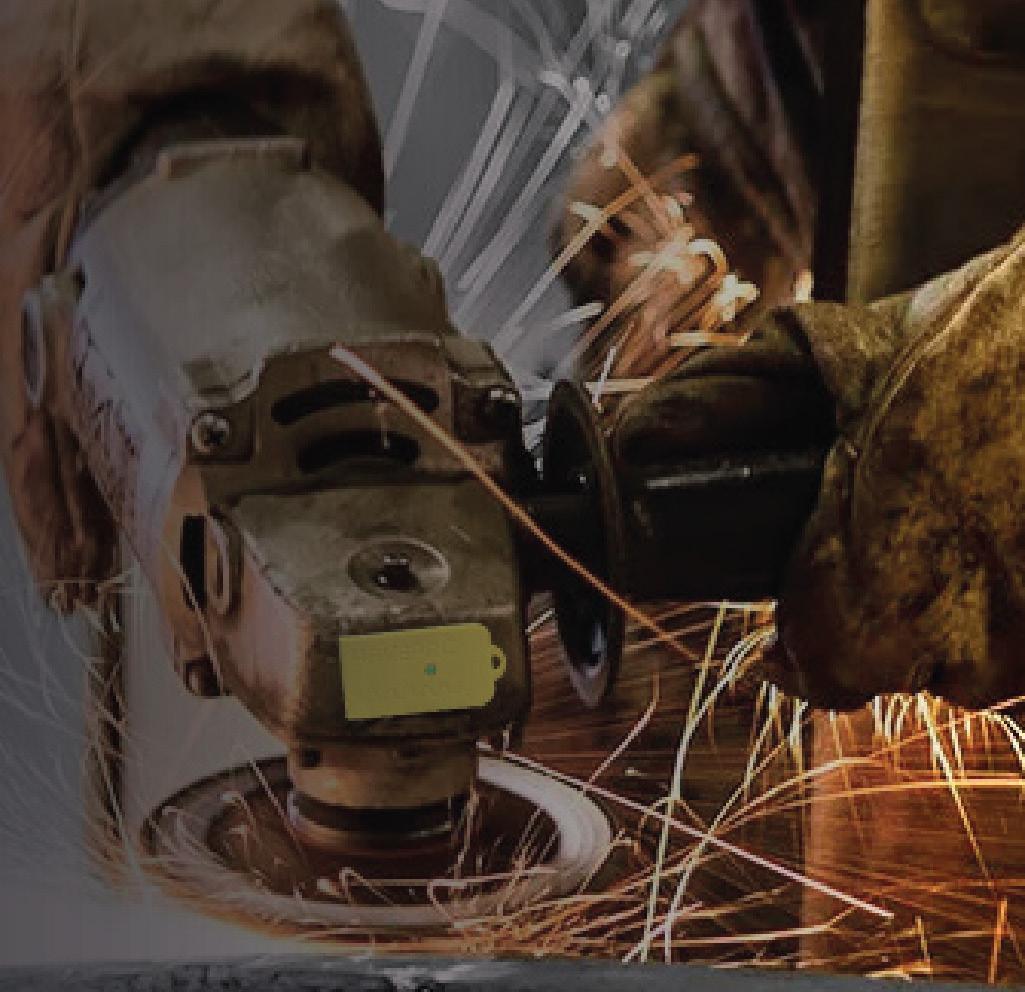

With costs from as little as 60p per user HAVSPRO, from Sixis Technology, allows businesses to accurately identi fy and manage the true risks created by each individual task, regardless of tool type or accessories, substrates, and each tool user's ability HAVSPRO simply attaches to the tool, measures the vibration as it is produced and repor ts the value in HSE (HE ALTH and Safety Executive) points:
- Tool Mounted: Pick, Click, and Go, no pairing required!
- Ready Anytime: No recharging needed.
- Instant Aler ts: Get notified at E AV, 90% ELV & ELV
- Detailed Monitoring: Track tool per formance, identi fy issues, and compare tools, tasks, and users.
- Effective Repor ting: Individuals, Tools, Tasks, Analytics, Weekly Summary repor ts delivered to you and even receive reminders for service dates and reviews
- Comprehensive Suppor t: Installation, training, and ongoing suppor t included.
Discover more about HAVSPRO by visiting our website or giving us a call.



"I am acutely aware of the pain and impact of HAVS and related conditions Seeing new generations of workers suffer drives me to make changes These conditions are preventable and should be par t of history, not our present!
Developing HAVSPRO has enabled me to create a system that accurately measures, monitors, and repor ts the actual vibration exposure in real-time, without relying on calculations or assumed data This technology, repor ting in HSE points, empowers employers to manage vibration risks effectively, identifies Risk Assessment effectiveness and guides towards more effective assessments Together we can measure, monitor and take correct action to reduce instances of HAVS and related health conditions to near zero."
Russ Langthorne, Managing Director, Sixis Technology
The Railway Industry Association (RIA) has hosted its Trailblazers Networking Reception. The keynote speaker was Dr Mark McBride-Wright, Founder and CEO of EqualEngineers
t was American memoirist, poet and civil rights activist Maya Angelou who said: “People will forget what you said, people will forget what you did, but people will never forget how you made them feel.”
“I love that quote and as you engage in networking carry that wisdom in your hearts, strive to be better leaders who not only speak of change but also act and invest in it,” was the message from Dr Mark McBride-Wright CEng, FEI, speaking at RIA’s Trailblazers Networking Reception last month. “Make every colleague, every peer and every newcomer feel welcome and valued. Let’s commit to being the trailblazers who not only envision a more inclusive industry, but also actively construct it.”
Mark is a distinguished leader in diversity and inclusion, passionate about creating inclusive environments where everyone has the opportunity to succeed, emphasised by EqualEngineers, which he founded and is CEO of. His efforts haven’t gone unrecognised, having received the prestigious Rooke Award from the Royal Academy of Engineering in 2022 and an MBE a year later for services to diversity, equity, and inclusion.
He said: “In the discussion of rail and its future we must underscore the critical role of diversity and inclusion. Engaging everyone in the conversation isn’t just ideal, it is essential. Our workforce must reflect the society it serves, and harness the full spectrum of ideas and solutions and as leaders we must ensure that every voice is heard and valued.
“The Trailblazers initiative, by intertwining the vigour of Millennials with Gen Z and the wisdom of experienced professionals, serves as a beacon of progress, but we also need to include Generation Alpha.”
Mark was speaking at the KIA Oval in London at the Trailblazers initiative which brings together young and experienced professionals from across the industry, to enable them to learn from each other, make new connections, and celebrate a vibrant and diverse rail workforce. It supports the vision of the Equality, Diversity, and Inclusion (EDI) Charter launched by RIA and Women in Rail.
RIA Policy Manager and host of the event, Isabella Lawson, said: “We really need to embrace diversity, thoughts of people of all backgrounds and we need to make sure decisions represent everyone that we
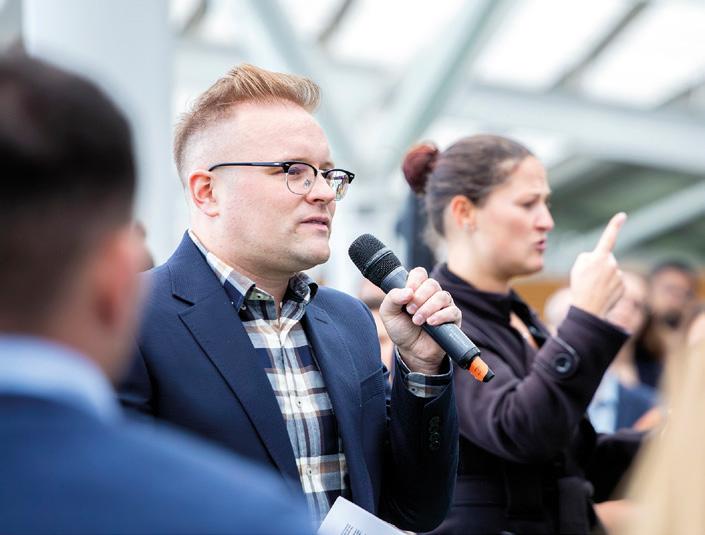

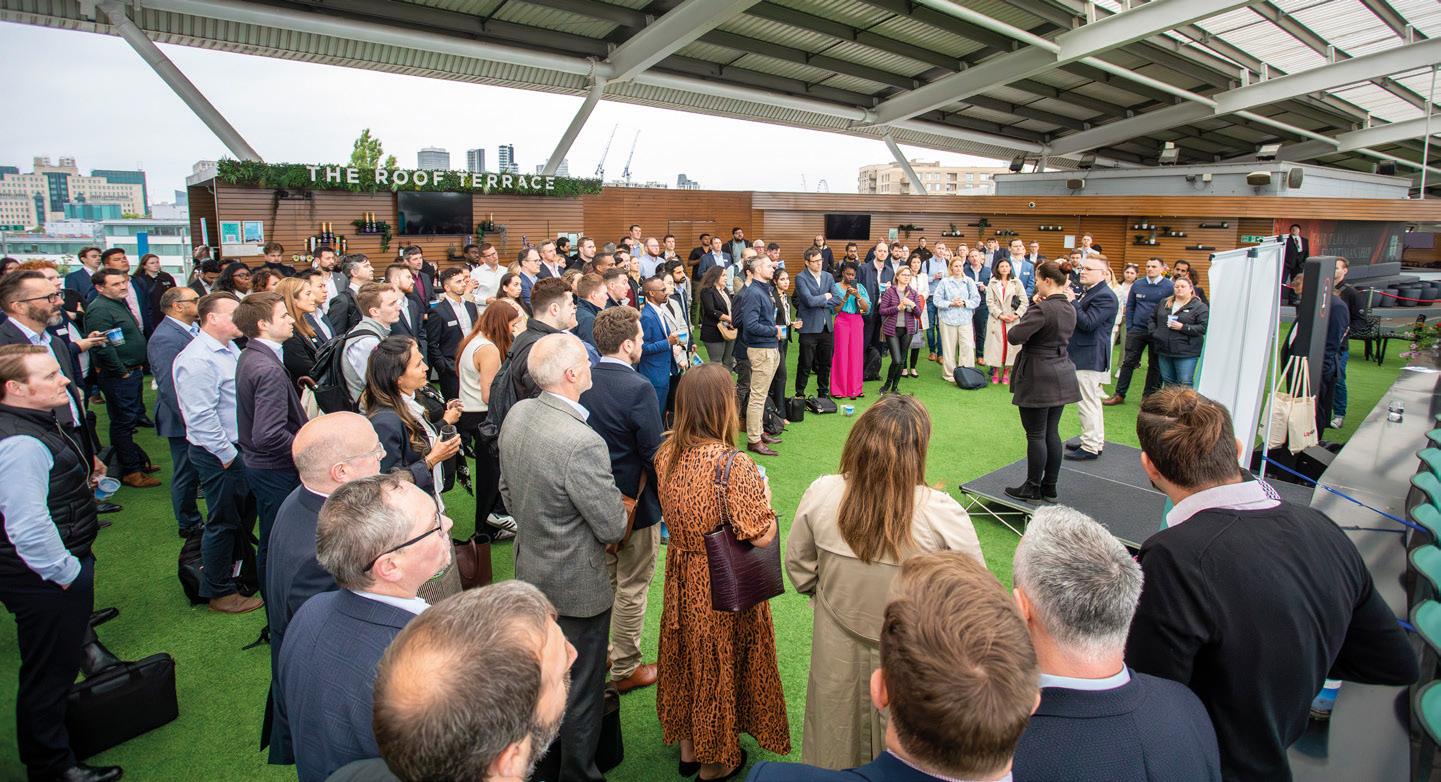
serve. Everybody in this room has a really important part to play in that so let’s really think about what we can do to make the industry better for everyone in it, to be proud of the people we are serving, proud of the people on our teams and doing a job we are proud of ourselves.”
Nina Lockwood, CEO of the event’s Platinum Sponsor, Intuitive Talent Solutions, said: “This is such an important event and such a fantastic industry to work in.
“The UK rail industry is a cornerstone of our economy, underpinning trade, connectivity, and regional development while championing sustainability. As we navigate the challenges and opportunities ahead it is imperative that we continue to invest in and support this vital sector. By doing so we are not only driving economic growth, but
also creating a more connected, sustainable and prosperous future for everybody.”
Nina, who also produces the Intuitive Insights podcast, in which she speaks with rail industry colleagues, concluded her speech at Trailblazers with an ask of those in attendance.
“Let’s change the narrative and talk about the impact of rail on the UK economy, because if we don’t, no one else is going to do it for us,” she said. “I would strongly encourage you to seek out the evidence and then personally make every effort to share with your own network in and critically outside of the industry.
“The rail industry makes a massive contribution to the UK industry day in, day out and you do not have to be a passenger to benefit from this. It is also a great place to work and to build a career so let’s spread that message.”
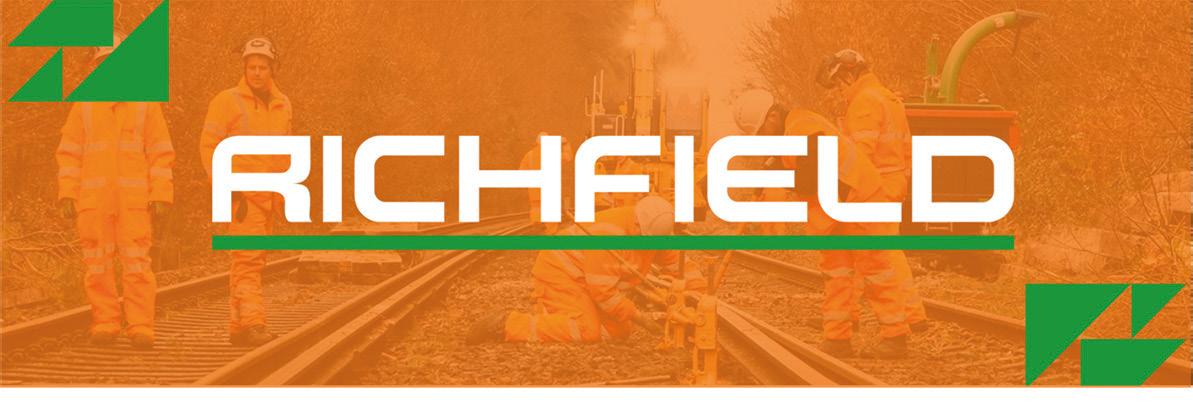

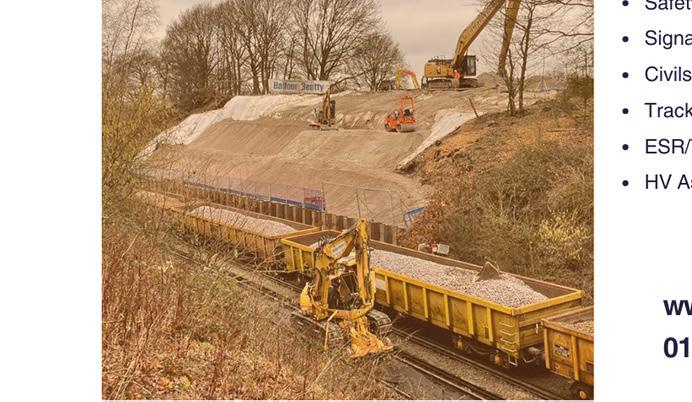
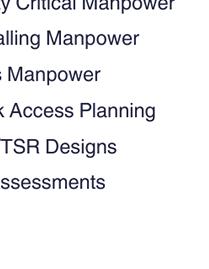
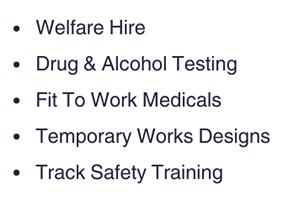






RBD Community and Railway Industry Association (RIA) members can take advantage of a 20 per cent discount on all advertising across Rail Business Daily (RBD) media channels. Member Relations & Content Manager Fiona Broomfi eld discusses




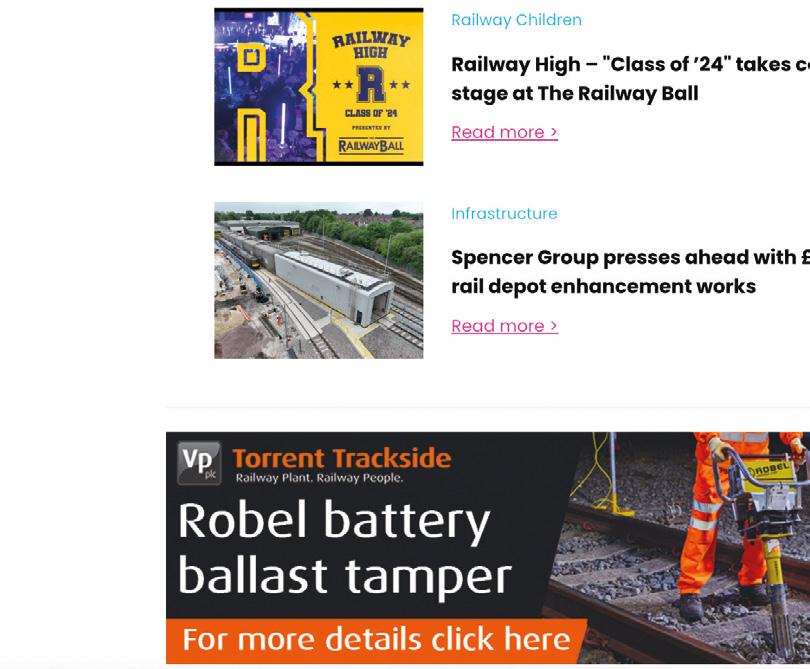
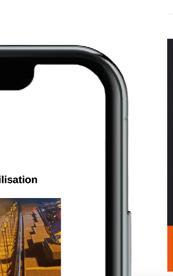
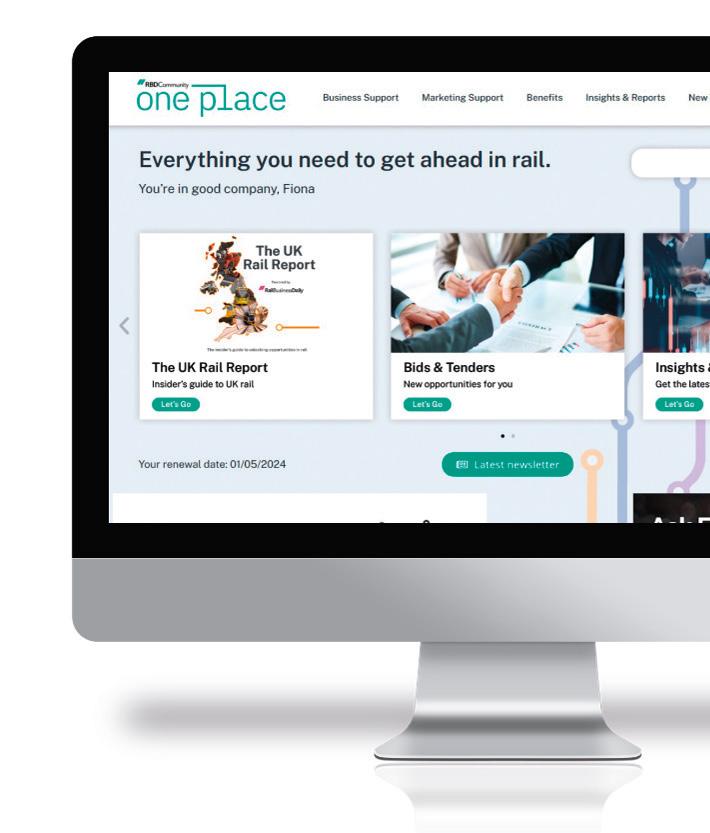

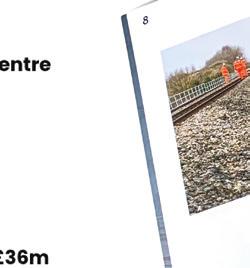


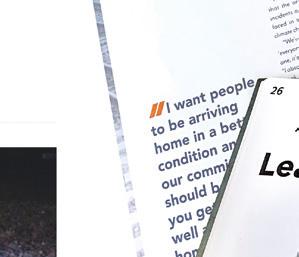
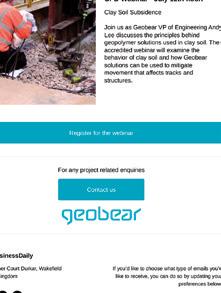


Whether you have been around 30 years or 30 days, in business it pays to advertise.
First and foremost, advertising improves the visibility of your brand and products – and this generates leads that you can nurture and convert.
Advertising also helps to build awareness of your business and brand and increases your customer reach. Being seen, and raising your profile, smooths the path for your sales and business development teams and can also have a positive effect on bids for new work.
You can use advertising to your advantage in many ways – from promoting a new product or service launch, to sharing the benefits your brand brings to customers – all the way through to helping
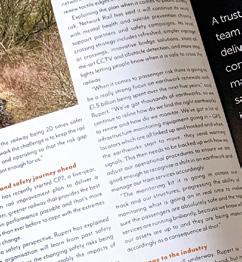
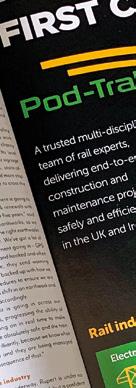

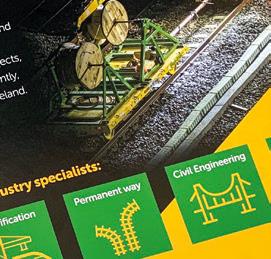



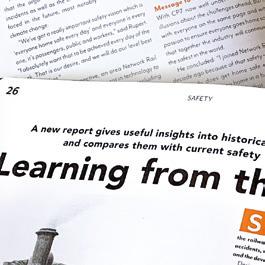
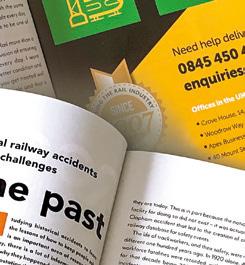
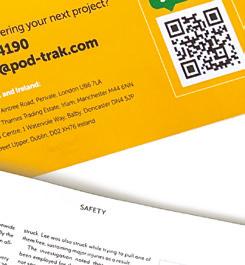


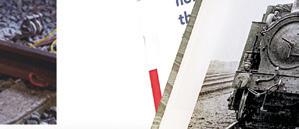
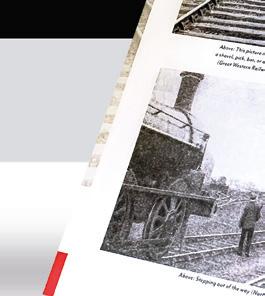
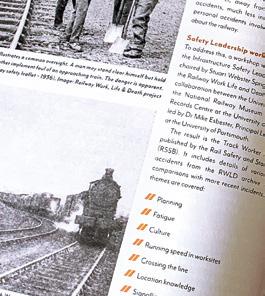
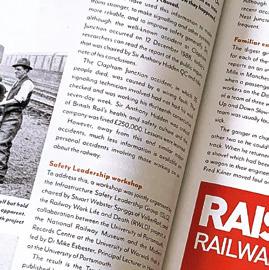



Advertising also helps to build awareness of your business and brand and increases your customer reach


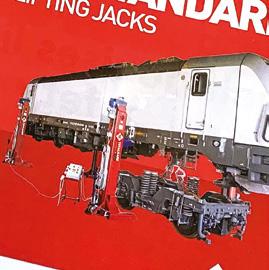
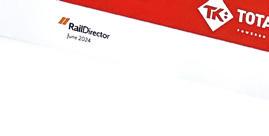




you promote what makes you stand out from your competitors.
Helping you do more business in rail Rail, like many industries, is highly competitive, so you need to be visible to get noticed and make your brand, products, and services as attractive as possible to potential customers. As part of RBD Community’s mission to be a force for good in rail and to help members do more business, one of the benefits you can take advantage of is 20 per cent off all RBD advertising services.
This includes 20 per cent off:
Print and digital advertising – business spotlight, half, and full-page advertising in Rail Director magazine (print and online editions).
Solus emails – target a 73,000+ rail professional subscriber list with a special one-off email or series of emails to sell your products into the rail industry.
Members can also get 20 per cent off wider marketing services, including:
Advertorials.
Guest writer articles.
Marketing campaigns.
Email marketing.
Branding.
Get 20 per cent off all advertising with Rail Business Daily
All RBD Community and RIA members get 20 per cent off advertising in RBD media channels, including the 7am newsletter, soluses to the newsletter’s 73,000+ subscribers in the rail industry and Rail Director magazine.
To advertise, contact Head of Sales
Christian Wiles on 07494 529 803, or email chrisw@railbusinessdaily.com
For wider marketing, please contact Business Development Manager Sarah Hopton
Benefi ts of advertising:
Lead generation.
Increase traffic to your website. Brand and product visibility and awareness.
Increasing customer reach.
Reach more buyers and enter new markets.
Promoting the benefits of your products or services.
Communicating information about your business.
Increasing sales, and demand for your products and services.
Gaining competitive advantage.
And, when you advertise through RBD channels you know you are reaching, and influencing, a targeted audience of rail professionals, including buyers, investors, and stakeholders. Rail, like many industries, is highly competitive, so you need to be visible to get noticed and make your brand, products, and services as attractive as possible to potential customers on 07702 820 305, or email sarah@railbusinessdaily.com
To become a member and get 20 per cent off included in your benefits package, contact Member Relations & Content Manager Fiona Broomfield on 07949 409 829, or email fiona@railbusinessdaily.com
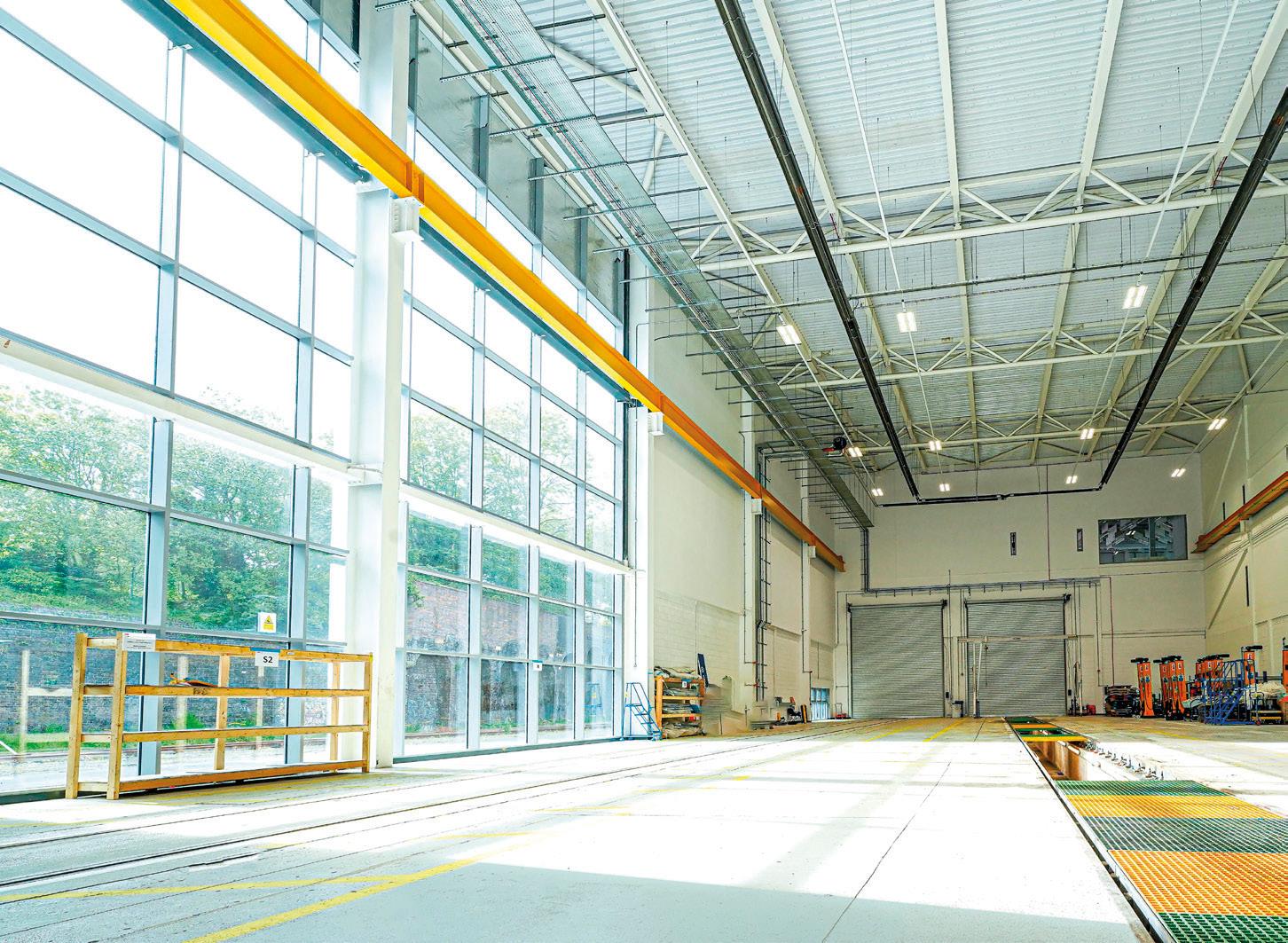
• 1200m2 footprint (60m x 20m)
• 60m through track
• 48m maintenance track & pit
• 100m2 of divisible floorspace for workshop areas
• 32m2 of portacabin-based office space, accommodating up to 6 workstations
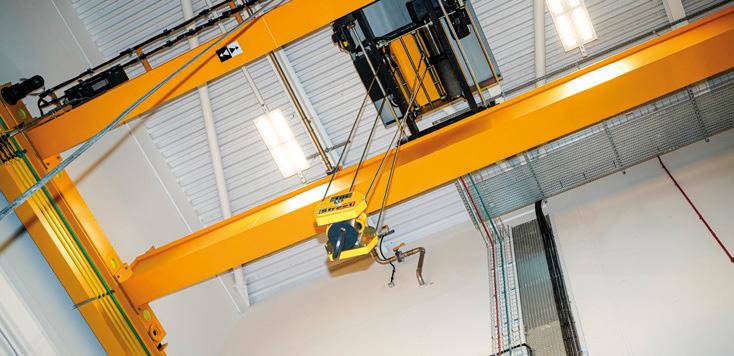
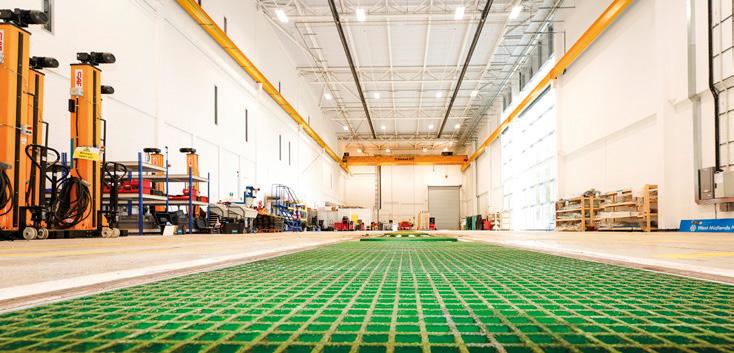
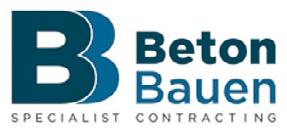
Beton Bauen is an independent family-run business. We are specialists in concrete repair, resin injection, structural waterproofing, ground gas protection, confined space working. enquiries@betonbauen.com www.betonbauen.com 0800 077 8802
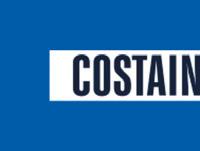
Costain works to improve people’s lives with sustainable, connected infrastructure, delivering a variety of transformative services that span the whole asset lifecycle. mediaenquiries@costain.com www.costain.com 01628 842 444
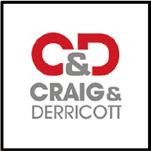
Craig & Derricott specialise in the design, manufacture and overhaul of rolling stock components including LED lighting, rotary switches, driver key switches, panels, and footswitches.
sales@craigandderricott.com
www.craigandderricott.com 01543 375 541
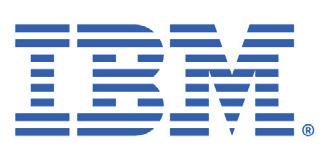
IBM is the global leader in business transformation through an open hybrid cloud platform and AI, with numerous reference customers in the travel & Transportation sector. www.ibm.com

Instrumentel is a world-leading provider of asset monitoring solutions for precision measurement in extreme environments. Specialising in condition-based monitoring of industrial processes and railway rolling stock. enquiries@instrumentel.com www.instrumentel.com 0113 8314725

Global design practice, Maynard Design Consultancy Ltd, supports organisations in the commercial, transport, and urban realm sectors, creating graphics, wayfinding, products, and environments. info@maynard-design.com www.maynard-design.com 020 7724 9500

Modux delivers software development, cyber security, and R&D consultancy services and has developed a range of rail industry products to support train operators. contact@modux.co.uk www.modux.co.uk 020 8133 7808
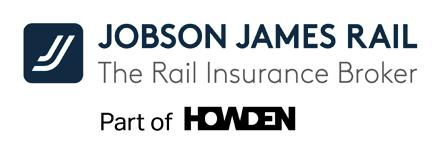
Jobson James Rail is a national
Jobson James Rail is a national specialist railway insurance broker, the market leader in the UK by a huge margin with over 550+ rail clients across the UK, Middle East and Australasia. keven.parker@jjrail.co.uk
insurance broker, the market leader in the UK by a huge margin with over 800+ rail
and Australasia. keven.parker@jjrail.co.uk
jjrail.co.uk 07816
jjrail.co.uk 07816 283949
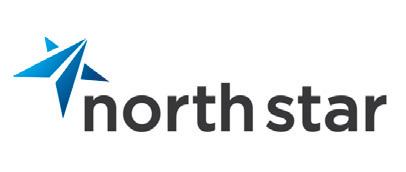
North Star Consultancy Ltd supports the transport sector, drawing on decades of operational and customer-centric experience and understanding of transport management and the rail industry. enquiries@northstarconsultancy.com www.northstarconsultancy.com 020 7692 0936
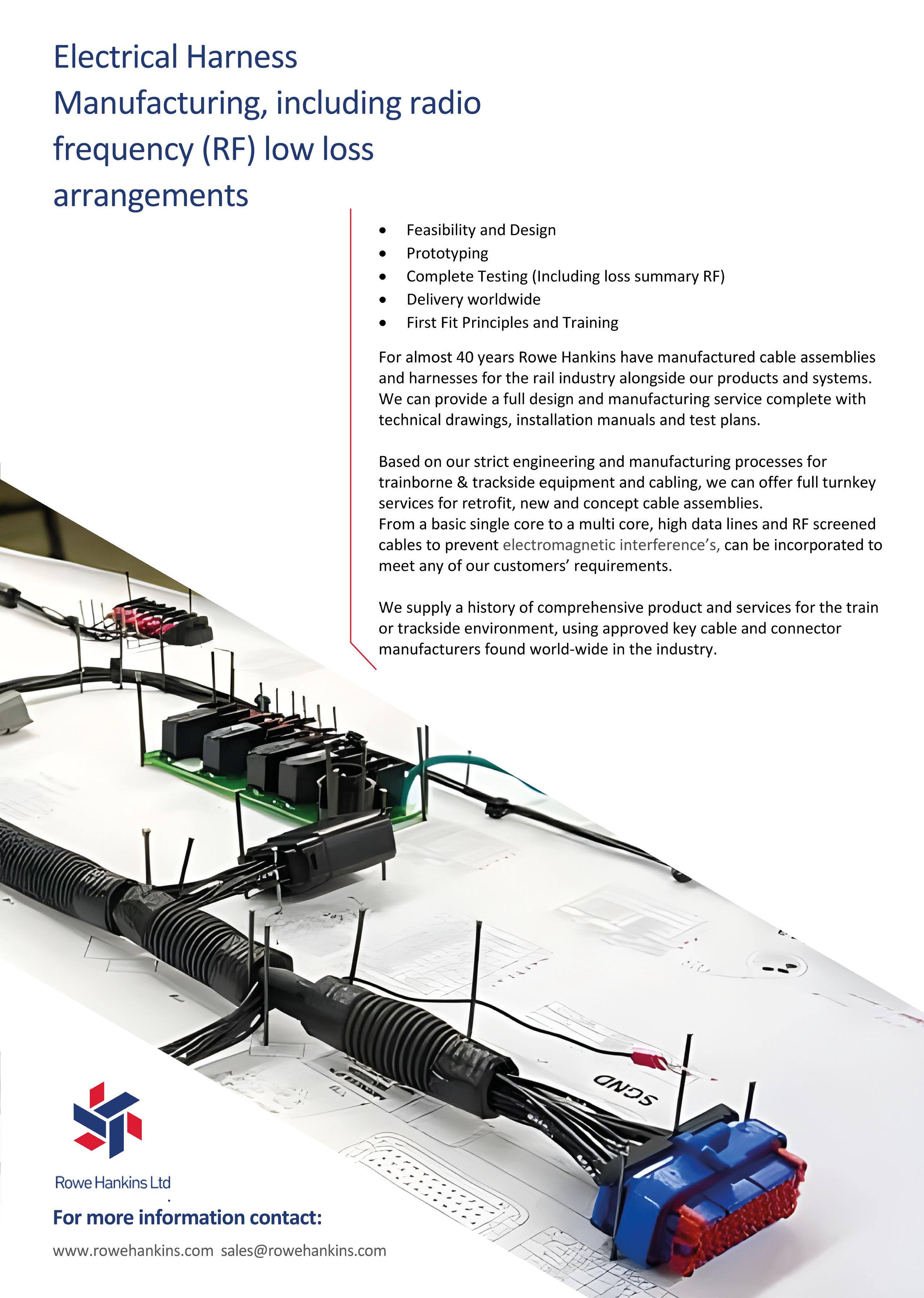
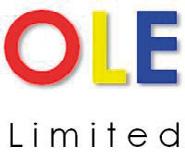
Overhead Line Engineering Ltd (OLE Limited) offers a range of overhead line engineering support services, working across the entire project lifecycle. keith.orgill@OLE-Limited.co.uk www.ole-limited.co.uk 01332 342 122
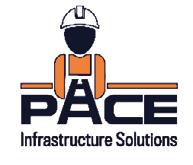
PACE Infrastructure Solutions are a construction delivery and professional services company that predominately provides ancillary Civils and E&P services to all rail systems projects. www.pace-is.co.uk 0203 633 8019
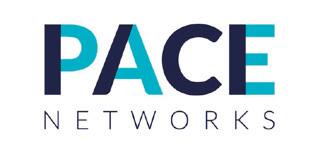
PACE Networks offer products, tools and systems for electrifying railways, maintaining electrified lines and monitoring electrical infrastructure. info@pace-networks.com www.pace-networks.com 01285 323 525

Plasser UK are market leaders in technical services, machine overhauls and spare parts supply for the extensive range of Plasser & Theurer track maintenance machines. info@plasser.co.uk www.plasser.co.uk 020 8998 4781

Plowman Craven is a leading provider of integrated measurement surveying and consultancy services. Using the latest technologies, track measuring systems, and digital technology, it supports major rail transformation schemes. webenquiry@plowmancraven.co.uk www.plowmancraven.co.uk 01582 765566
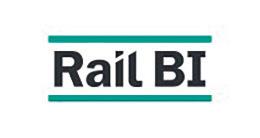
Rail BI is a leading SaaS platform tailored for railway infrastructure managers, facilitating efficient management of asset data, renewal and upgrade workbanks, whole life costing, and more. www.railbi.com 0131 21 000 81

Ramboll combine deep local insight and experience with a global knowledge base to create sustainable societies and drive positive change for clients. london@ramboll.co.uk www.ramboll.com 020 7631 5291
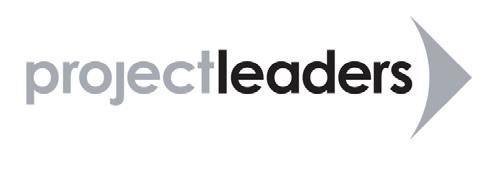
Project Leaders specialise in large-scale capital programs for public and private sectors, spanning infrastructure, transport, and utilities, ensuring client success amidst industry transitions. admin@projectleaders.co.uk www.projectleaders.co.uk 01843 846 006
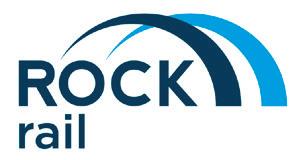
Rock Rail provides innovative financing solutions and asset management services for rolling stock and other rail infrastructure and supports a more sustainable railway. london@rockrail.com www.rockrail.com 0203 170 0870
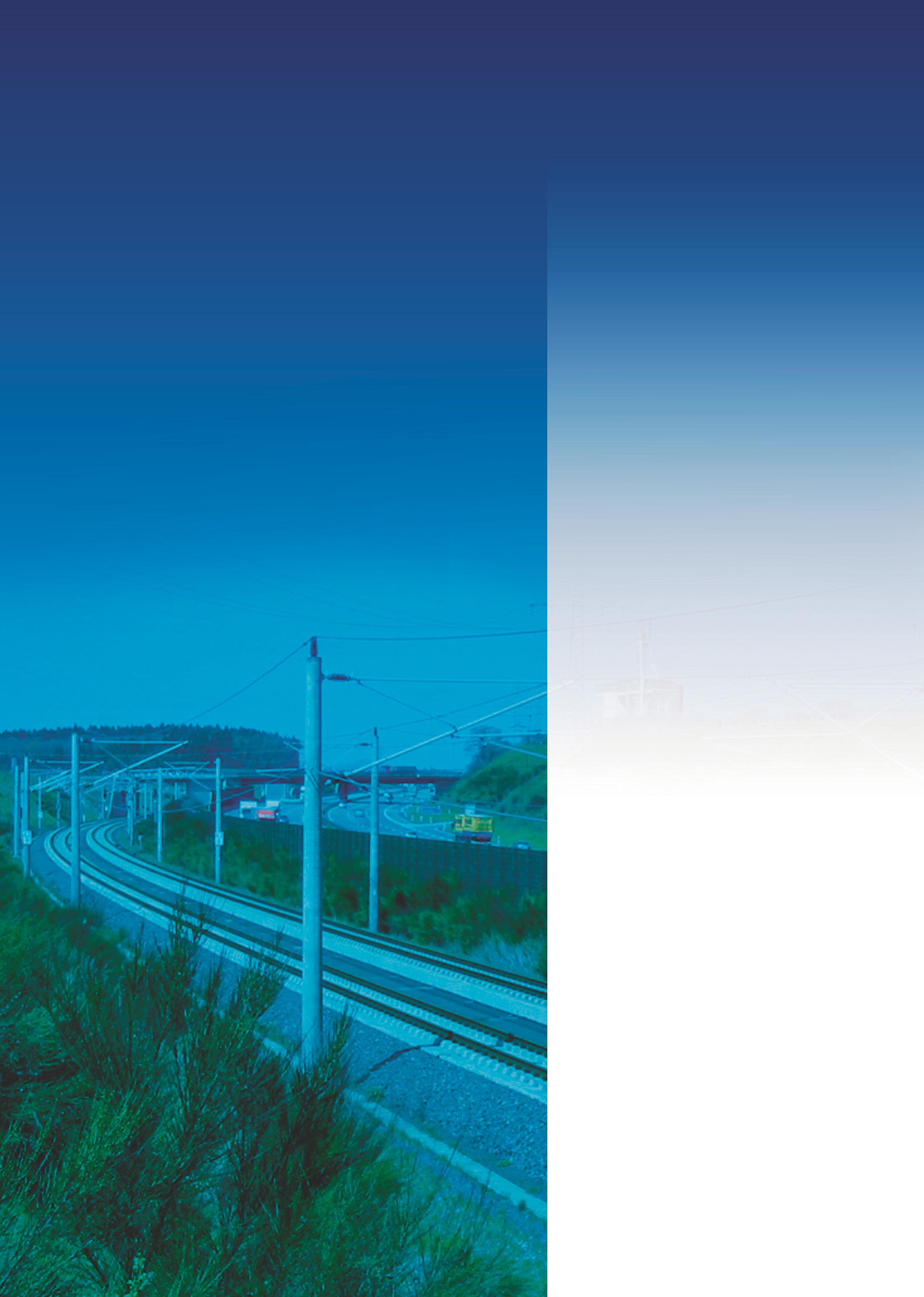


Skanska provide total solutions covering all aspects of rail infrastructure as well as small maintenance frameworks for structures, buildings and embankment stabilisation. geoff.hayes@skanska.co.uk www.skanska.co.uk 01923 77 66 66

STAUFF are proud to manufacture and develop fluid power components, manipulated tube products, and finished kits. Tested, sealed and ready to install on production lines. uk.sales@stauff.com www.stauff.co.uk 0114 251 85 18

SYSTRA Ltd provides engineering and consultancy services in the fields of urban and railway transportation, civil infrastructure, buildings, urban and regional planning. info_uk@systra.com www.systra.com 020 3855 0079
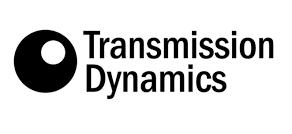
Transmission Dynamics are pioneers in introducing the latest technological solutions to the market. IoT devices are installed in rail gearboxes, axle boxes, bolts, pantographs, escalators, engines, transmissions, and more. wsupport@jrdltd.com www.jrdltd.com 0191 580 0058

Our multi-disciplined team offers a full design and build capability and provides solutions to property, civils, track, geotechnical and drainage projects throughout the UK. feedback@storycontracting.com www.storycontracting.com 01228 590 444
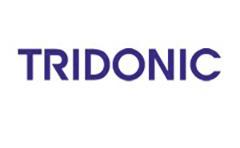
Tridonic is a leading provider of professional lighting solutions. Its smart, sustainable systems are found in a range of environments – including office buildings, retail outlets, and outdoor spaces. enquiries.uk@tridonic.com www.tridonic.com 01256 374 300

TÜV Rheinland UK Ltd helps manufacturers, maintainers and operators through the legal requirements to be able to run on the UK and European railway network. www.tuv.com

UK Power Networks Services solve your energy challenges through innovative solutions, delivering resilience, cost efficiency and sustainability to deliver a bright energy future. www.ukpowernetworksservices.co.uk 020 7397 7845

Southampton rail research brings together research groups from the Department of Civil, Maritime and Environmental Engineering, the Transportation Research Group and the Institute for Sound and Vibration Research. railresearch@soton.ac.uk www.southampton.ac.uk/engineering 07733 294 221
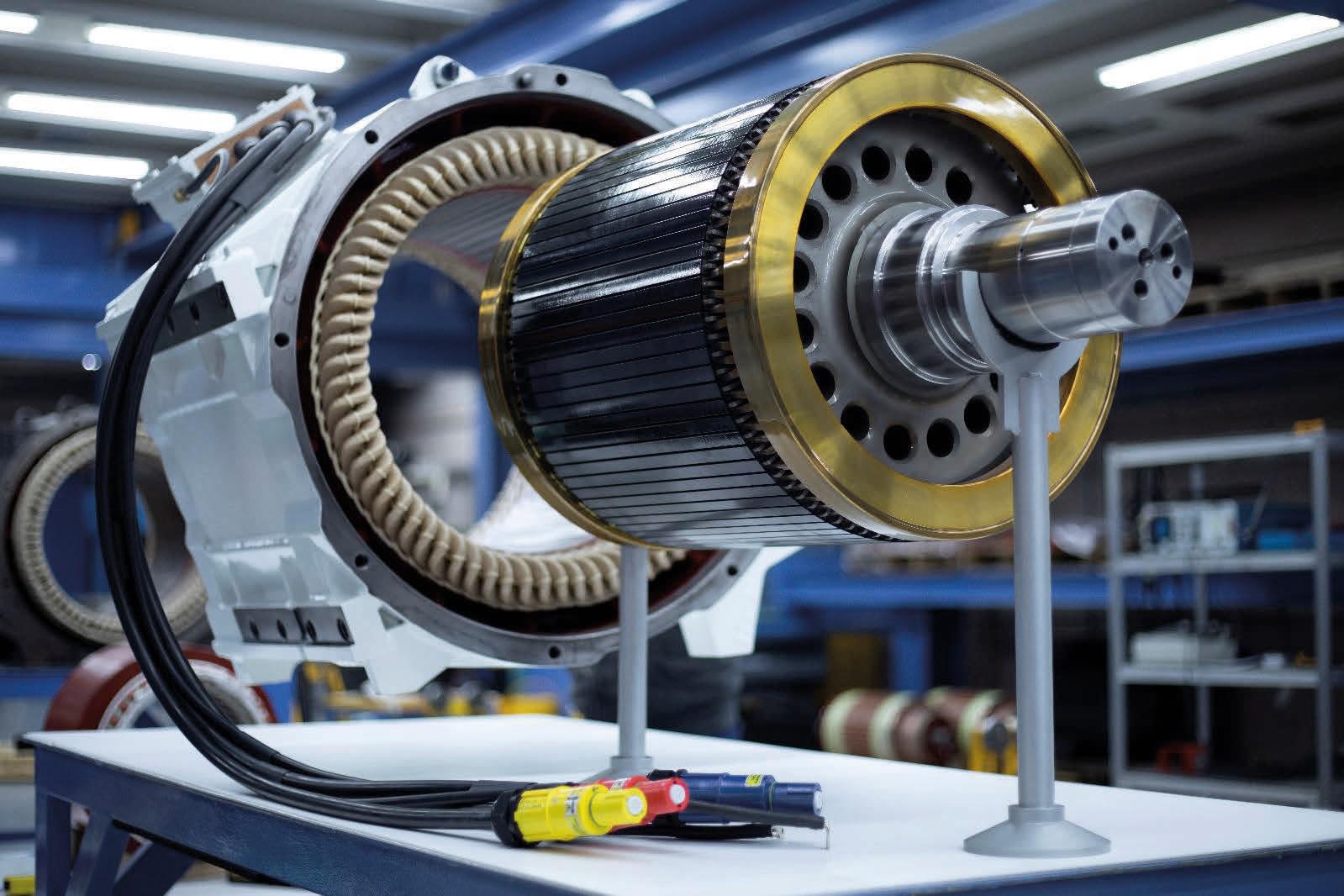
AC MOTOR SERVICES
■ Standard Overhaul /Maintenance
■ Full Stator Rewind
■ New Rotor Manufacture
■ New Shaft Manufacture
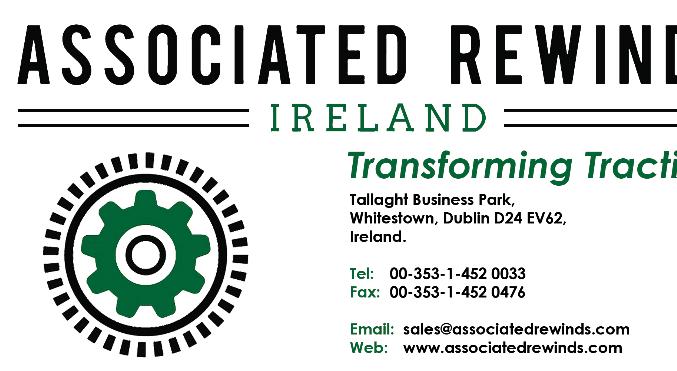

For more information or to arrange a visit, call us on +353 1 4520033
Associated Rewinds are the leading European company for the Maintenance, Repair and Rewinding of AC & DC Traction Motors for all types of Trains, Trams, and Metro systems.
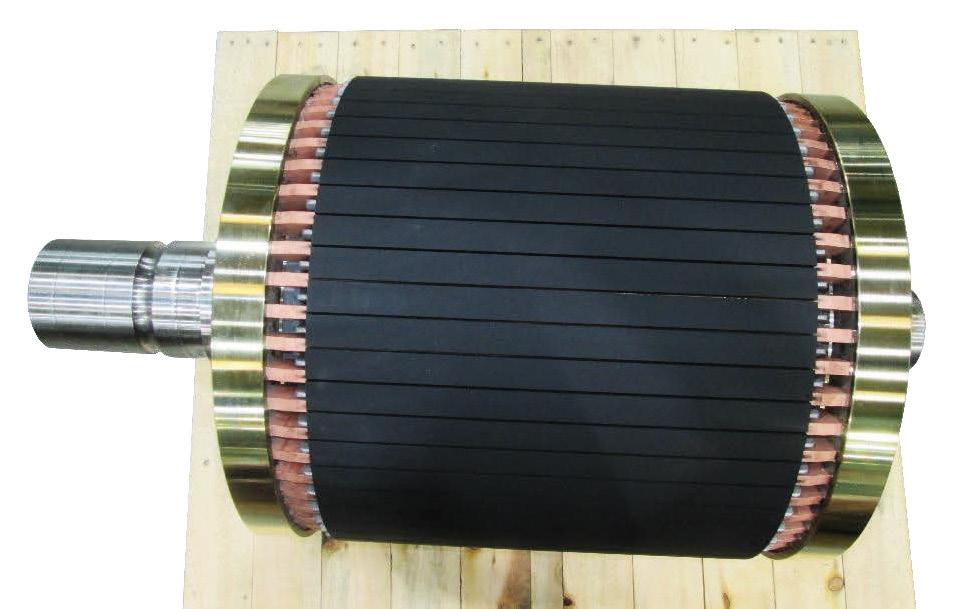

UXcentric specialises in designing digital solutions based on user insights and feedback to optimise your customer experience and unlock your revenue potential. darren@uxcentric.co.uk www.uxcentric.co.uk
07854 781 908

Picture this… a design agency that helps you simplify complexity by communicating your ideas visually. Will Baxter Visual Thinking work exclusively within the rail sector. will@willbaxter.com www.willbaxter.com 07815 056 026

Window Seater enables people to connect to the world outside their train window. It is an app for mindful travel and compelling, high quality audio storytelling. www.windowseater.com

WISKA have been at the forefront of cable management design and innovation resulting in The Railway Series - industry-specific cable glands and conduit solutions in accordance with EN 45545. industry@wiska.co.uk www.wiska.co.uk 01208 816 062

Wincanton delivers business-critical services ranging from handling, storage, and distribution to high volume eFulfillment, fleet and transport management and network optimisation. www.wincanton.co.uk

Withers & Rogers is one of the largest Intellectual Property (IP) law firms in Europe, with an international client base and a breadth of experience and knowledge. www.withersrogers.com 020 7940 3600

Worldline UK deliver an end-to-end payment system for the entire journey. Easy, reliable payments are a core part of providing a more seamless and sustainable journey. www.worldline.com
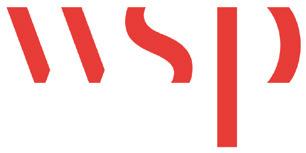
WSP is a leading multi-disciplinary consultancy specialising in the development, planning, design, and delivery of complex and significant, high speed, conventional, metro, and light rail projects. contactus@wspgroup.com www.wspgroup.com/en/wsp-uk 020 7314 5000

XRail Group provides a higher quality precision engineering service delivering rail system design and implementation, project management, assurance and integration for the world’s leading train operators and contractors. enquiries@xrailgroup.com www.xrailgroup.com 03450 600 700
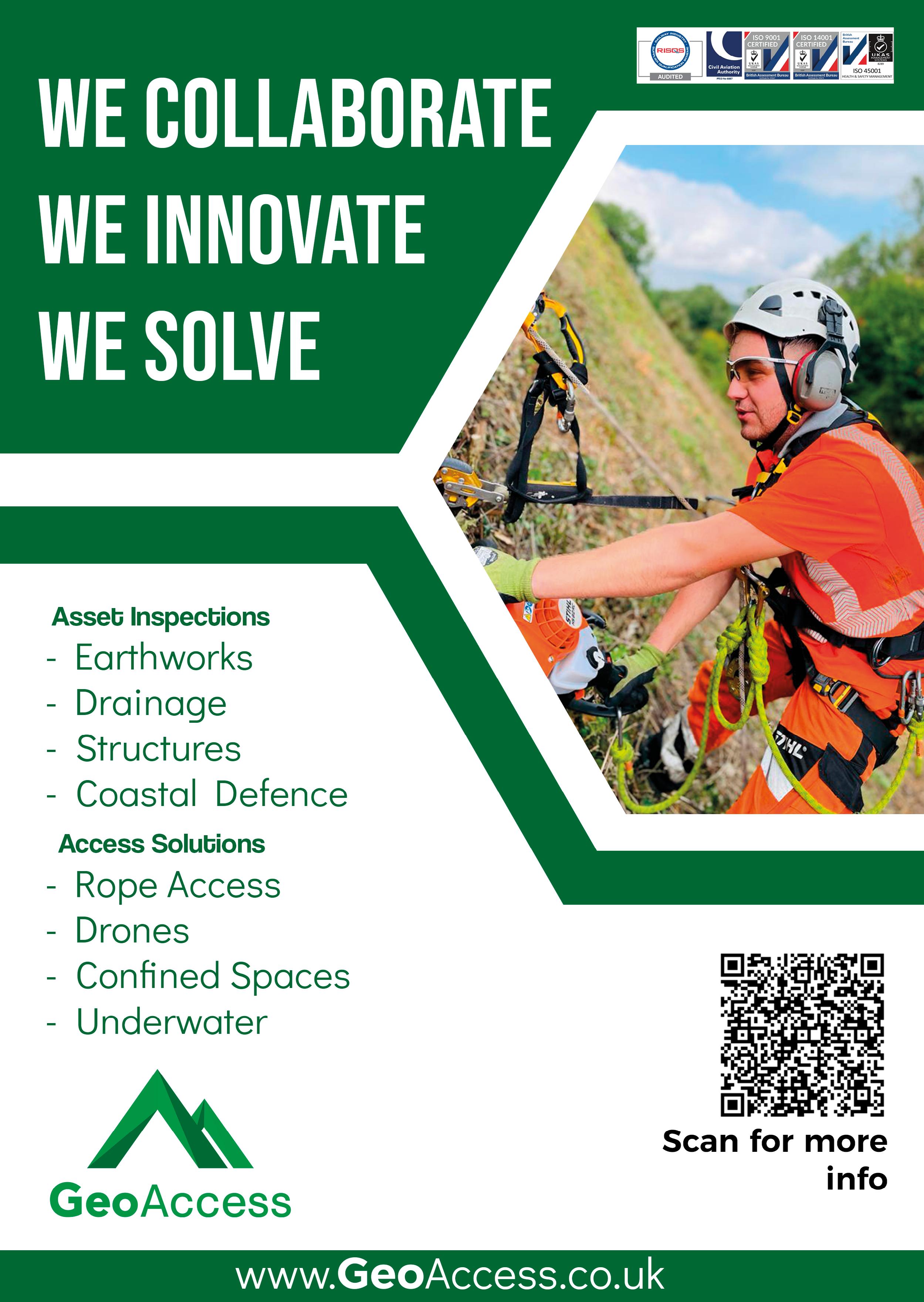

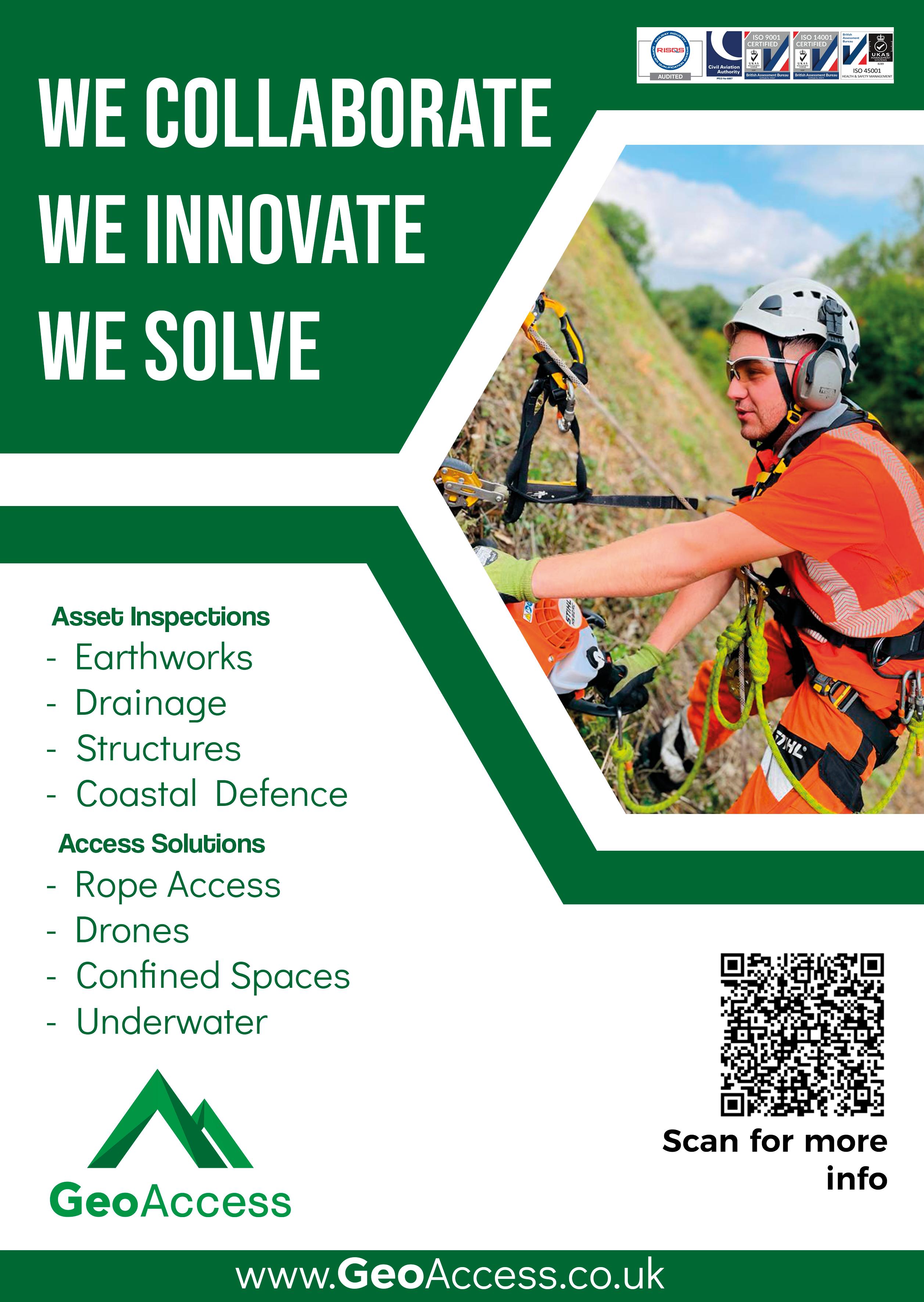

Simon Atterwell is the new Chief Operating Offi cer at Purple Transform, an innovative developer of AI to better human outcomes. He has over 30 years of senior executive experience in the telecommunications and technology sector and prior to joining the company was Managing Director at Network Rail Telecom



Congratulations on your appointment, what attracted you to the position?
I’m very excited about the opportunity ahead of us and the vital role we can play across rail and other critical national infrastructure management companies in the UK and further afield. Given my passion for rail and technology, I found Purple Transform’s ability to make a quantifiable difference to safety, security, and efficiency in these complex environments a compelling reason to join.
Whilst there is a lot of dedicated and third-party rail connectivity nationally, it is not being harnessed to ethically extract, aggregate and analyse data to deliver empirical data insights to the people on the ground. This data can empower speedy responses to incidents that occur daily on the rail network, such as trespass, extreme weather events, theft, anti-social behaviour, overcrowding, and more.
What are your aims and aspirations?
Ultimately, my aim is simple – enabling rail to compliantly ‘connect the dots’ between its operational and business data and the myriad of experts in rail operations, safety, security, and technology to deliver more efficient, safer and secure rail services.
Moreover, I believe we can help Network Rail extend the life of its existing analogue assets, such as its many thousands of CCTV cameras. By turning them into intelligent devices, we can better inform rail
operators about service disruption and incidents and, over time, use that data to help better predict trends and prevent potential incidents.
What learnings can you take from your eight years at Network Rail?
Having been responsible for UK rail’s national fixed and wireless telecoms assets, infrastructure, and services, I understand the complexities and challenges of rail. I have an appreciation for how these highly valuable rail assets could be better positioned to serve Network Rail, the transition into Great British Railways (as and when that happens), the train operating companies, and importantly all of the rail stakeholders and customer groups. Having worked in rail for eight years, plus over 20 years in Tier 1 telecommunication and technology businesses, my observation is that rail’s fixed and wireless connectivity assets and infrastructure are highly valuable but often underutilised.
Two things need to happen; an acceleration of the convergence between operational telecoms (OT), IT applications and services, as well as strategising to move towards an integrated approach to the use of operational data, providing granular insights to support safe, efficient, and cost-effective decisions. Data in any business is critical, and empowering operational teams with real-time empirical data is imperative. I hope to combine my professional experience and Purple Transform’s demonstrated
capabilities to ensure consistently better outcomes for passengers, customers, employees, and contractors every day.
What role does Purple Transform have to play for the rail industry, and which areas of potential particularly excite you?
Purple Transform has spent the last two years developing a smart, GDPR-compliant platform called SiYtE, which has been certified for use on the railway network. SiYtE ethically extracts data using AI and machine learning technology.
The SiYtE platform then aggregates, monitors and analyses live metadata which has been extracted from CCTV, sensors and third-party compute feeds to create alerts and insights tailored to rail use cases. SiYtE can identify, report and predict rail incidents in an ‘always on’ capability, constantly working to improve safety.
What are the biggest challenges facing Purple Transform and how do you hope to overcome them?
It is notoriously challenging and expensive for the supply chain to introduce new capabilities across a highly devolved railway industry. We anticipate that the principles of bringing track and train together under a single entity will go a long way to ameliorate that challenge.
Meanwhile, our mission is to consistently deliver
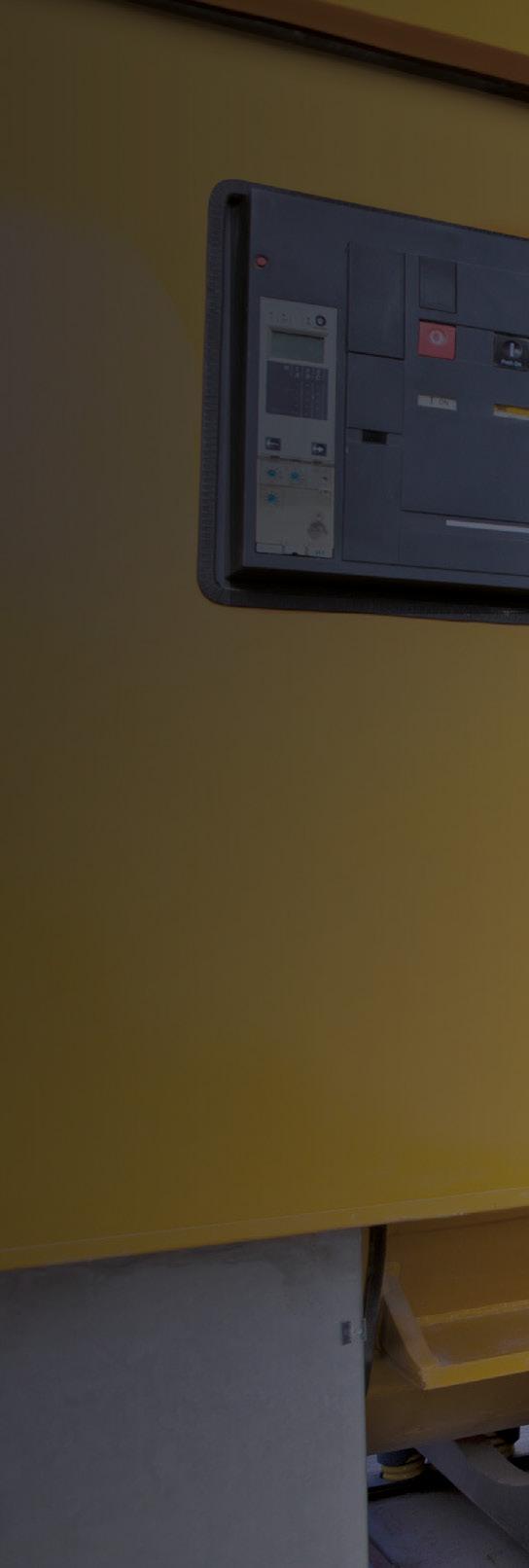


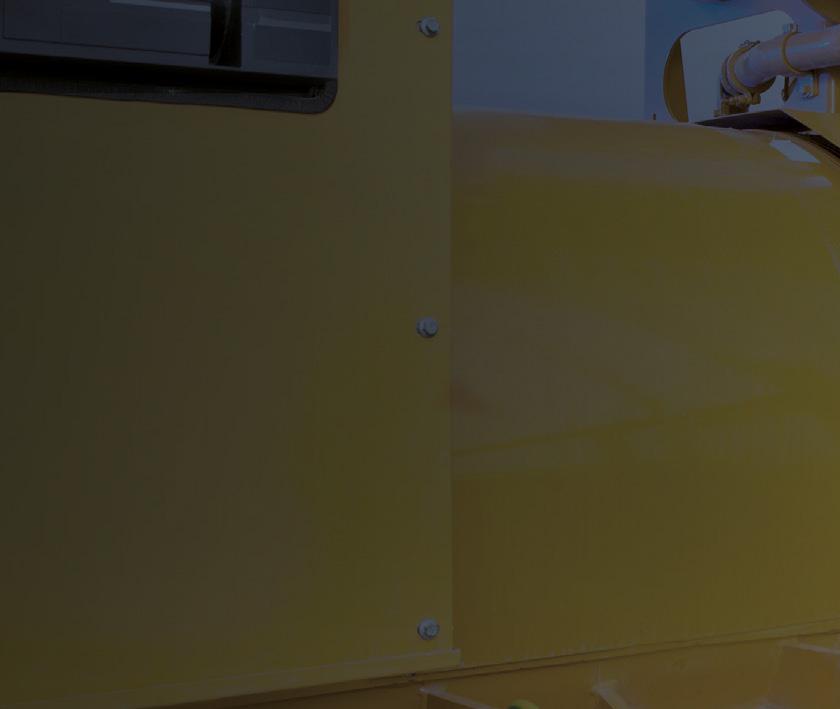
SAFER
GREENER
SMARTER
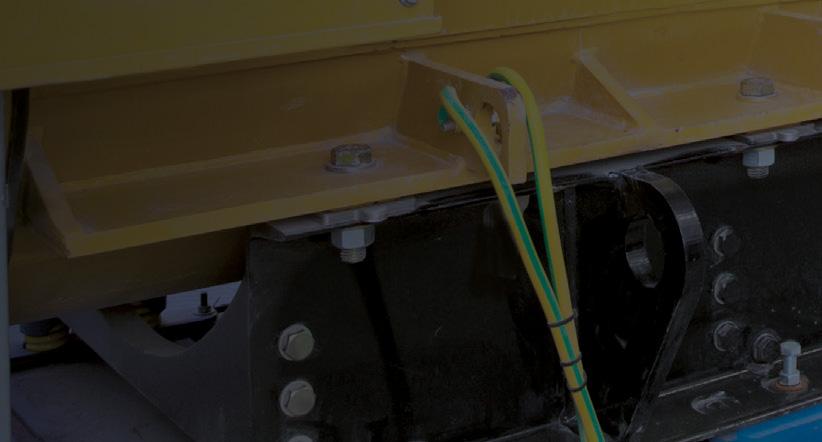
5 FOR THE PRICE OF 4
BUY FOUR PACKS OF 10 OIL CONDITION MONITORING TESTING KITS AND GET A PACK OF 10 TESTING KITS FREE!
THIS IS THE PERFECT OPPORTUNITY FOR BUSINESSES OPERATING IN THE OIL AND GAS INDUSTRY OR TRANSPORTATION SECTOR TO ENSURE THE HEALTH AND EFFICIENCY OF THEIR EQUIPMENT
In the oil and gas industry, regular oil condition monitoring is crucial to prevent costly breakdowns and ensure optimal performance. Our testing kits allow you to easily analyse the condition of your oil, identifying any contaminants or abnormalities that could lead to equipment failure. By catching potential issues early on, you can save time, money, and avoid unnecessary downtime.

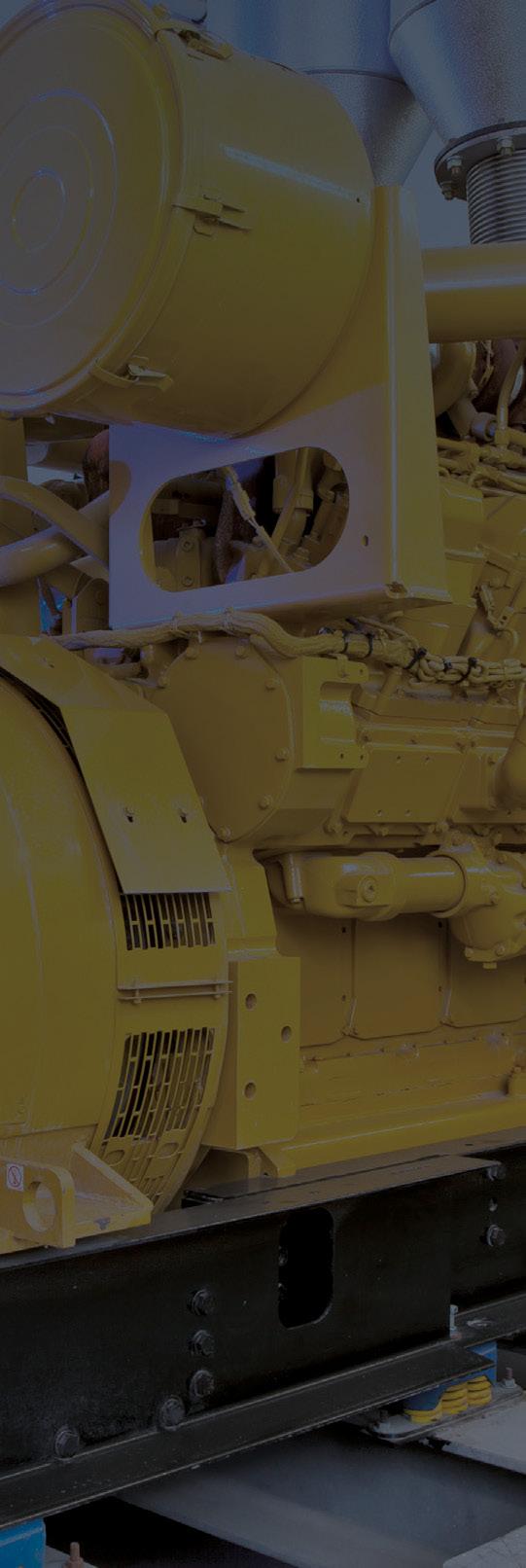
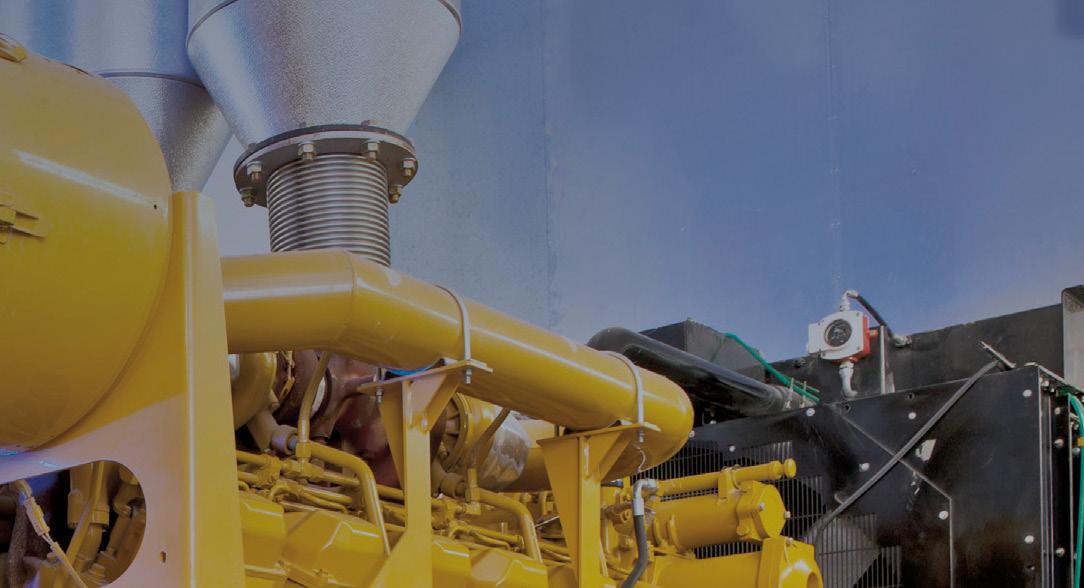
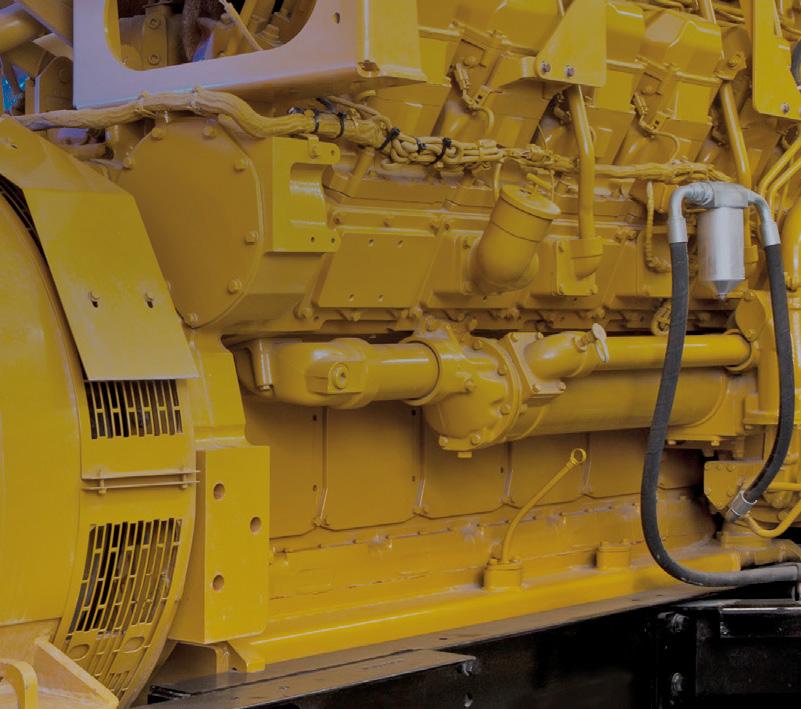


Transportation companies also rely on oil condition monitoring to keep their vehicles running smoothly.
Whether you own a fleet of trucks, buses, or even personal vehicles, our testing kits can help you maintain top-notch performance. By regularly checking the condition of your oil, you can detect any signs of wear or contamination that could compromise your engine’s efficiency and longevity.
Regular oil condition monitoring is crucial to prevent costly breakdowns and ensure optimal performance. Our testing kits allow you to:
• Easily analyse the condition of your oil
• Identify any contaminants or abnormalities that could lead to equipment failure
Catch potential issues early and you can save time, money, and avoid unnecessary downtime.
Don’t miss out on this fantastic deal. Invest in the future of your business by purchasing our oil condition monitoring testing kits today.
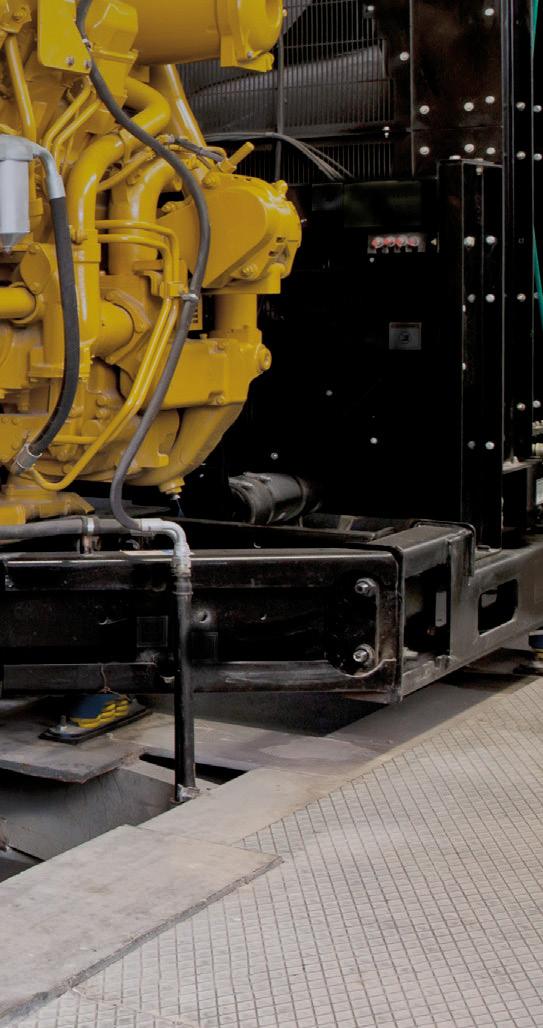
Take control of your equipment’s health and efficiency - order now!
We are SGS – the world’s leading testing, inspection, and certification company. We are recognized as the global benchmark for sustainability, quality, and integrity. Our 98,000 employees operate a network of 2,650 offices and laboratories, working together to enable a better, safer, and more interconnected world.
CONTACT US:
Rossmore Industrial Estate, Inward Way, Ellesmere Port CH65 3EN
+44 151 350 6600
compelling proof of value projects that address real-world rail challenges. We are confident that in doing so, SiYtE will become a critical component in supporting an integrated digital, data-driven rail command and control capability to support a 21st-century railway service.
We will be working with highly experienced partners to ensure we can scale and consistently deliver our services, both cost-effectively and to the highest possible standards.
Reflecting on your 30 years of experience in the telecommunications and technology sectors, what have been the biggest changes?
This is a hard one to answer succinctly. In summary, I think three things resonate with me.
Firstly, the convergence of telecommunications and technology into a digital capability. At its simplest level, this can be evidenced through the journey from dial-up internet services to a digital broadband capability in the home where we consume TV, content, and digital services.
Secondly, whether it’s personal or professional,

DB Cargo UK has appointed a new Chief Transformation and Digitalisation Officer, who it says will spearhead an innovative overhaul of its technological landscape.
Mike Gray, a well-established technology leader in the UK rail industry, will take up his appointment to the UK management board with immediate effect.
Andrea Rossi, Chief Executive of DB Cargo UK, said that Mike had been supporting the company on an interim basis. He added: “Mike has worked on projects for HS2, Network Rail, the Rail Delivery Group and Transport for Wales, as well as over 25 rail franchise bids. He has extensive knowledge and experience of UK and European rail relevant to leading the digitalisation of our business.”
Mike said: “This really is a dream role for me. I have worked in most aspects of the UK rail industry, but never the freight sector. So, to have the opportunity to support digital transformation and work for the premier UK freight operator is an incredible opportunity.”
the increasing importance of data and the need to protect our information, data borders, privacy, and any other personal or intellectual property is of huge importance. As a software development company, focusing on our security capability to protect our customers and their clientele is our highest priority.
Lastly, whilst connectivity is now generally recognised as the fourth utility, it has also become something of a commodity over recent years. The
West Coast Partnership Development (WCPD) has announced the appointments of Simon Aslett as Rolling Stock Director and Joe Parkes as Business Design and Organisation Director.
Simon has been with WCPD for the last four years as the Head of Fleet, Commercial, working on the design of the high-speed train. He boasts an extensive railway career of 26 years with previous roles at FirstGroup plc, Bombardier Transportation, Eversholt Rail and RailTrack. In these positions, he has led many rolling stock purchasing processes as well as being involved in train design and development.
Joe joins the business from NRS Healthcare, with a 13-year career in both HR and service operations leadership positions across logistics, engineering and rail sectors. His experience includes roles at industrial services firm ERIKS UK and Ireland, delivery companies DPD UK and TNT, Shell Energy, and Network Rail.
Shamit Gaiger, Managing Director at WCPD said: “I’m delighted to announce the appointments of Simon and Joe at a key time when we start to finalise our designs for future high-speed services and scoping the workforce that will operate them.”
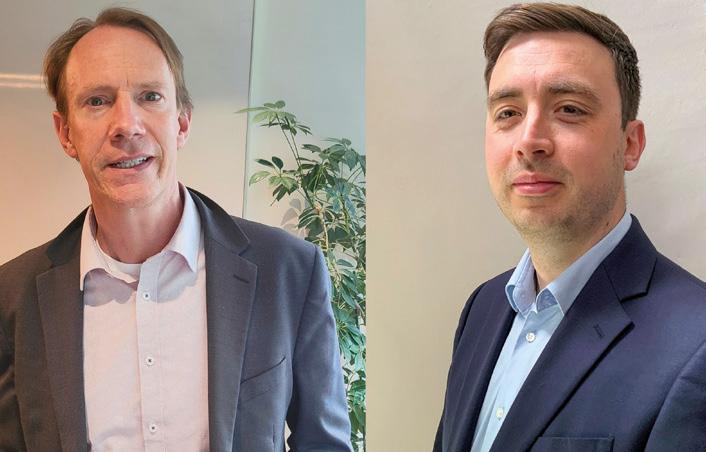
capability to extract and analyse data compliantly represents an opportunity to invest in 4G and 5G private networks in order to support national infrastructure and global economies. Technological development now underpins real commercial benefit.
Are you optimistic for the future?
I am very optimistic for the future. At last, technology can make a real difference to society and business. We are now able to build a connected digital economy for the UK to compete on the global stage. Technology can aid in improving national security and health services, protecting the vulnerable, providing more choices of how and where we work, contributing to net zero goals, and helping us to become a more sustainable, informed country.
For rail, there are massive opportunities to introduce a singular, digital-first entity that puts its passengers, customers, and workforce at the heart of everything it does. UK rail has always been a global leader, and I’m proud and optimistic that Purple Transform can help in playing this important role for the wider rail industry and society in general.
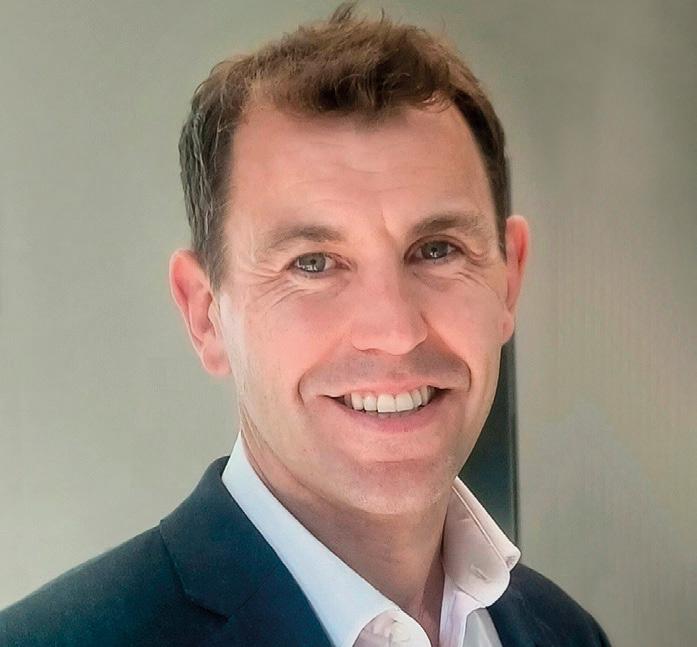
Porterbrook has confirmed the appointment of Ben Woods as Engineering Business Development Director, starting this month.
Having started his career in the railway industry as a Graduate Technical Support Engineer at Porterbrook in 2004, he returns bringing a wealth of experience from senior engineering roles at East Midlands Trains, Arriva Trains Wales, Network Rail, IPEX Consulting and most recently at FirstGroup plc.
Ben Ackroyd, Chief Operating Officer said: “With over 4,000 vehicles in our diverse portfolio, his expertise will be a huge asset as we look to further capitalise on our recent strategic investments and shape new opportunities in the future.”
Ben Woods said: “I’m delighted to be coming back at such an exciting time for the business. Through coordinating early-stage workstreams with customers and suppliers, in partnership with teams across the company, I look forward to building on its strong reputation for innovation, collaboration, and delivering value for our customers.”


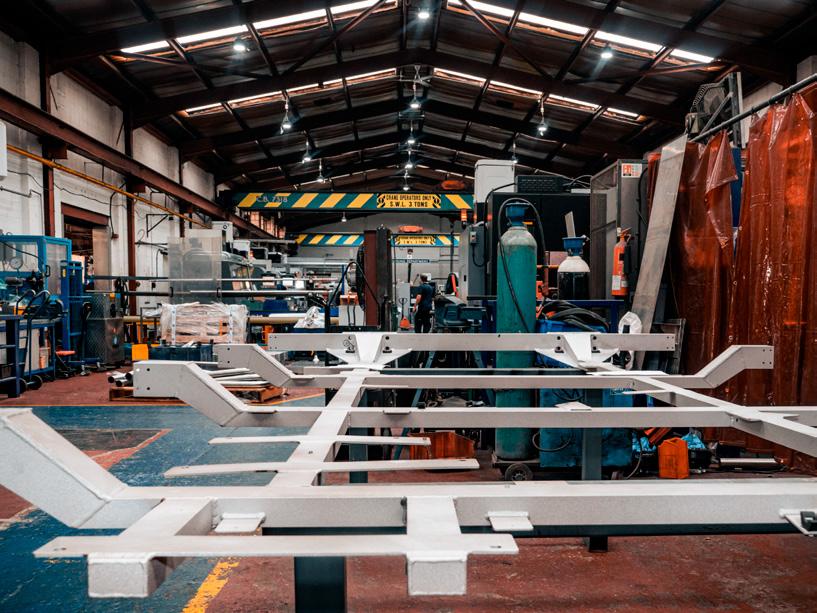
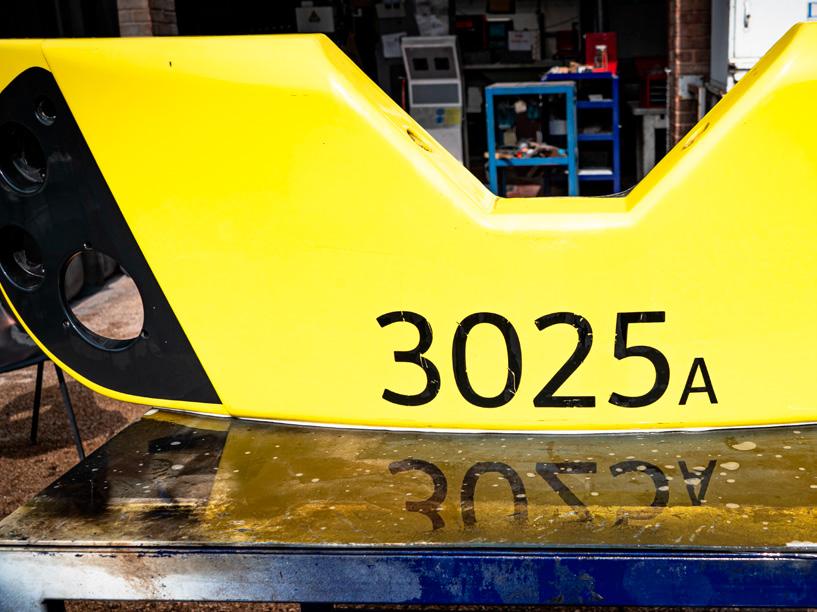




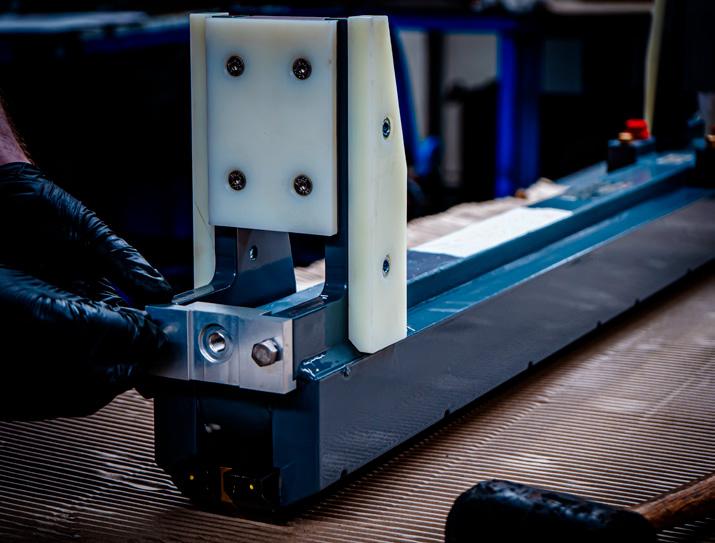
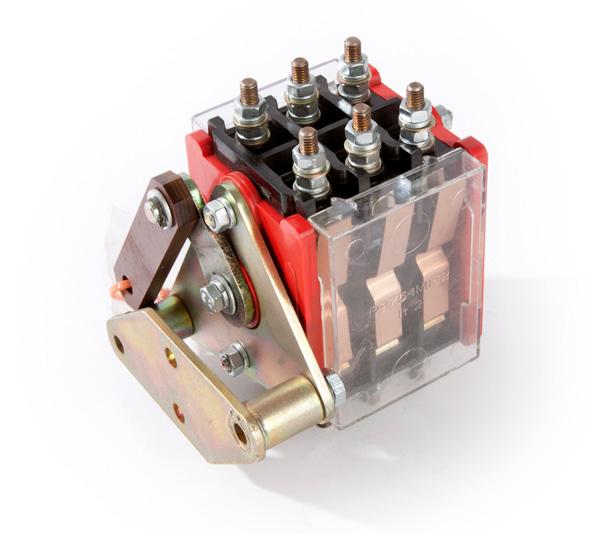
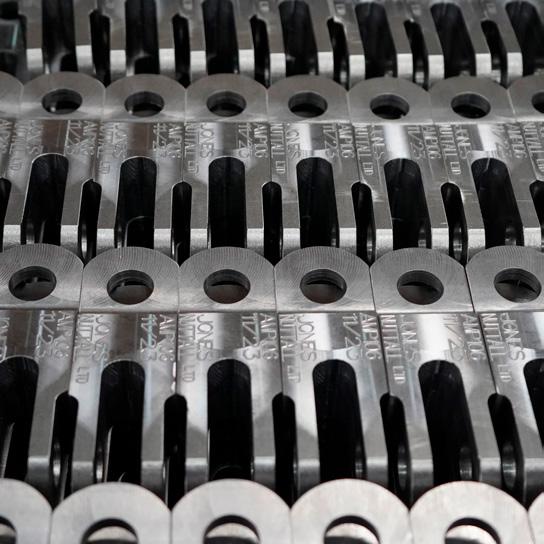
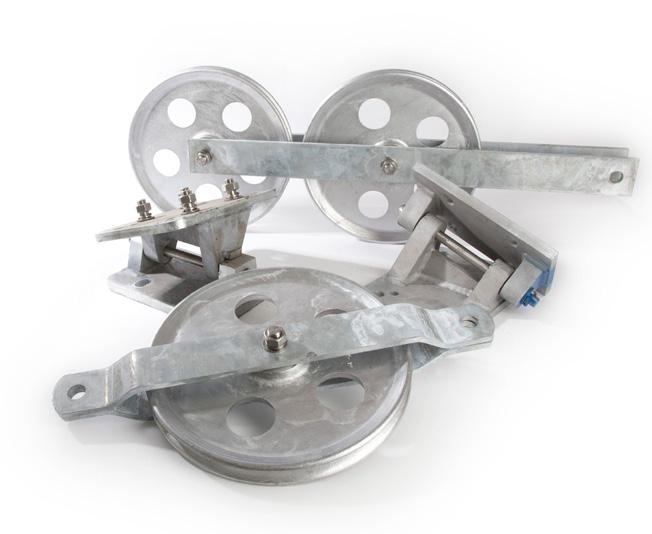

Dozens of teams and hundreds of people have taken part in the annual Big Rail Diversity Challenge. Rail Director was there taking part in the activities
“Afrontline platform to raise the profile of EDI and the sector’s commitment to improving diversity across its workforce at all levels.” That is how Marie Daly, Chair of Women in Rail, describes the annual Big Rail Diversity Challenge.
She was reflecting on another successful outing for the event, which is a cross between ‘It’s a Knockout’ and ‘Krypton Factor’, involving hundreds of rail industry workers at Newark Showground.
“The Big Rail Diversity Challenge continues to grow as a must-attend event for the industry,” Marie added. “As one of our flagship events, it highlights the key values of Women in Rail. Our strapline – Better for People, Better for Business, Better for Rail – perfectly describes the event – and I wish to thank everyone who has supported and actively demonstrated this message.”
First held in 2016, The Big Rail Diversity Challenge has captured the industry’s hearts and minds –demonstrating the passion, support and enthusiasm for the brilliant work that Women in Rail undertakes.
Vicky Binley, Director of event organiser Nimble Media, said: “Growing by a staggering 80 per cent since its launch, The Big Rail Diversity Challenge has become a staple in the rail event calendar, with many key industry stakeholders supporting it yearon-year. When it comes down to the day, people don’t just have fun, but also show their support and commitment to teamwork and diversity.”
The challenges are designed to promote the message that diverse teams work better together, with companies taking part in a series of physical, mental and skill-based sessions, including Catwalk Challenge, Toxic Jigsaw, Human Table Football, Shelter Building, the Mighty Quiz and Dancing with the Shows. Designed to put a team’s communication and teamwork skills to the test, the challenges have been developed to ensure that everyone has a role to play.
Aamina Shah, Women in Rail’s London Region Co-Chair, who was competing at the event for the Angel Trains team, where she is Systems Engineer, said: “It’s gone really well, and everyone has worked really collaboratively. The important thing about the event is it gives people a chance to see the real-life benefits of gender diversity in a setting that is outside of the office and is more relaxed.”
Nicola McGuire, Chair of the East Midlands Women in Rail region, and Customer Engagement Manager at Aura Brand Solutions, added: “It’s been a fantastic day, I’ve been helping with the judging and we’ve seen some great collaboration. It is growing every year.



“I’ve worked in the rail industry for over 20 years now and when I first started, I was in an office of 50 and there were a handful of women in that office. Now there is a really good mix of people in rail businesses. We need to do more, but it is good to see we are getting there.
“I think a key to improving diversity in the future is more male allyship, we need to also encourage senior leaders to get onboard with Women in Rail. More and more companies are getting involved and it is refreshing to see.”
The event was supported by many key industry bodies, organisations and charities; The British Transport Police returned for a fifth year – this time supporting the Diversity Sports Day challenge –designed to encourage teamwork and diversity of skill. The Railway Benefit Fund once again had participants supporting one another through the
The ‘Best Team Name Award’ went to East Midlands Railway for ‘Beast Midlands Railway’, presented by Rebecca Holding, Managing Director of First Rail Consultancy, representing the 2024 Sponsors.
The British Transport Police ‘ Diversity Sports Day Award’, judged and presented by PC Lorna Ashby with the British Transport Police, was won by ‘Eat, Sleep, RIA, Repeat’ from the Railway Industry Association.
For creating the best shelter – and showing the best teamwork on the Railway Children Shelter Building Challenge, Cat Howourth, Event Manager for Railway Children presented the ‘Shelter Building Award’ to Tough Shunts from East Midlands Railway.
The Railway Benefit Fund’s ‘Bring on the Beans Award’ was presented to ‘Worldline Warriors’ of Worldline UK&I by the charity’s Fundraising Manager, Suzy Powell.
‘The Most Collaborative Teamwork Award’ was judged on the team performance across two of the event’s favourite challenges – It’s a Knockout and Walk the Plank. The winner was 3Squared Ltd.
‘The Team of the Year Award’ for achieving the highest overall score with an impressive 244 out of a possible 260, went to ‘3Squared RailSmarties’ from 3Squared Ltd.
toughest of times, blindfolded and carrying ‘beans’ through an inflatable obstacle course as part of their Bring on the Beans challenge, whilst the Railway Children charity had teams constructing a oneperson shelter using basic materials that could be available to a child living on the streets.
Darren Caplan, Chief Executive of the Railway Industry Association, was one of the participants. He said: “What a wonderful event and one we were happy to support as apart from it being such a fun day, there is also an important message of the importance of gender diversity, which as the event slogan says, is better for people, better for business, better for rail.
“Well done to everyone who took part, there was some fantastic teamwork on show and support for competitors, all of which encompasses why the rail industry is such a fantastic one to work in.”

